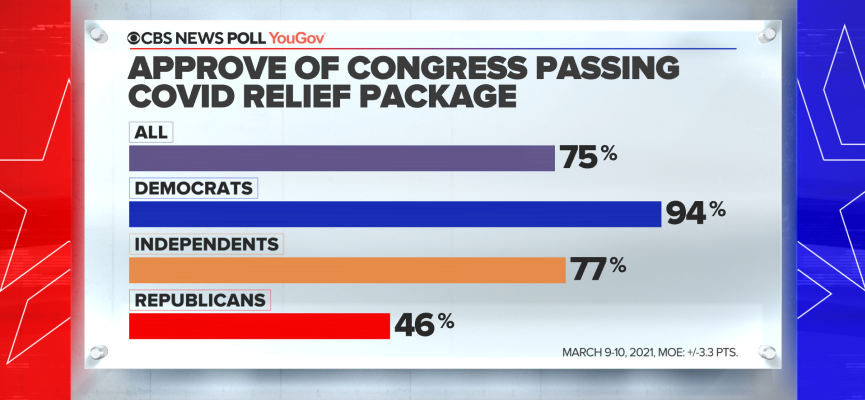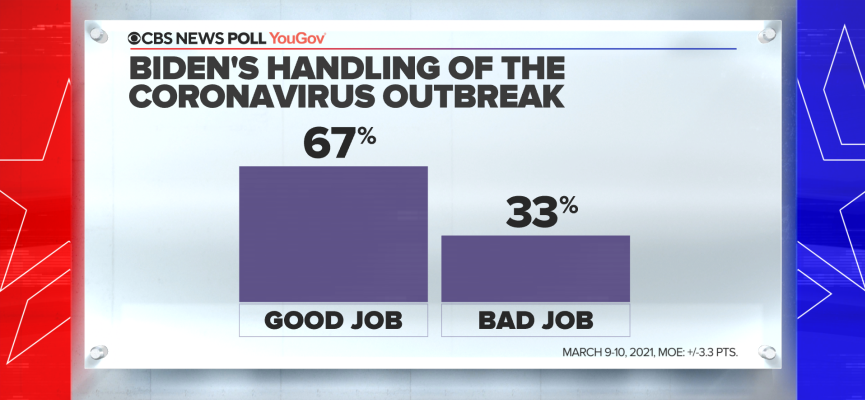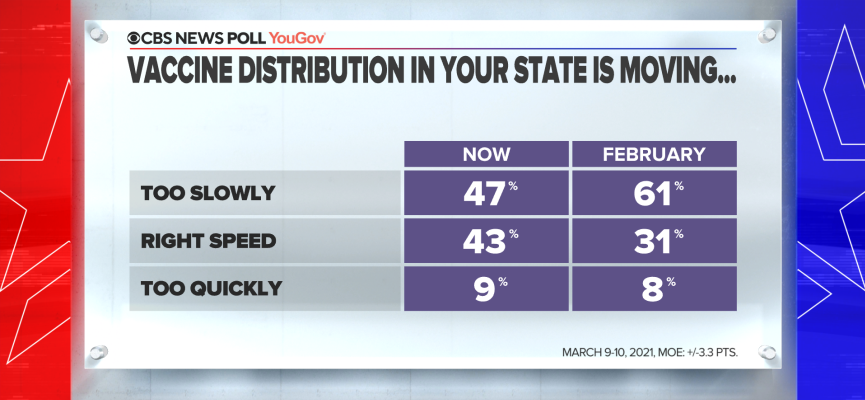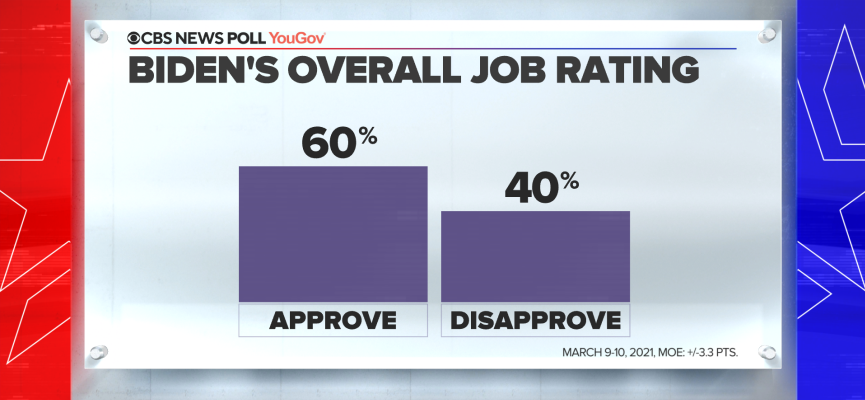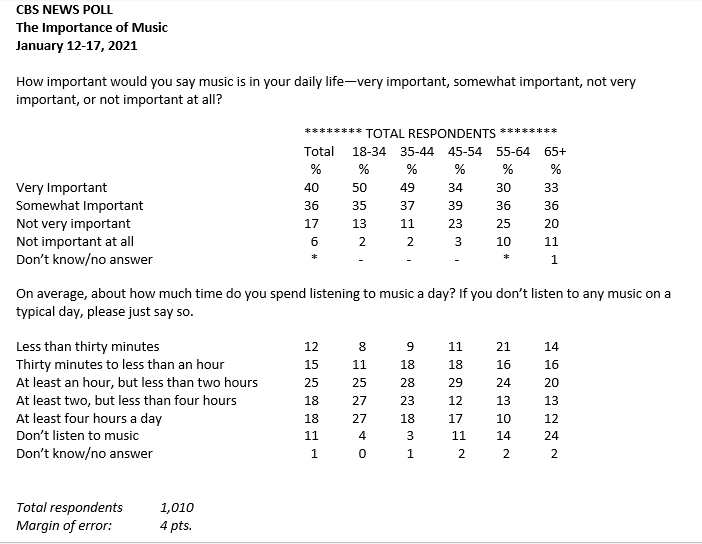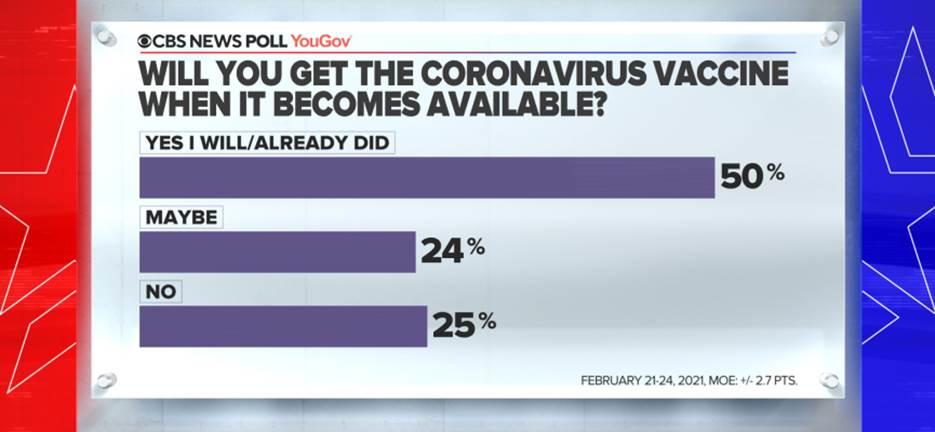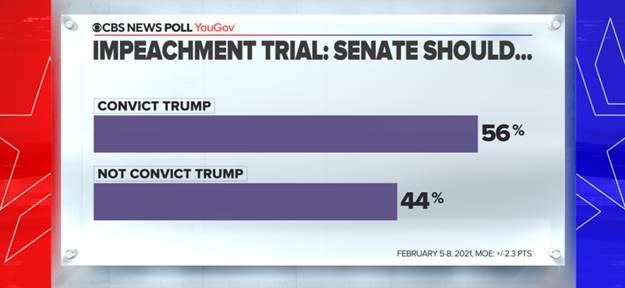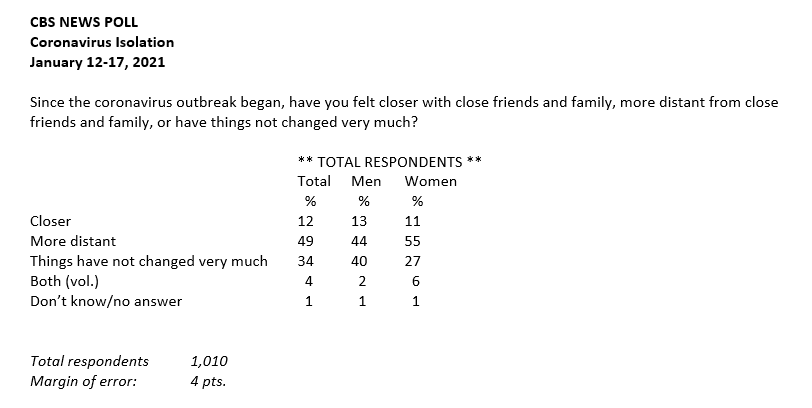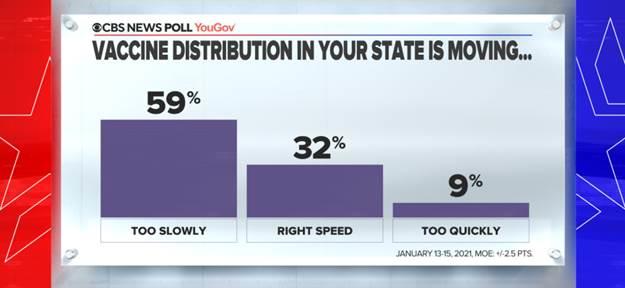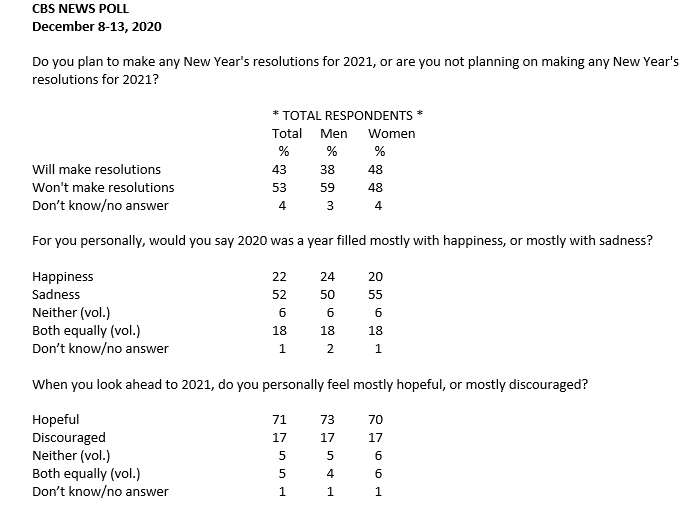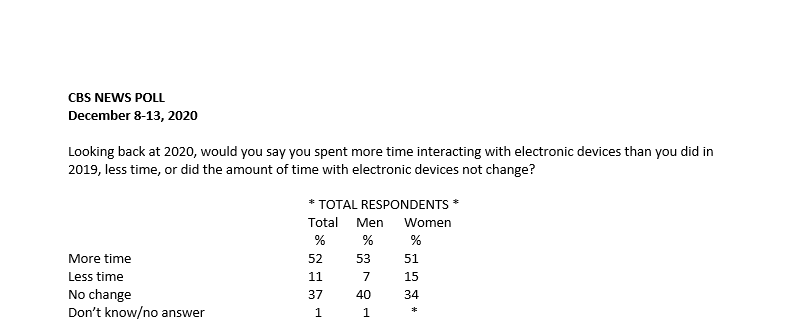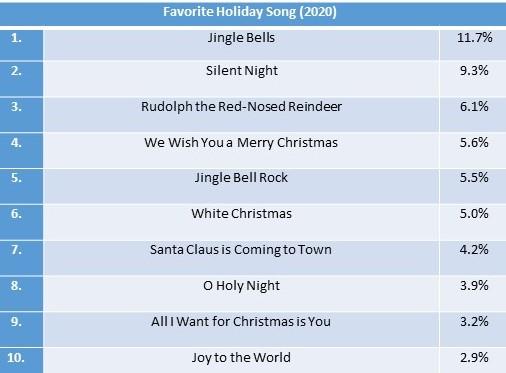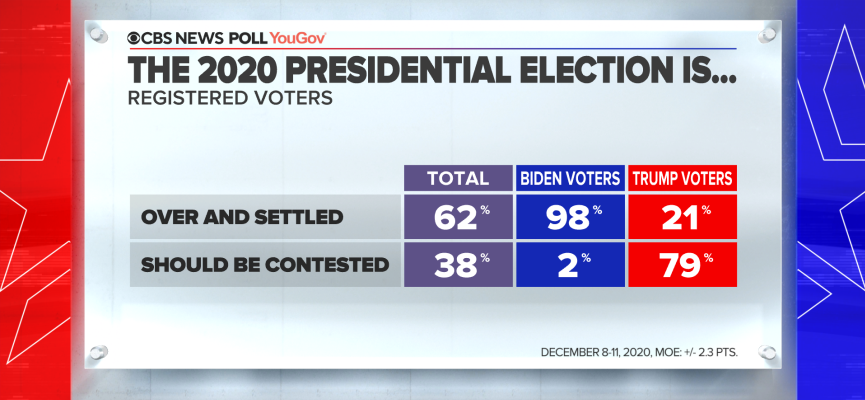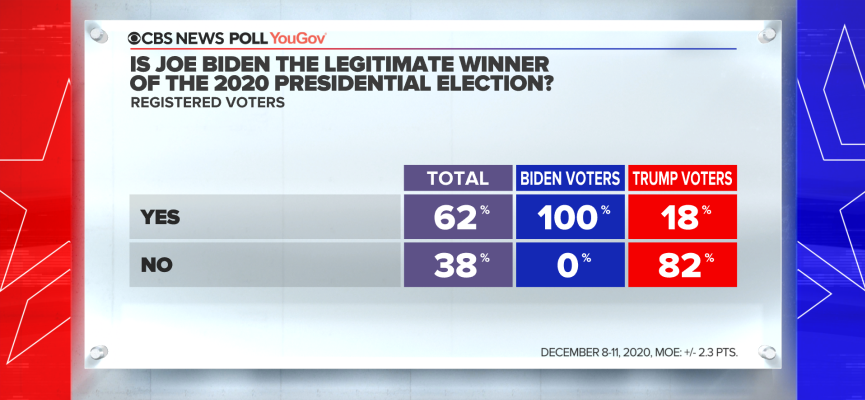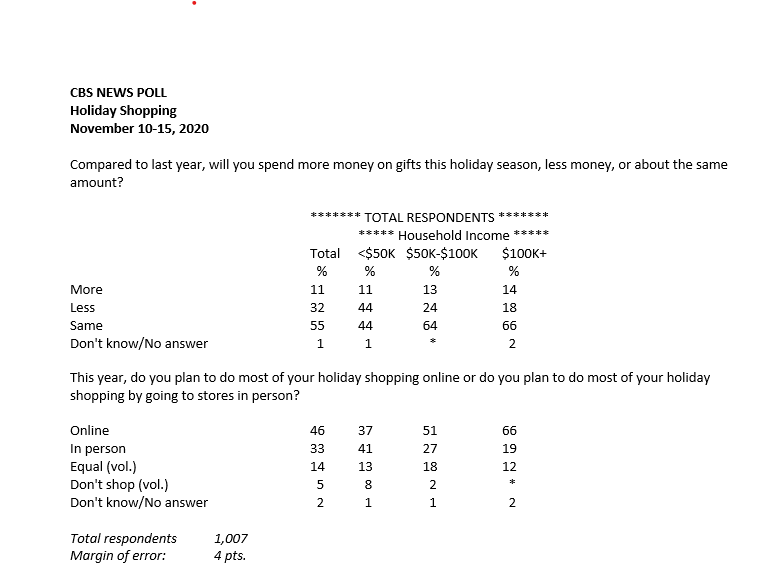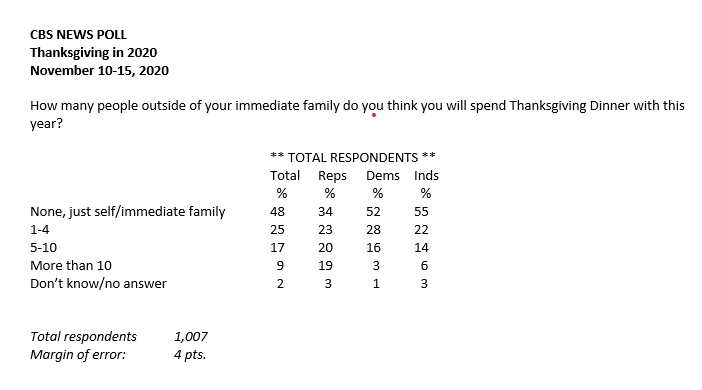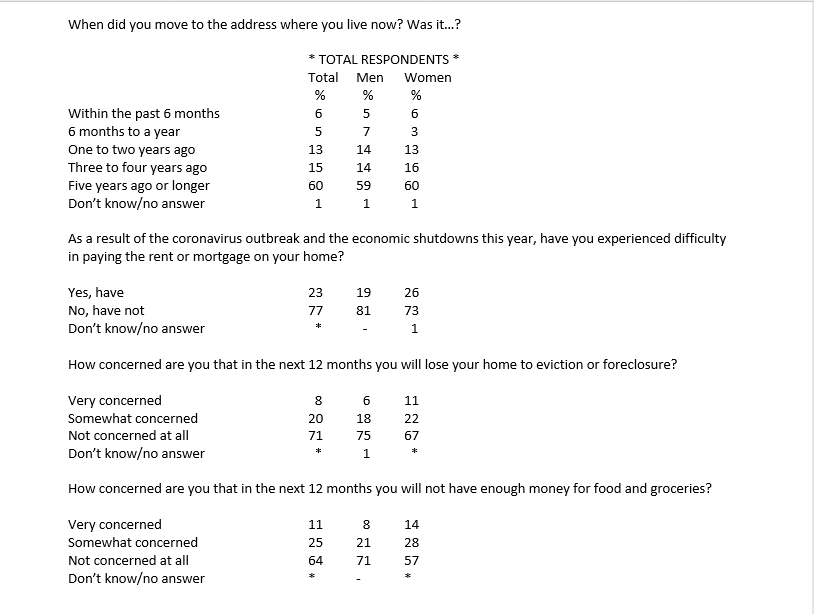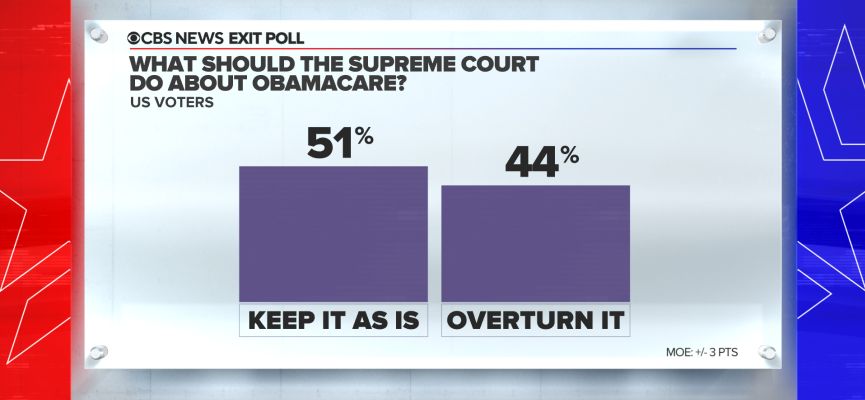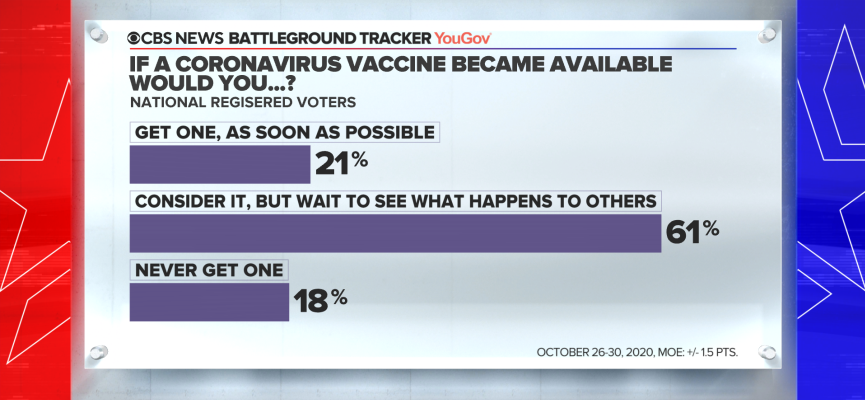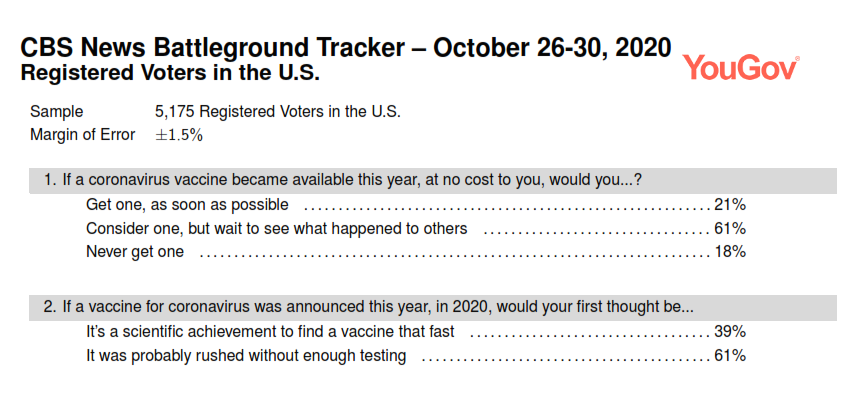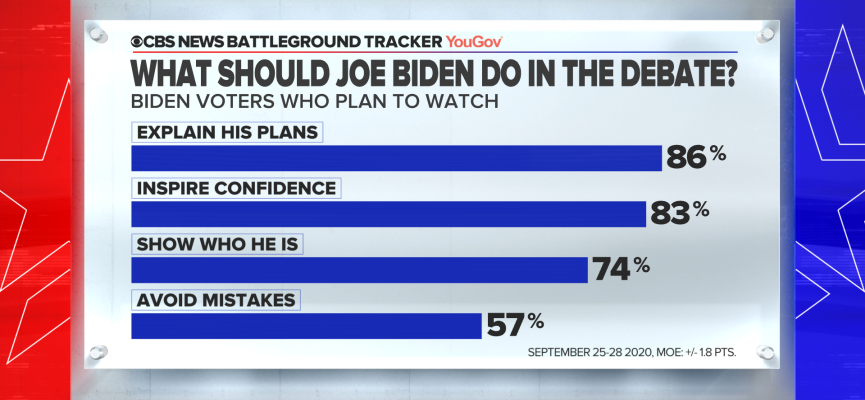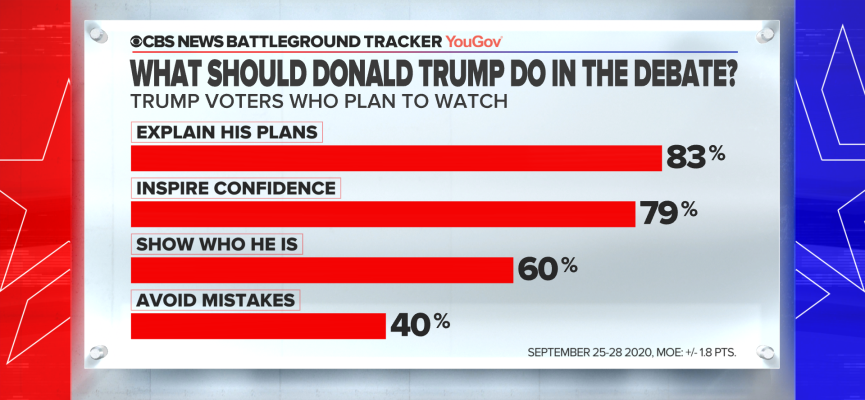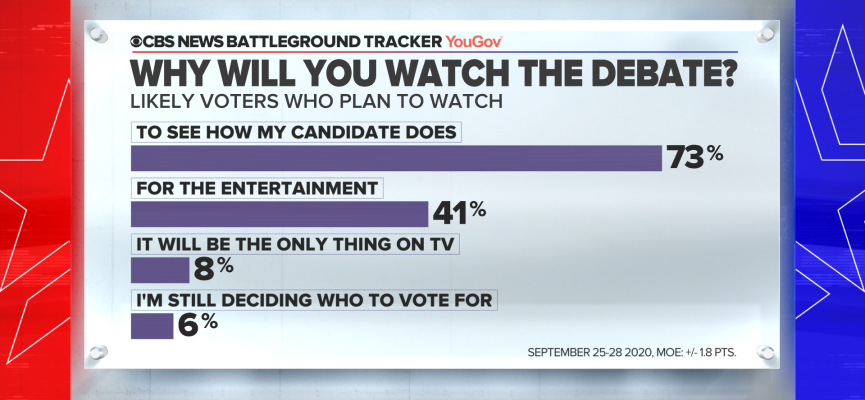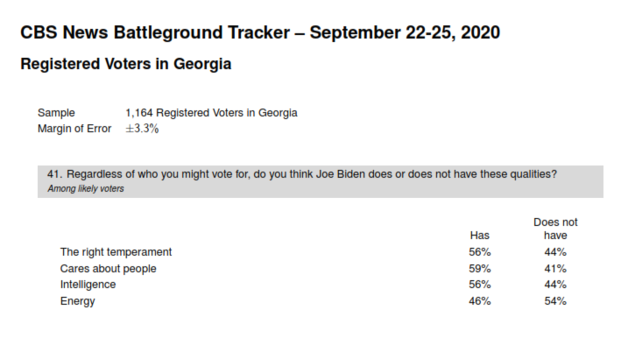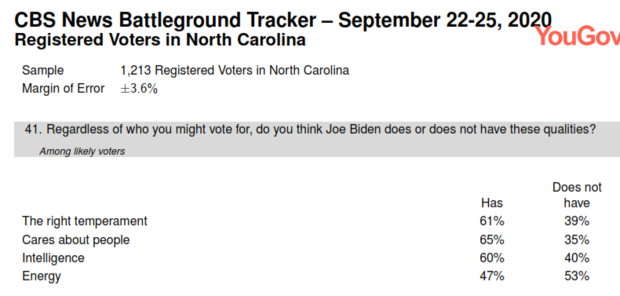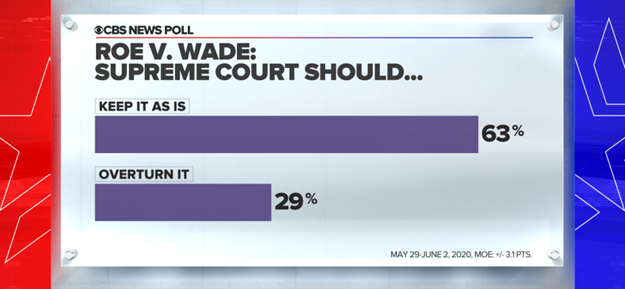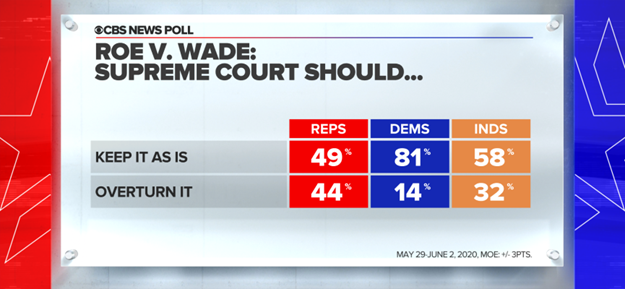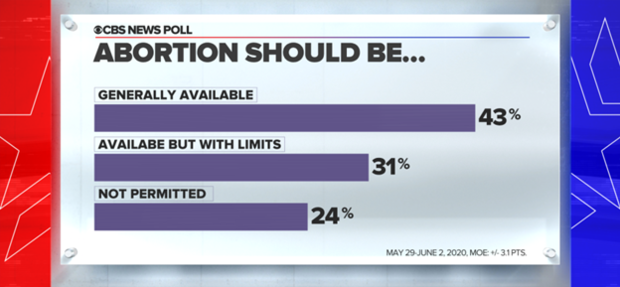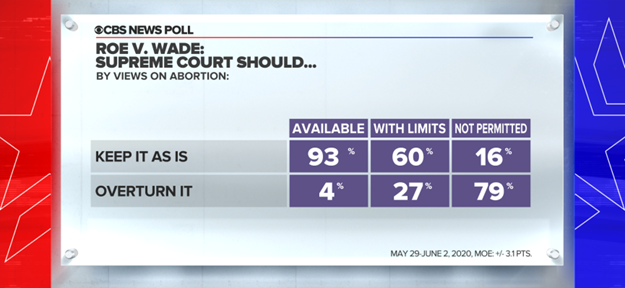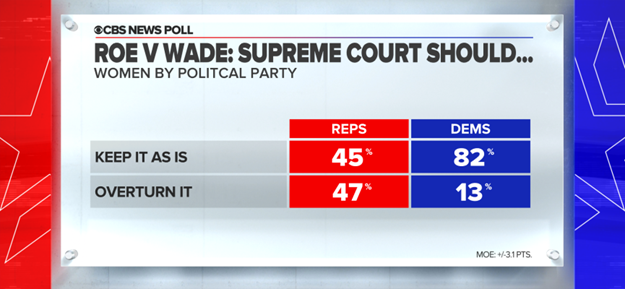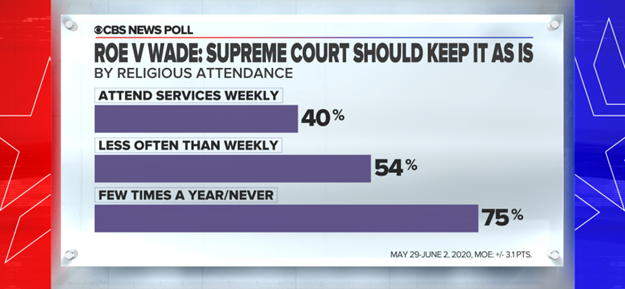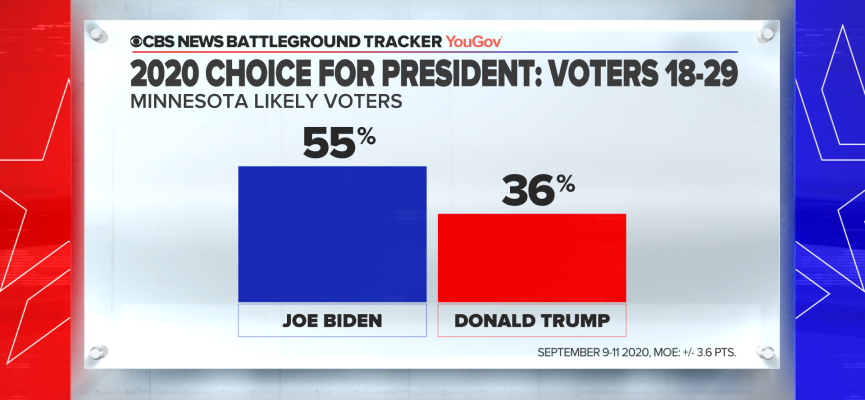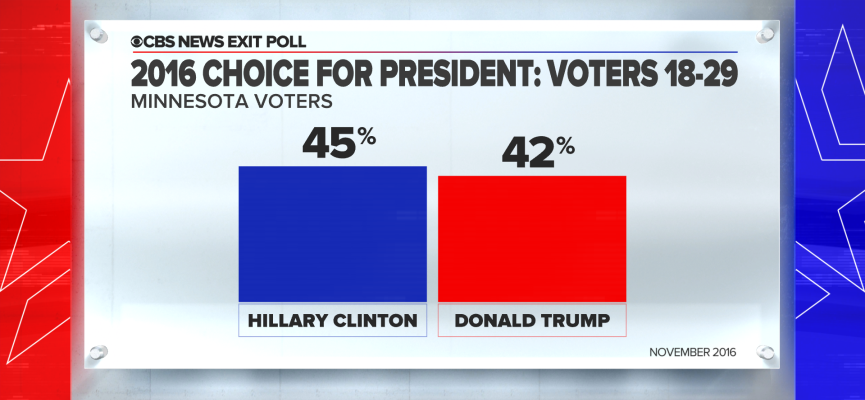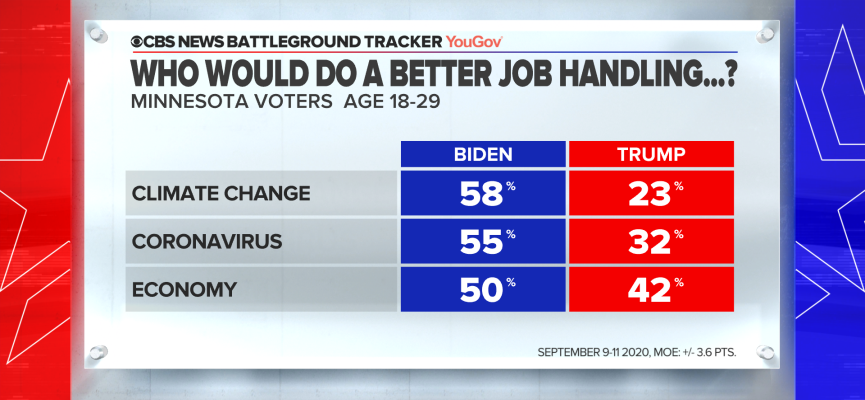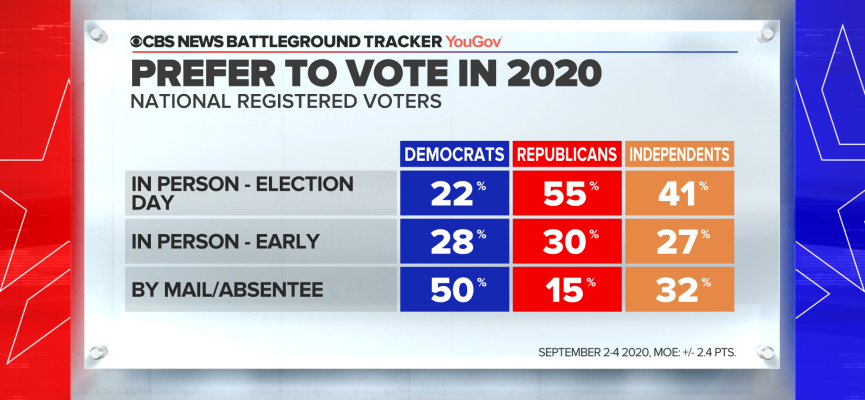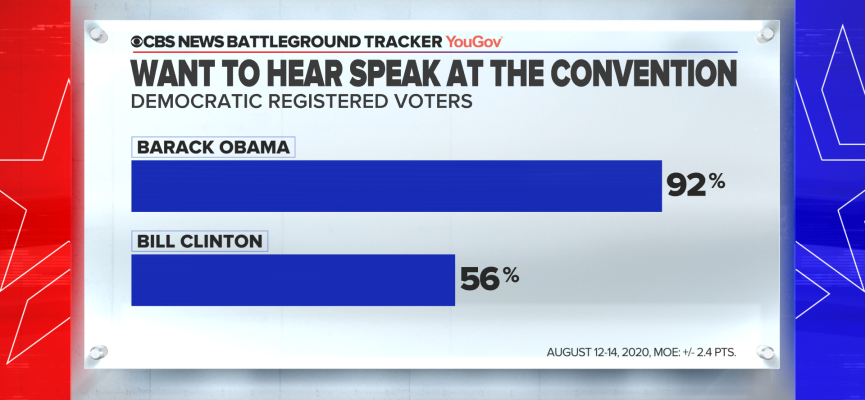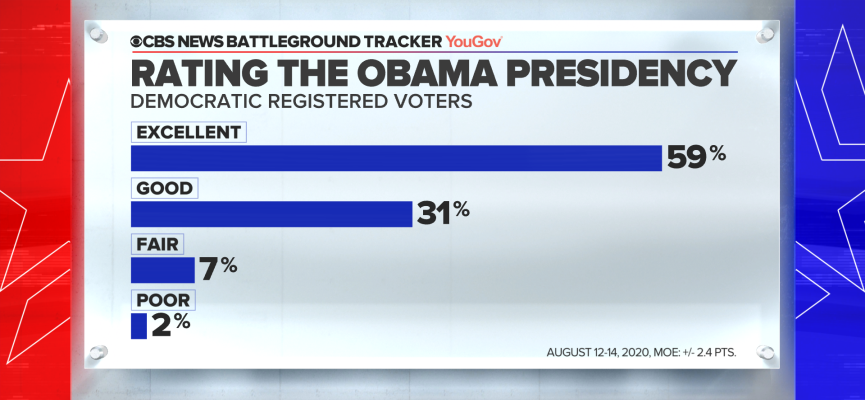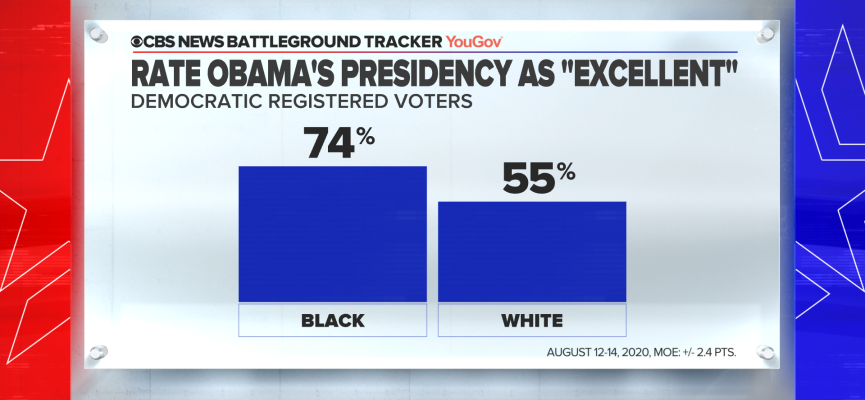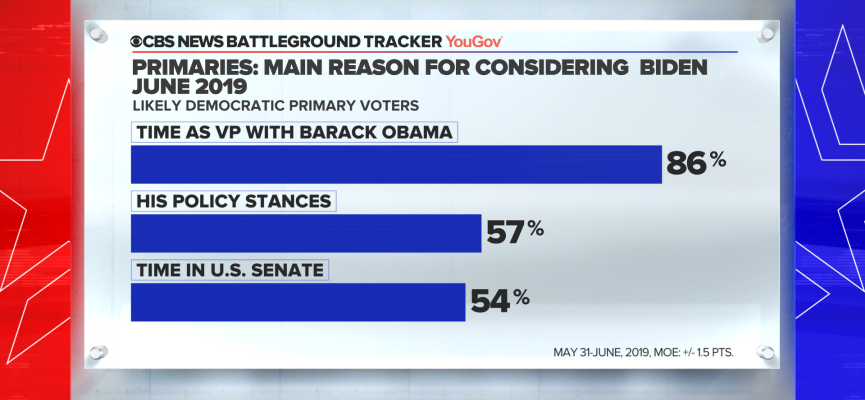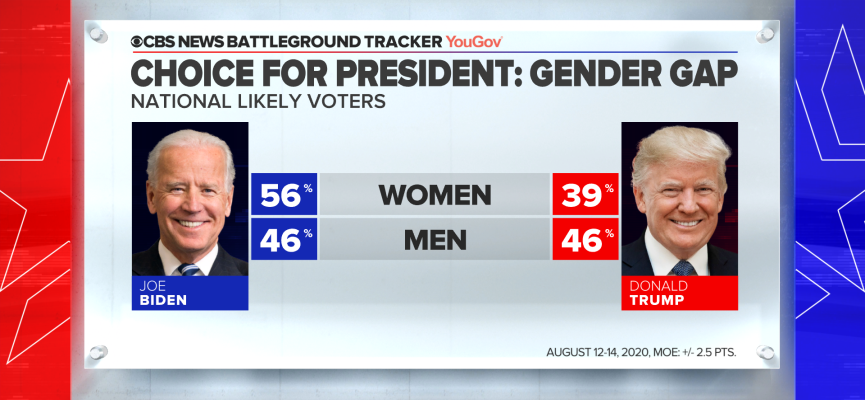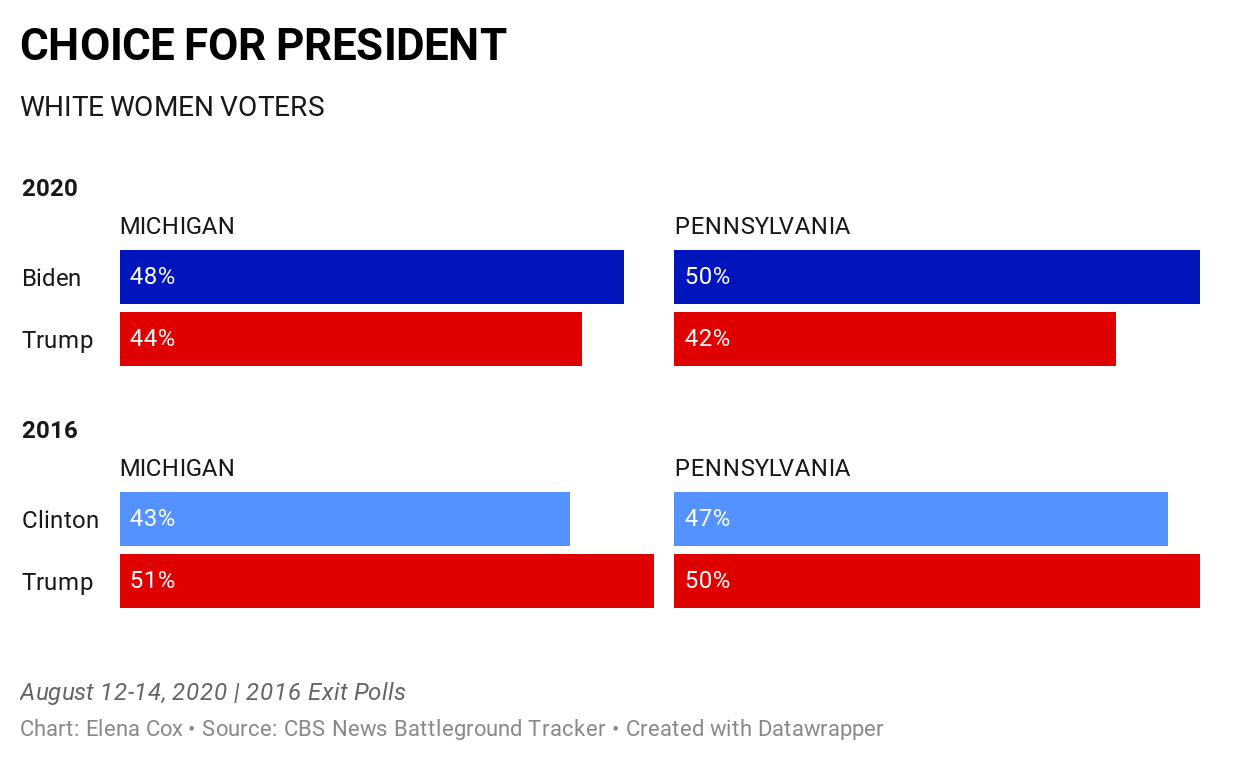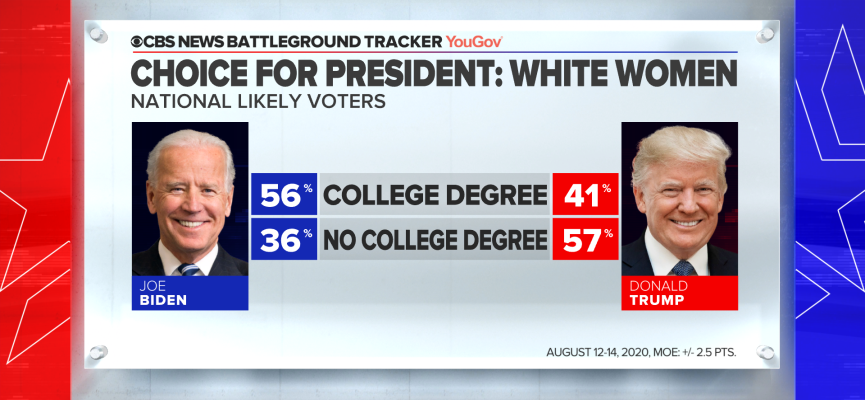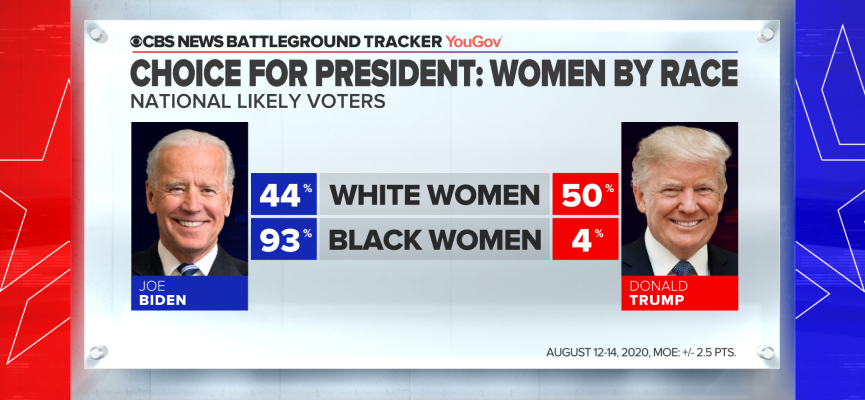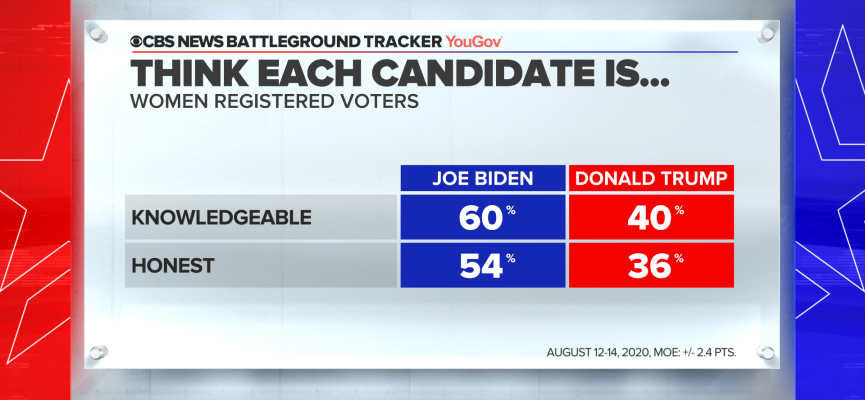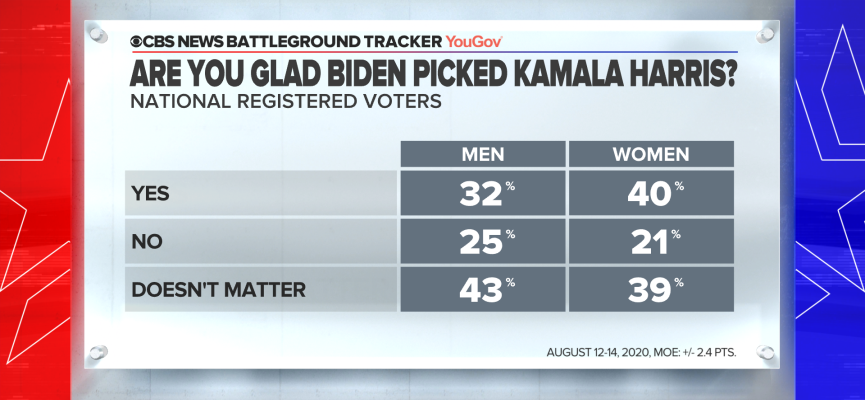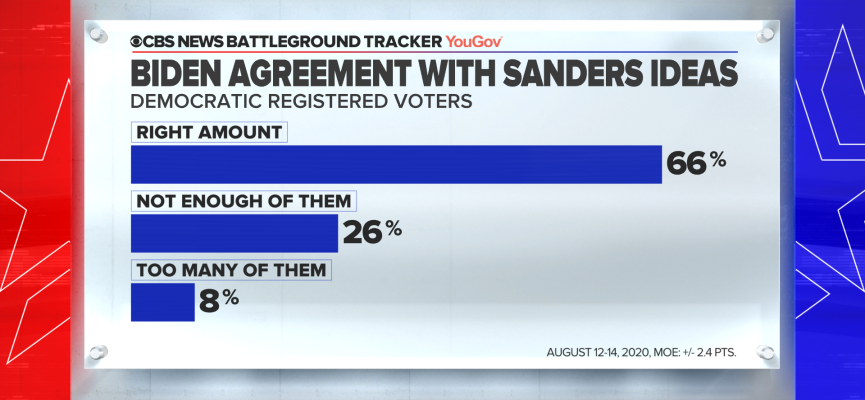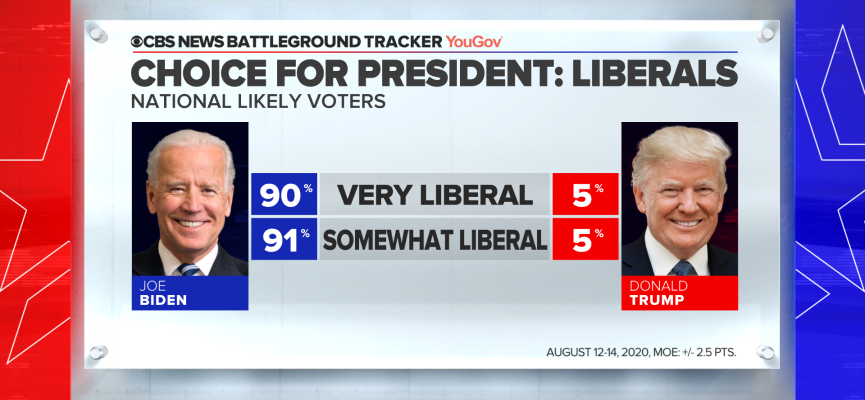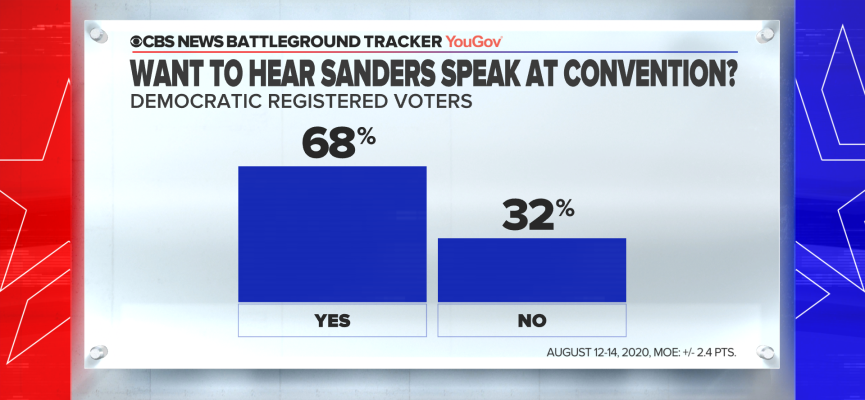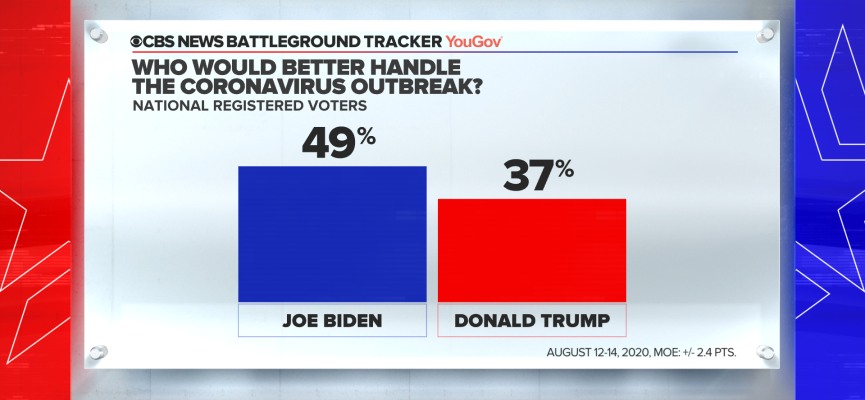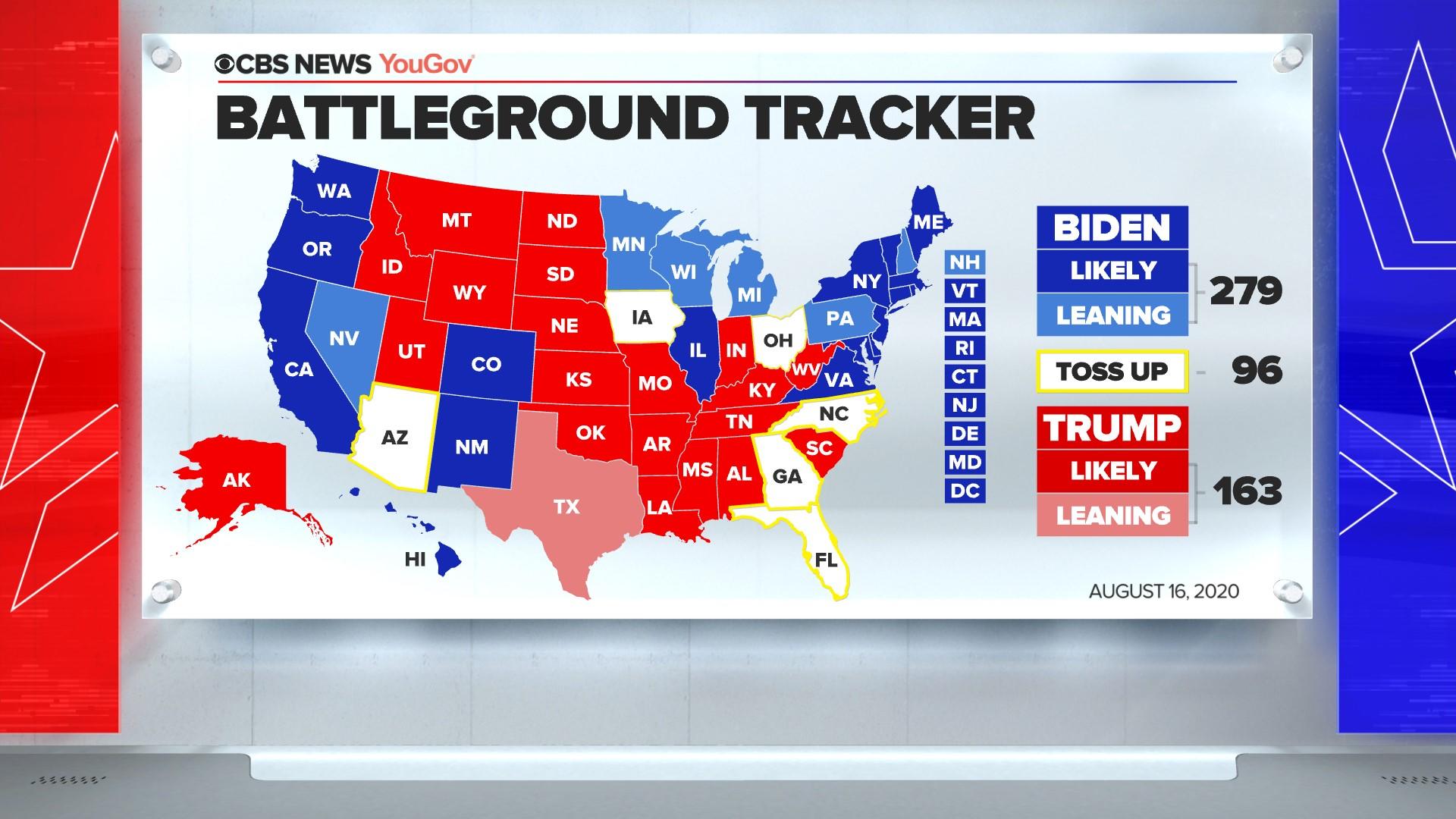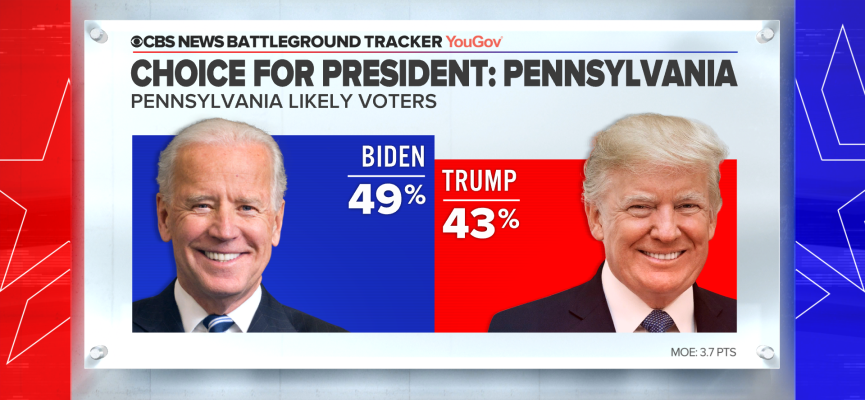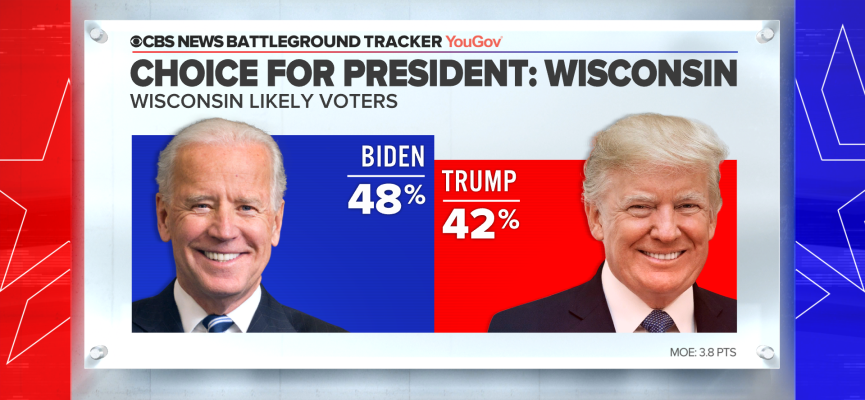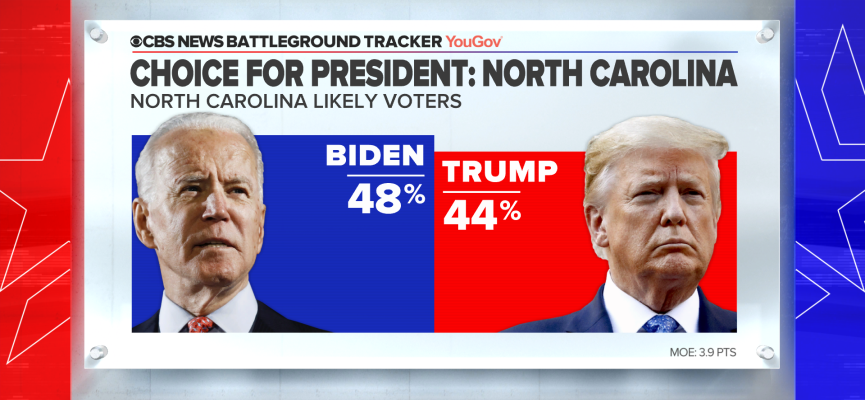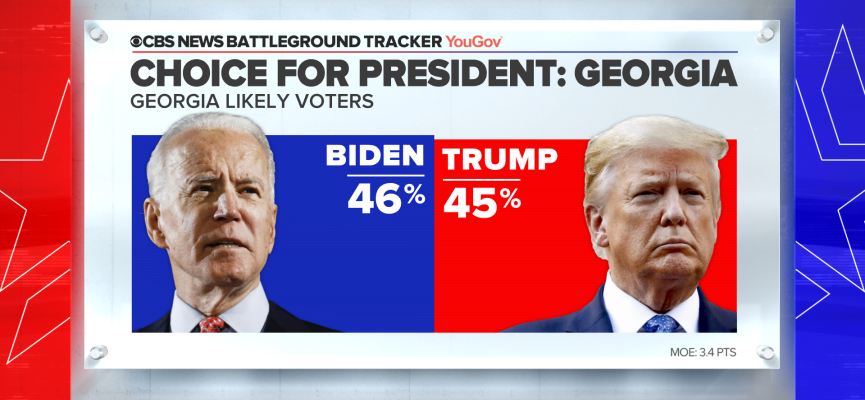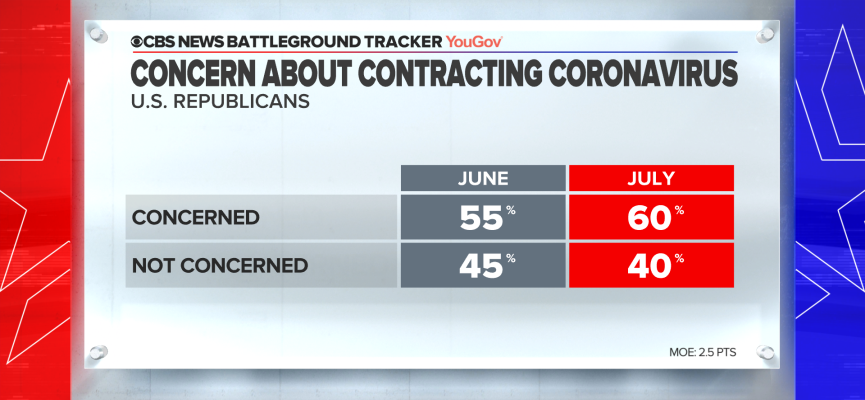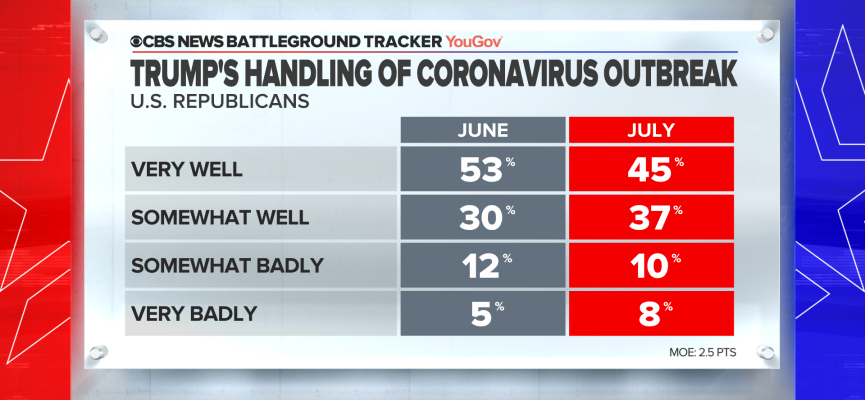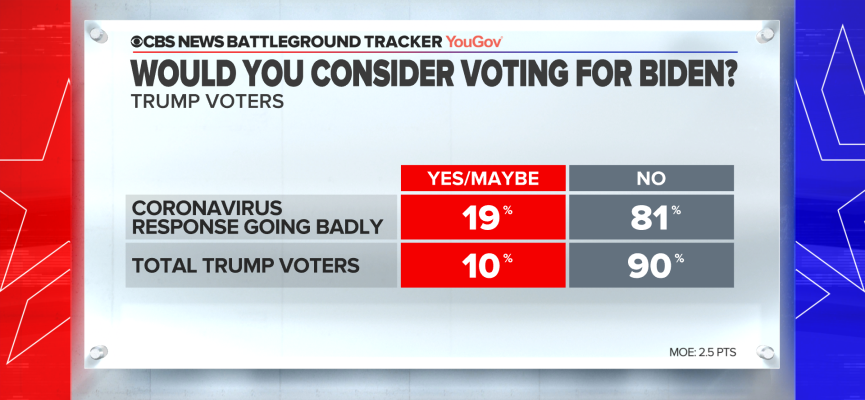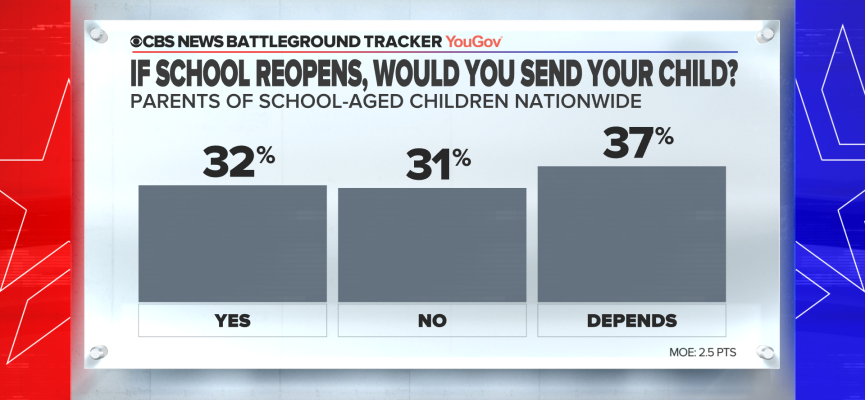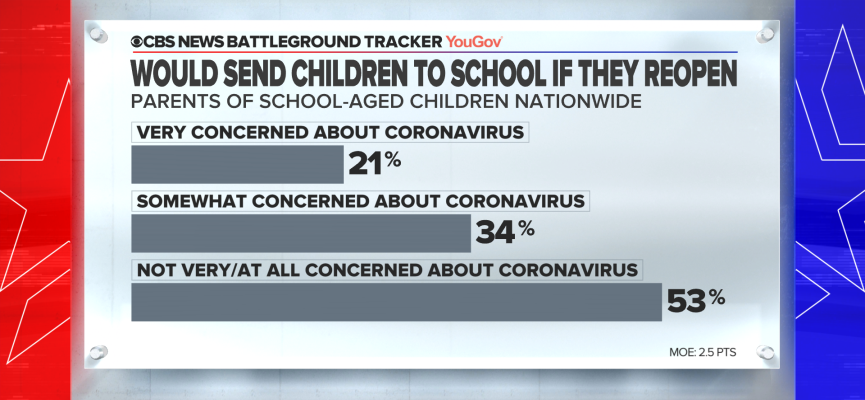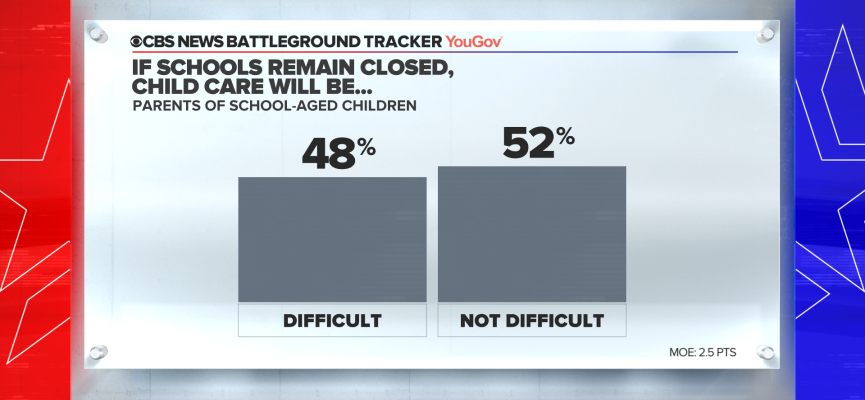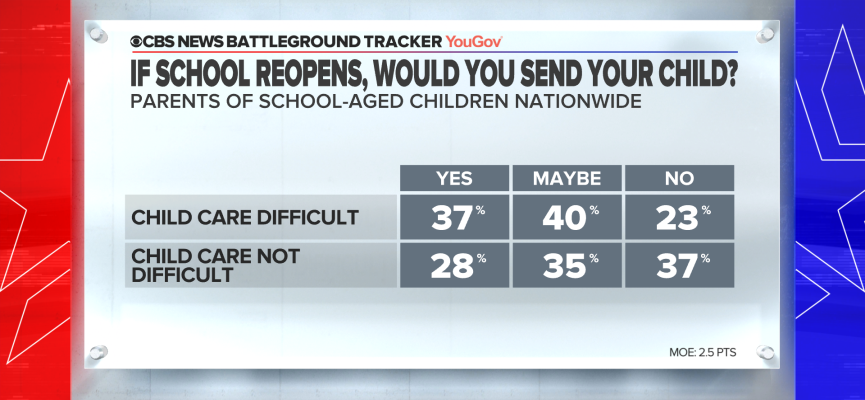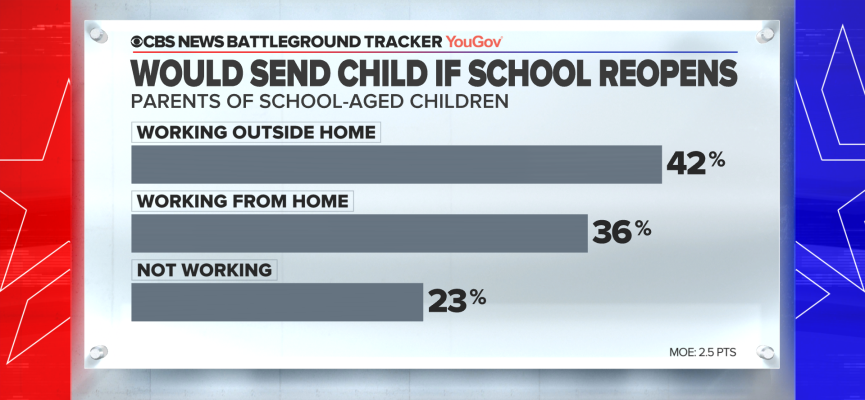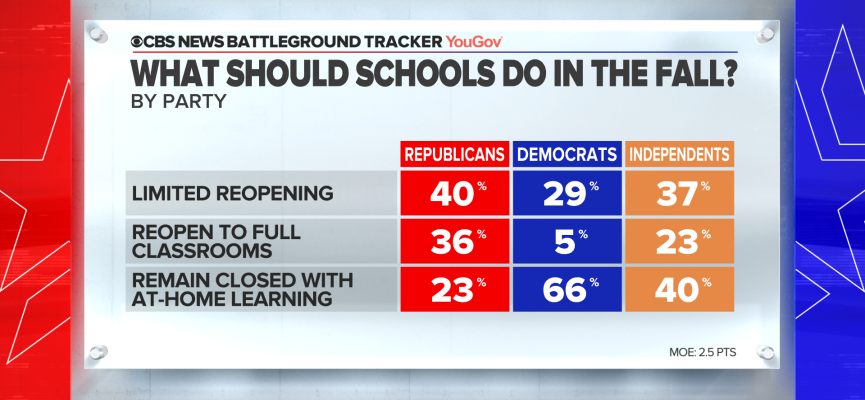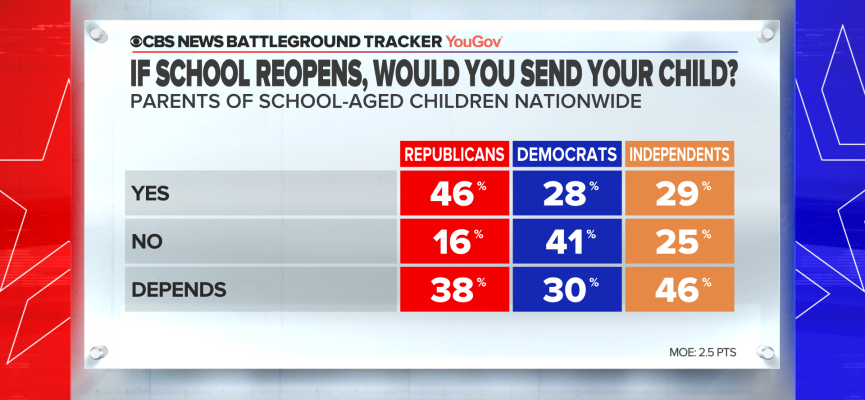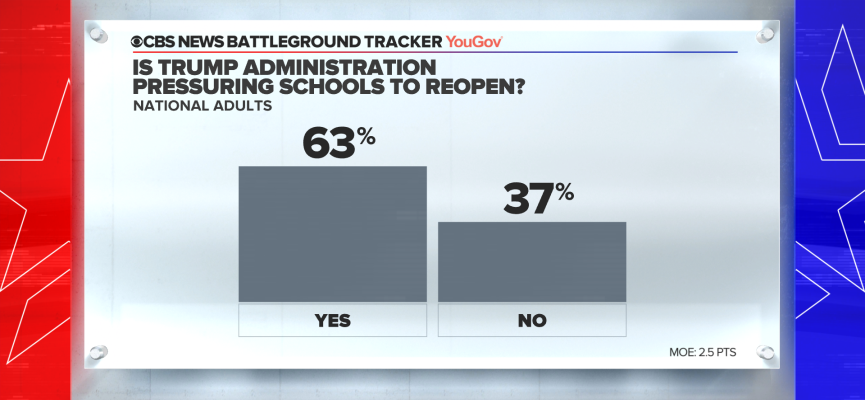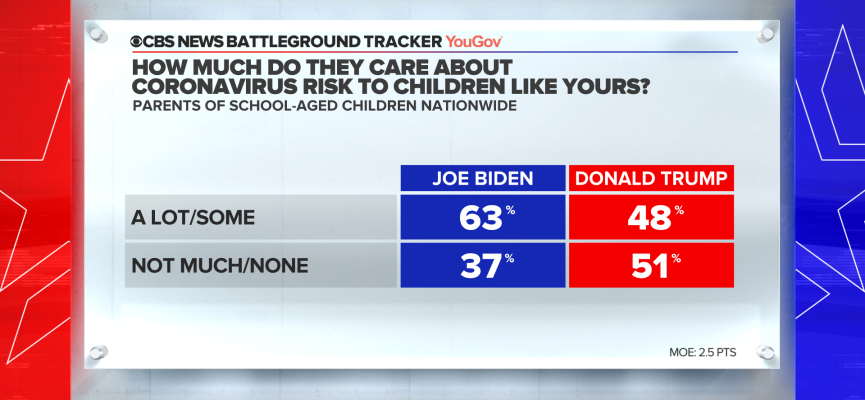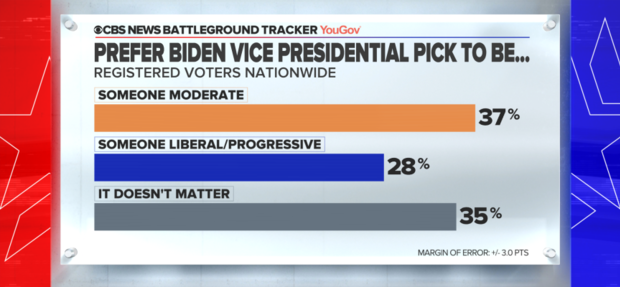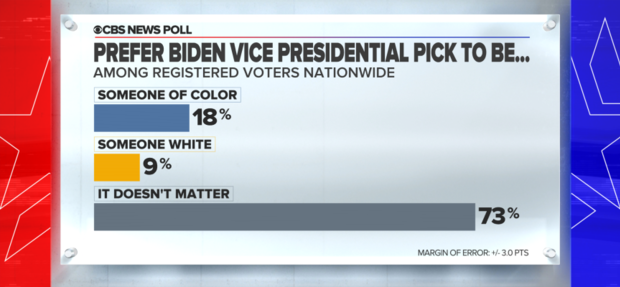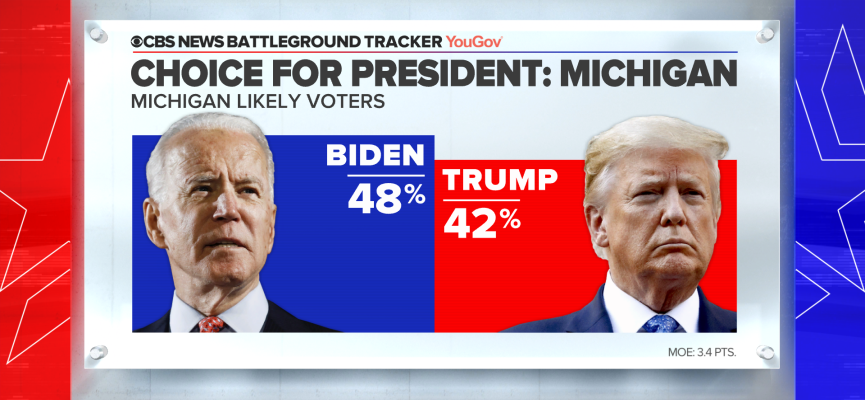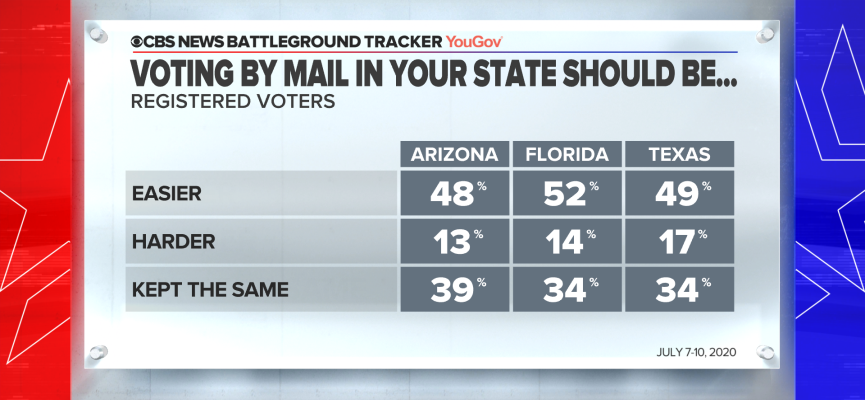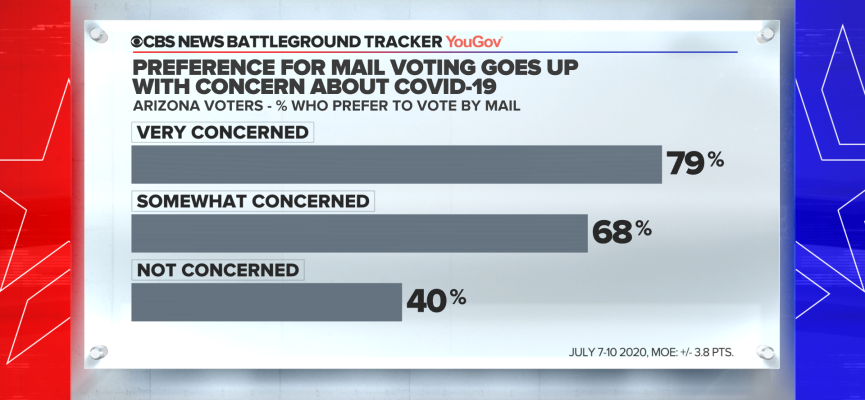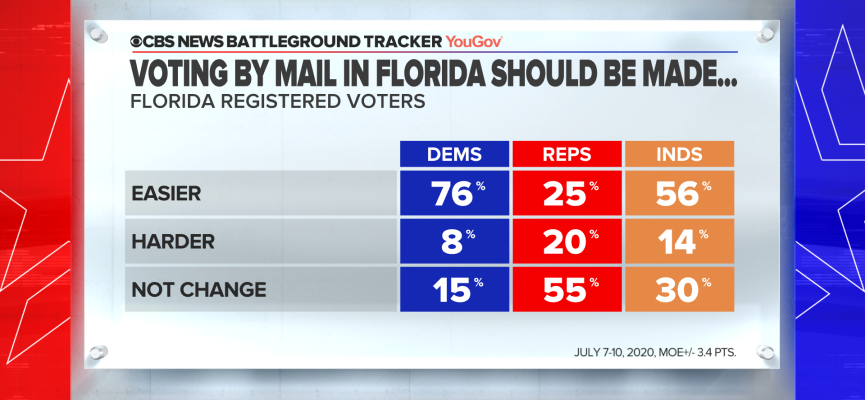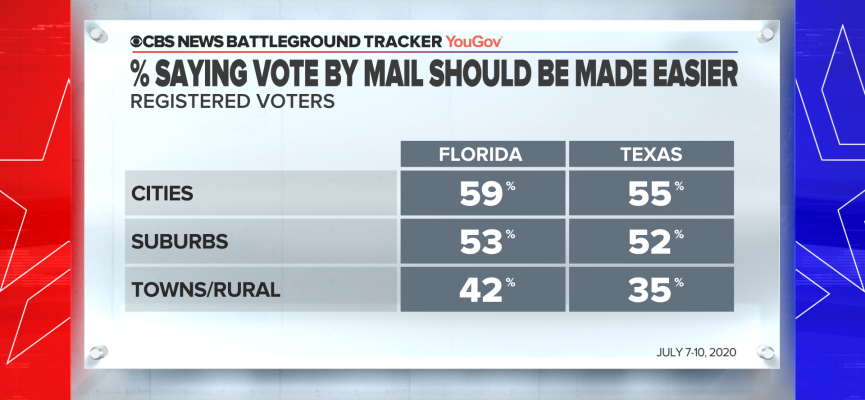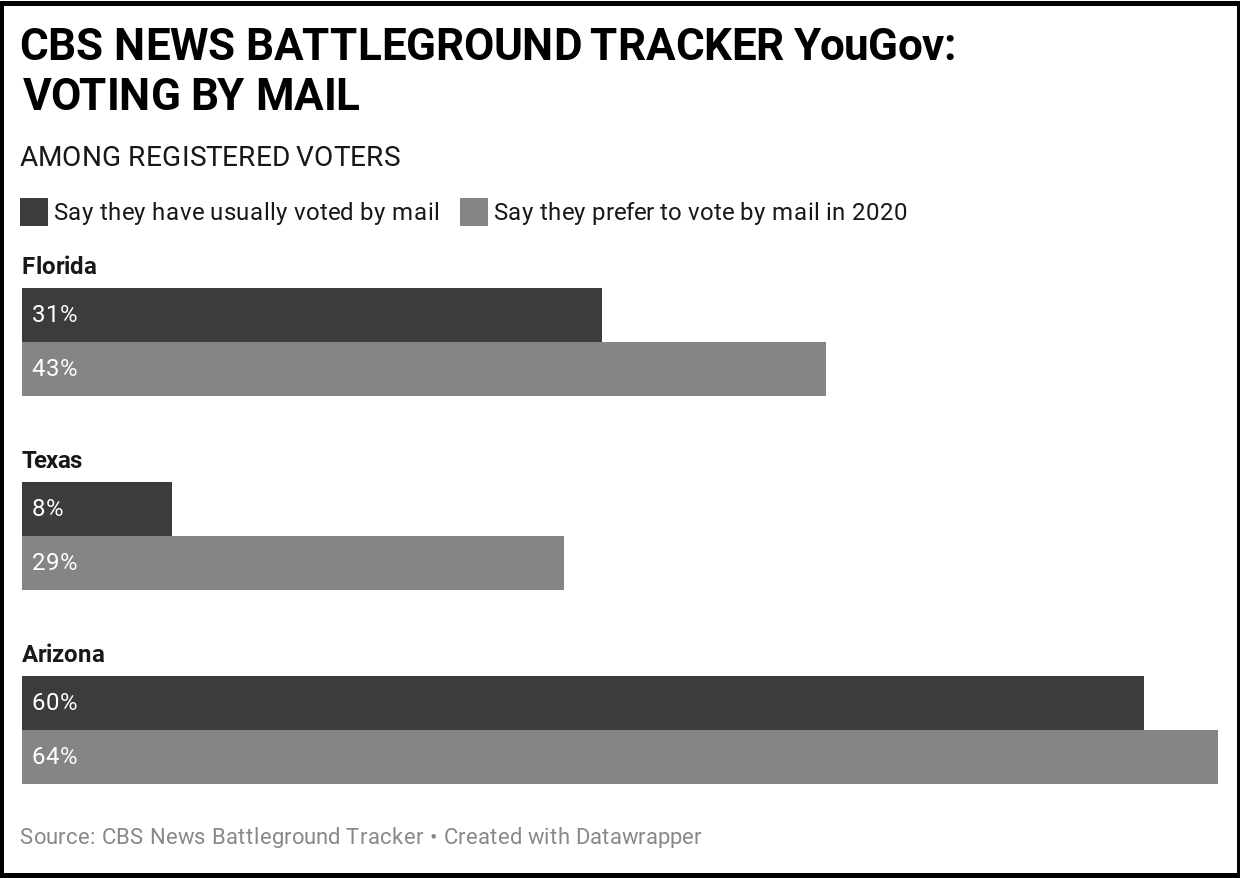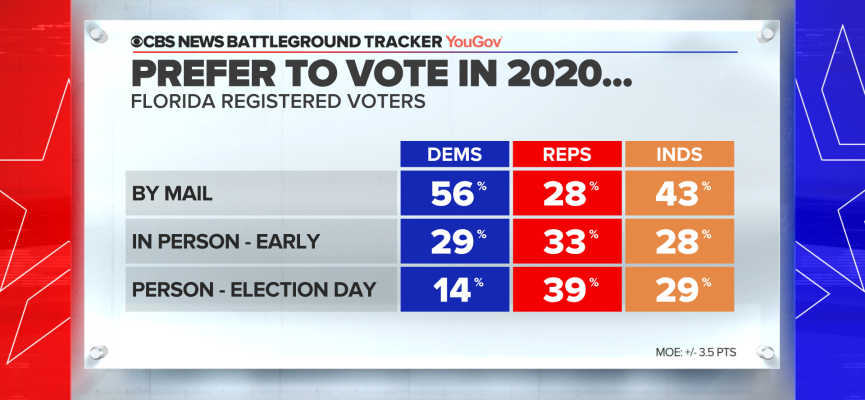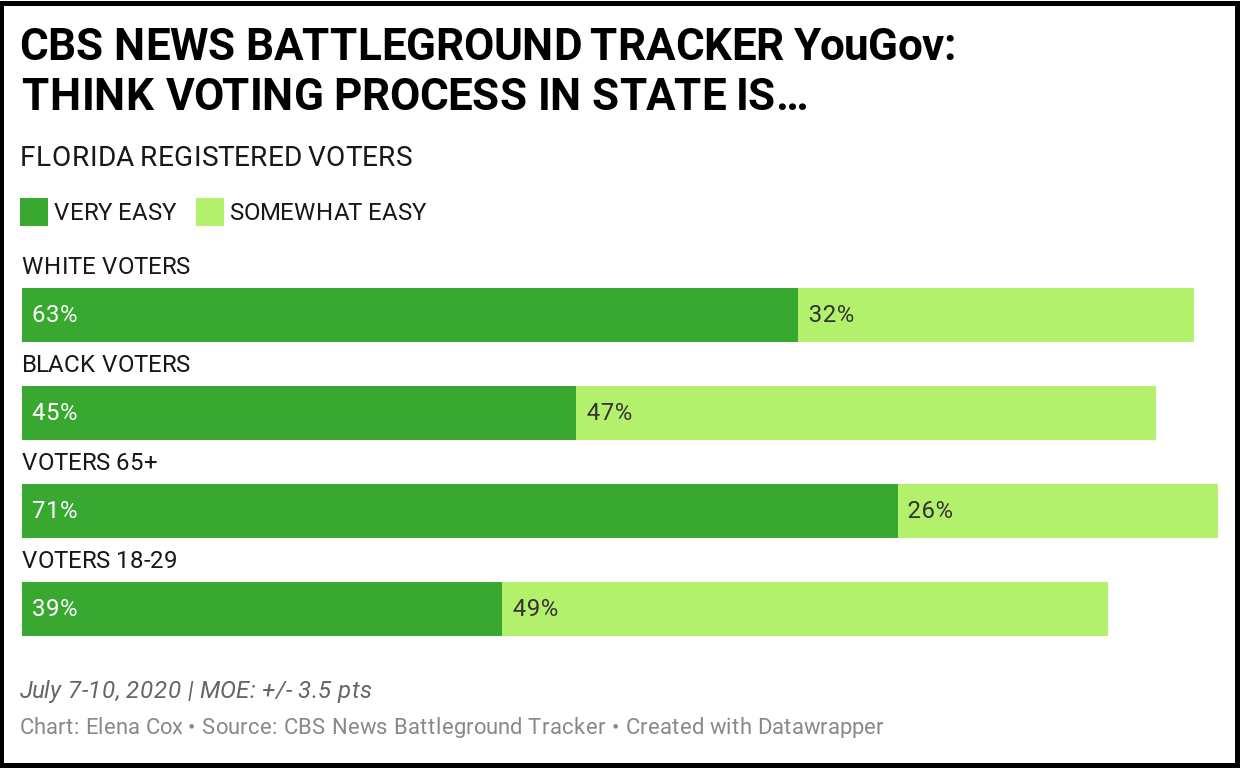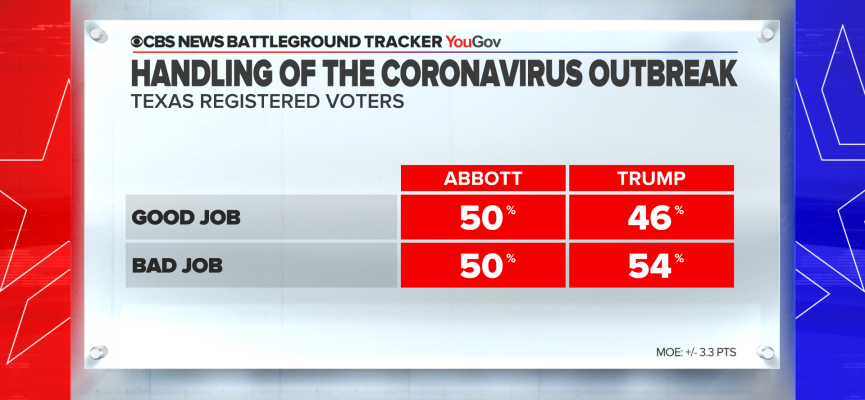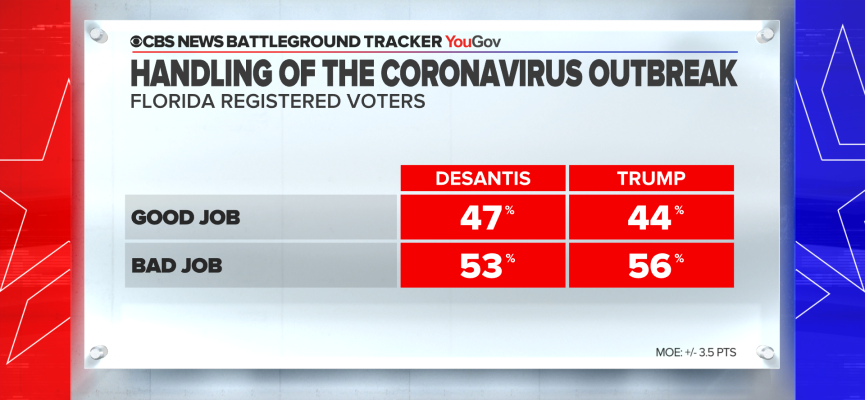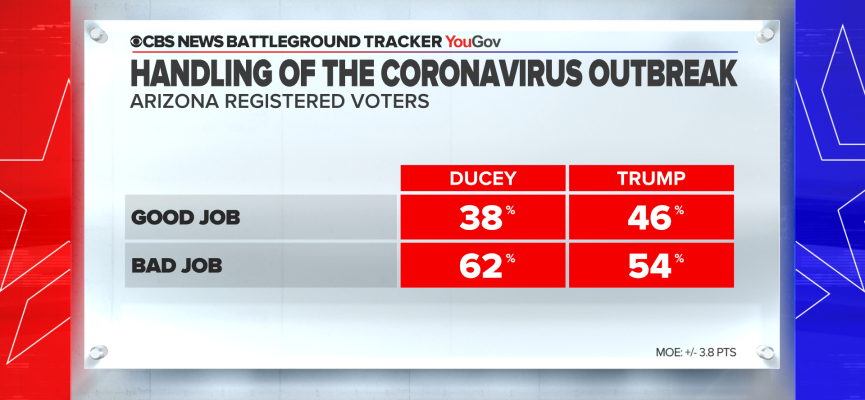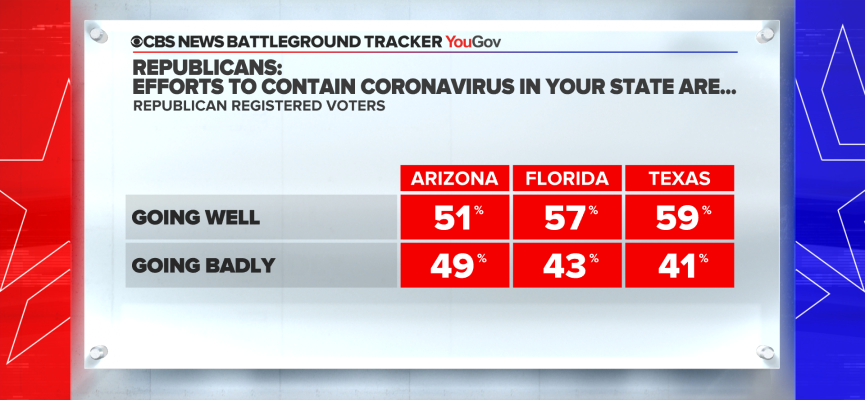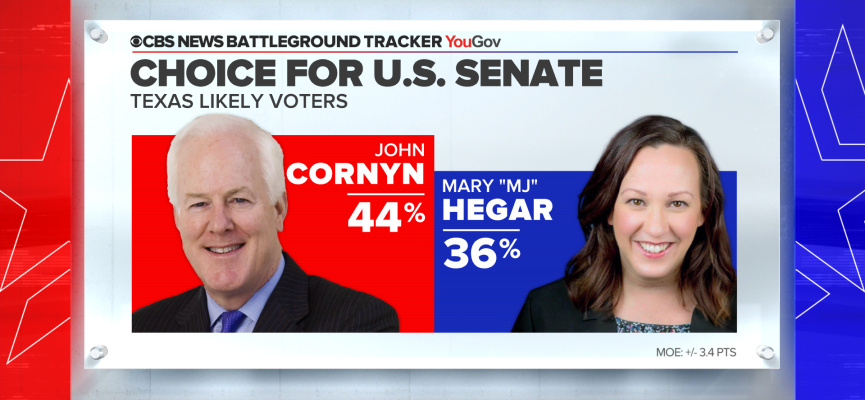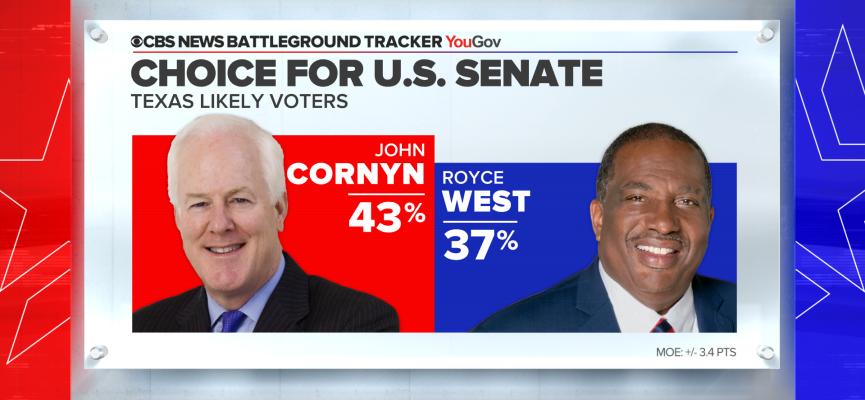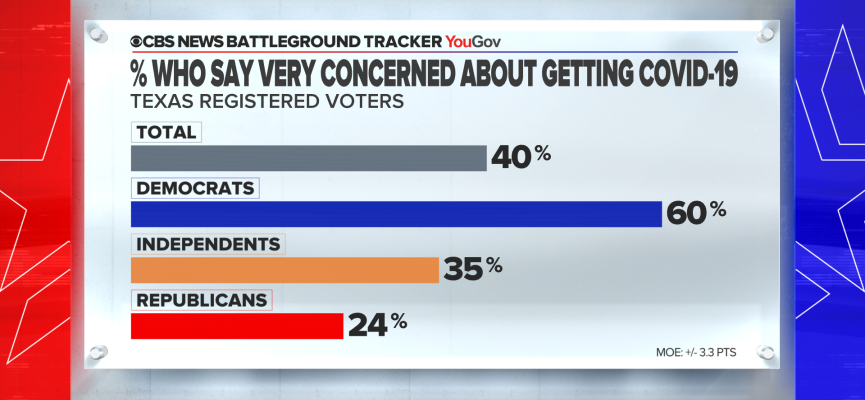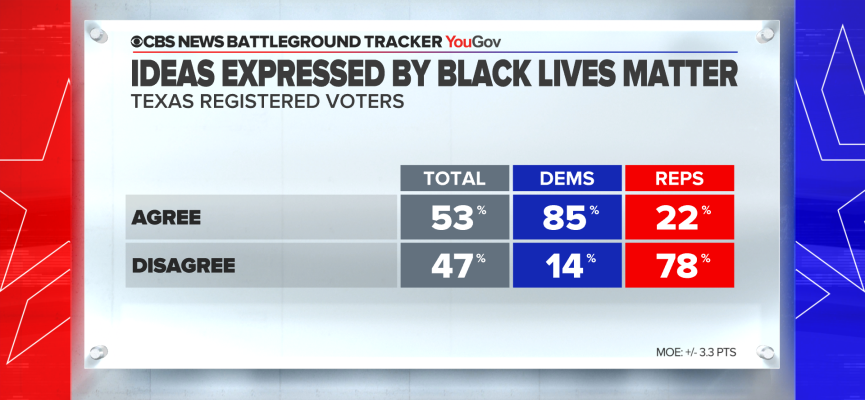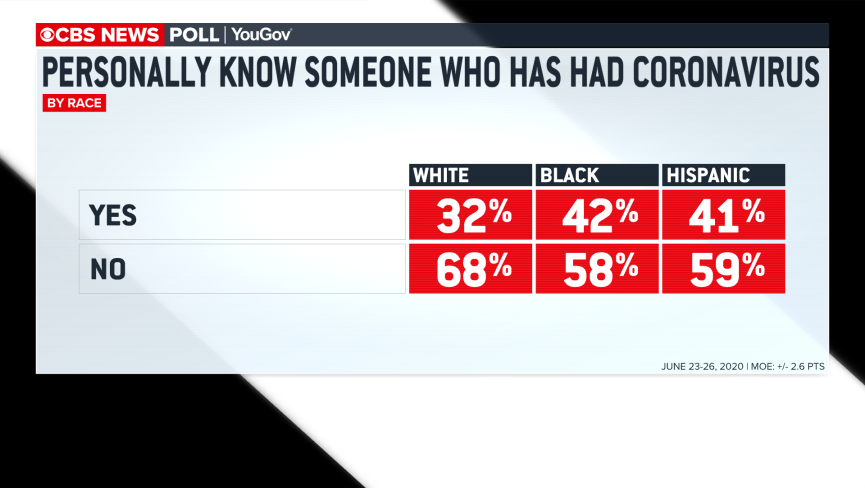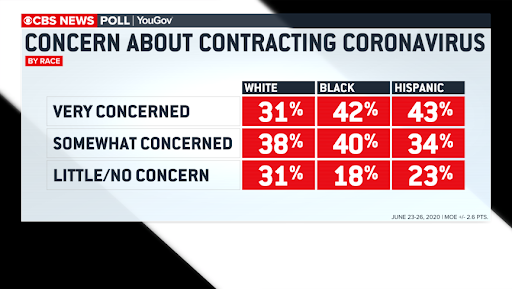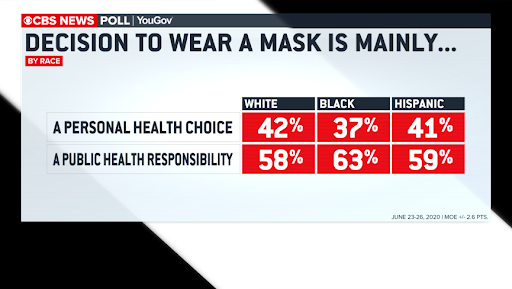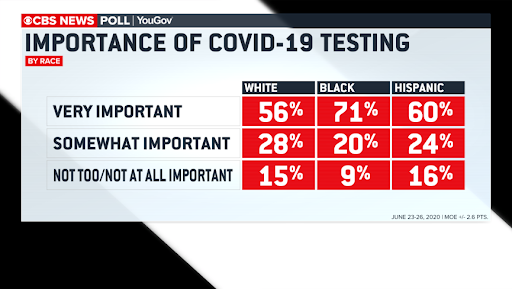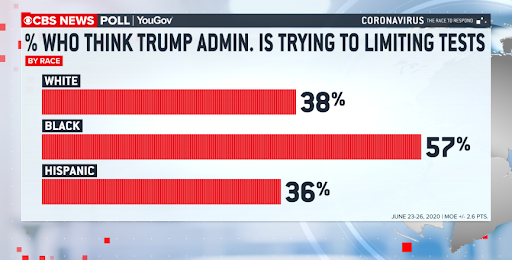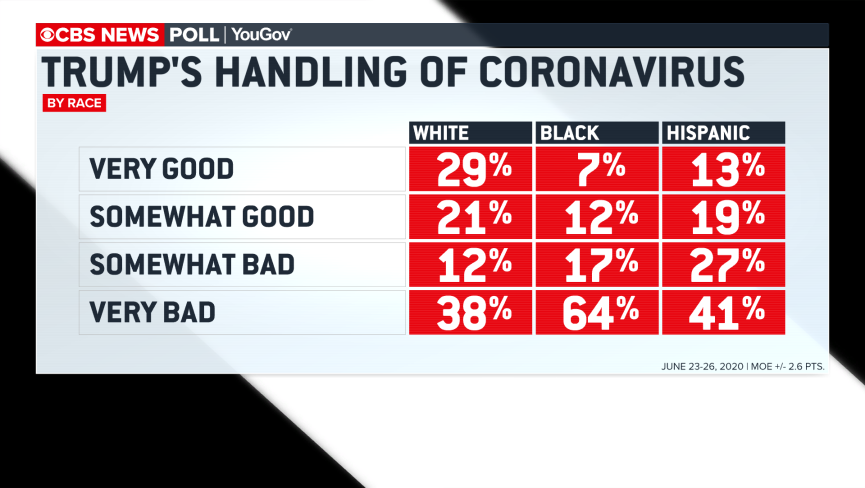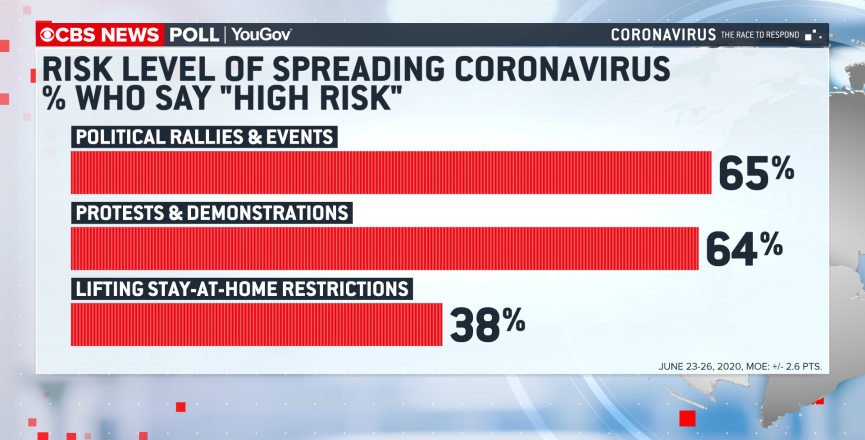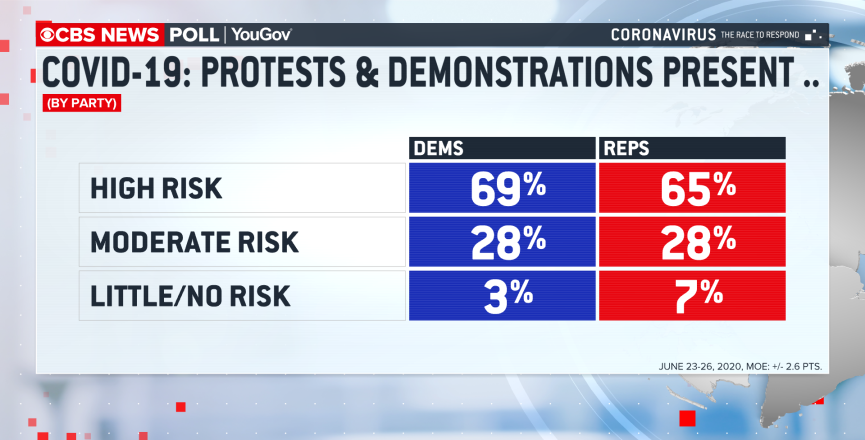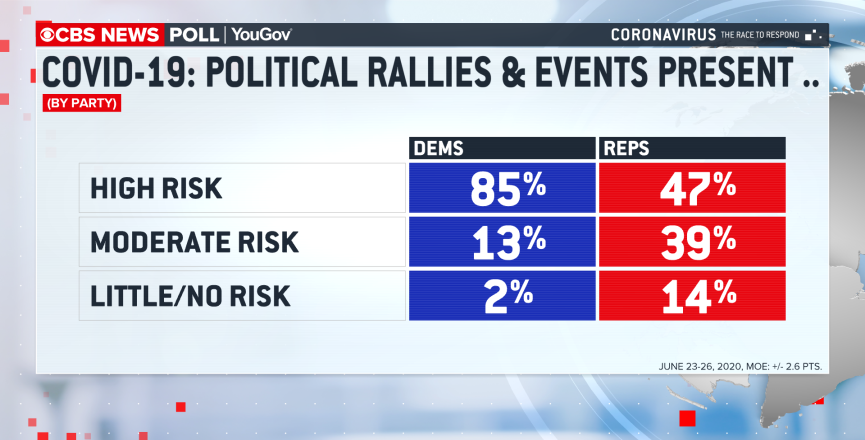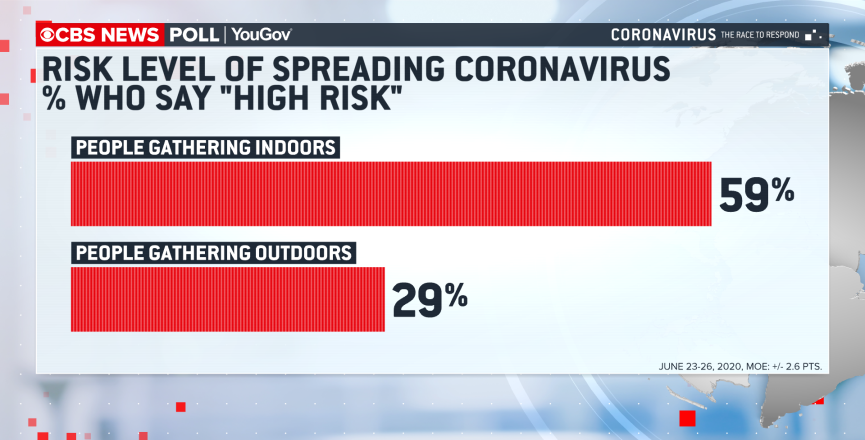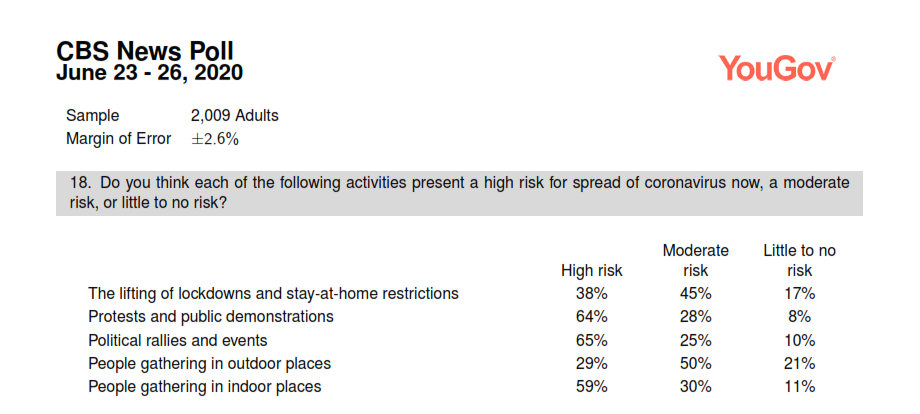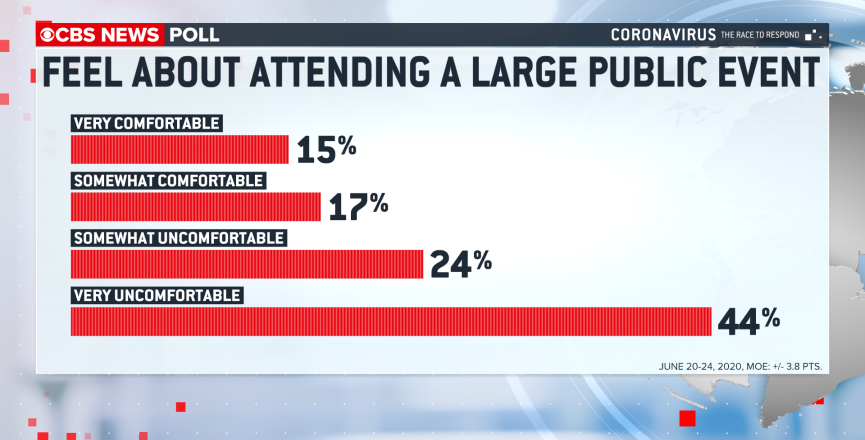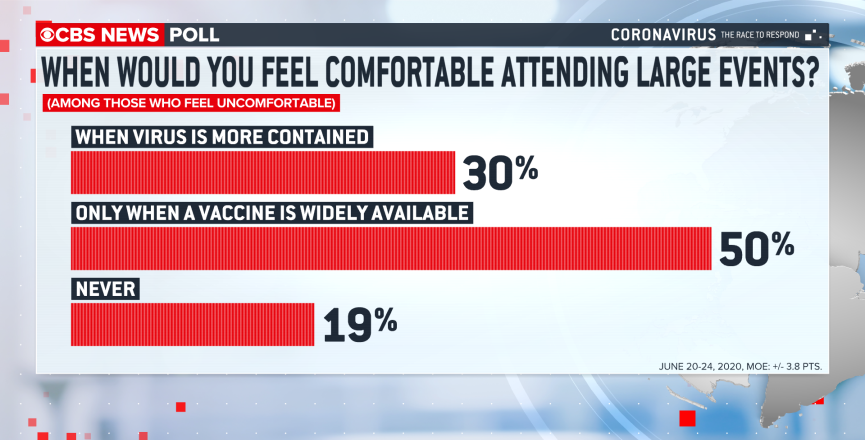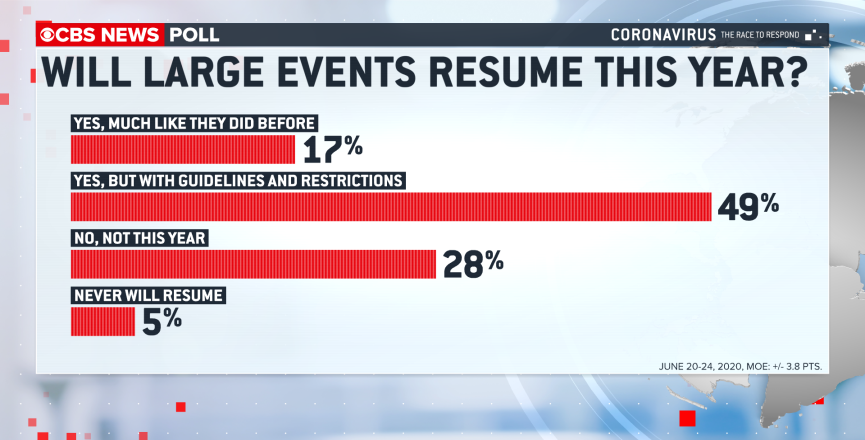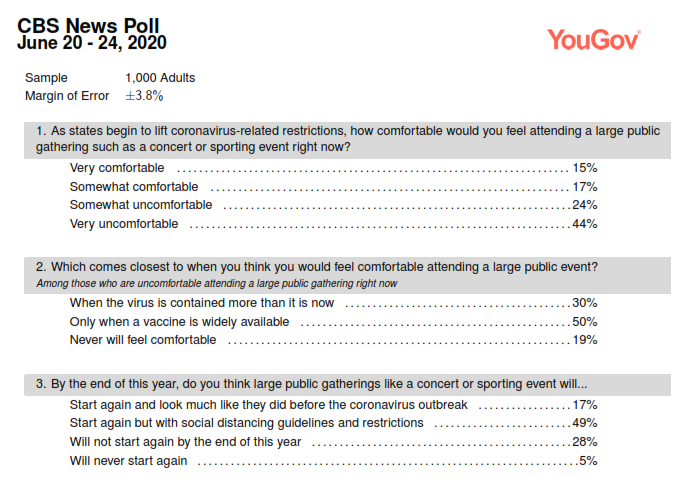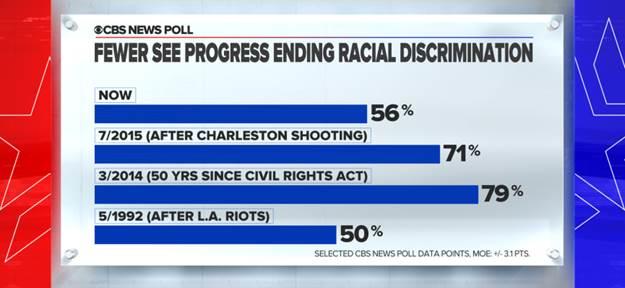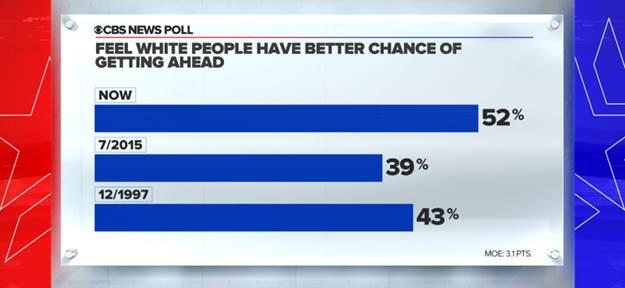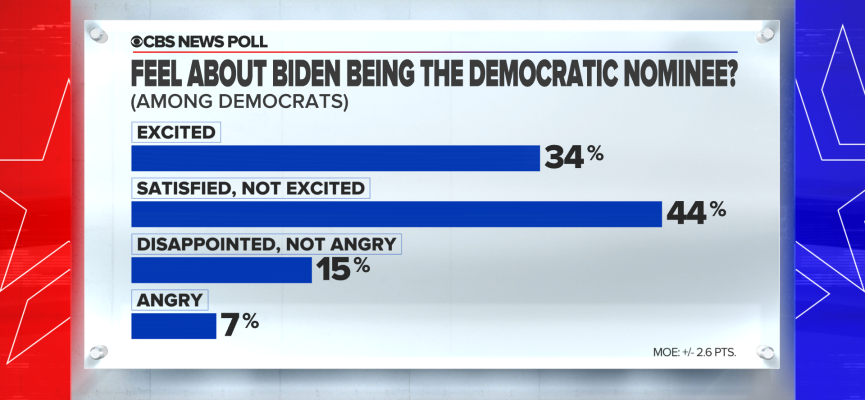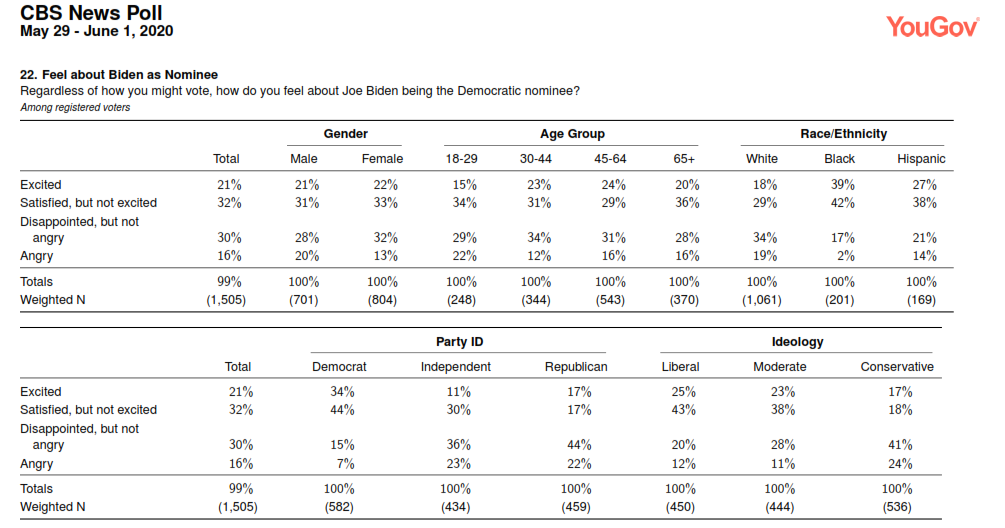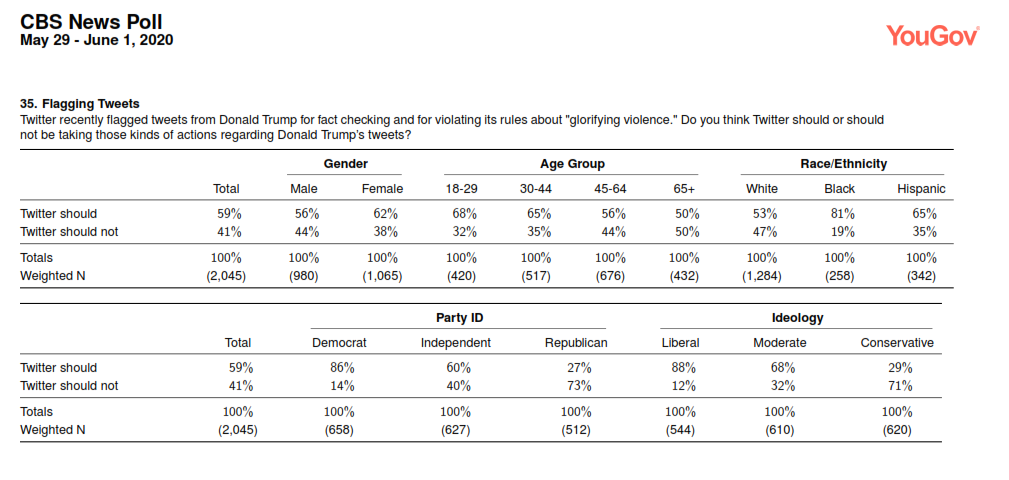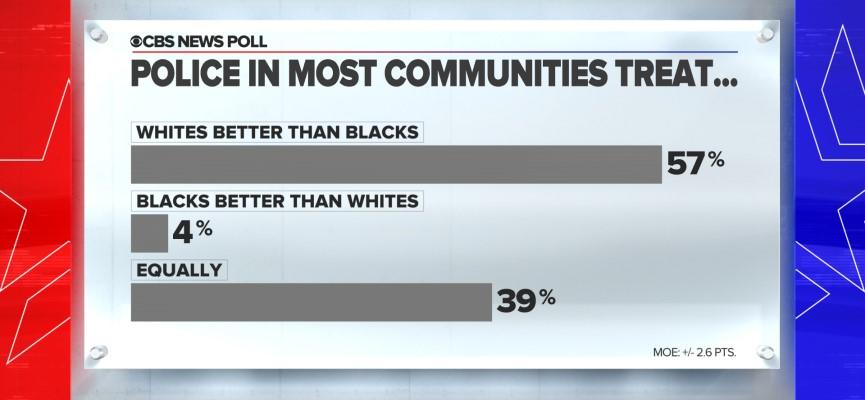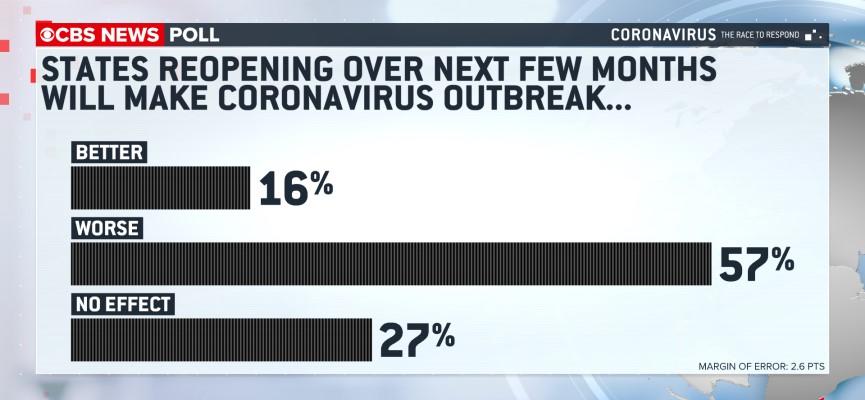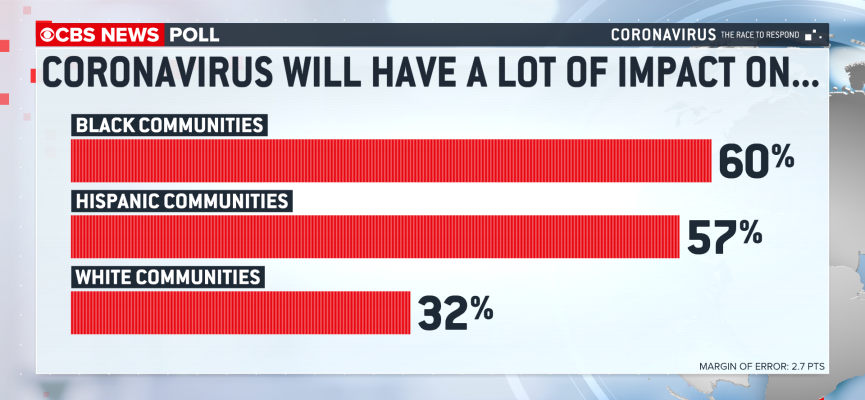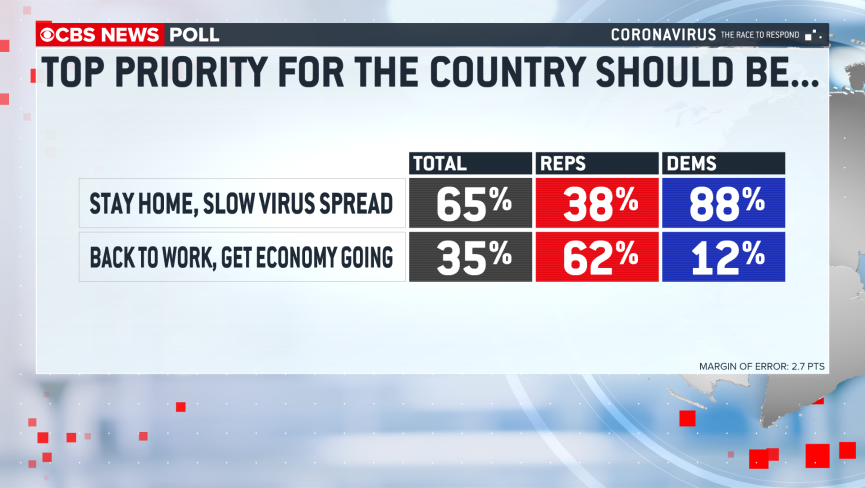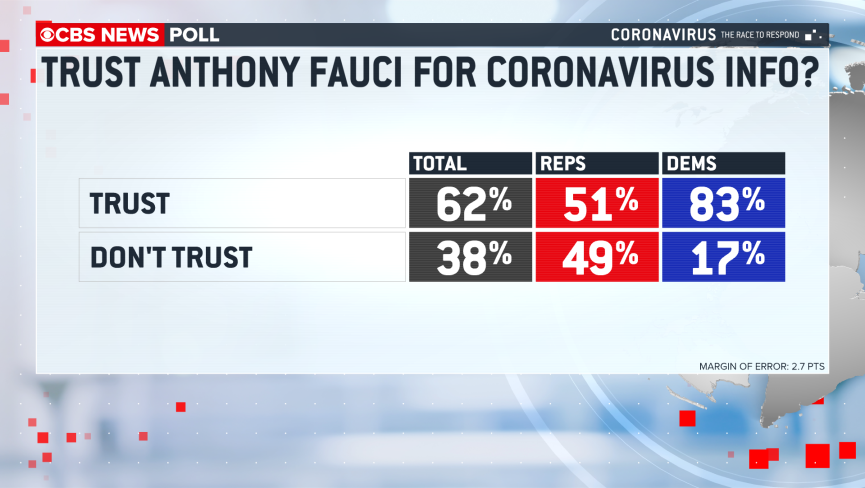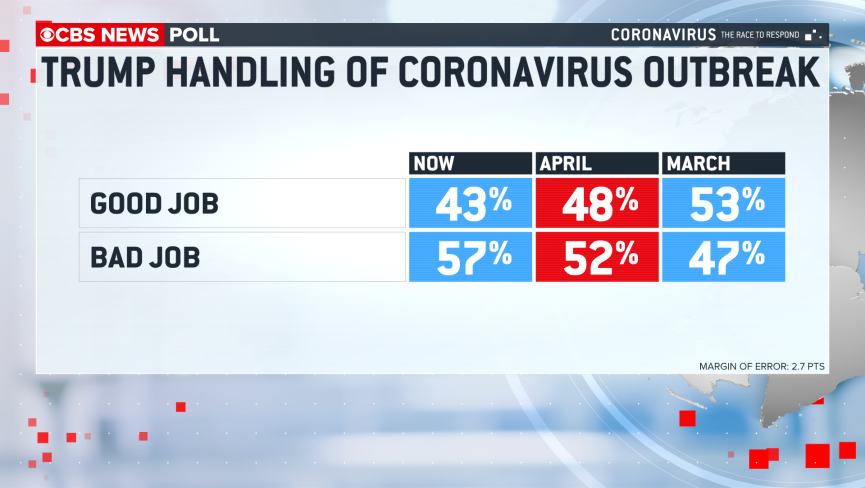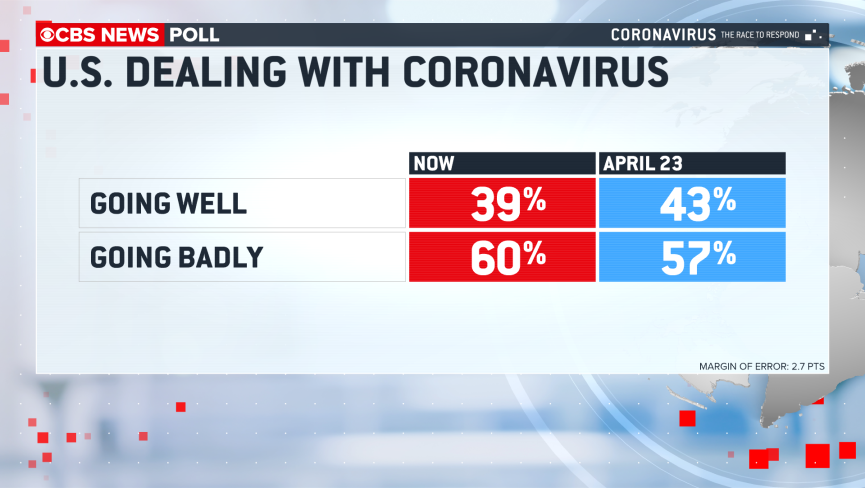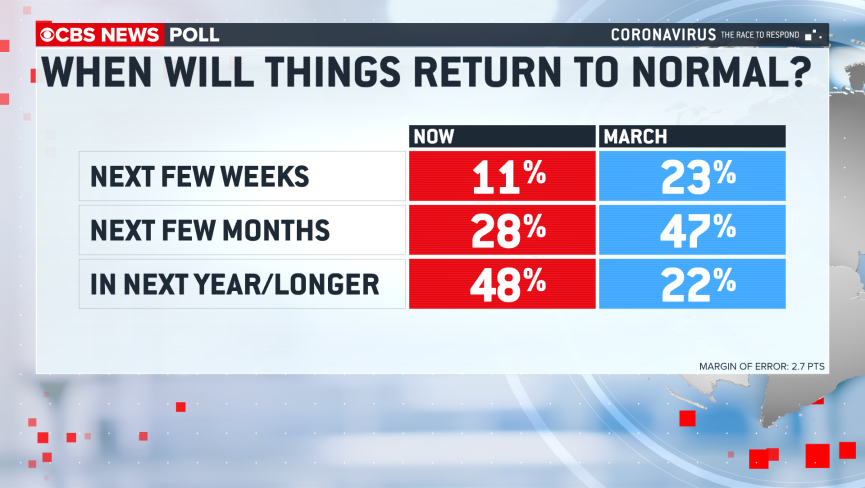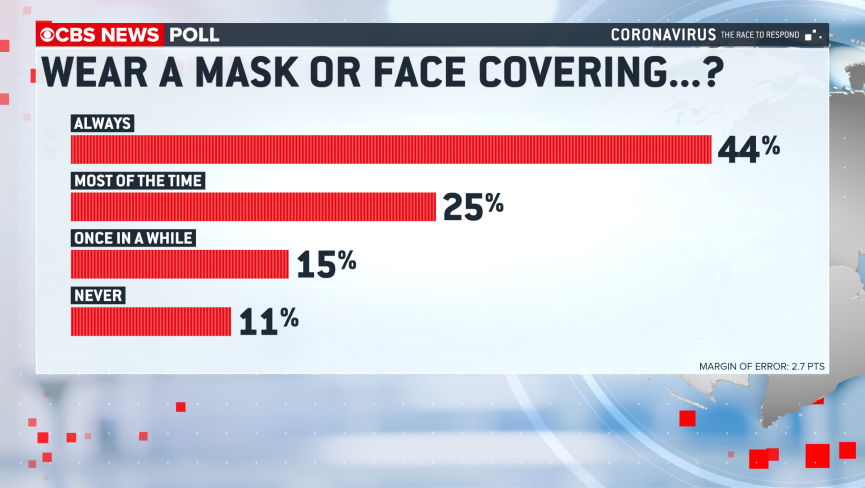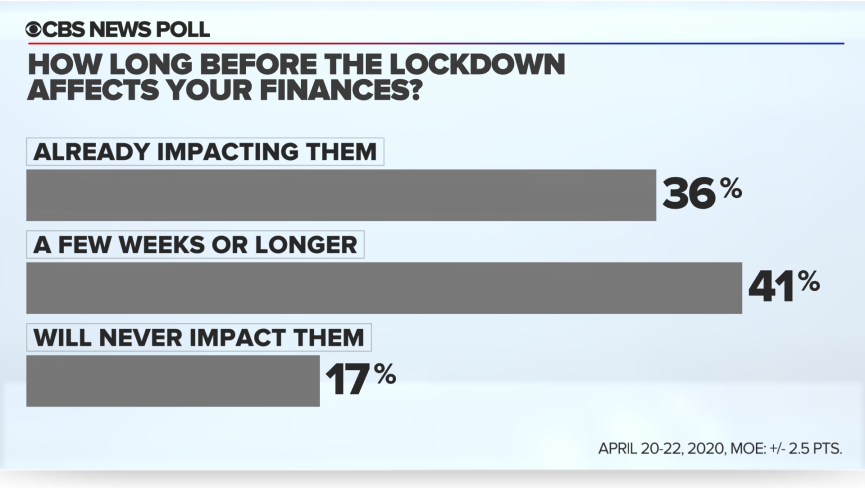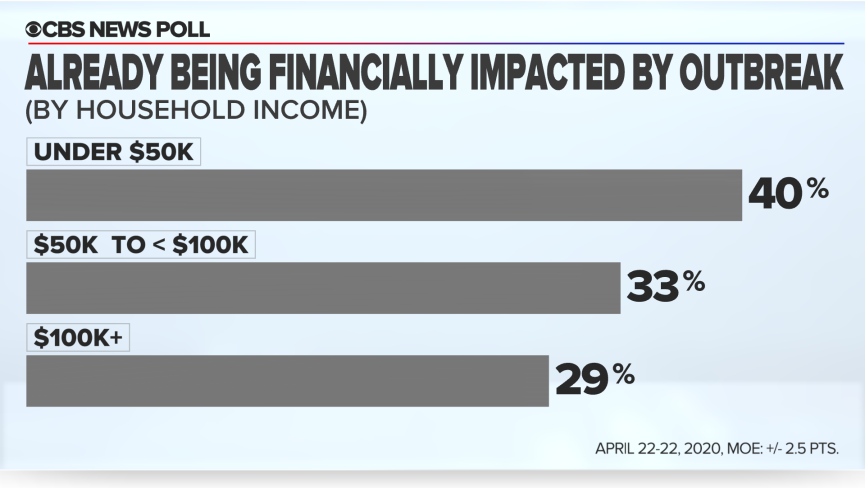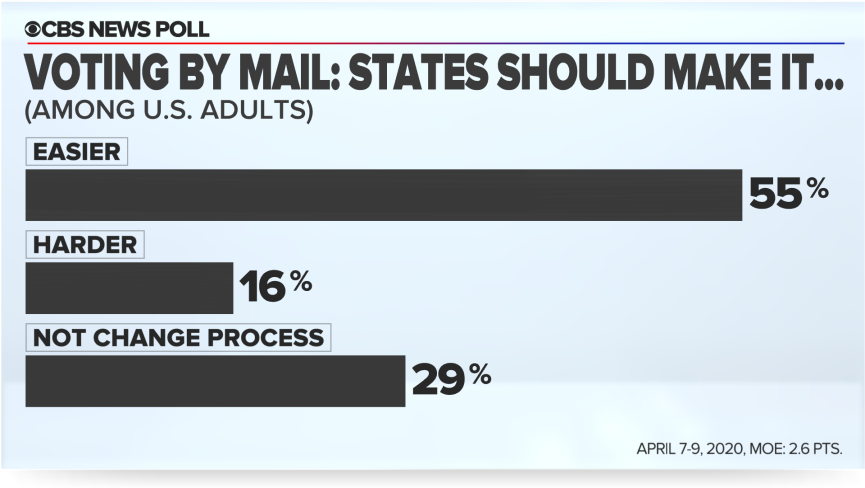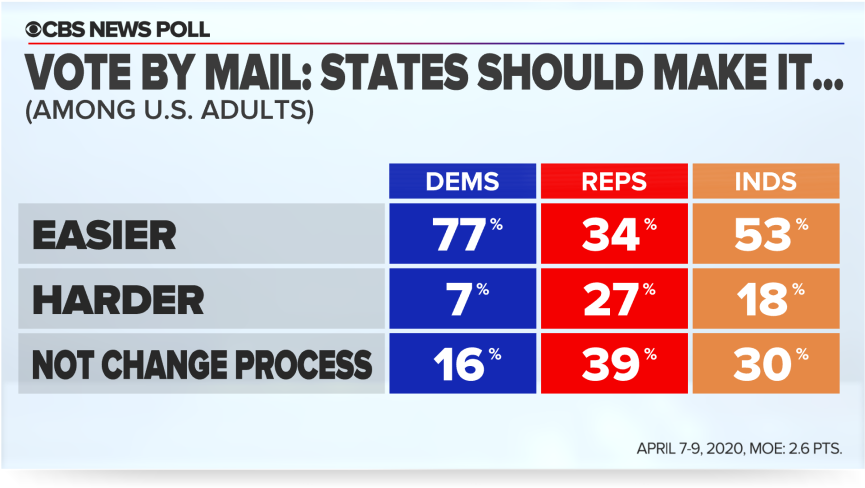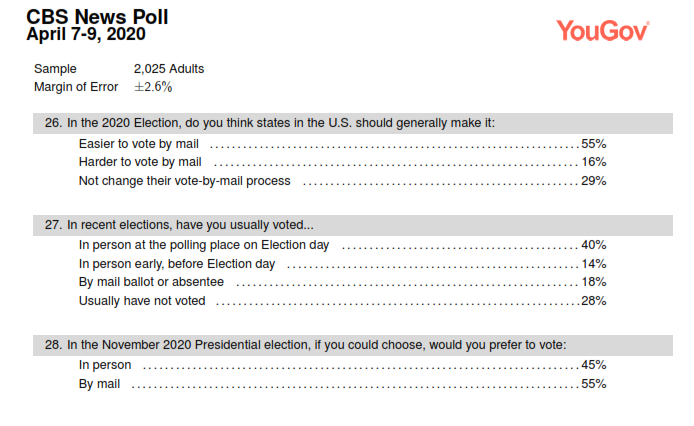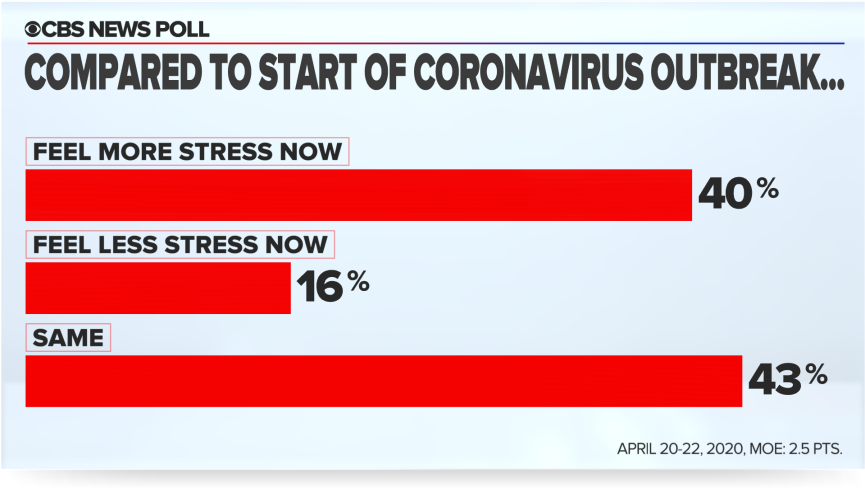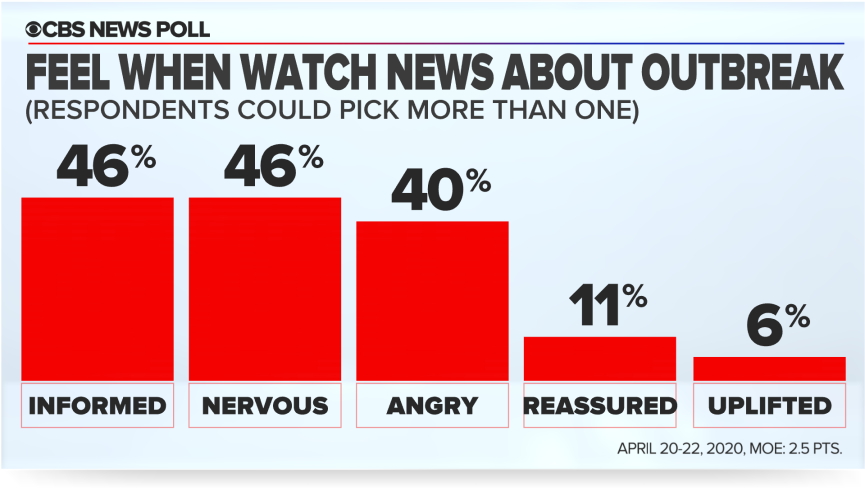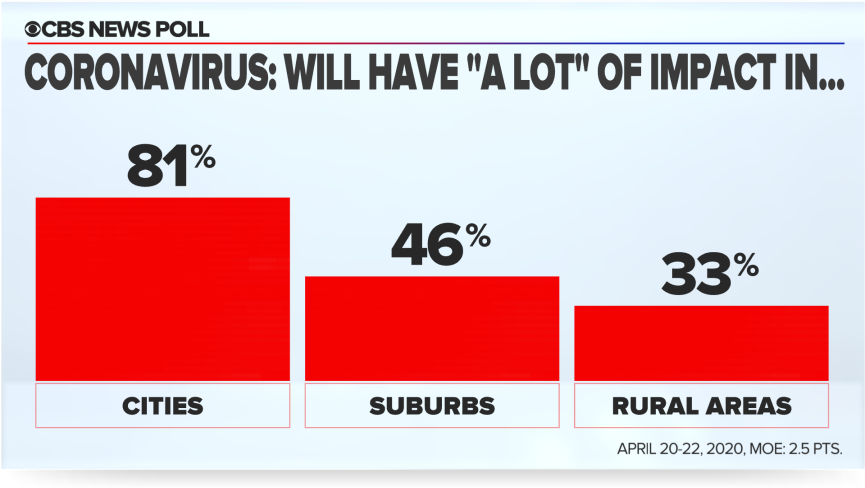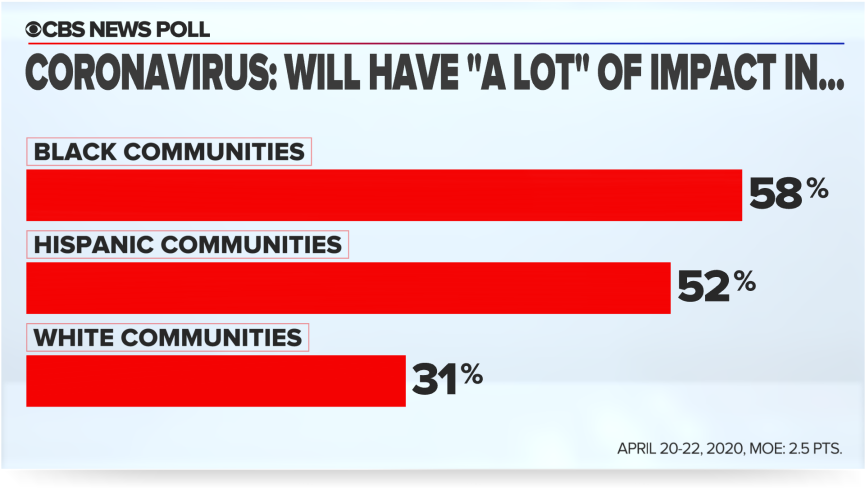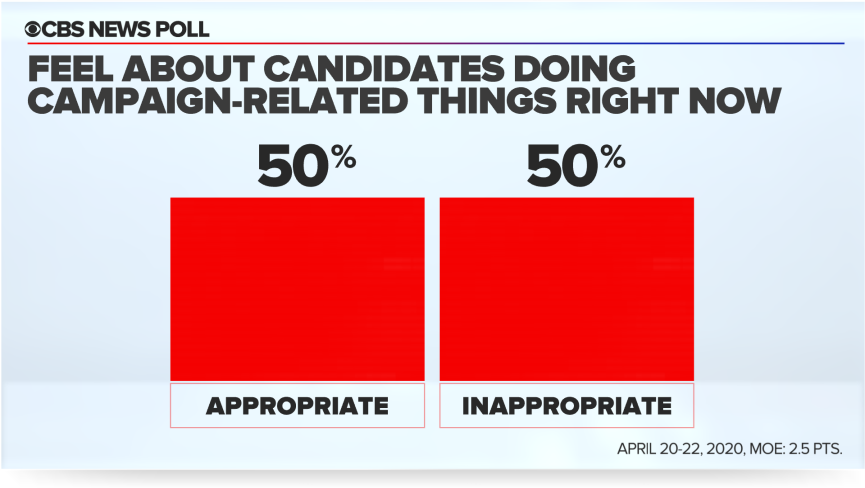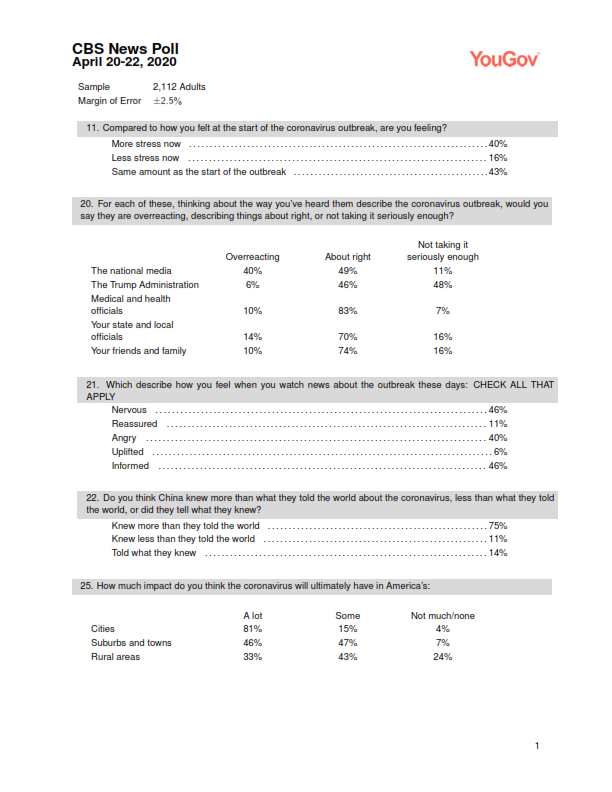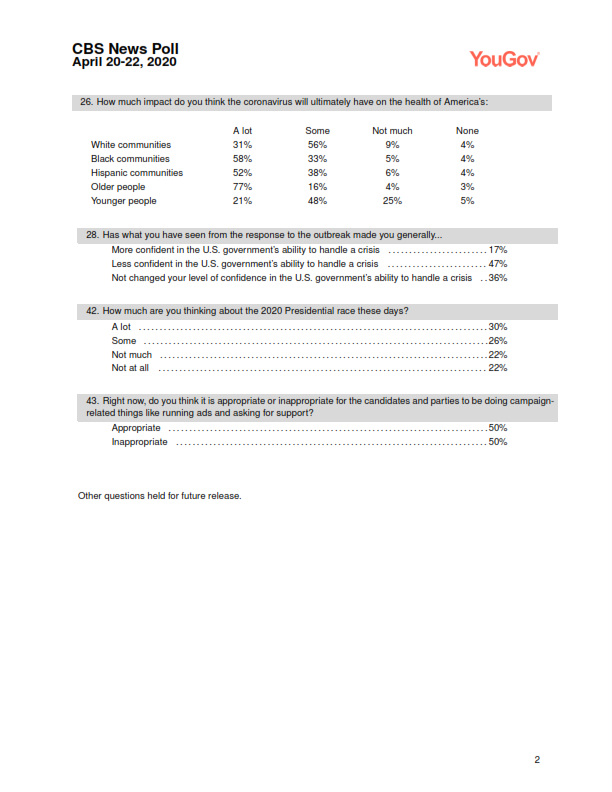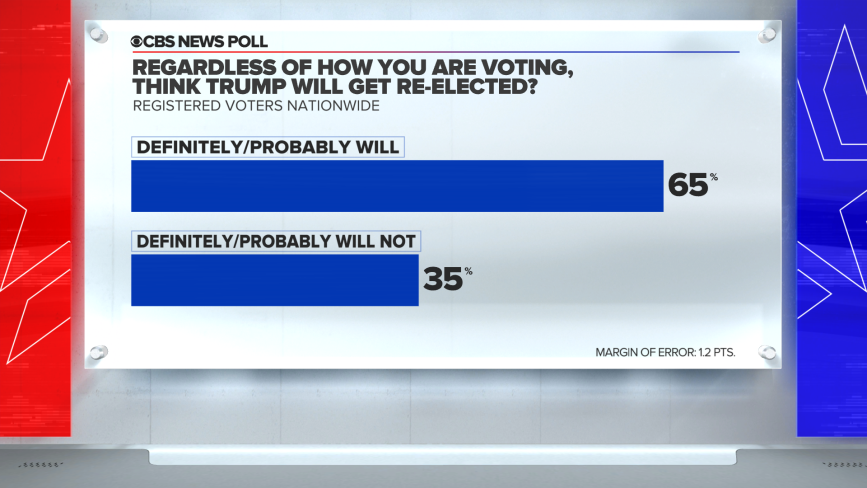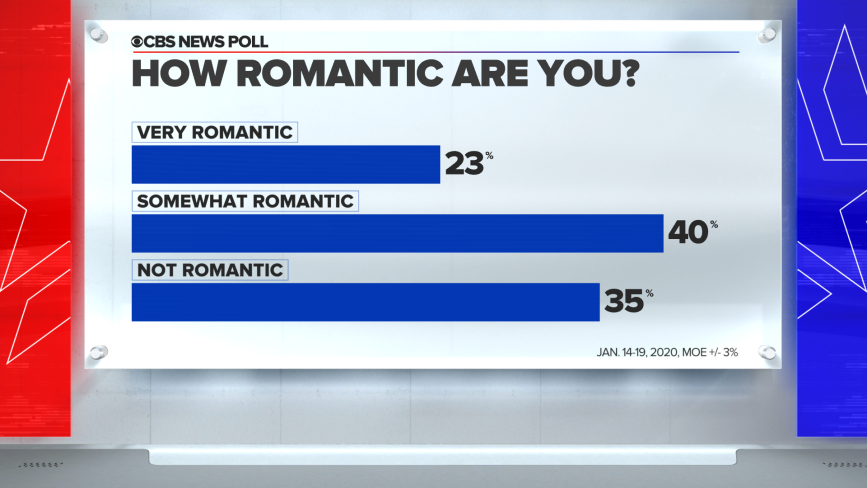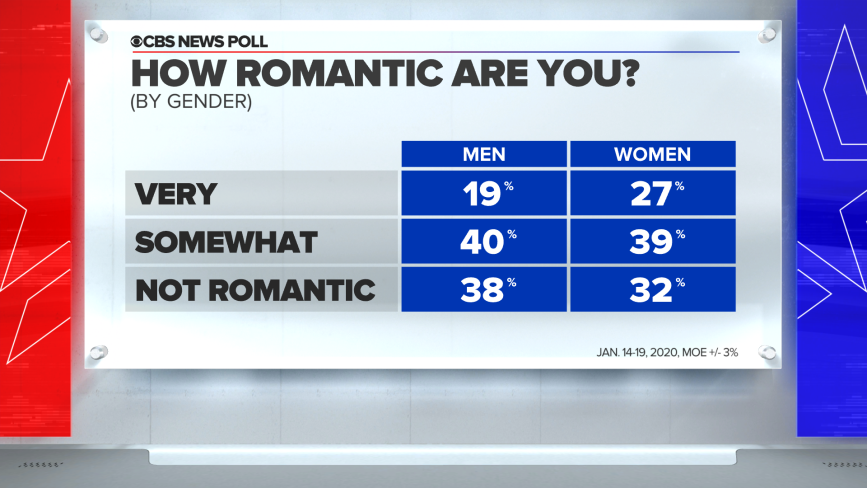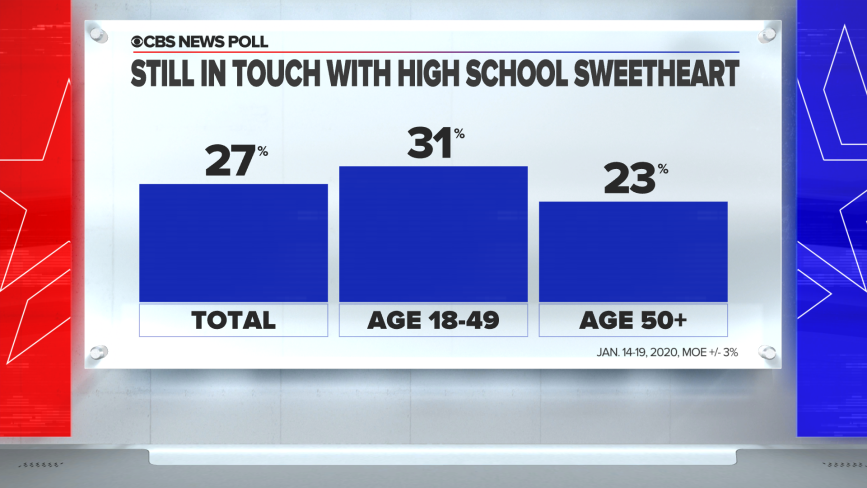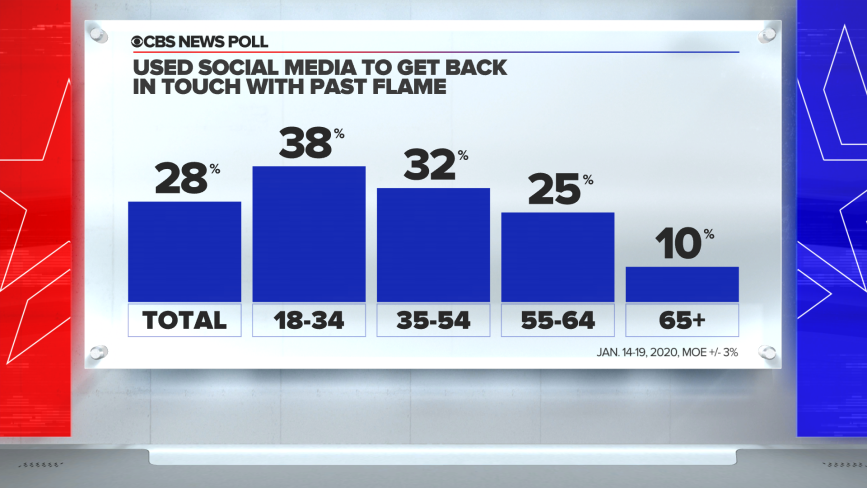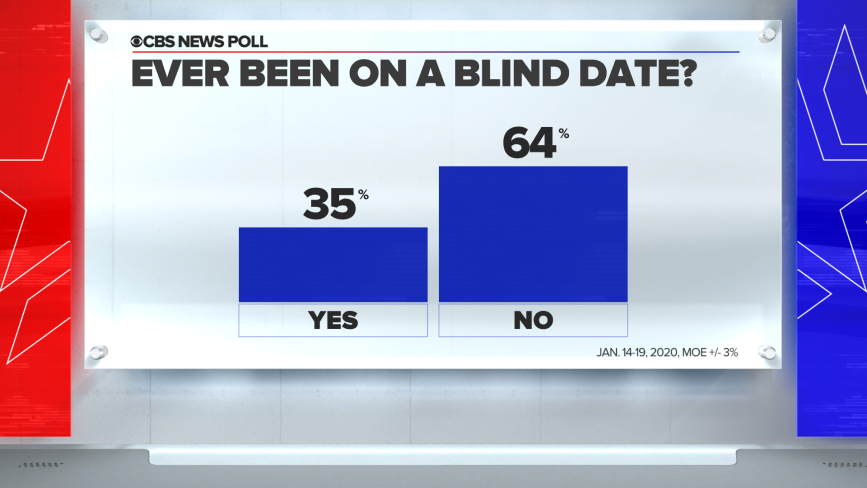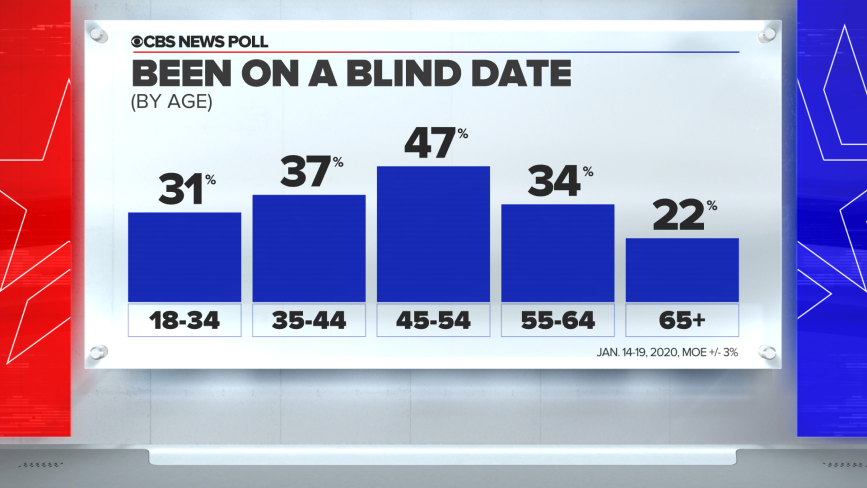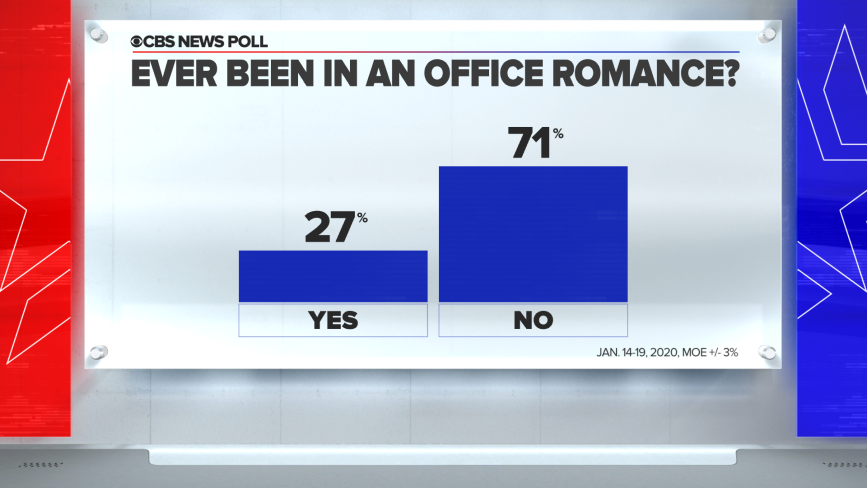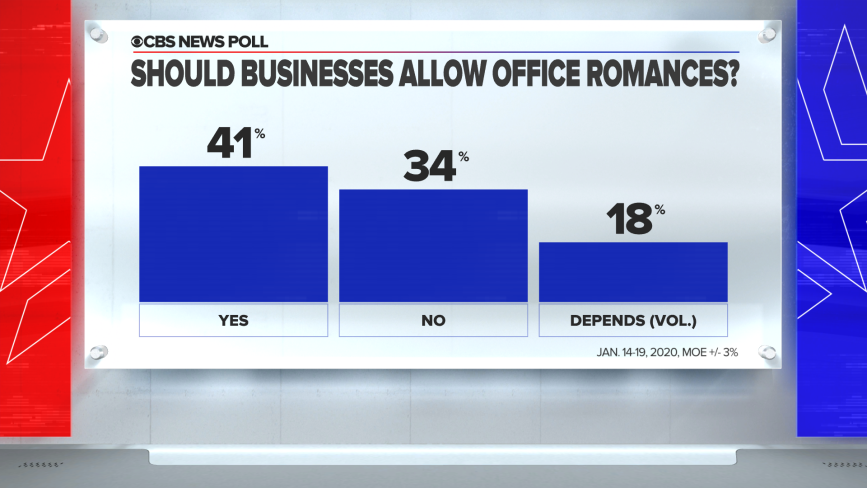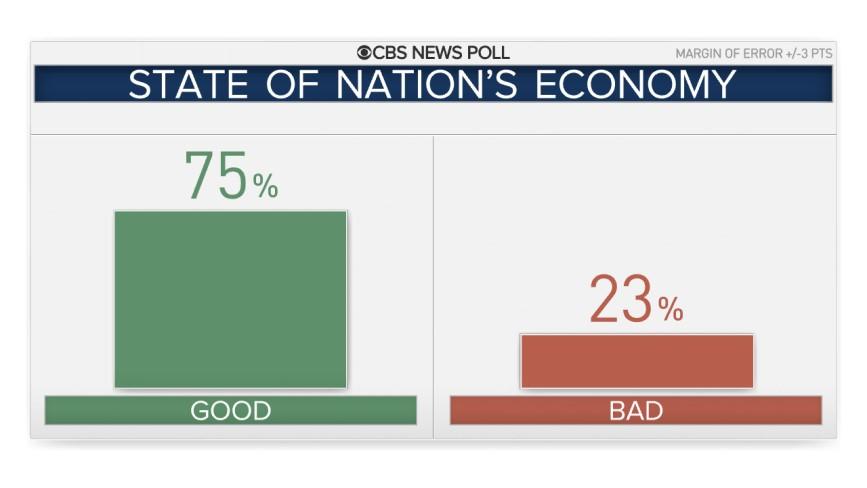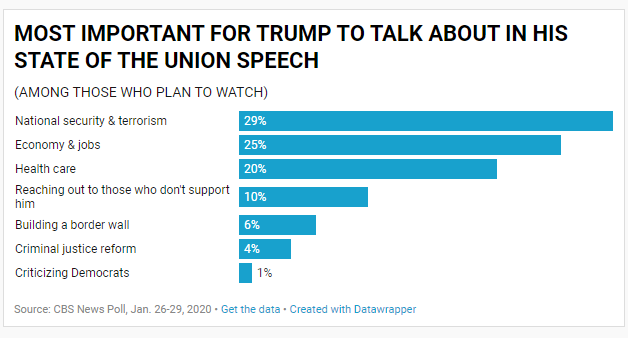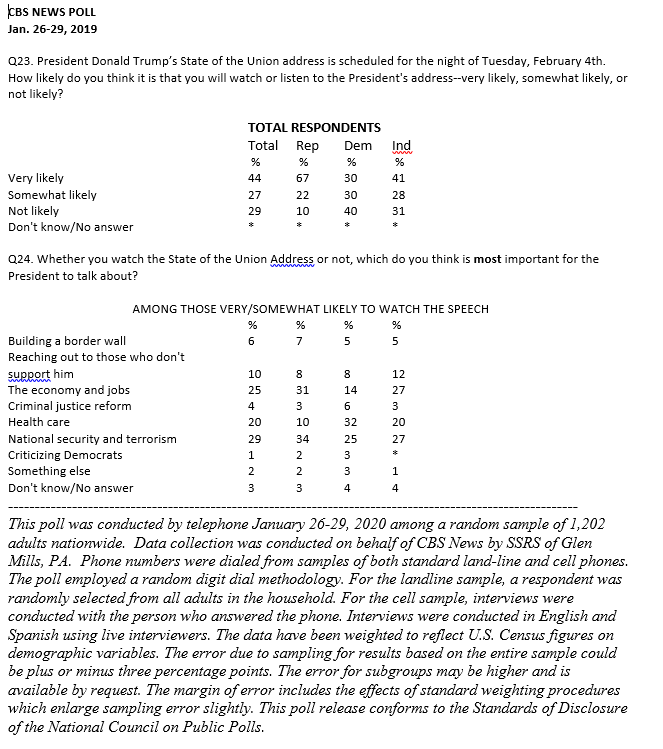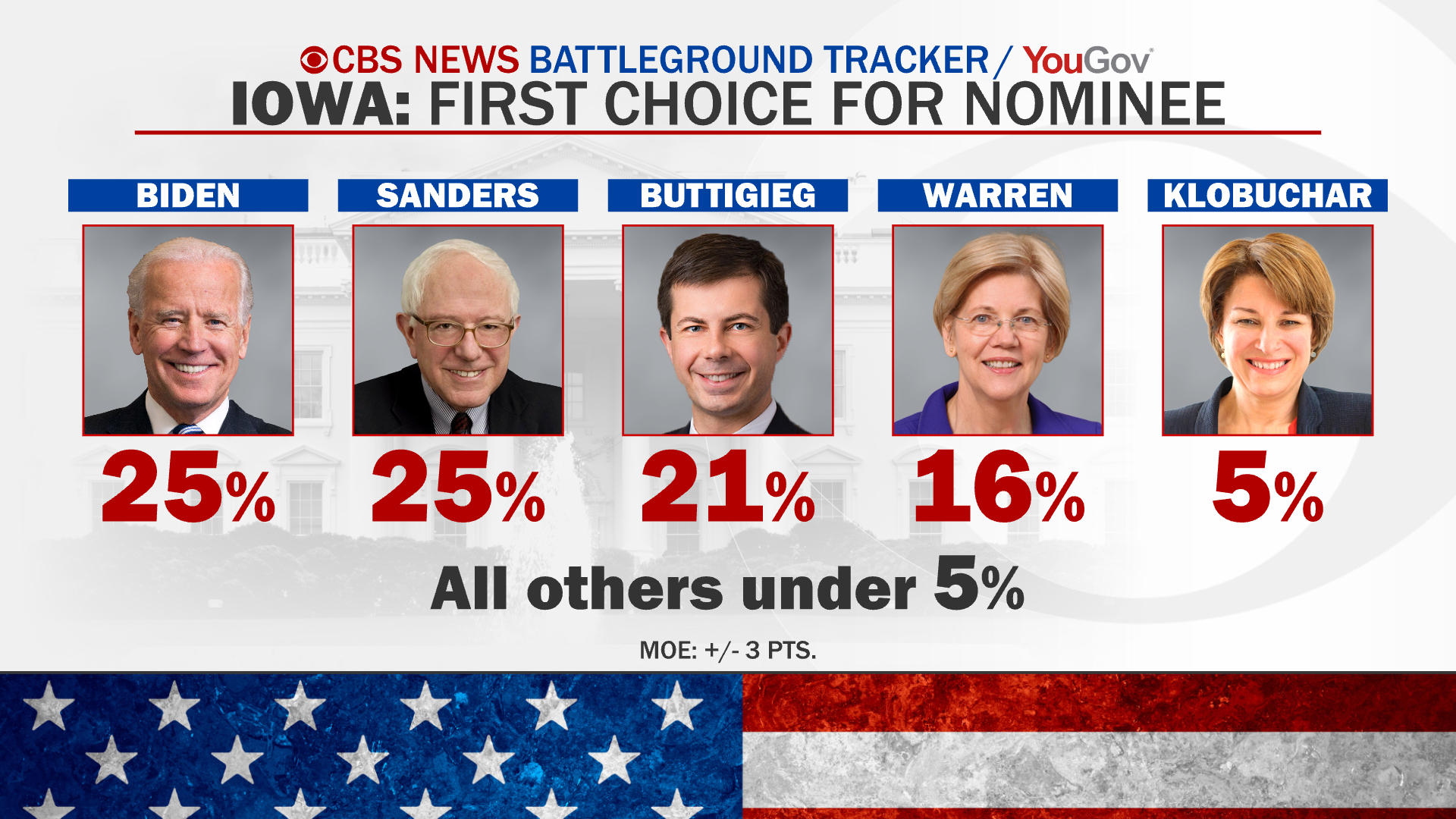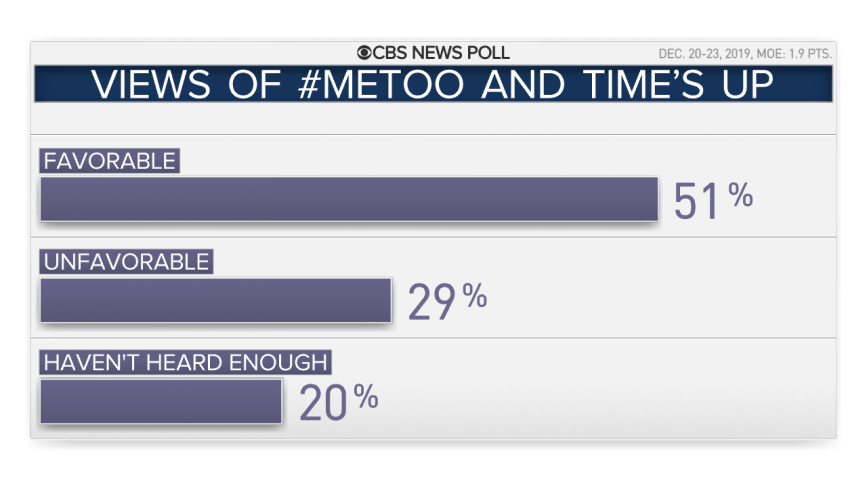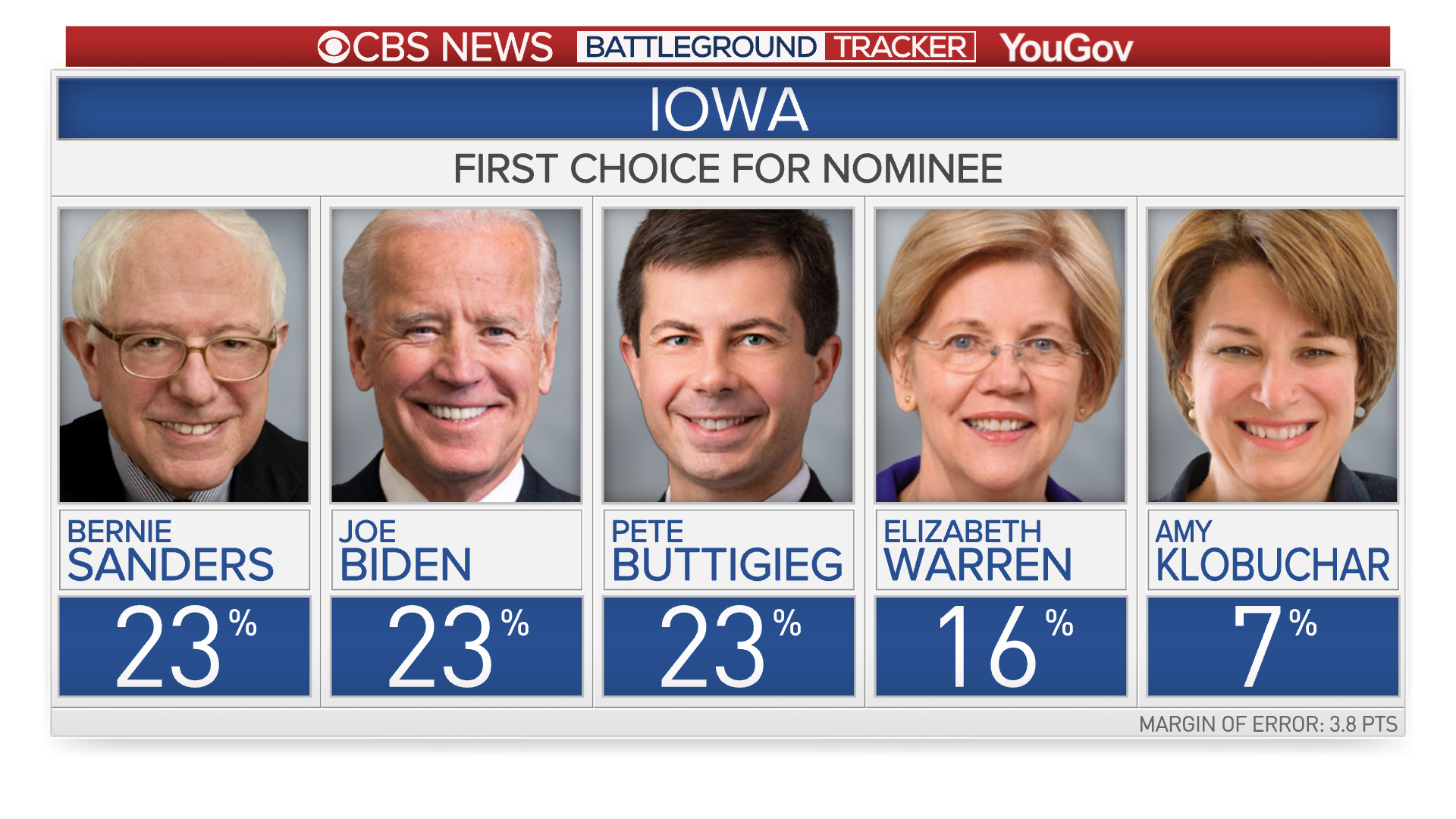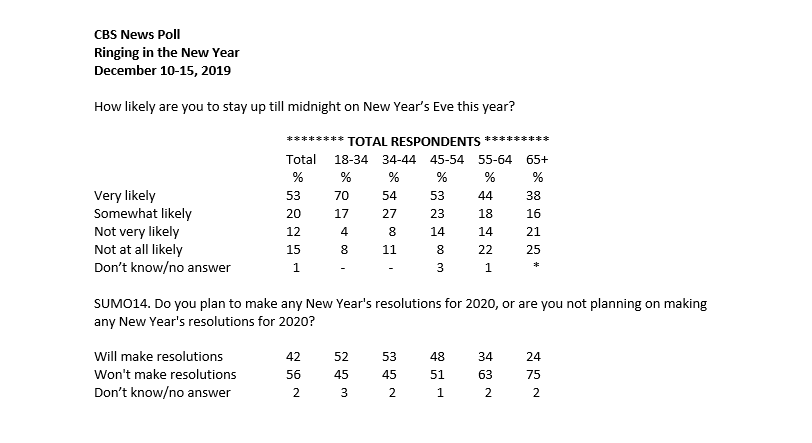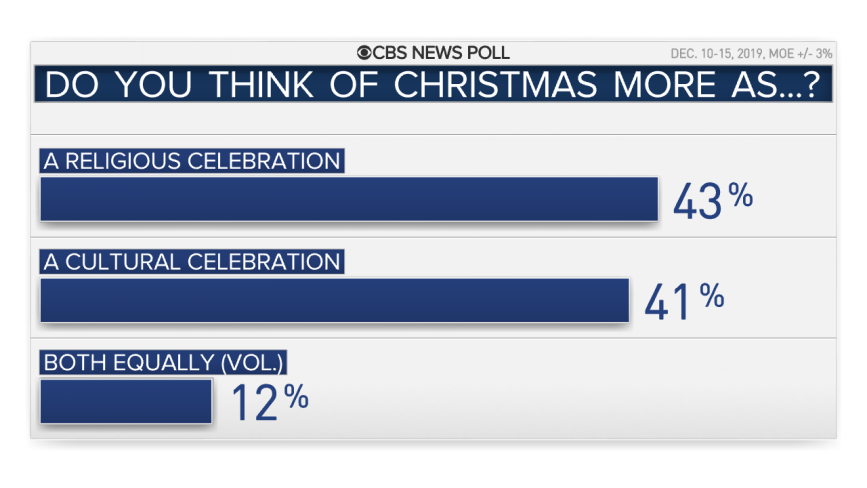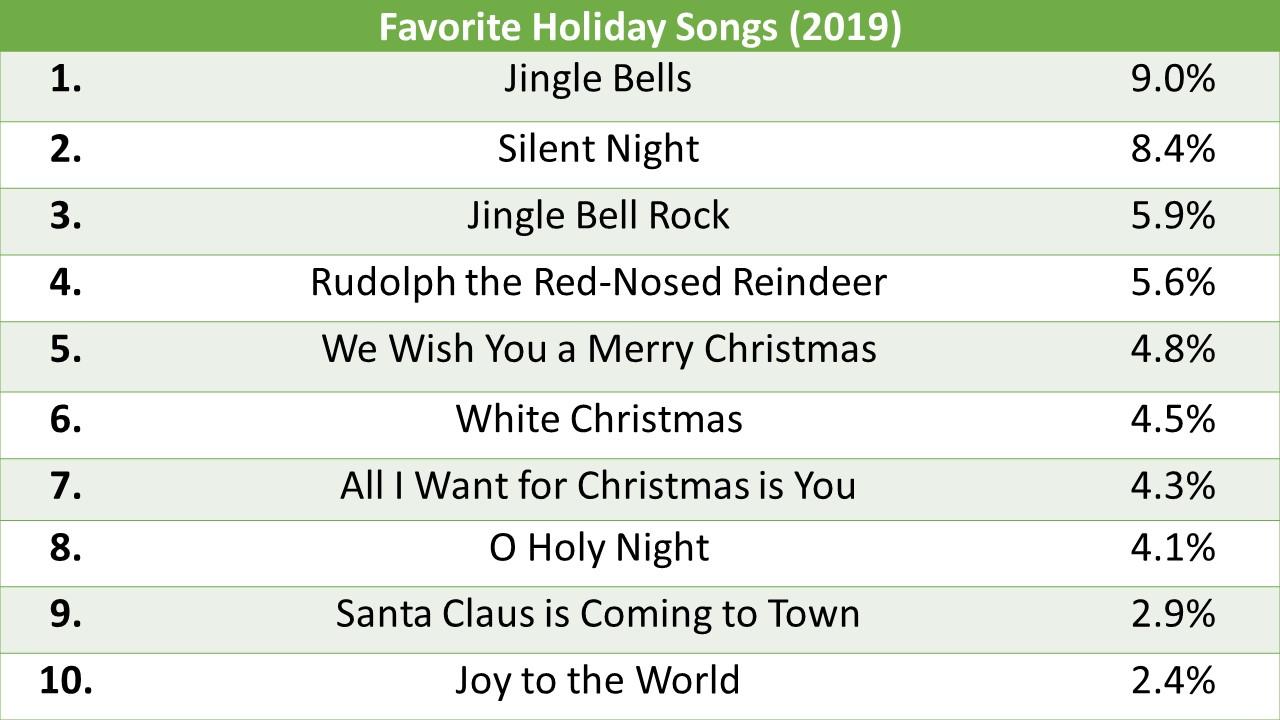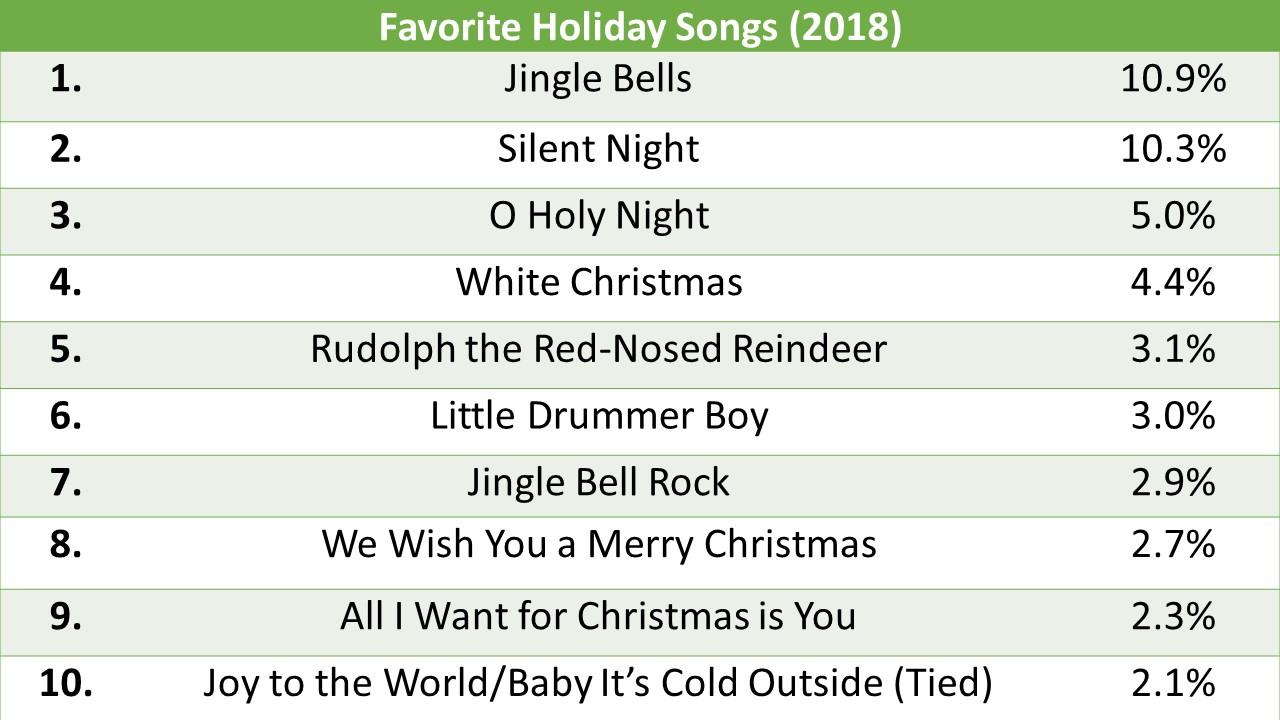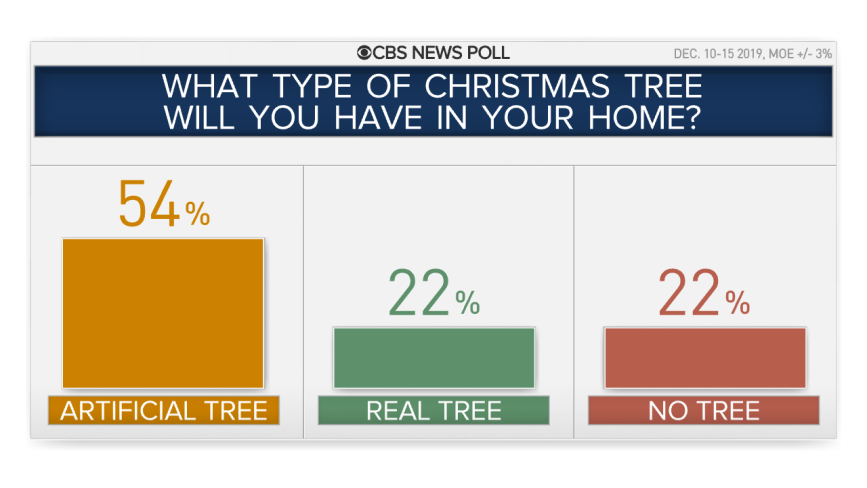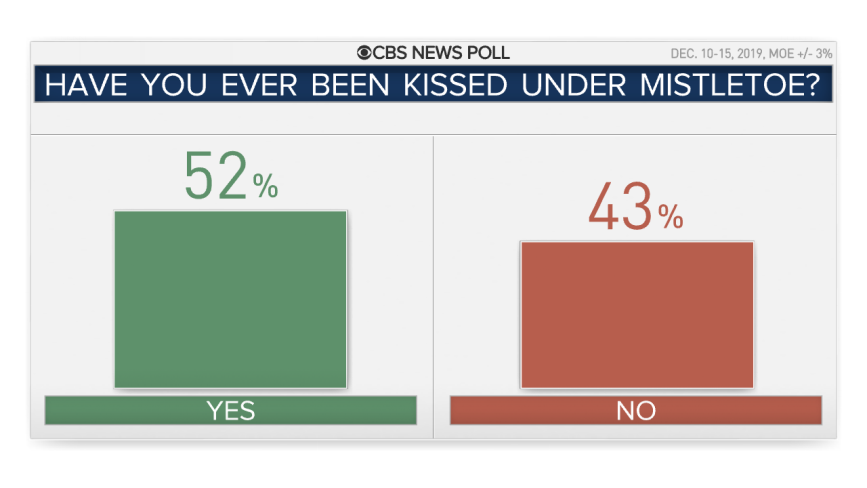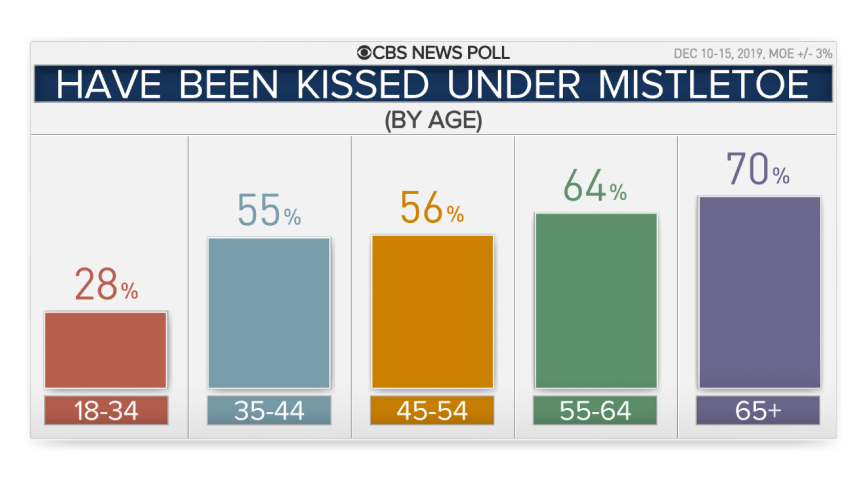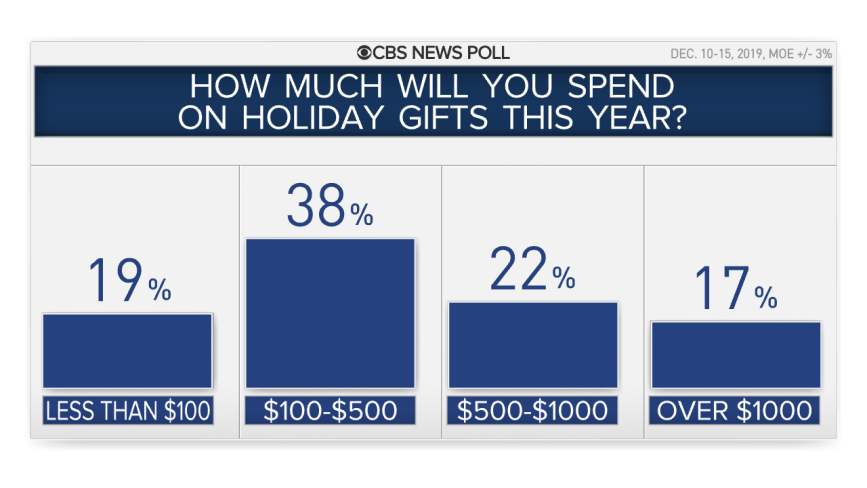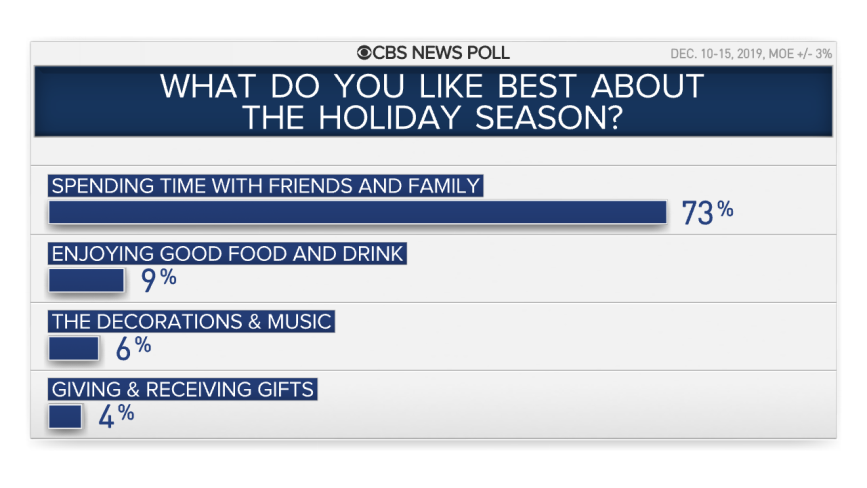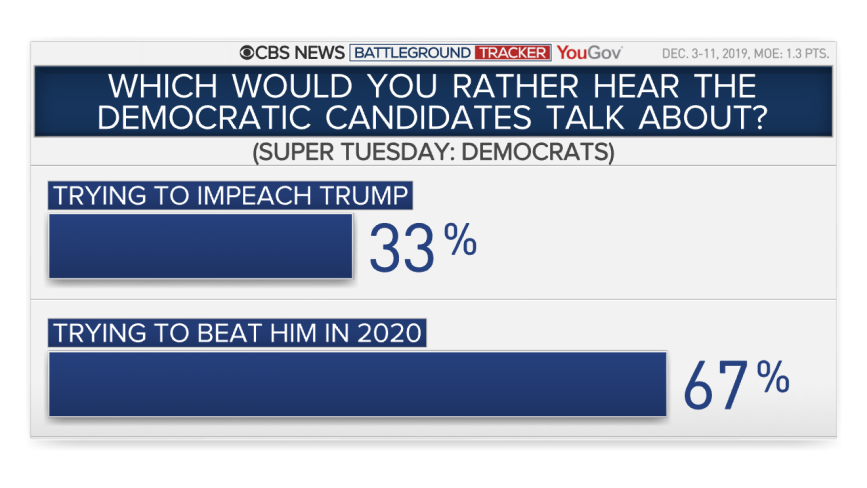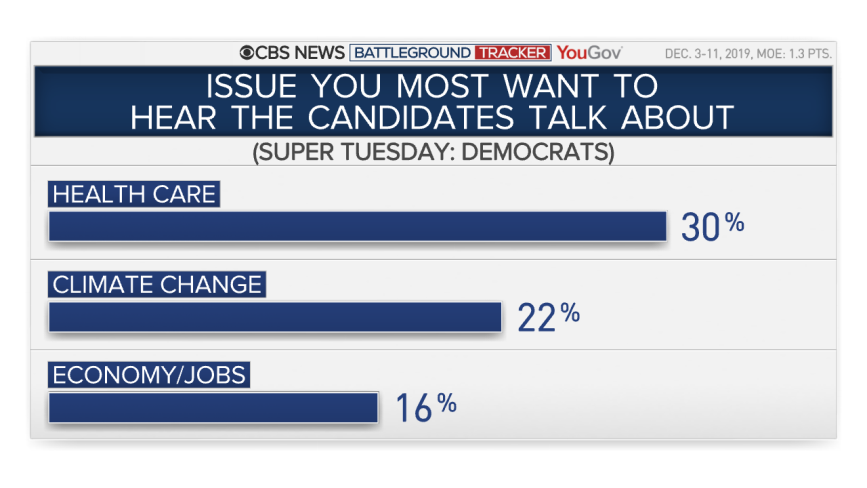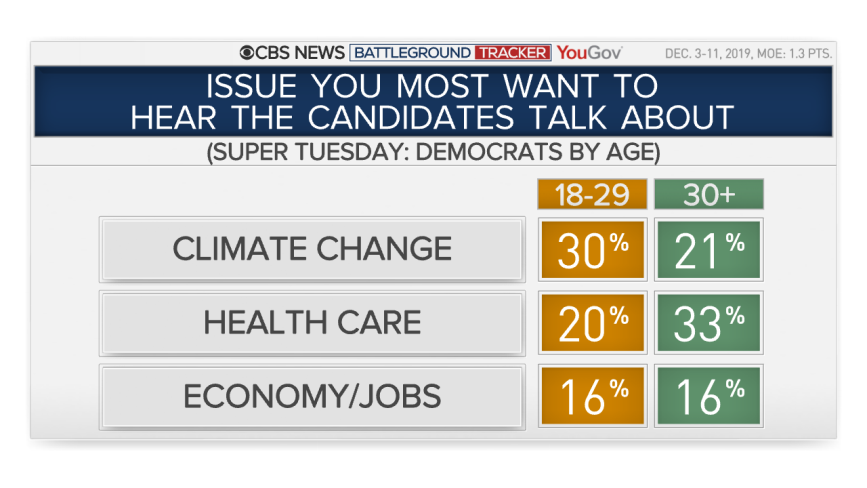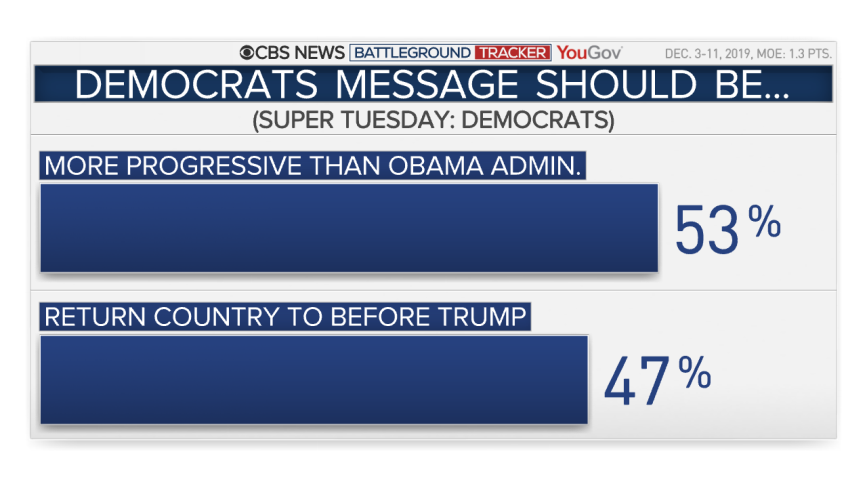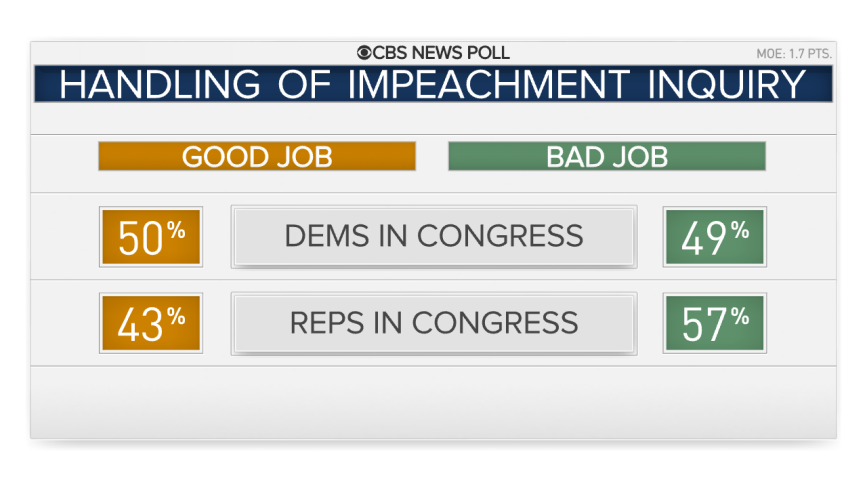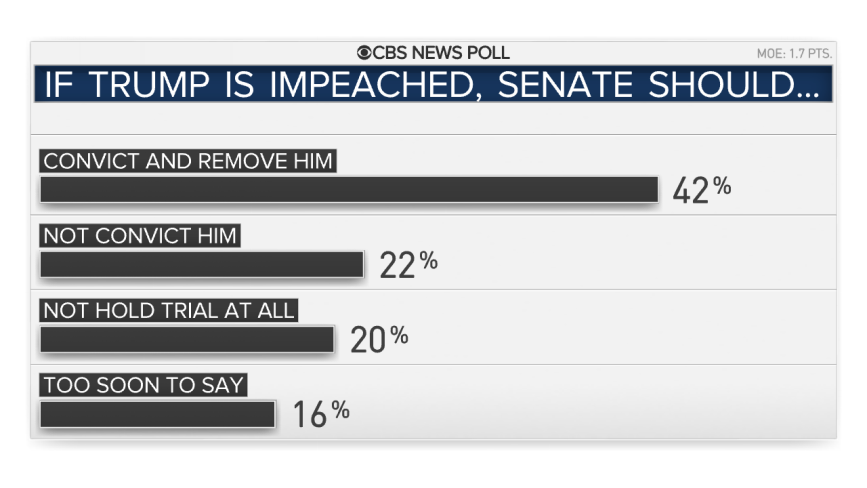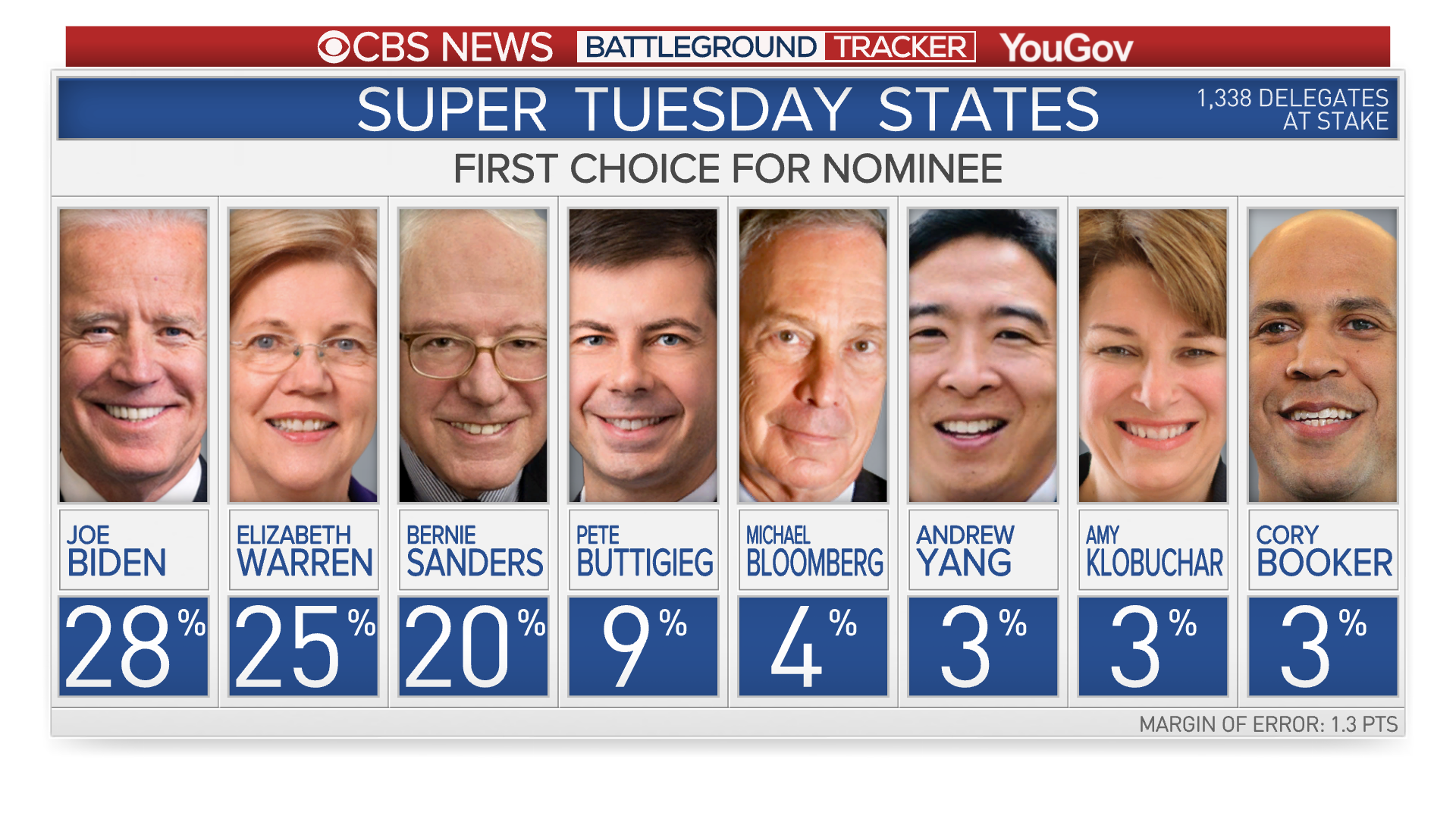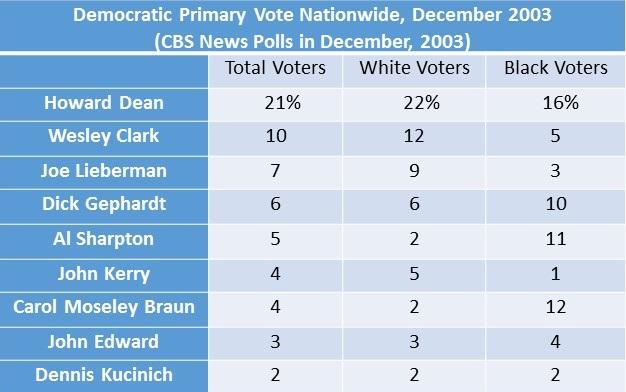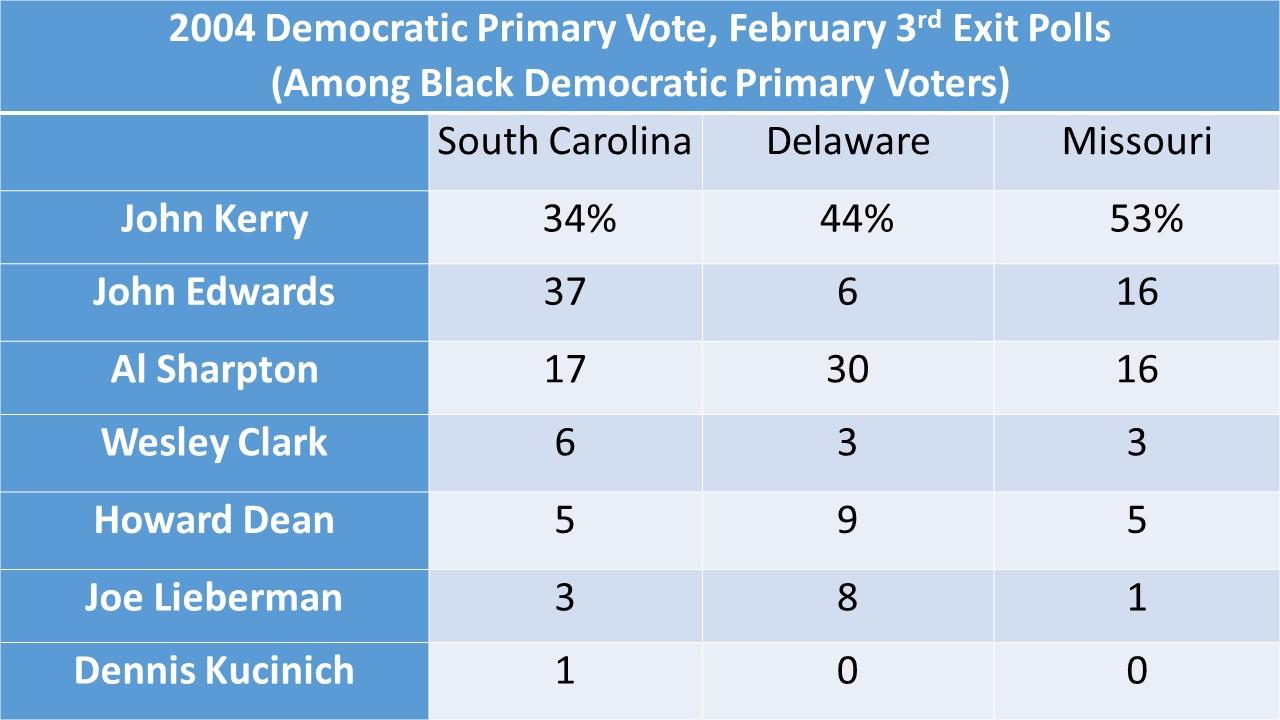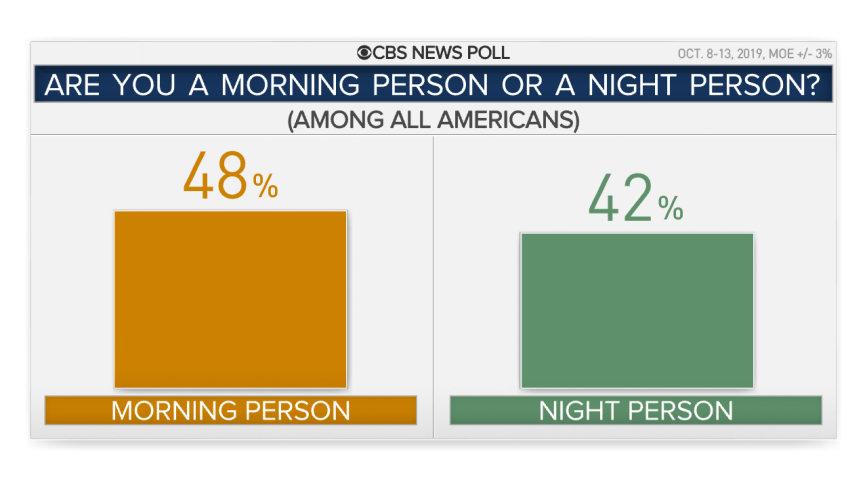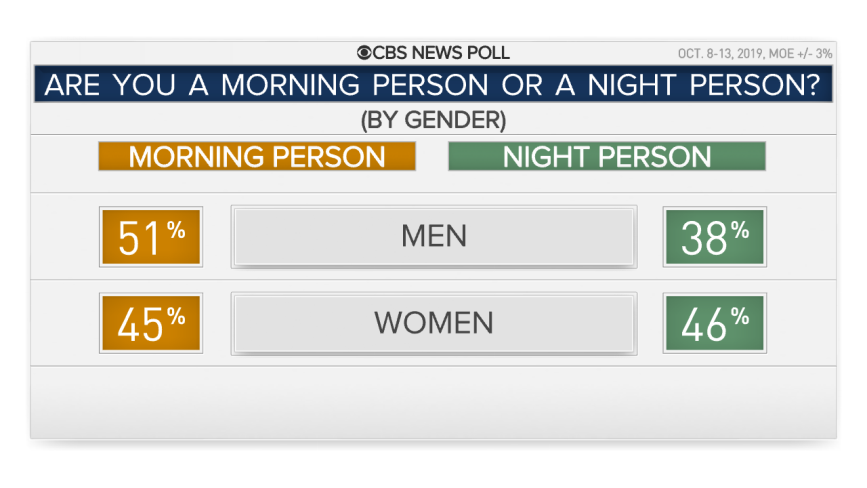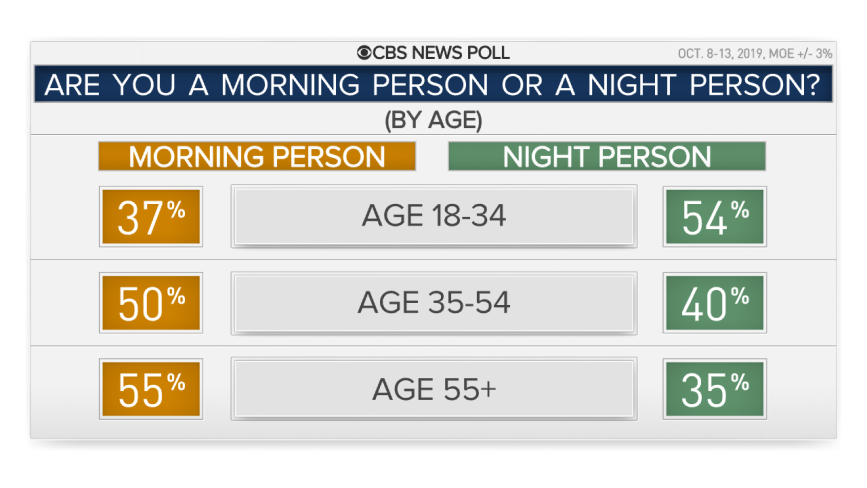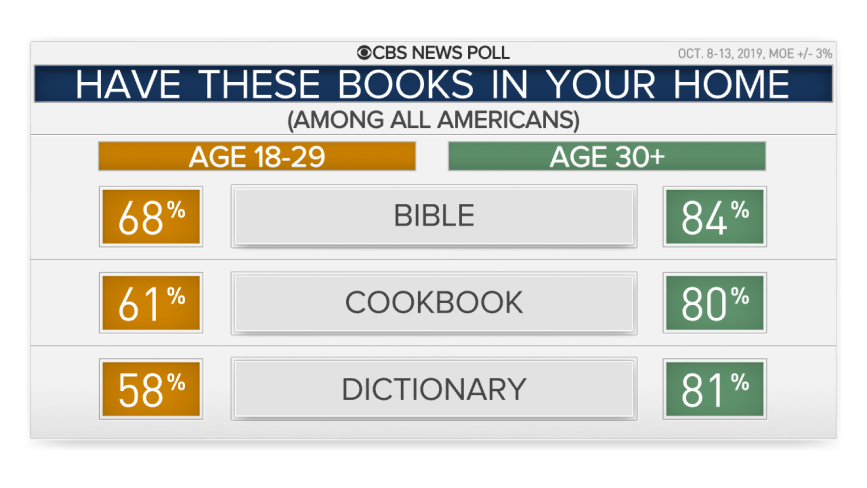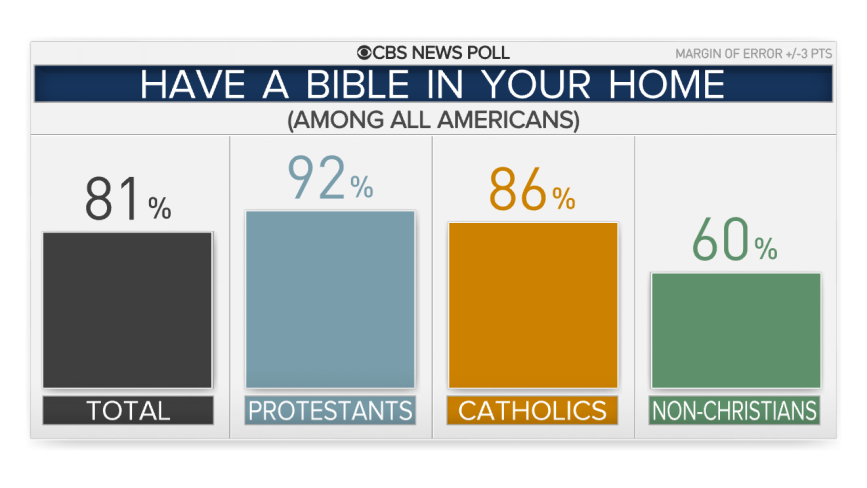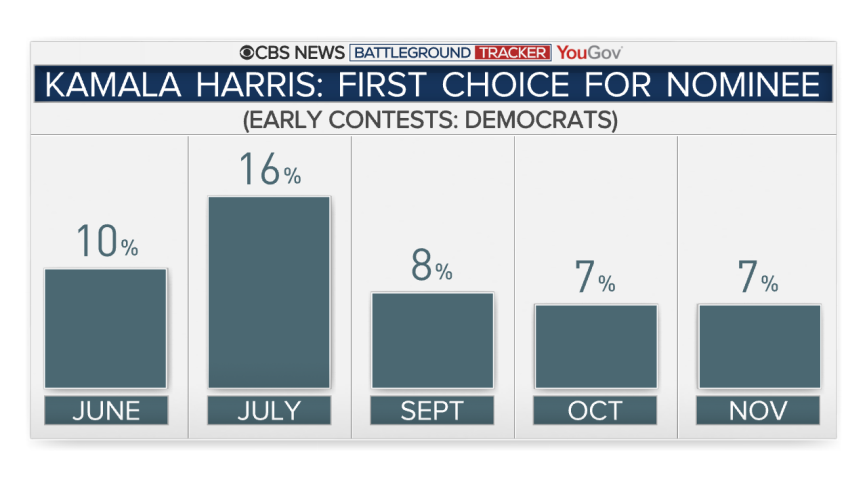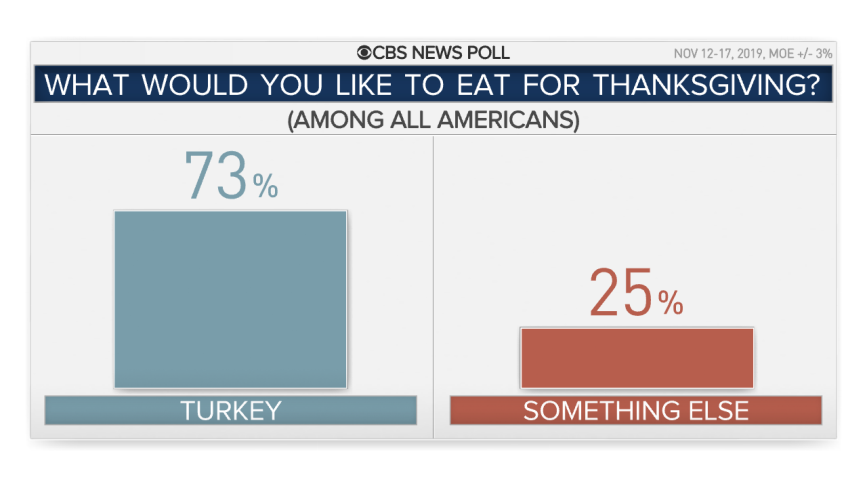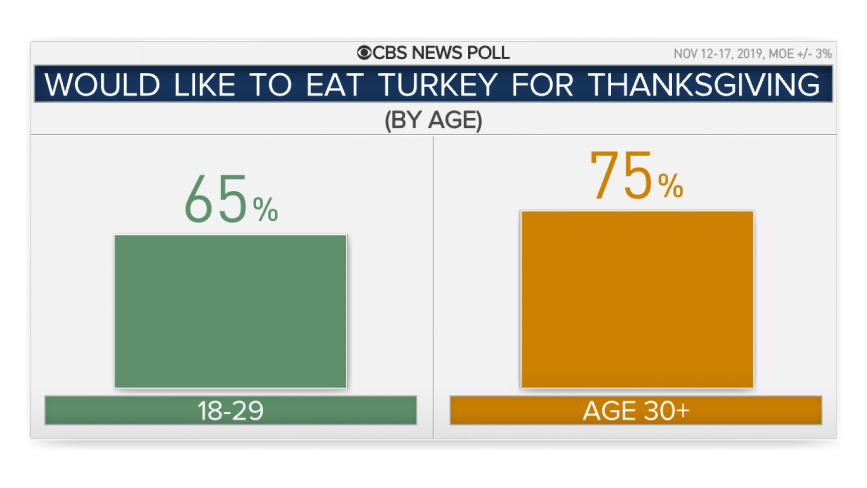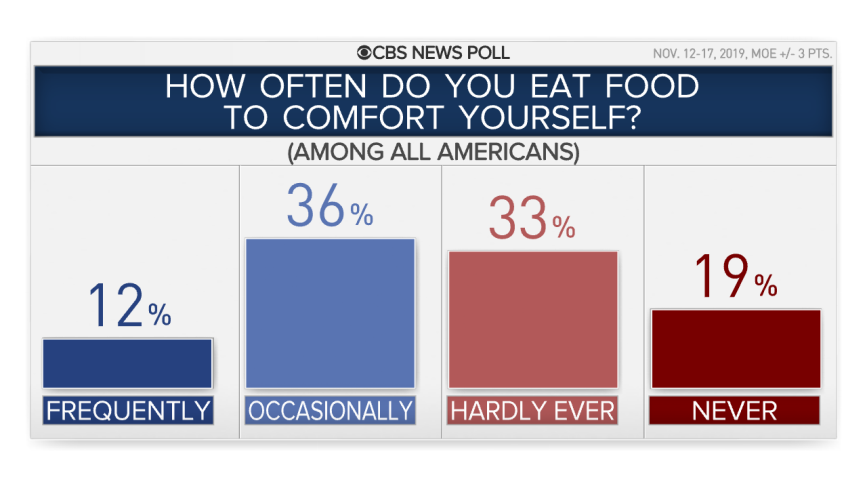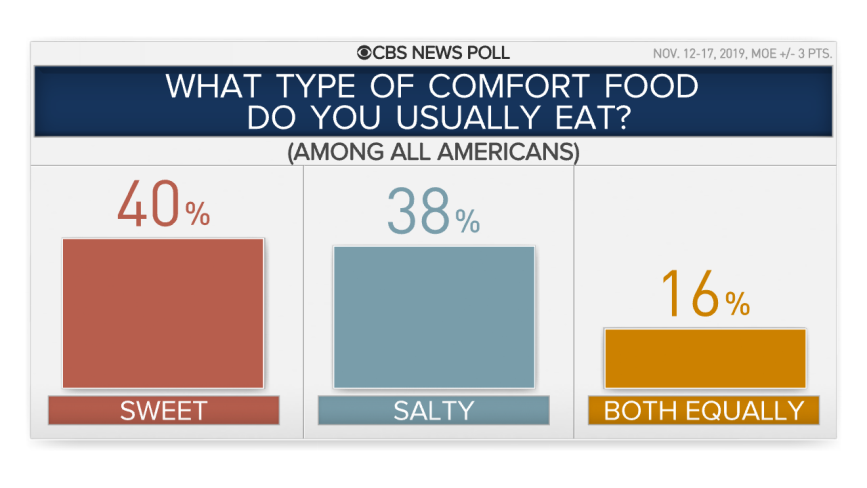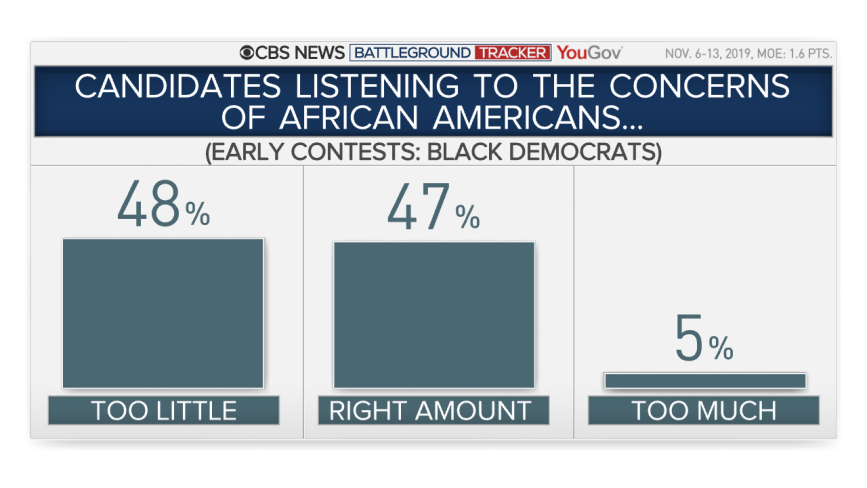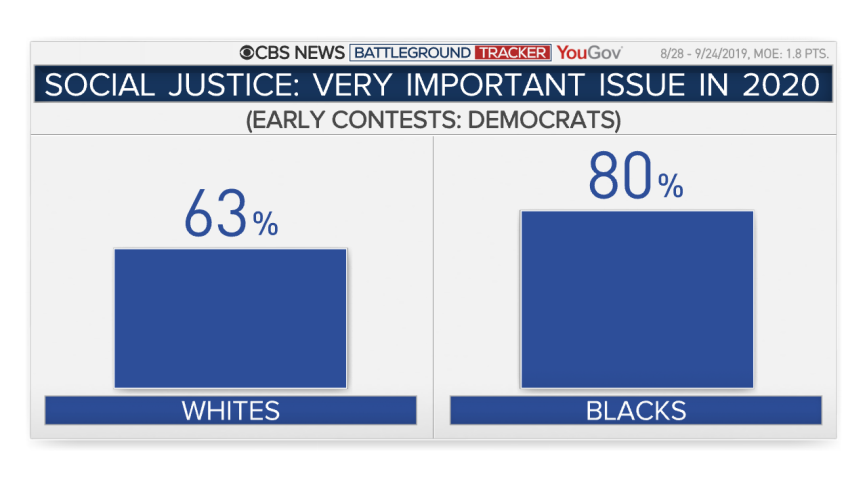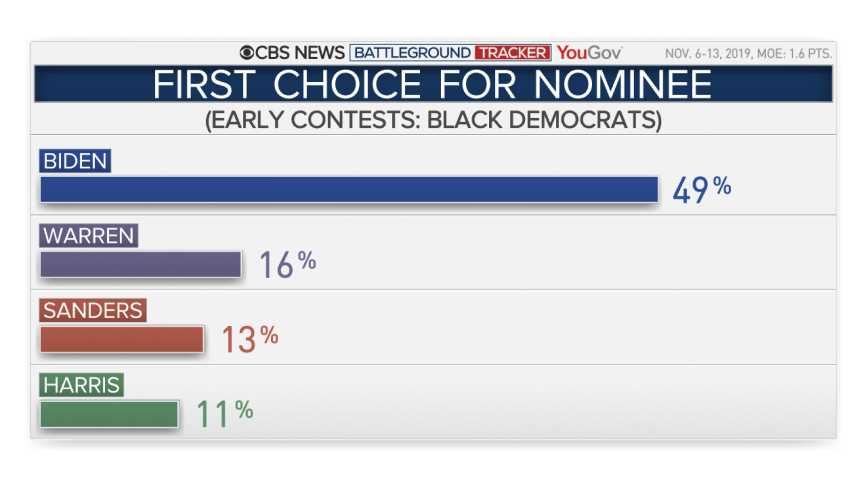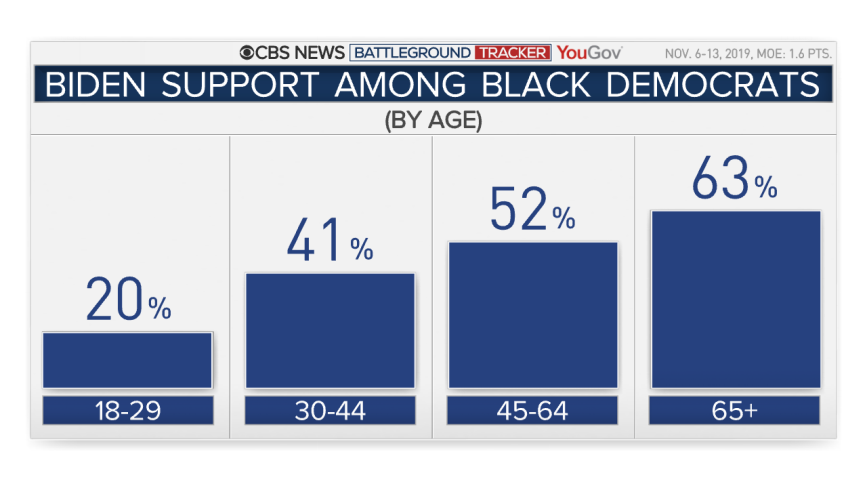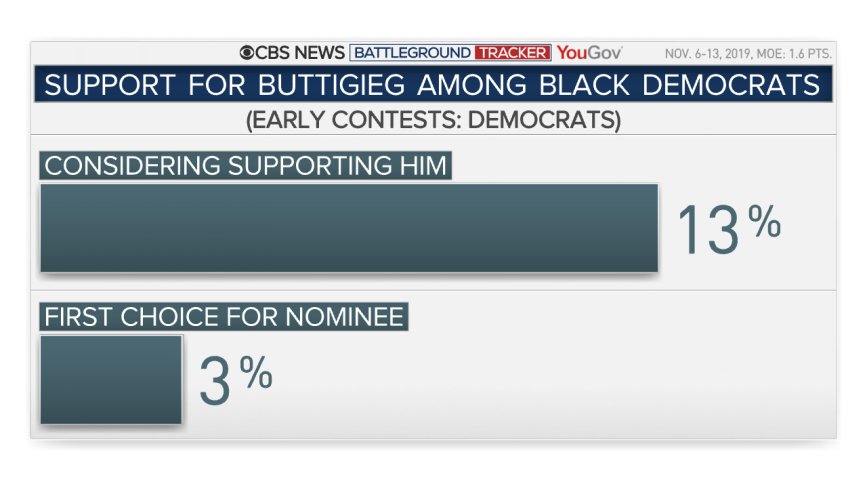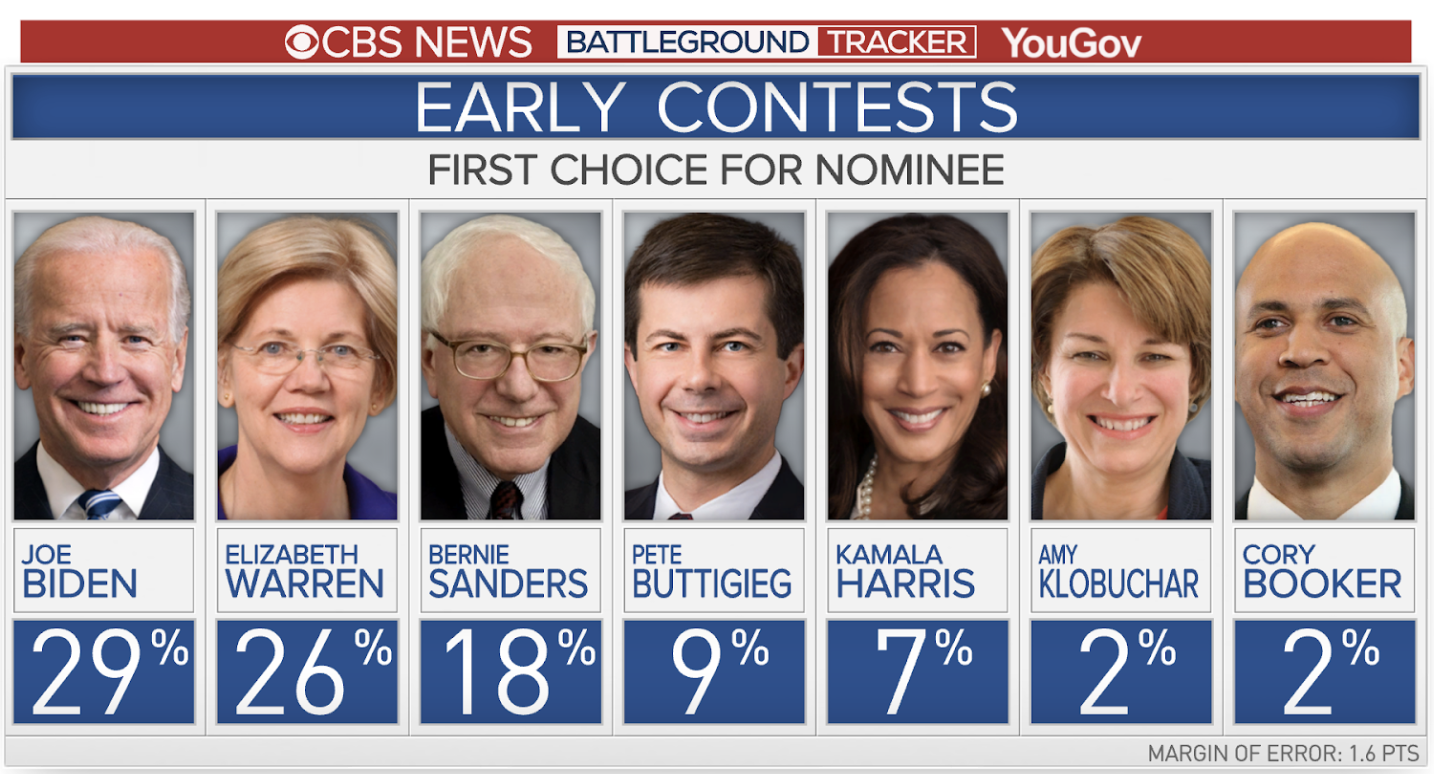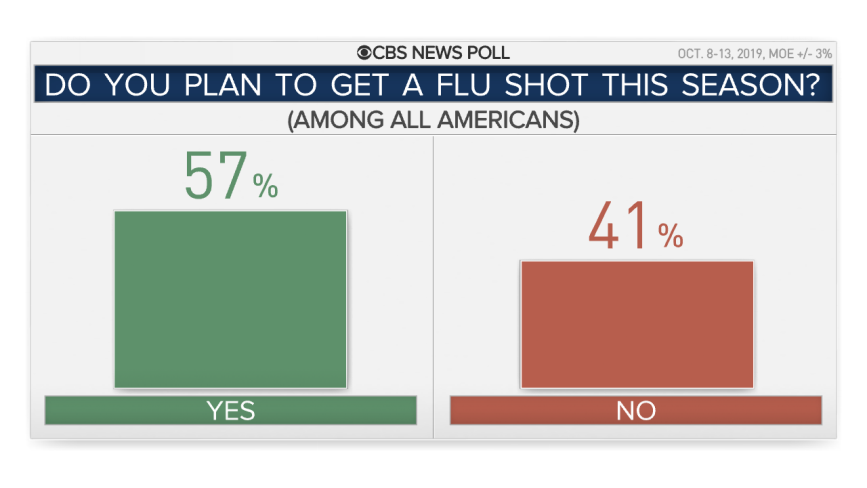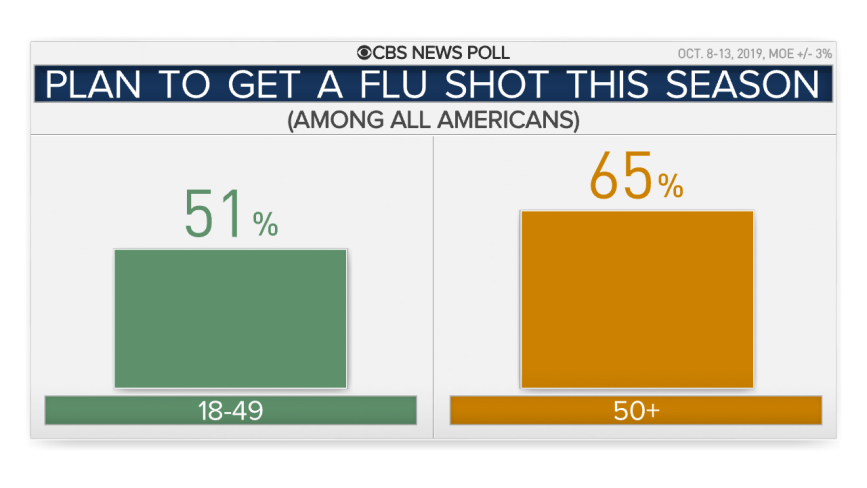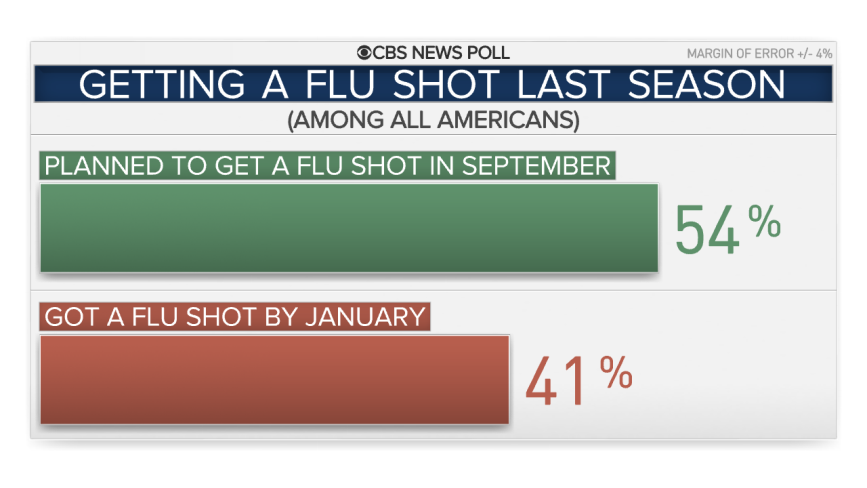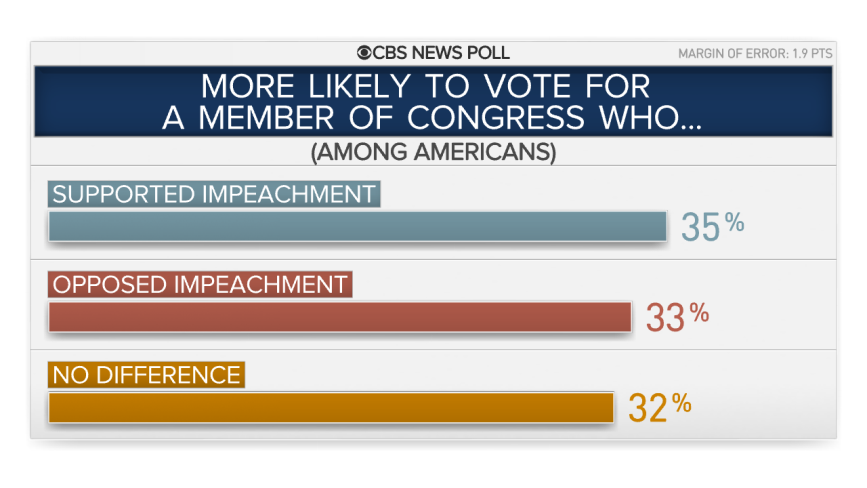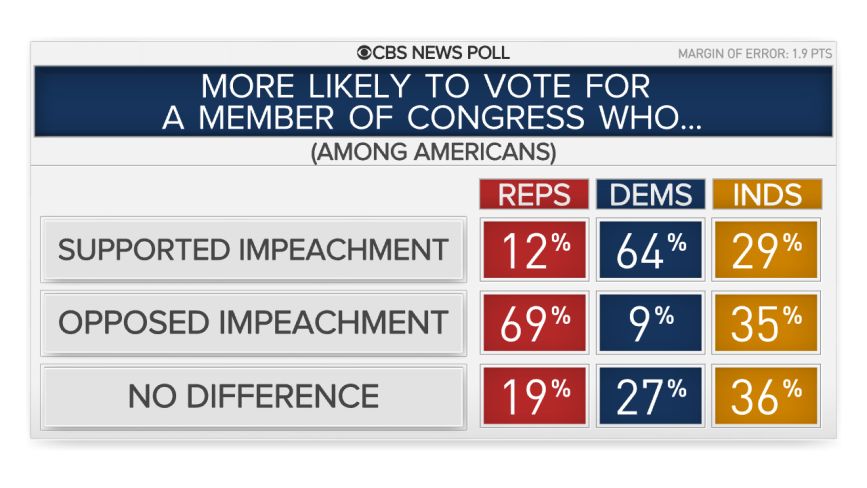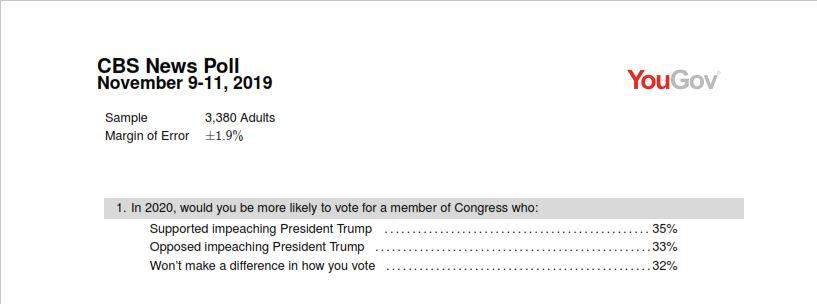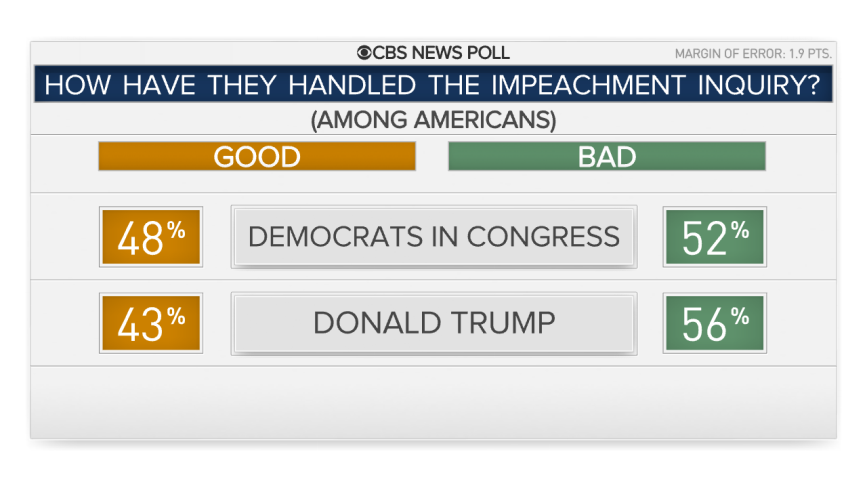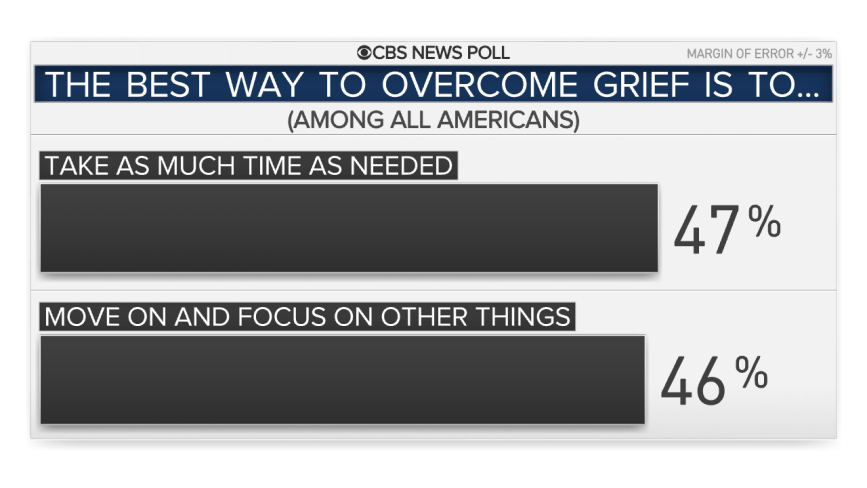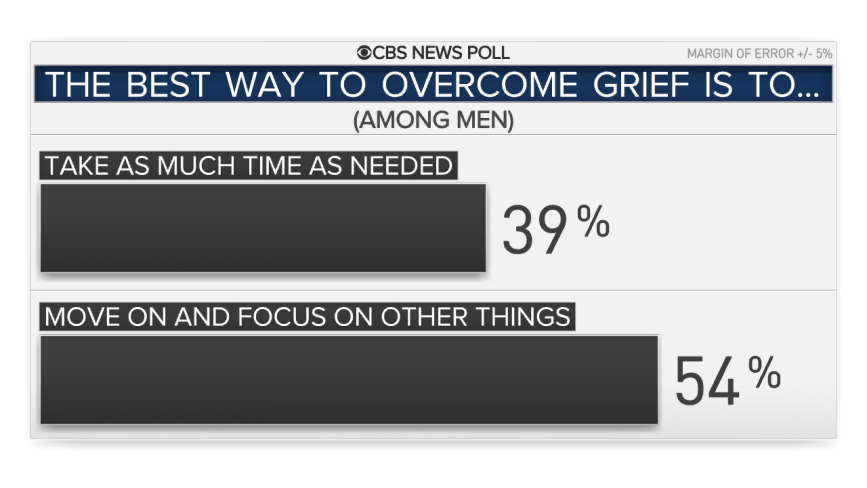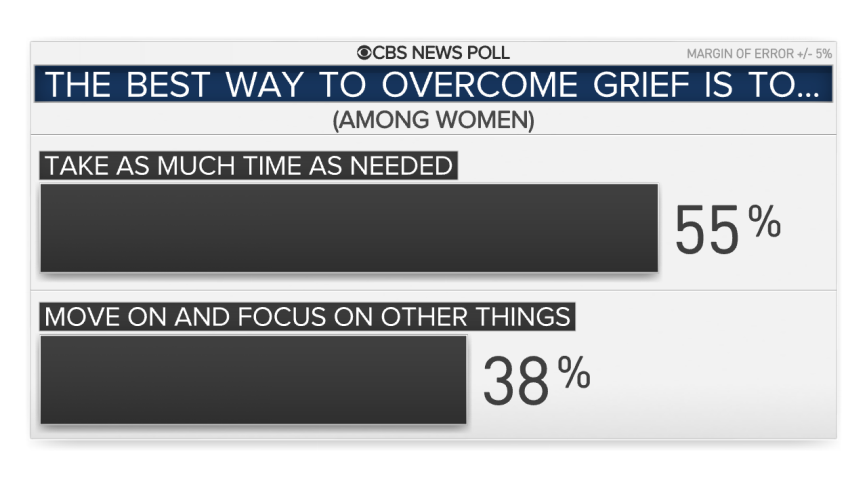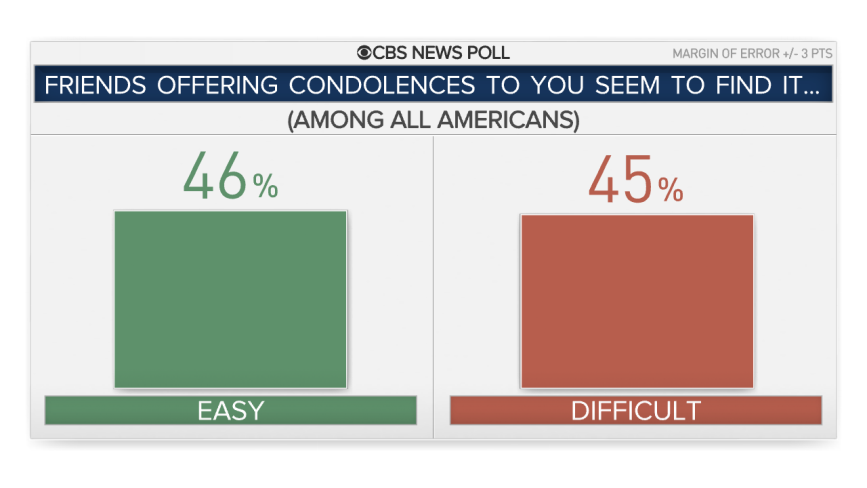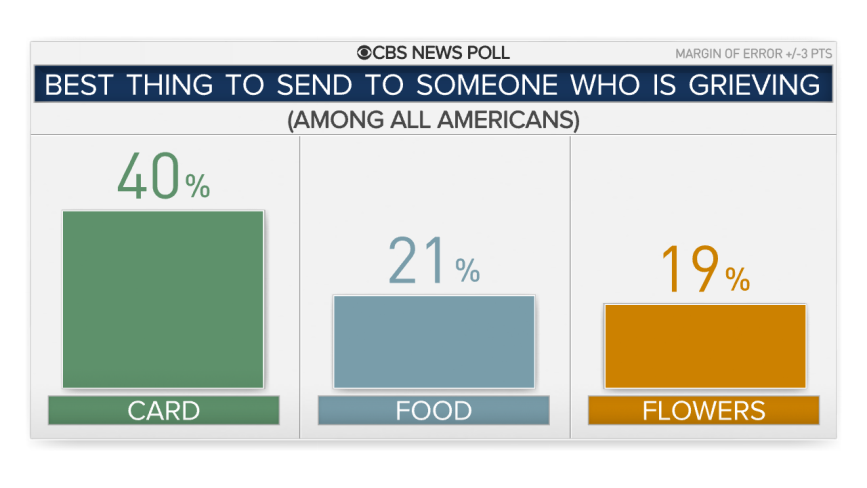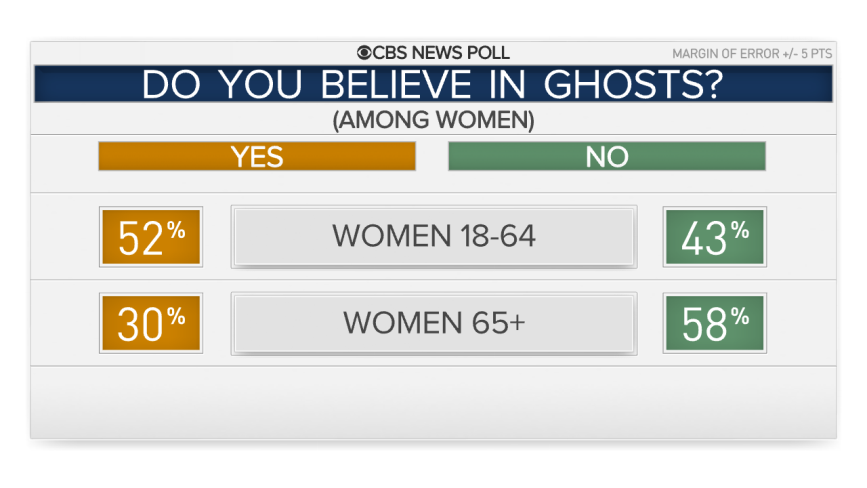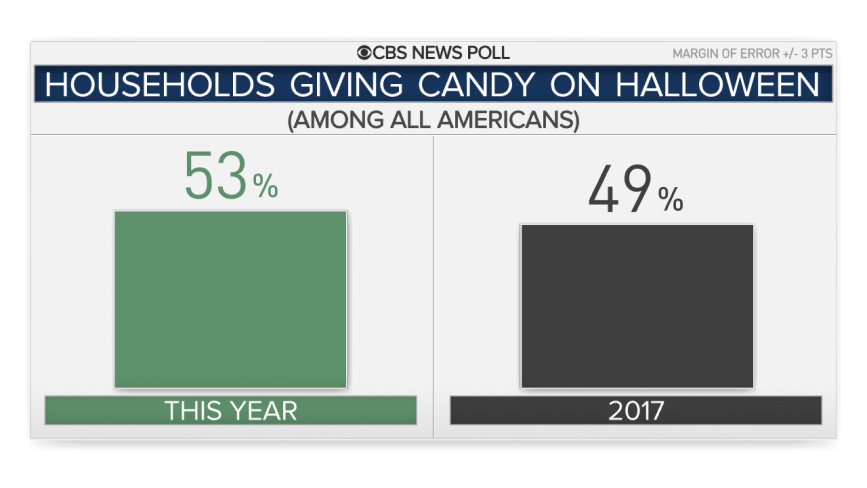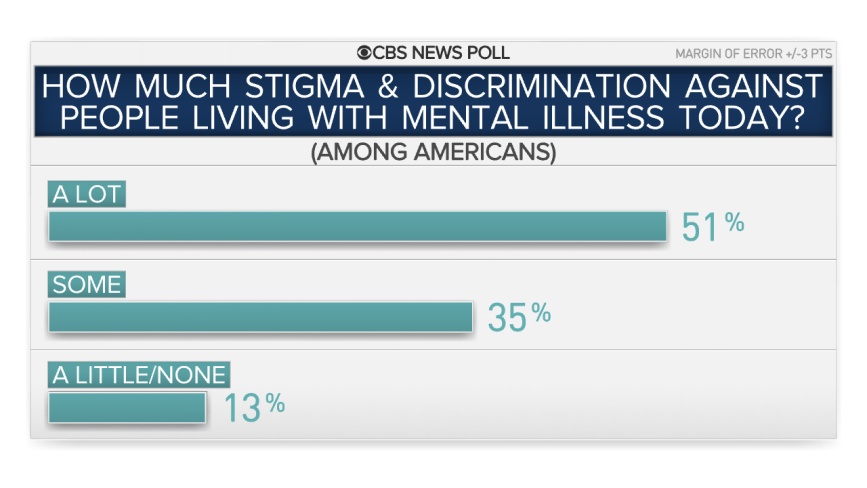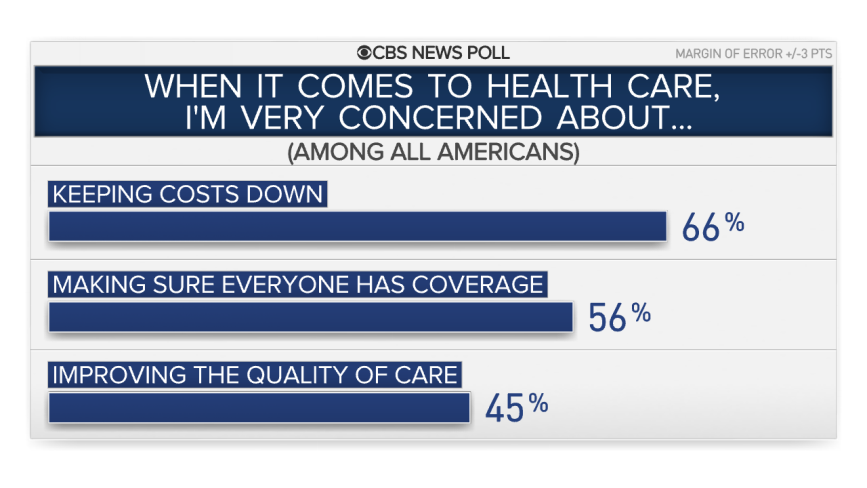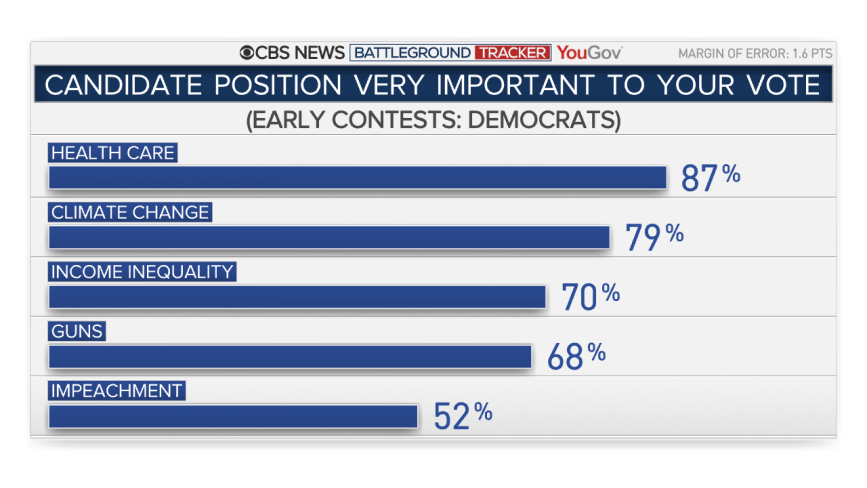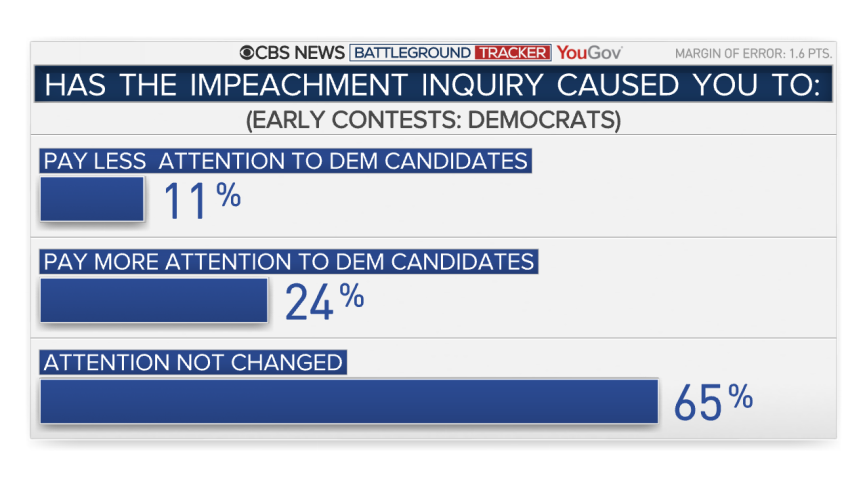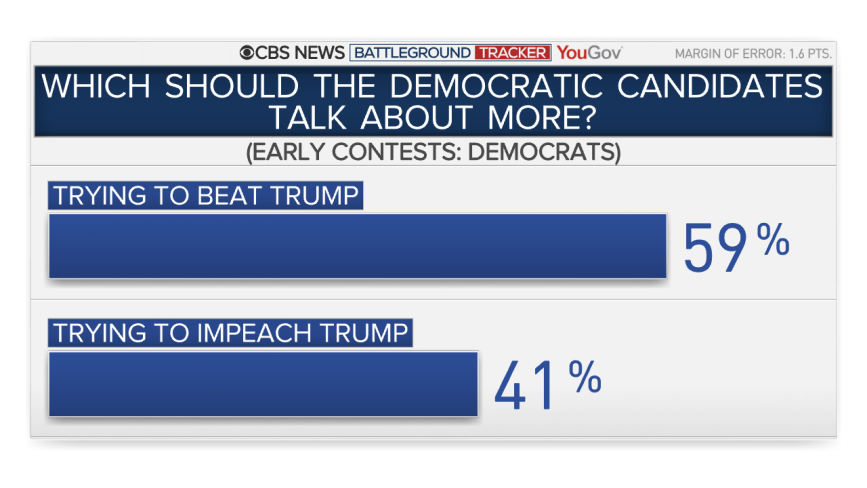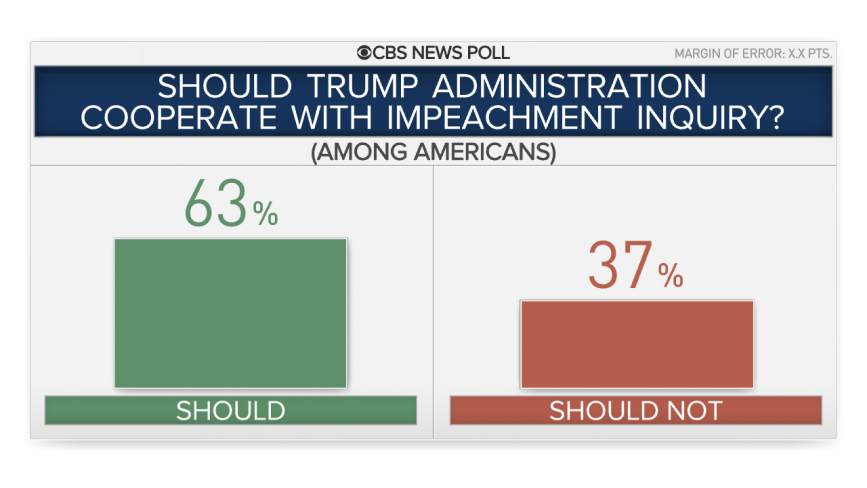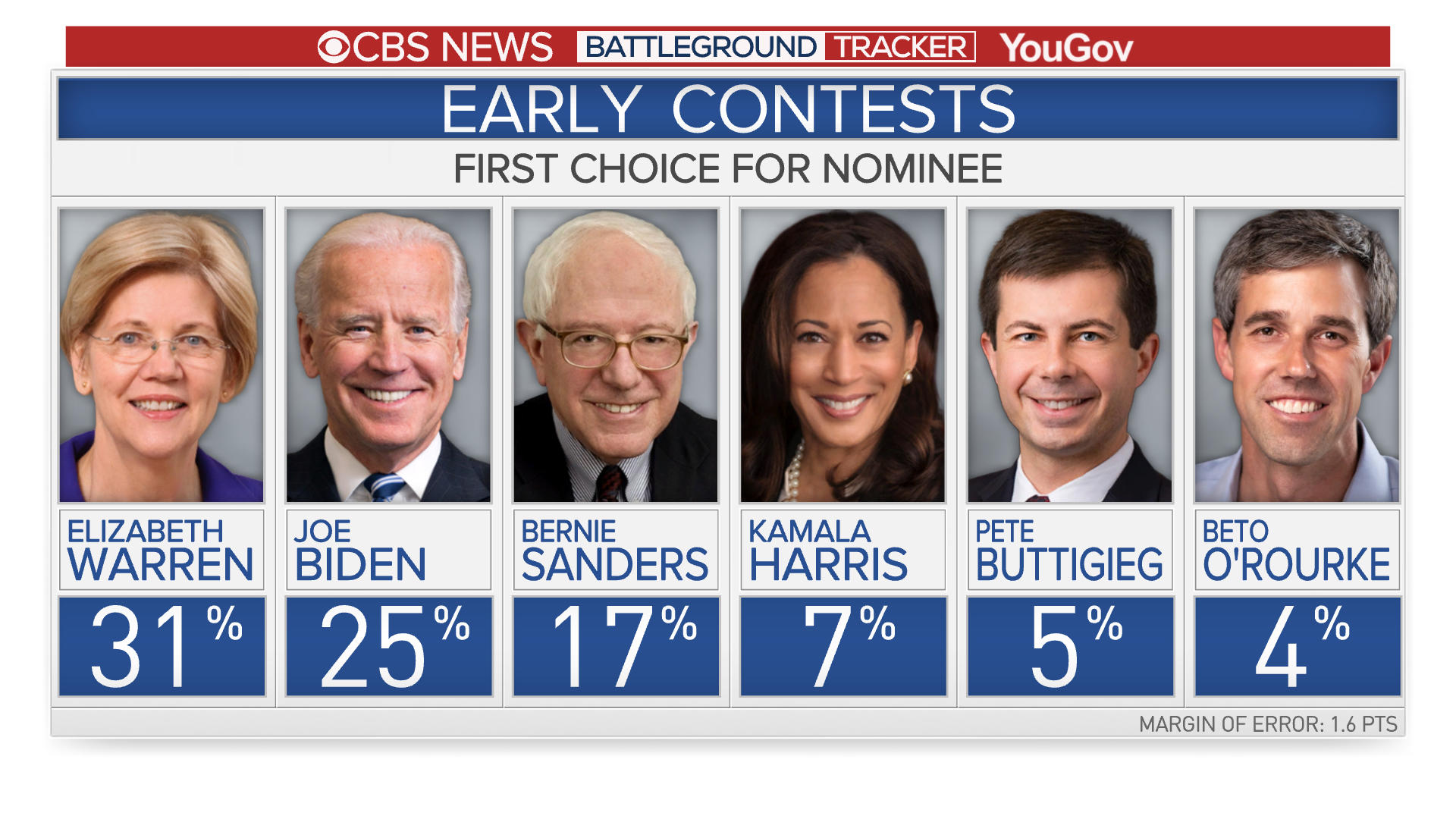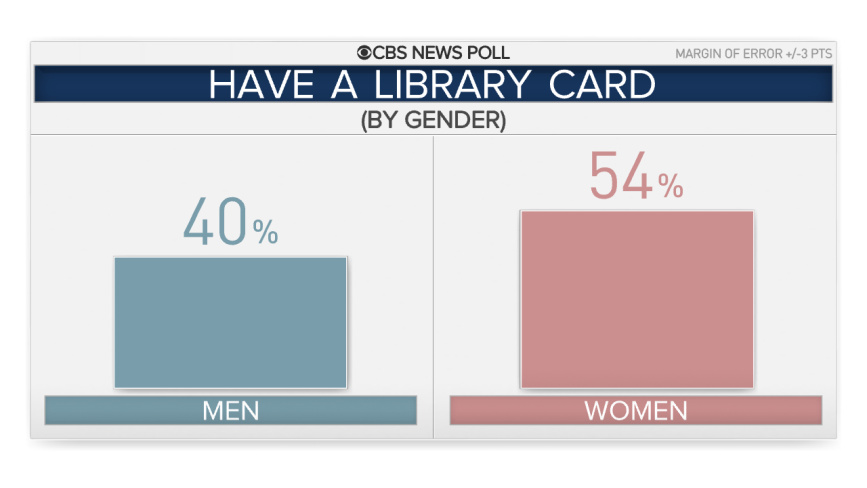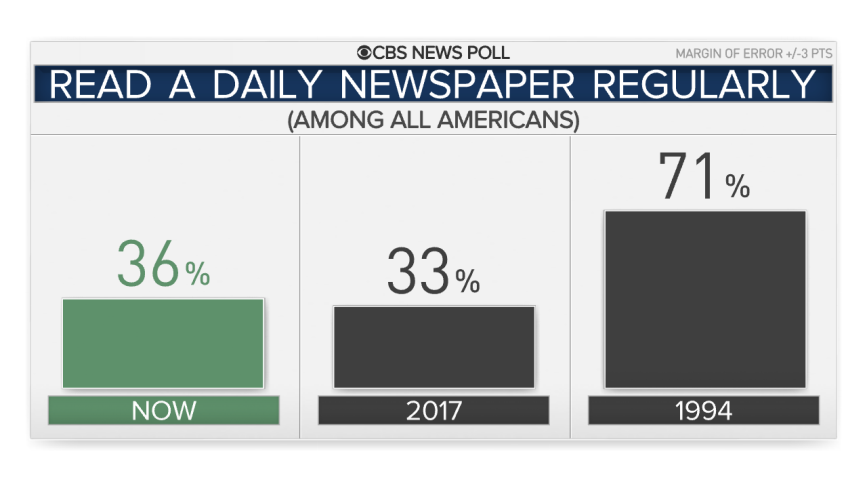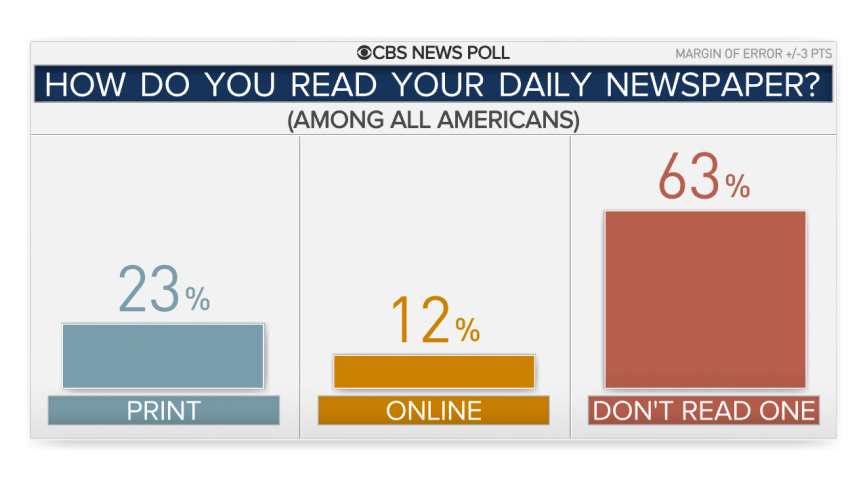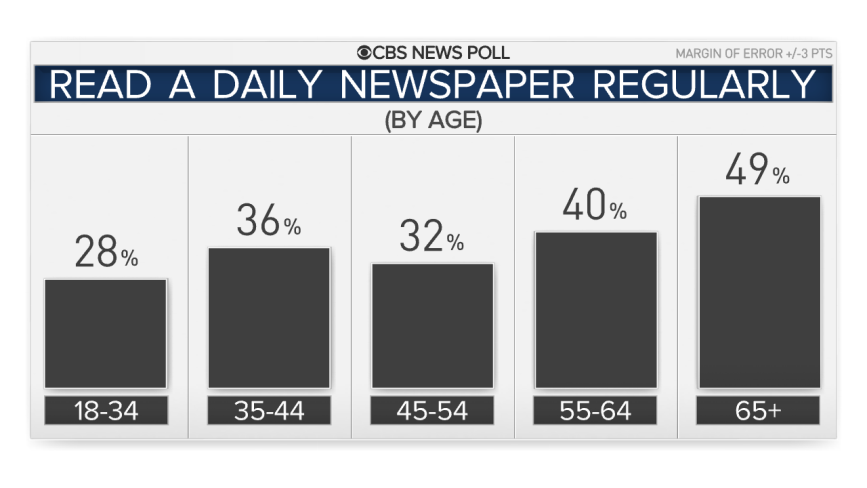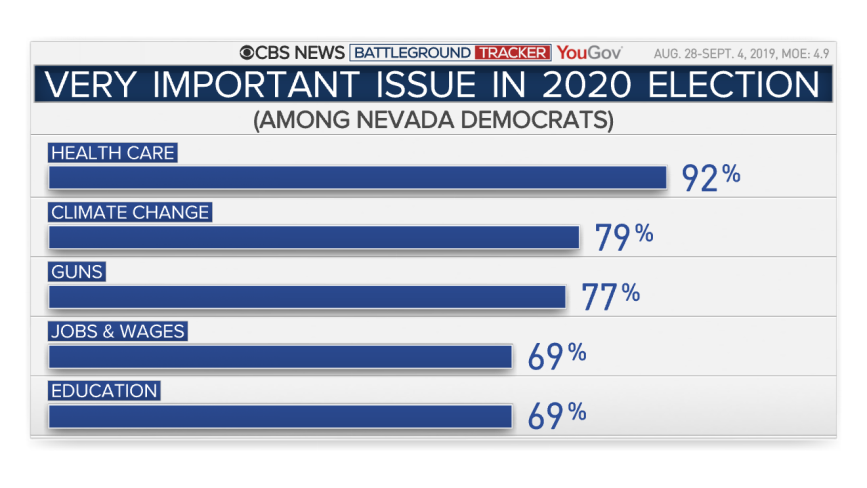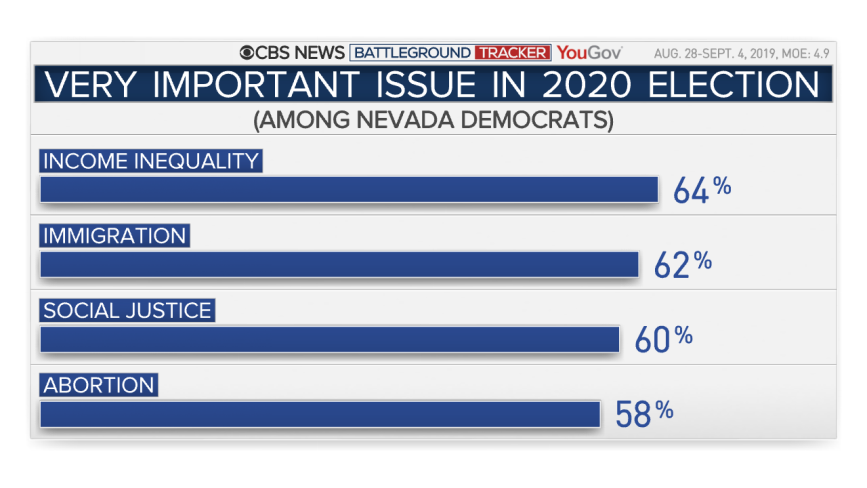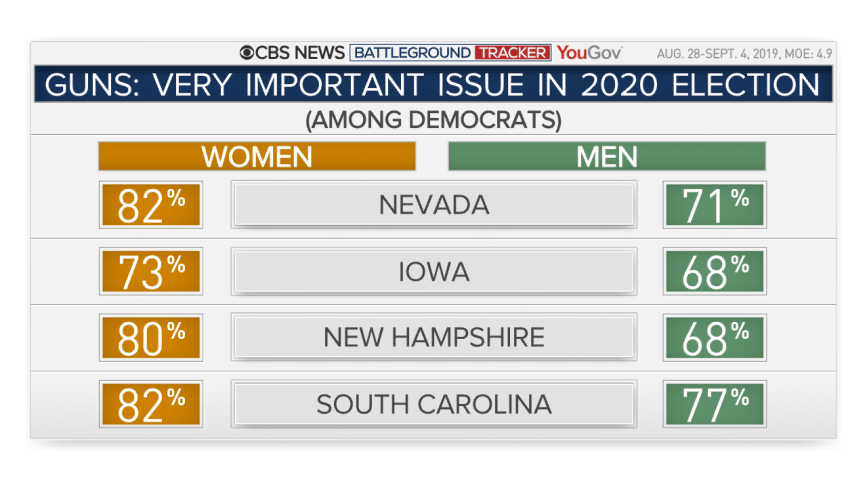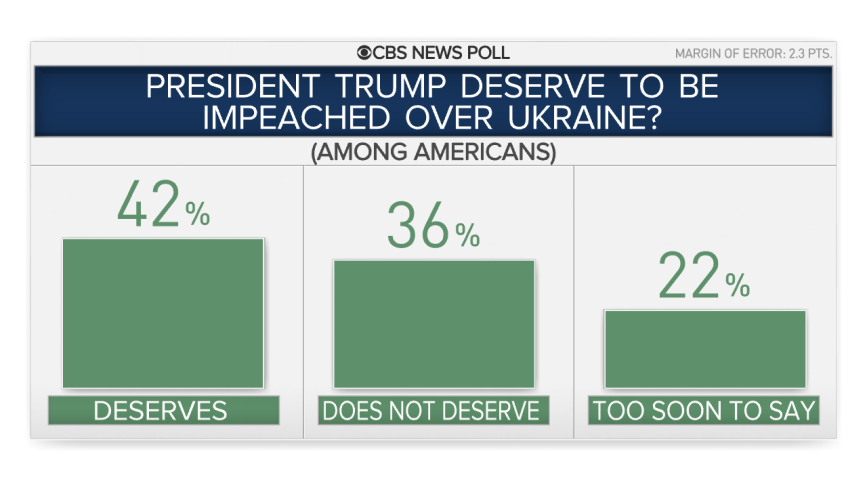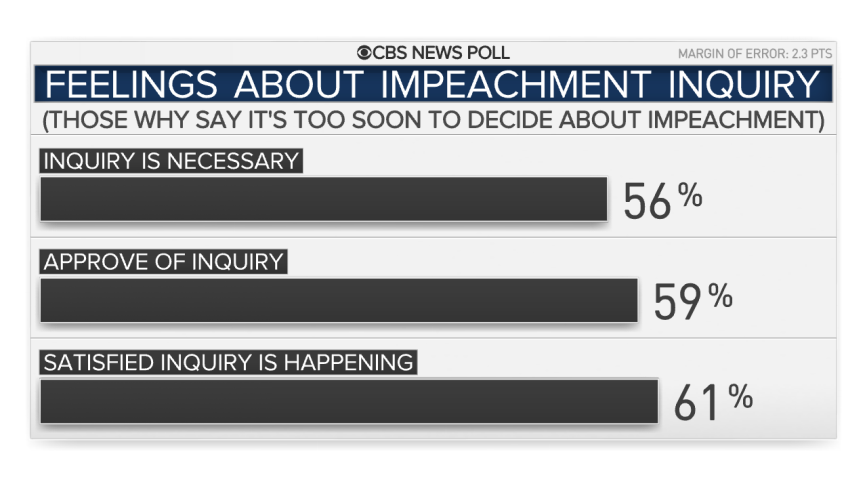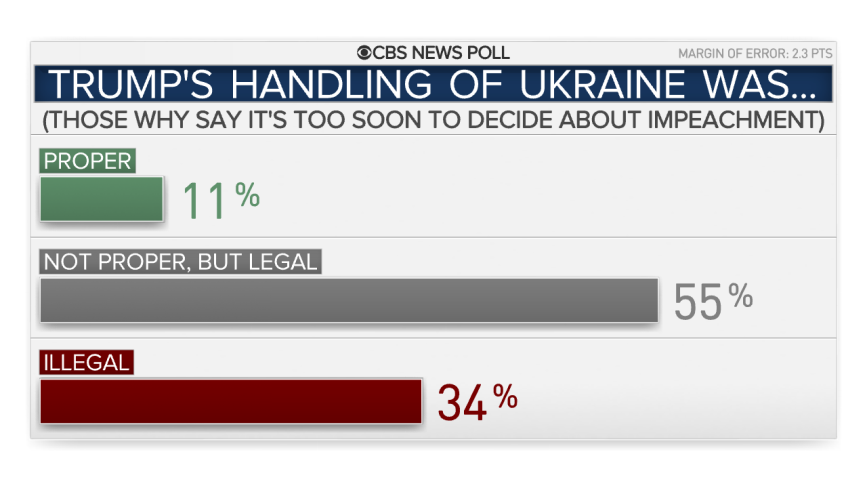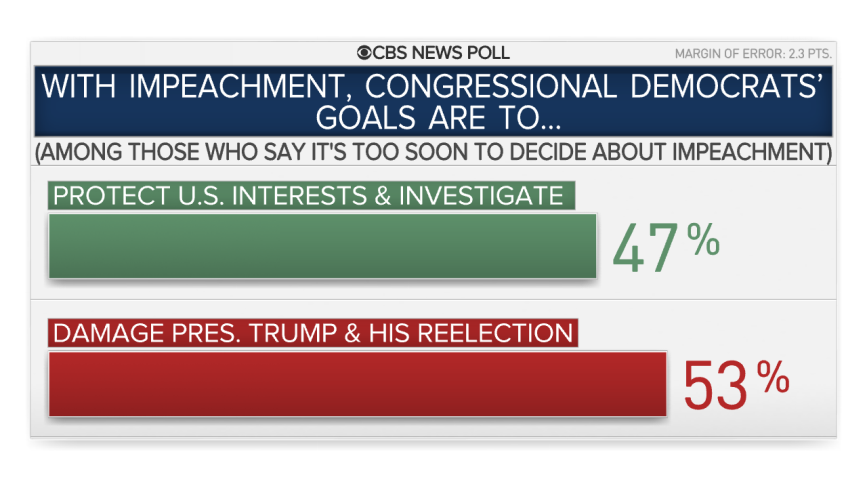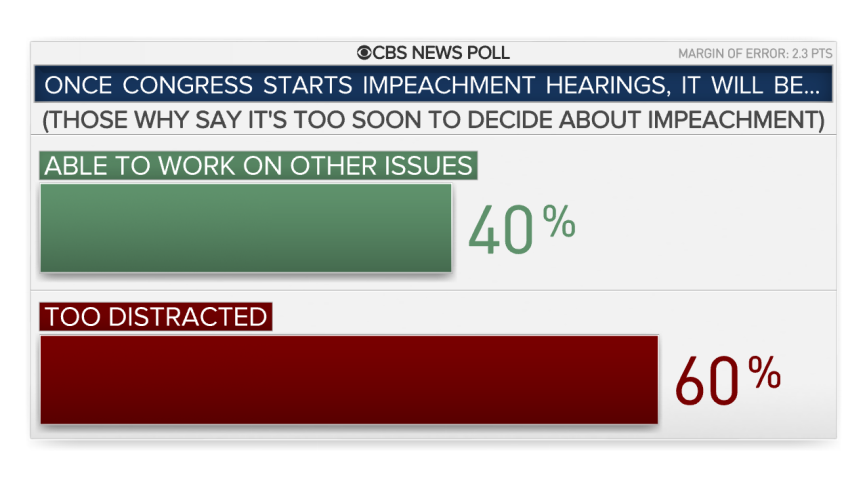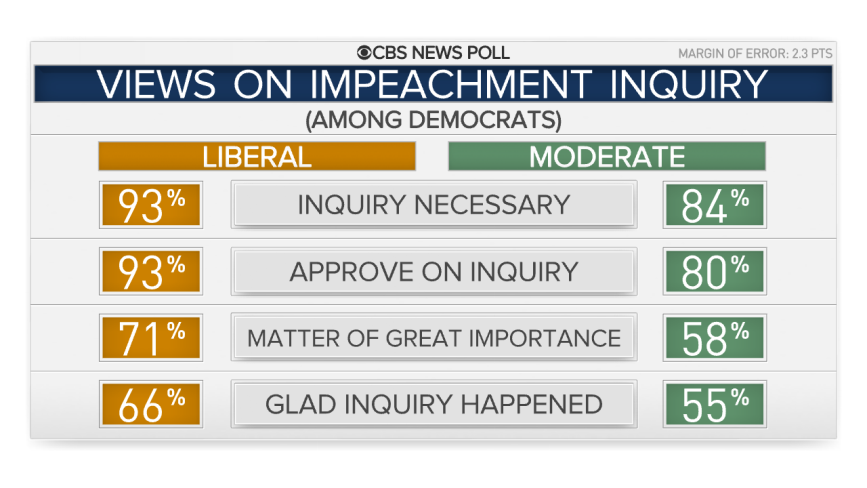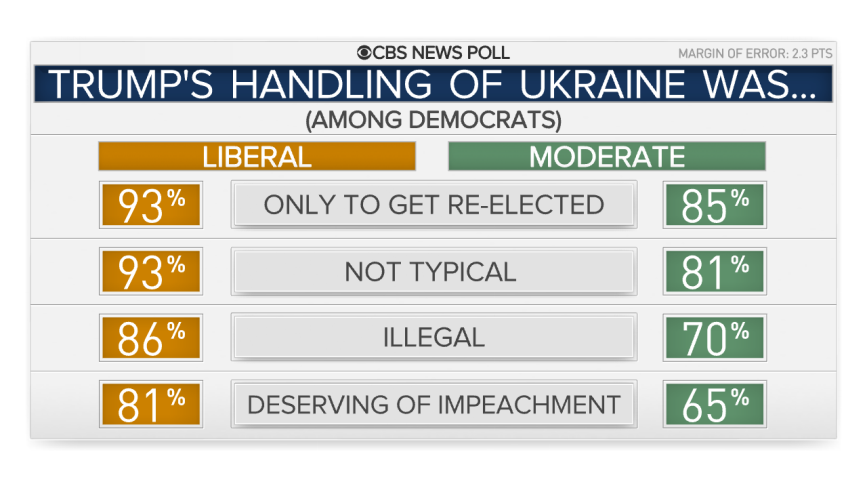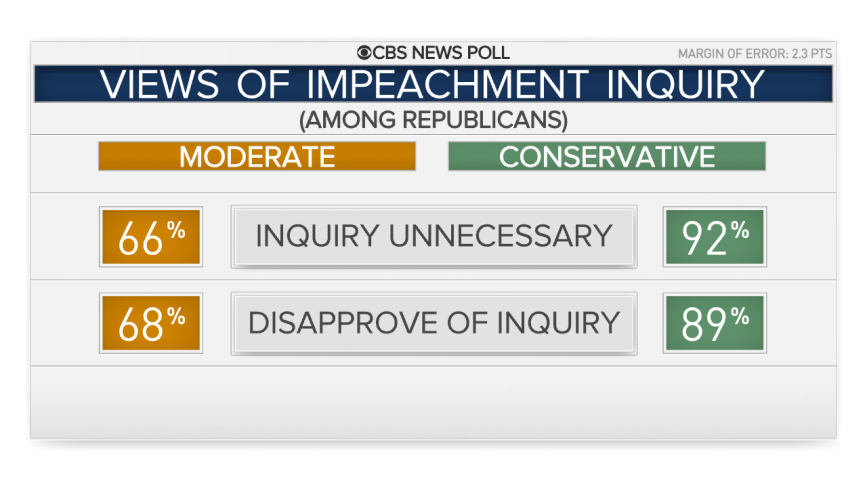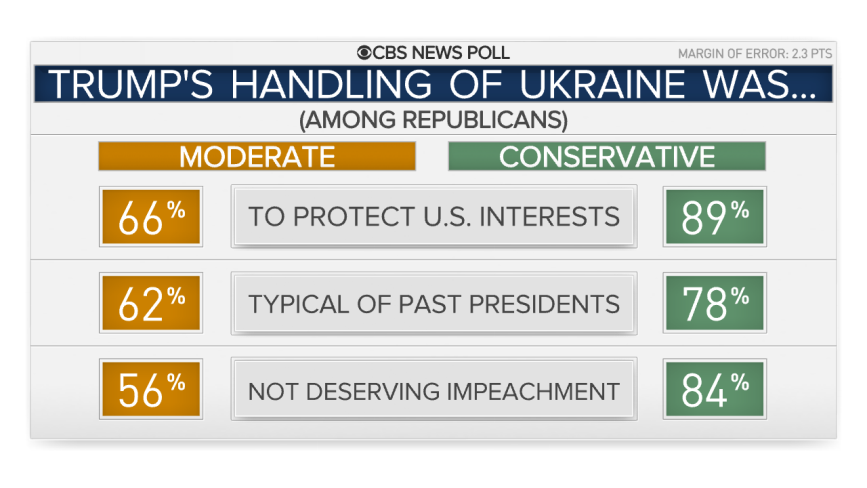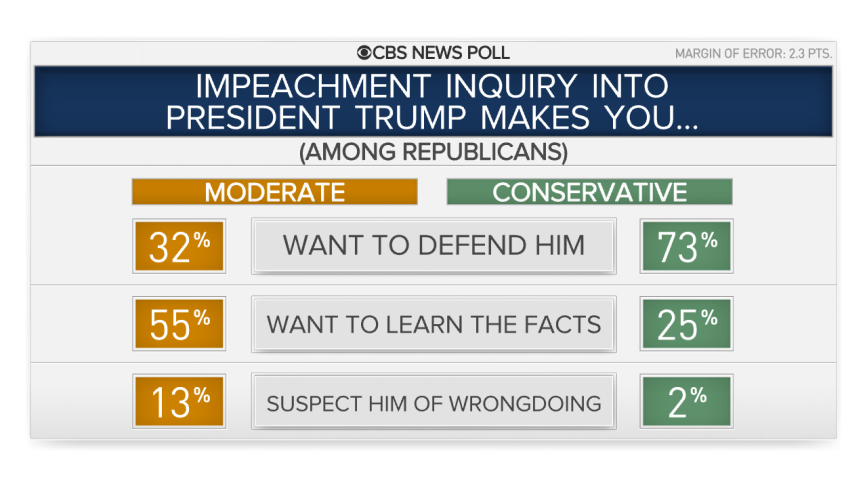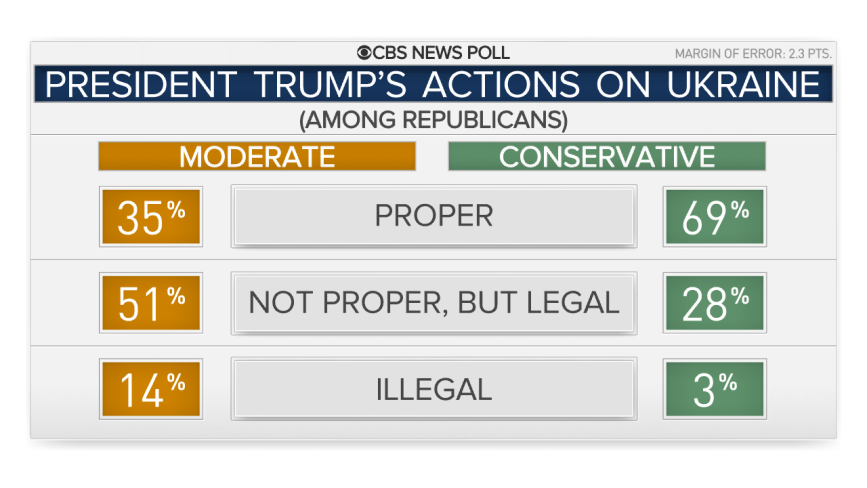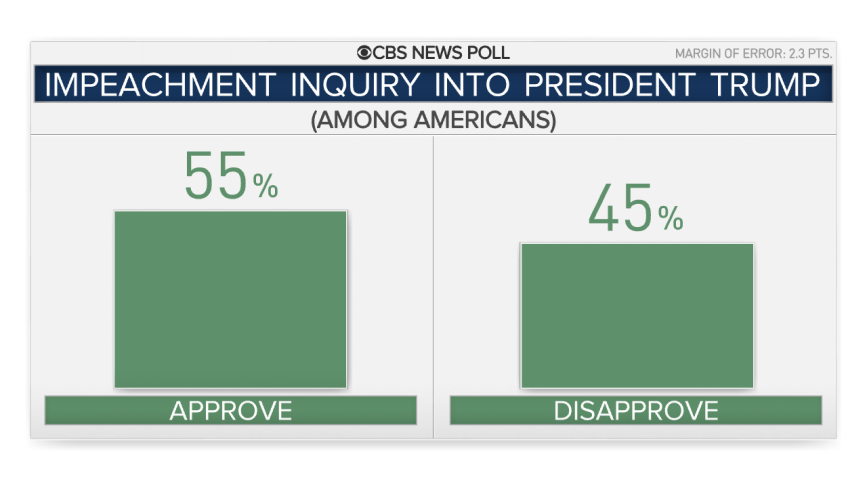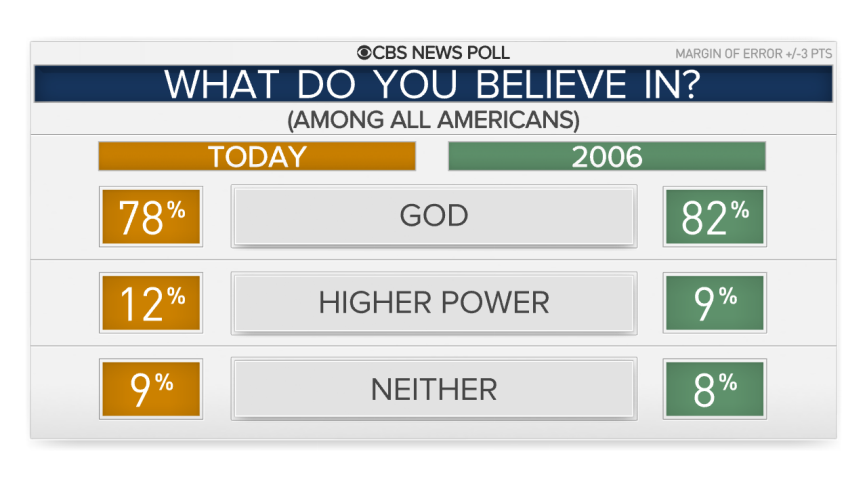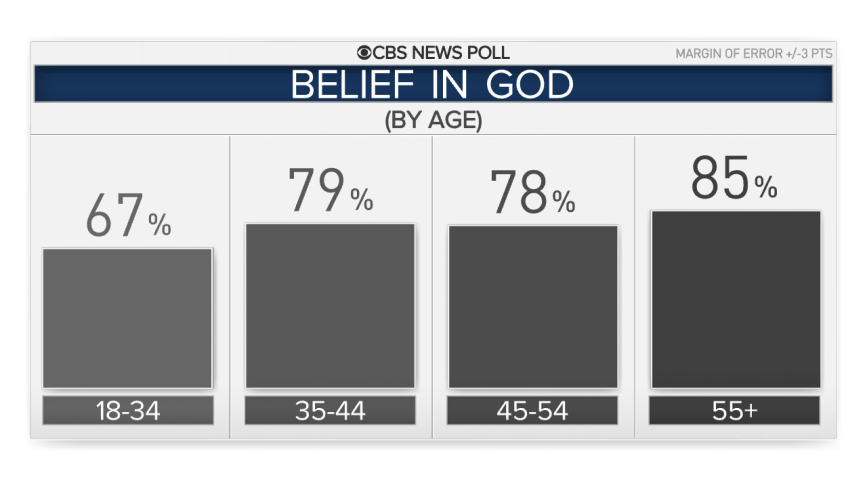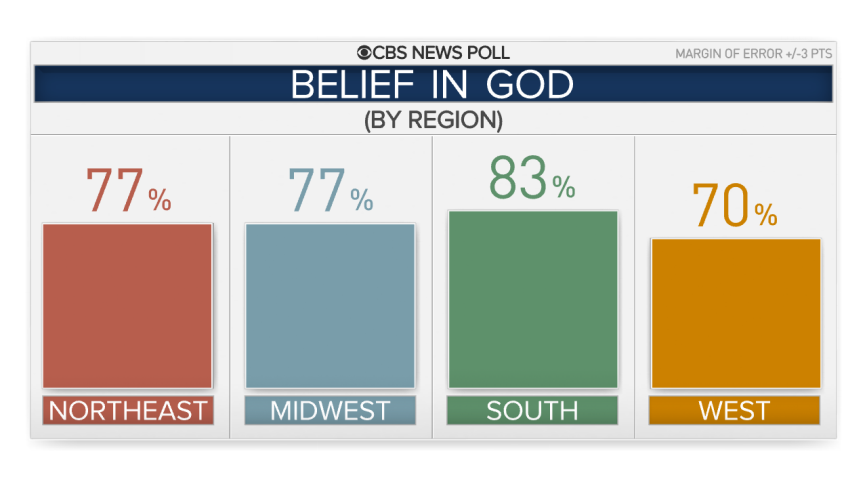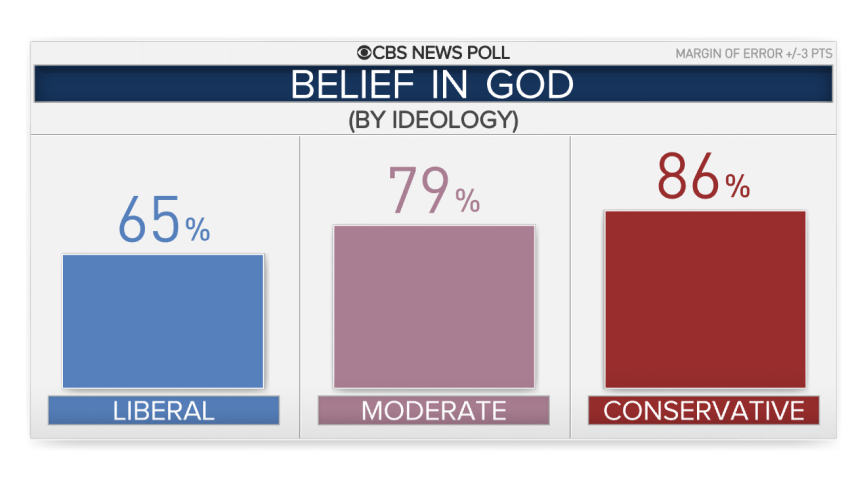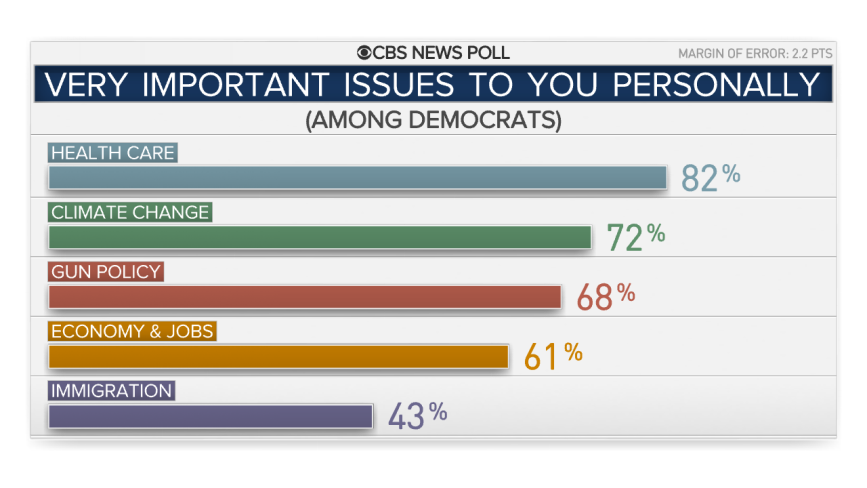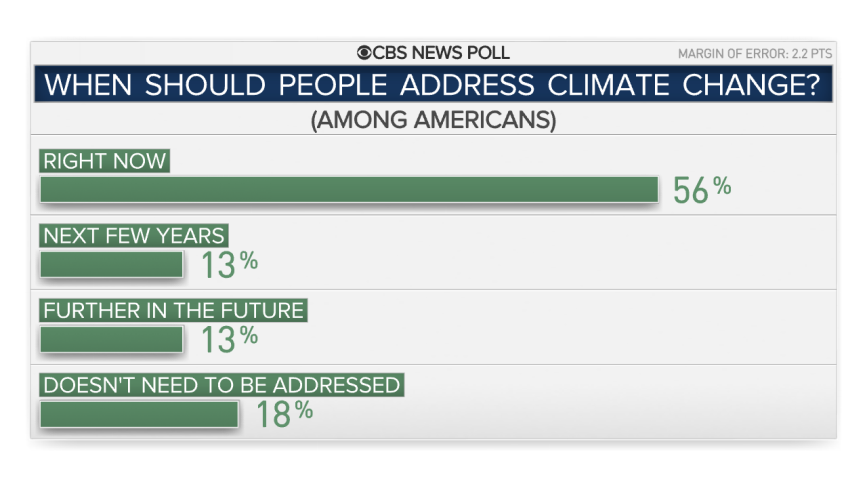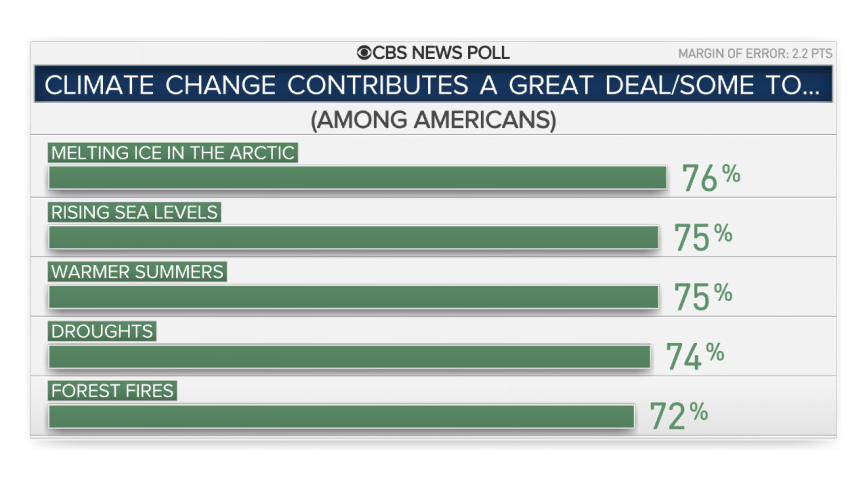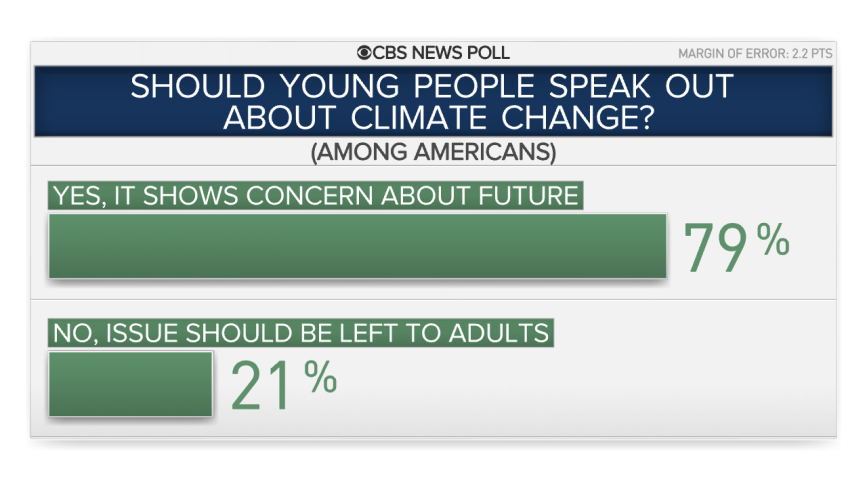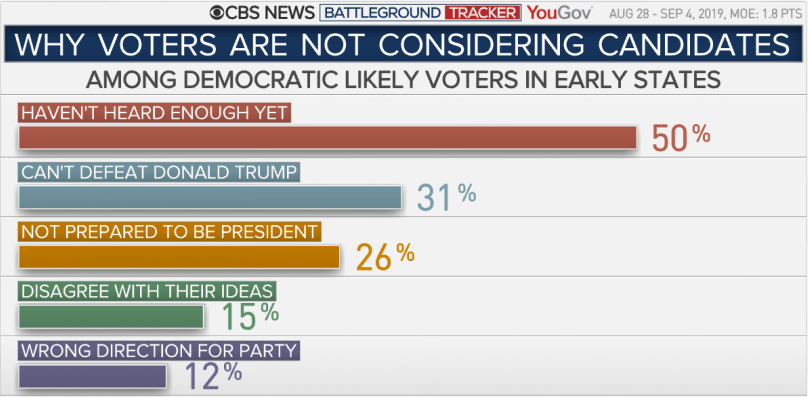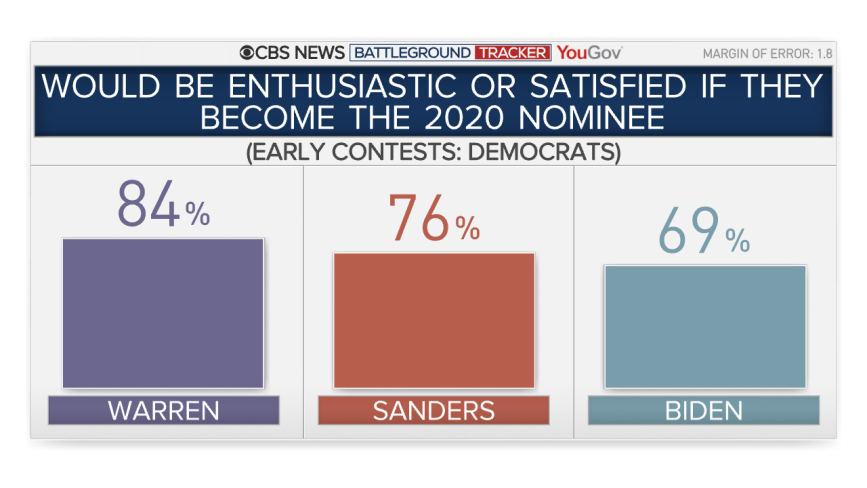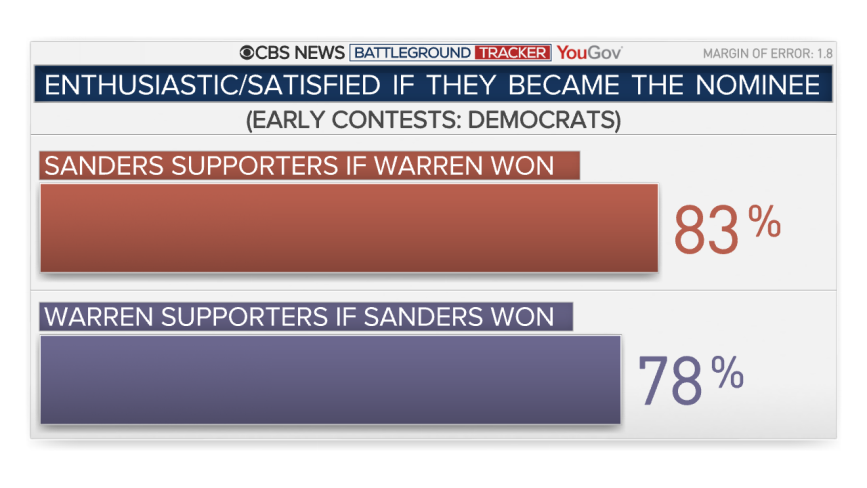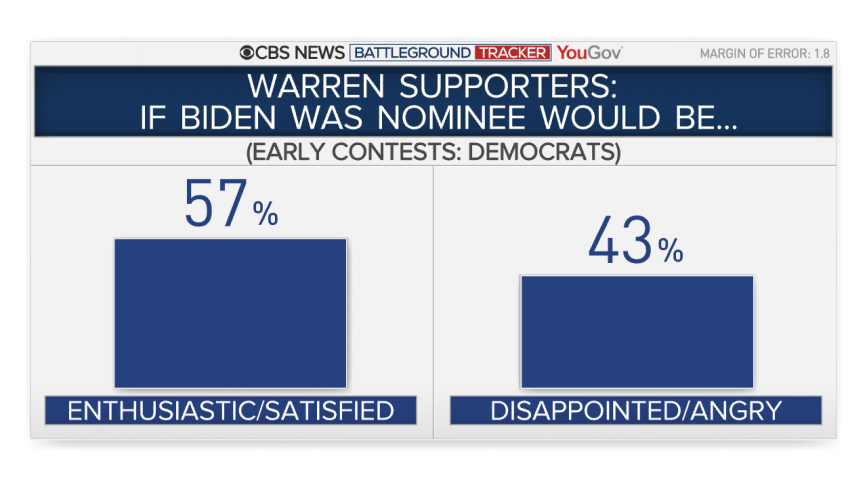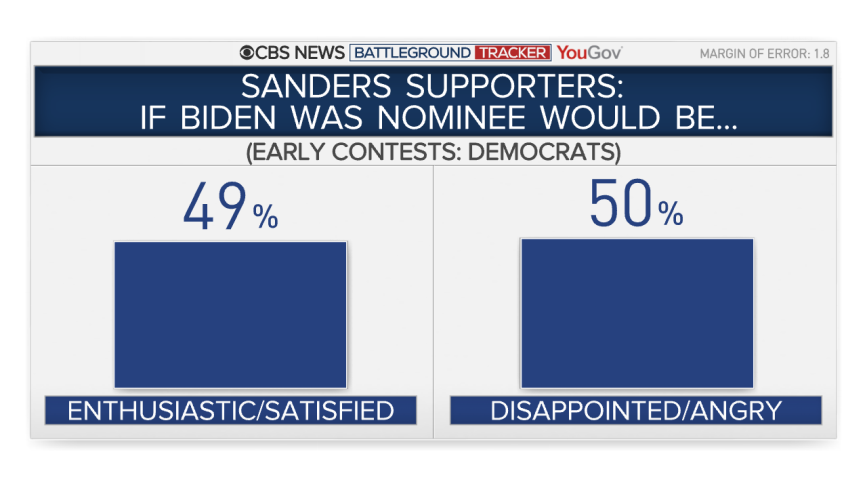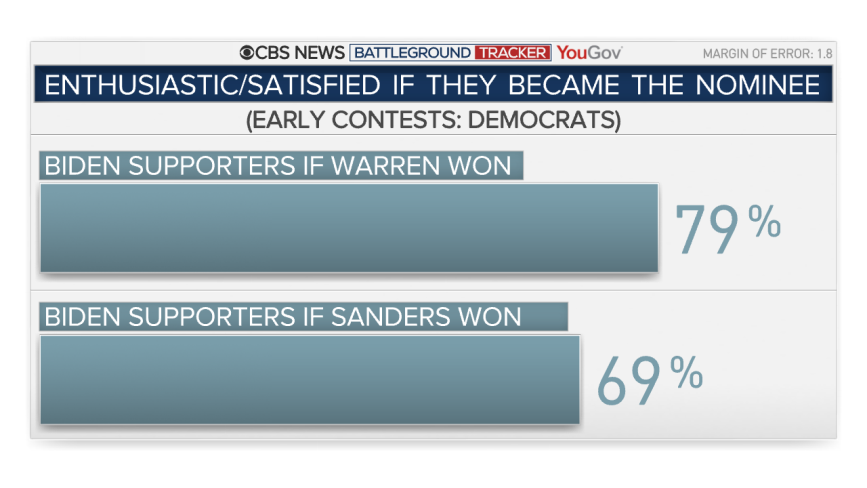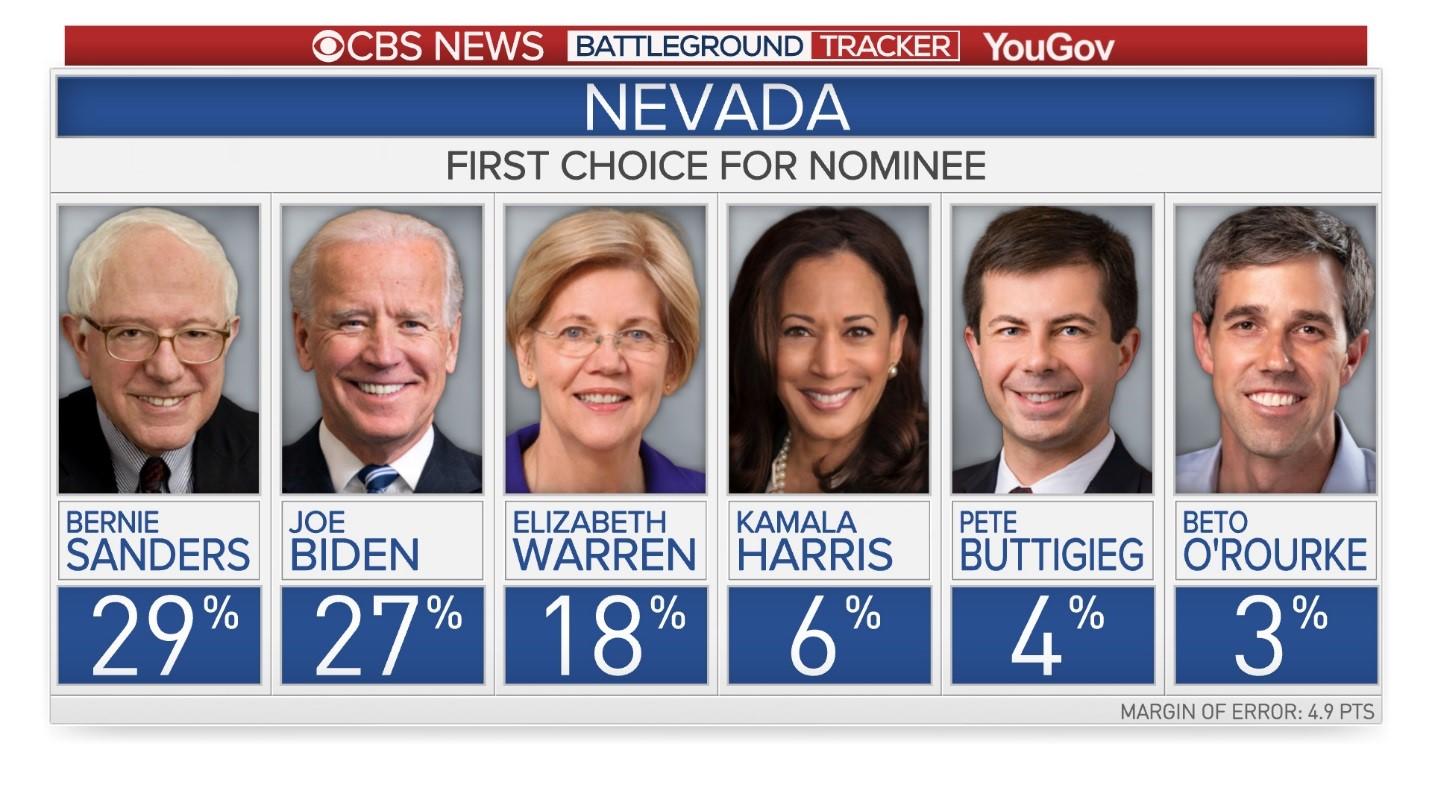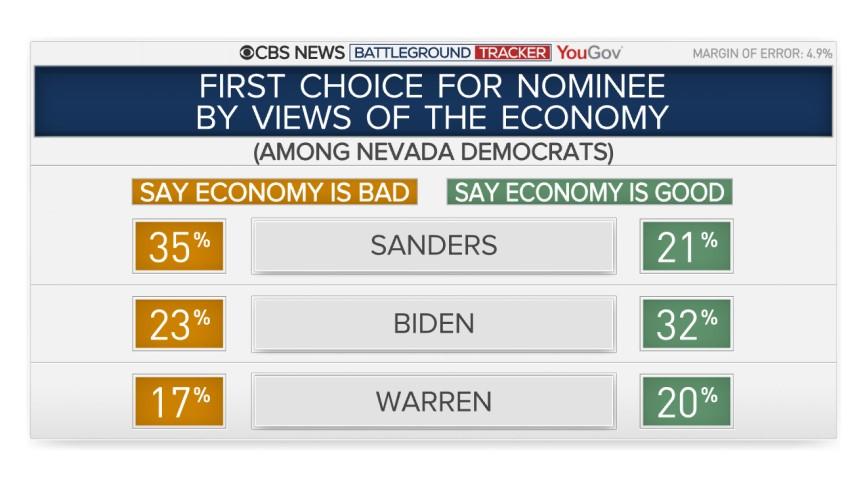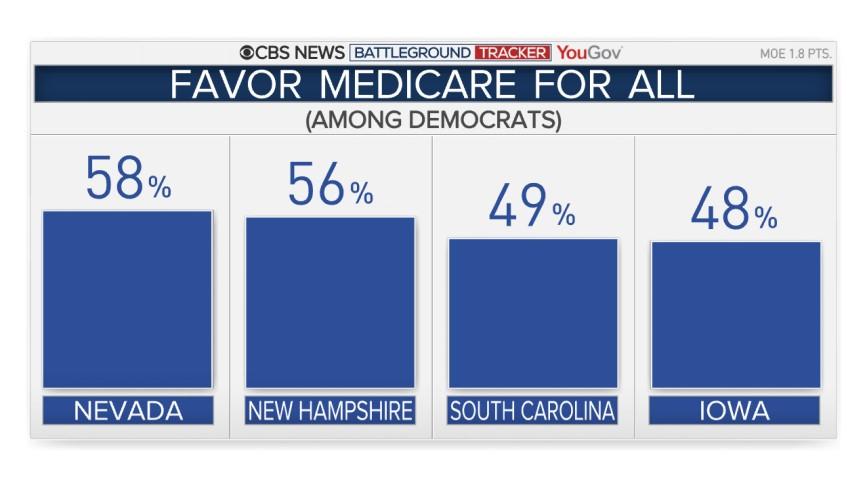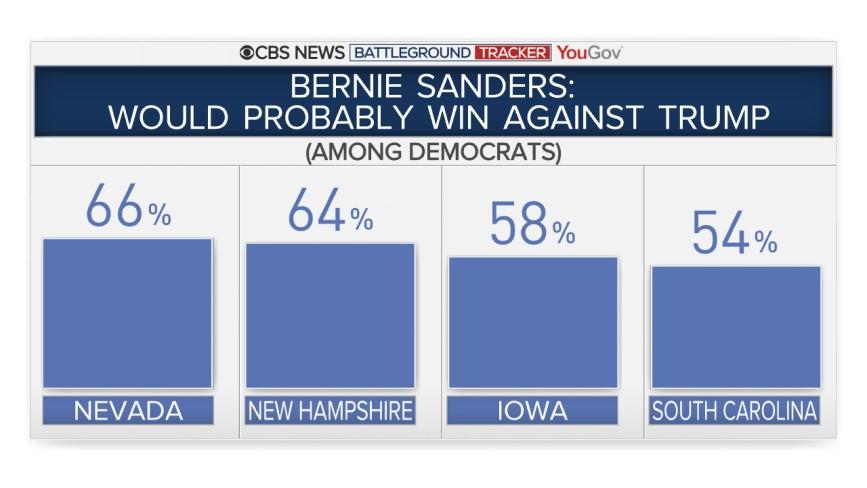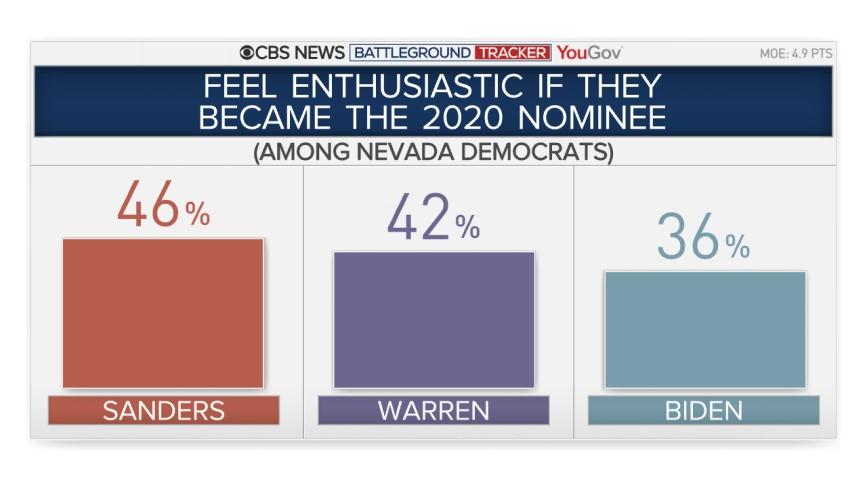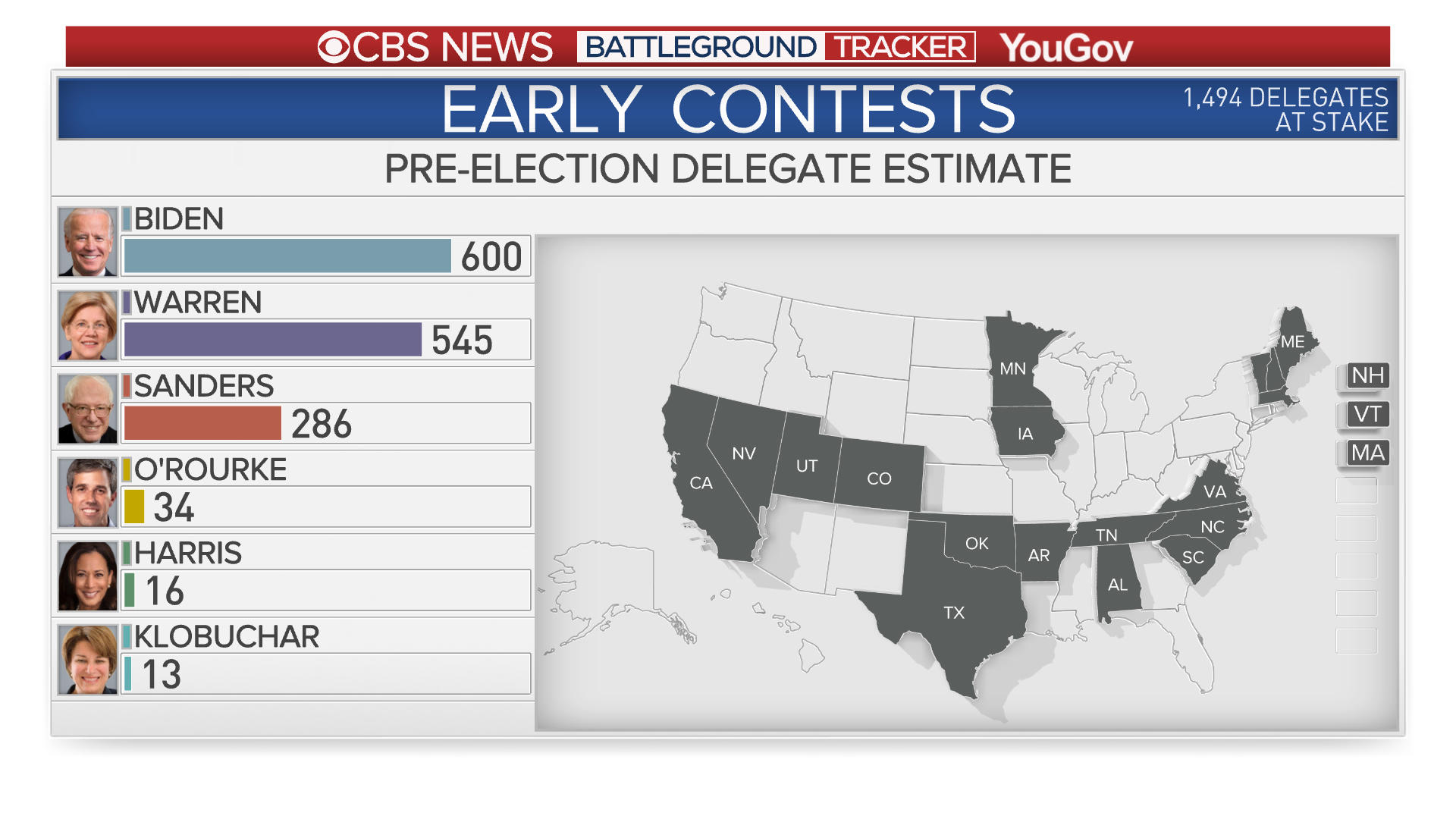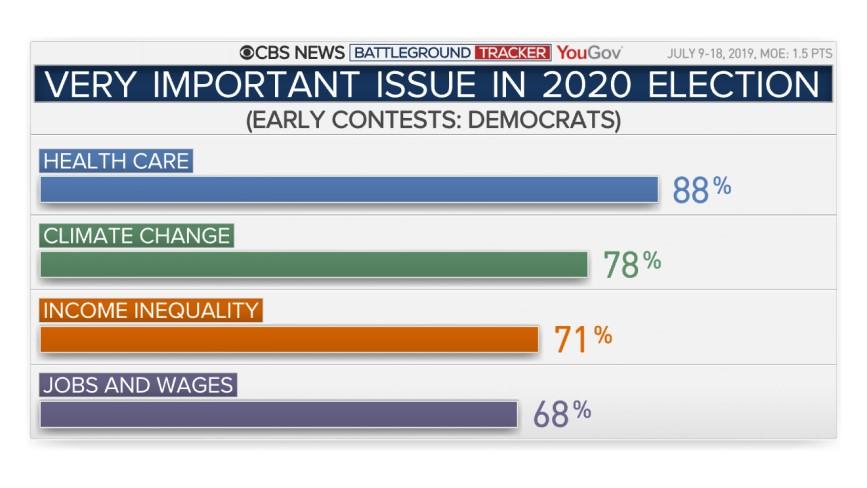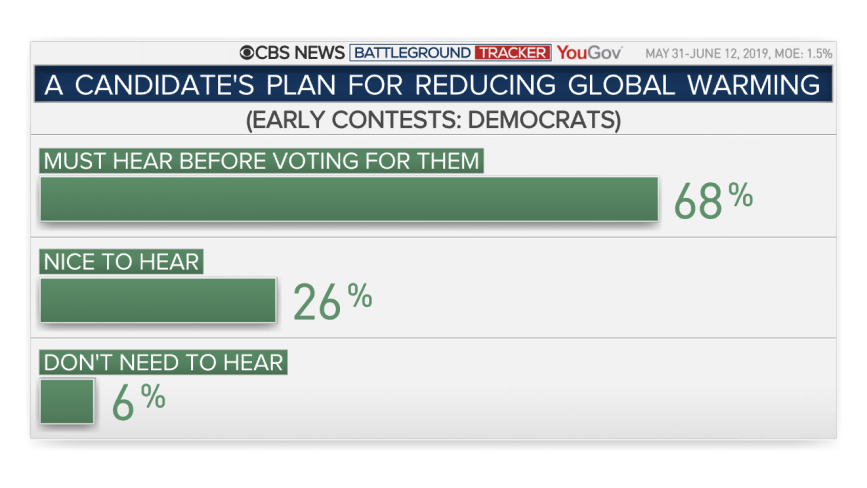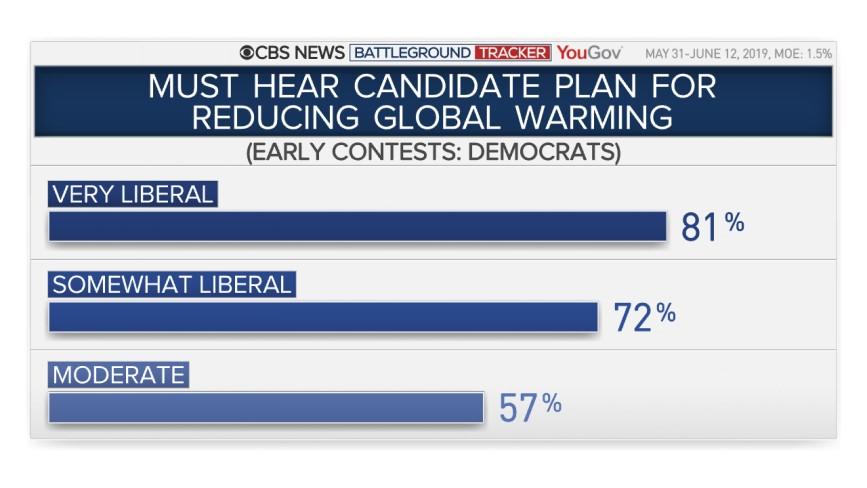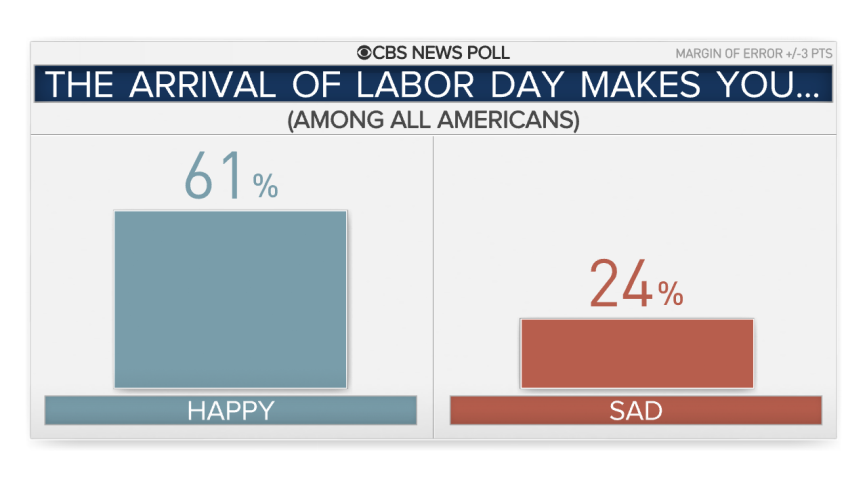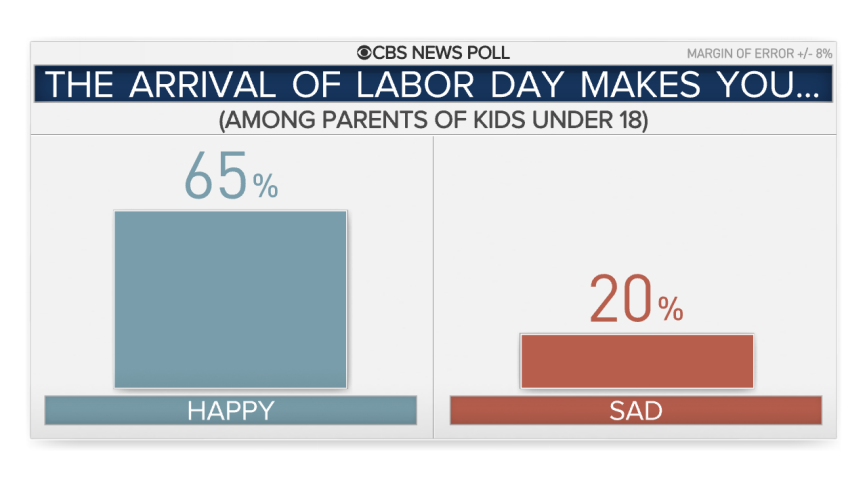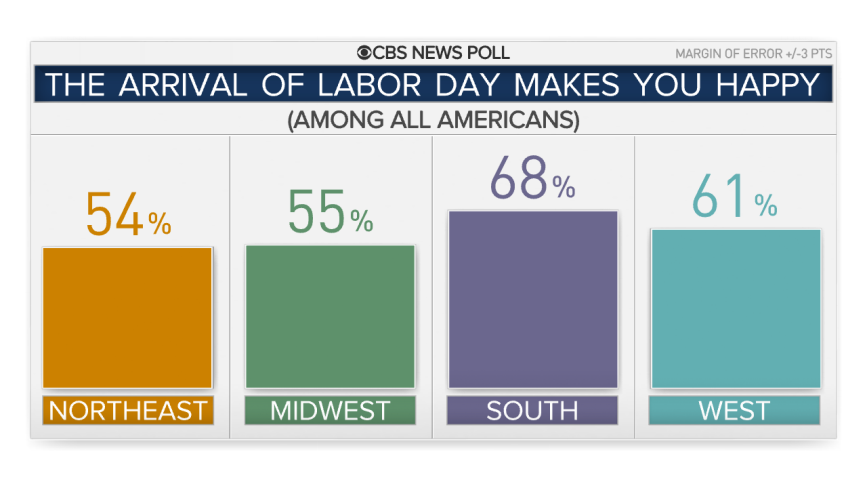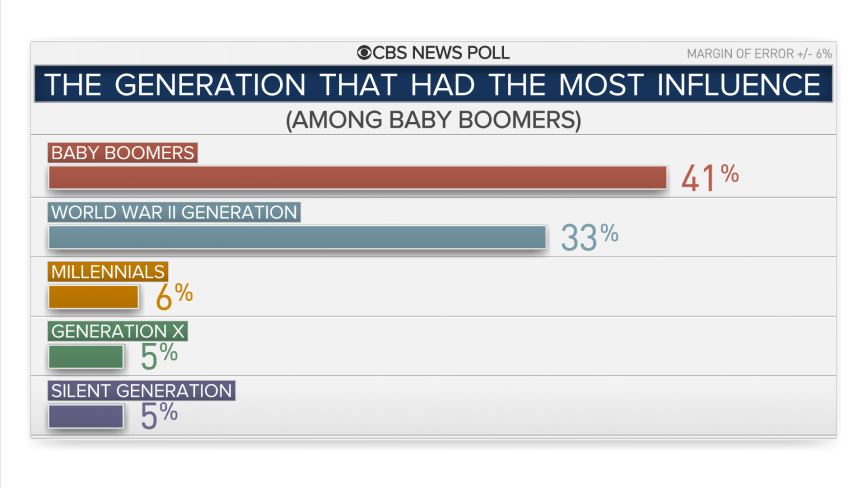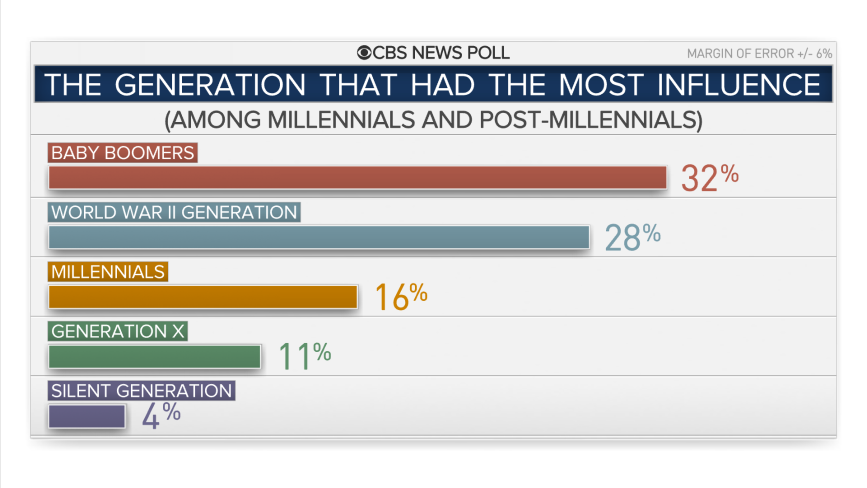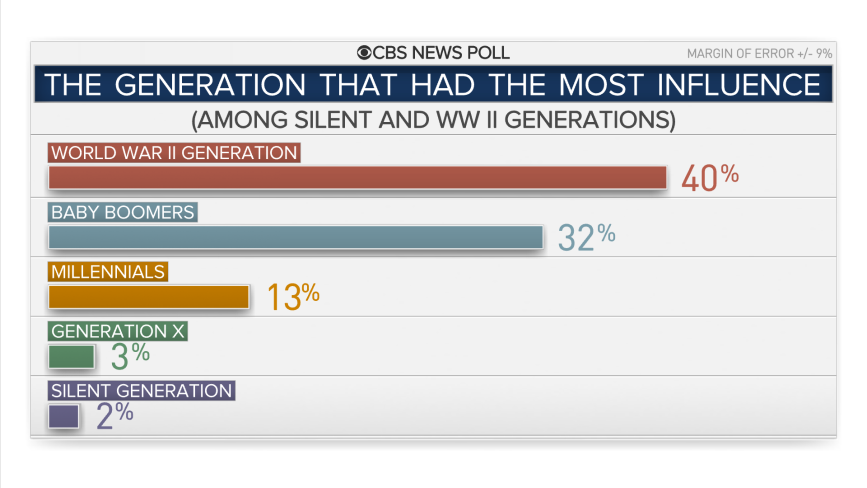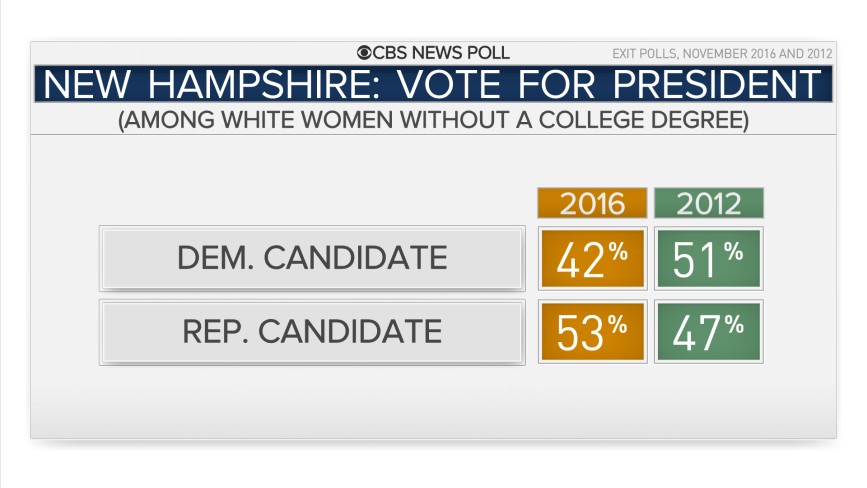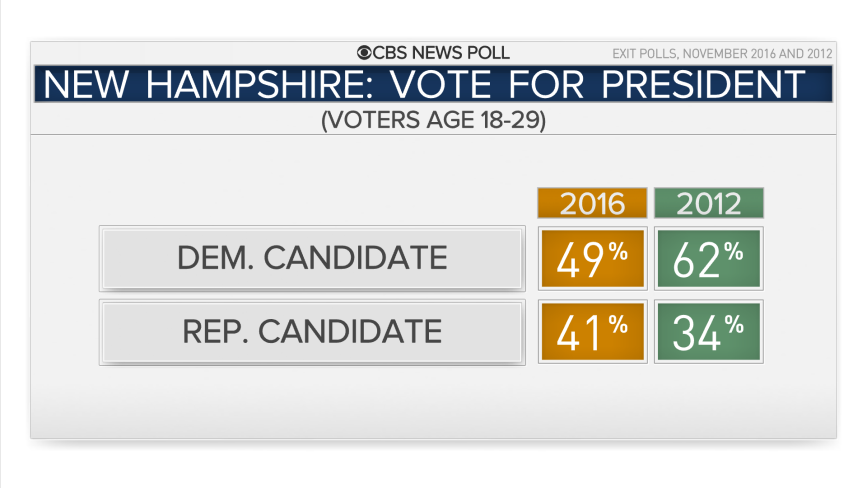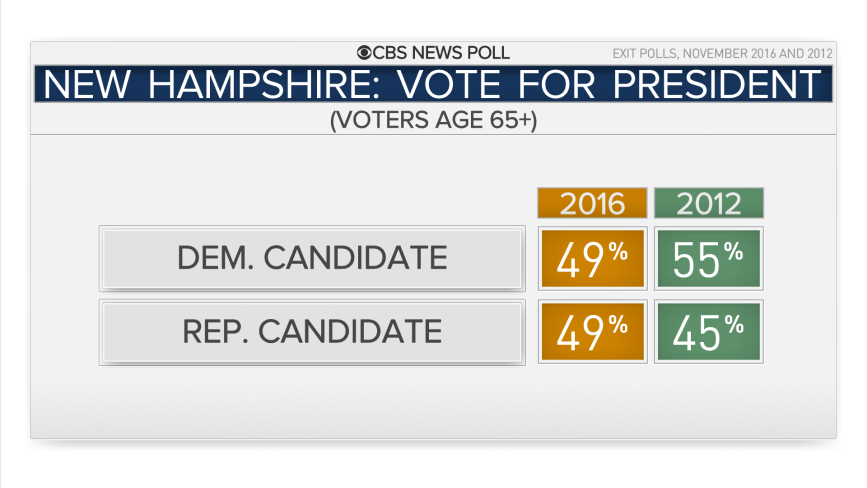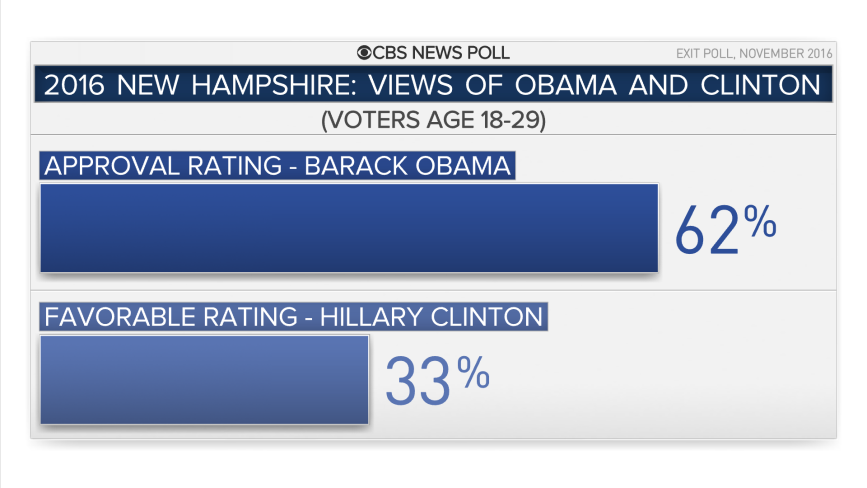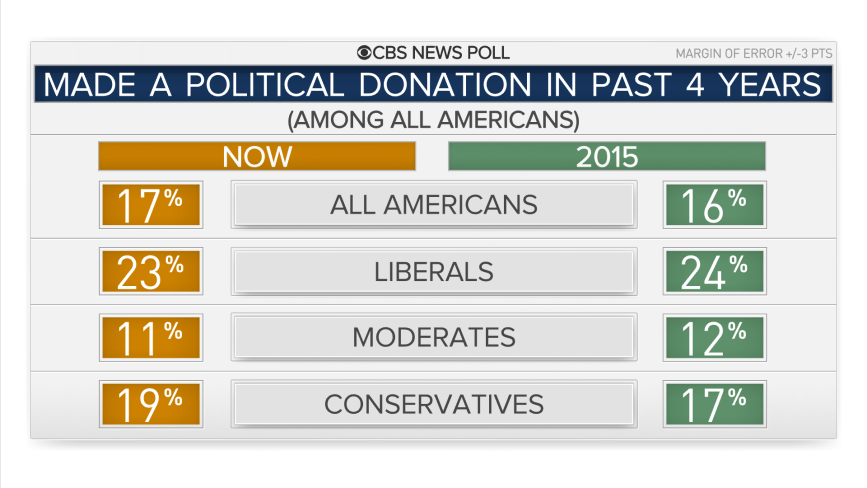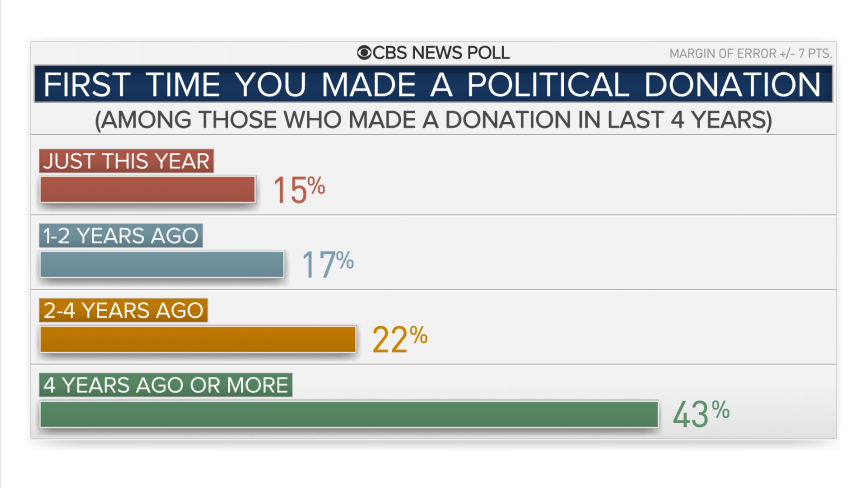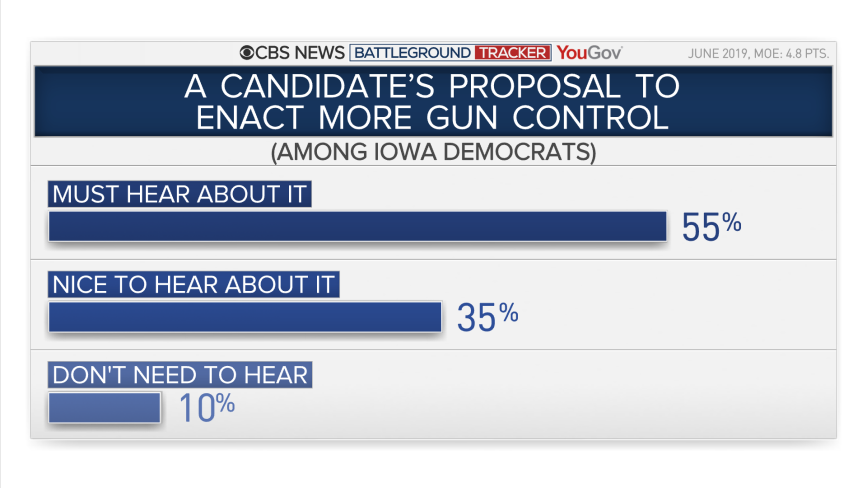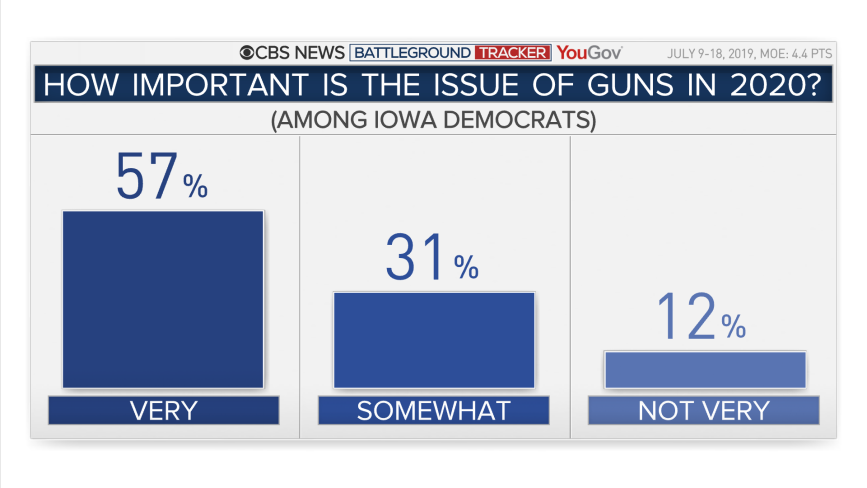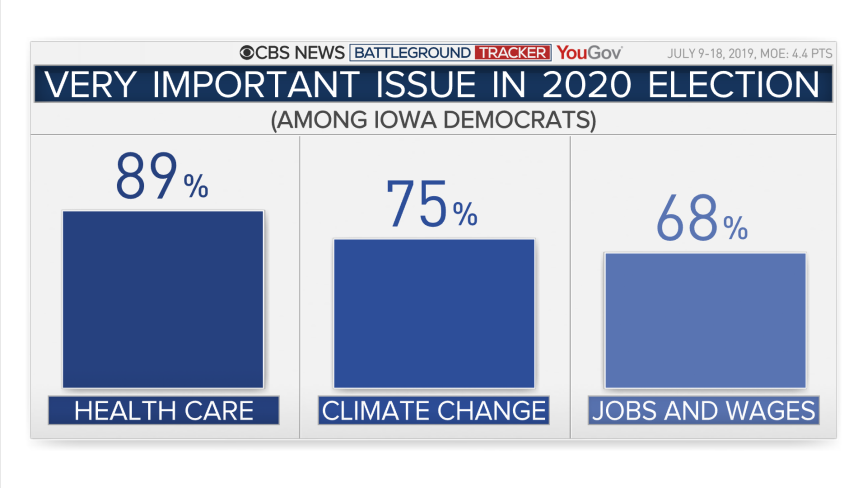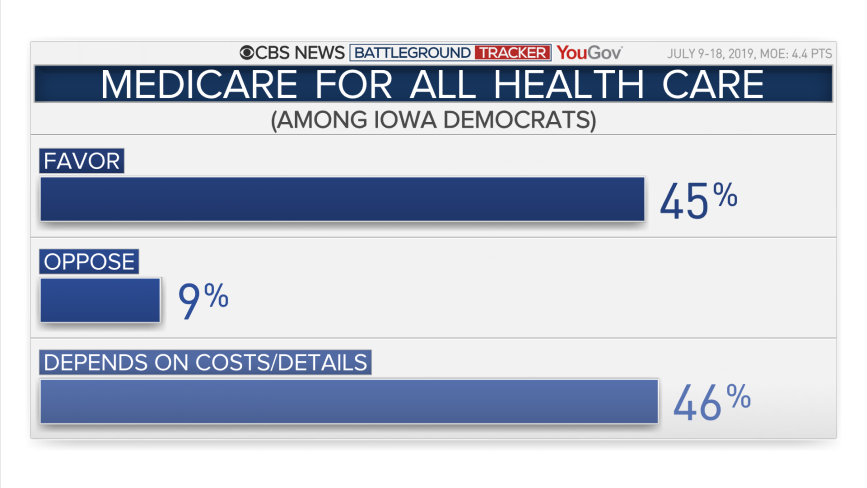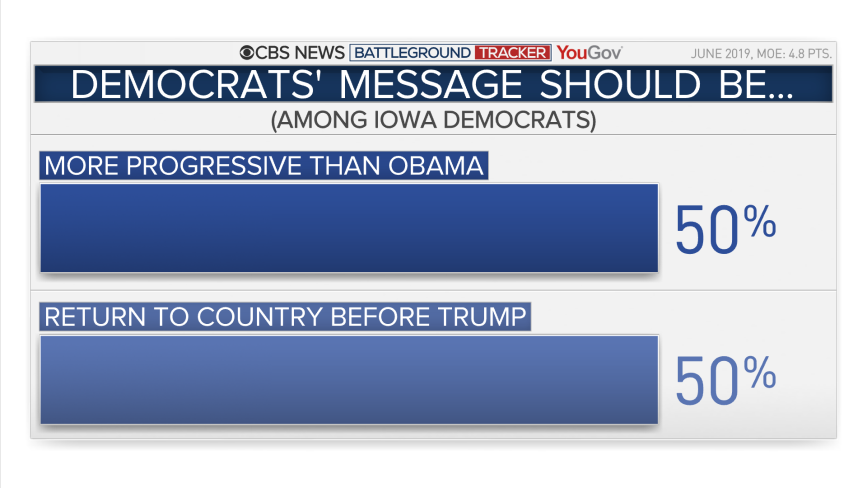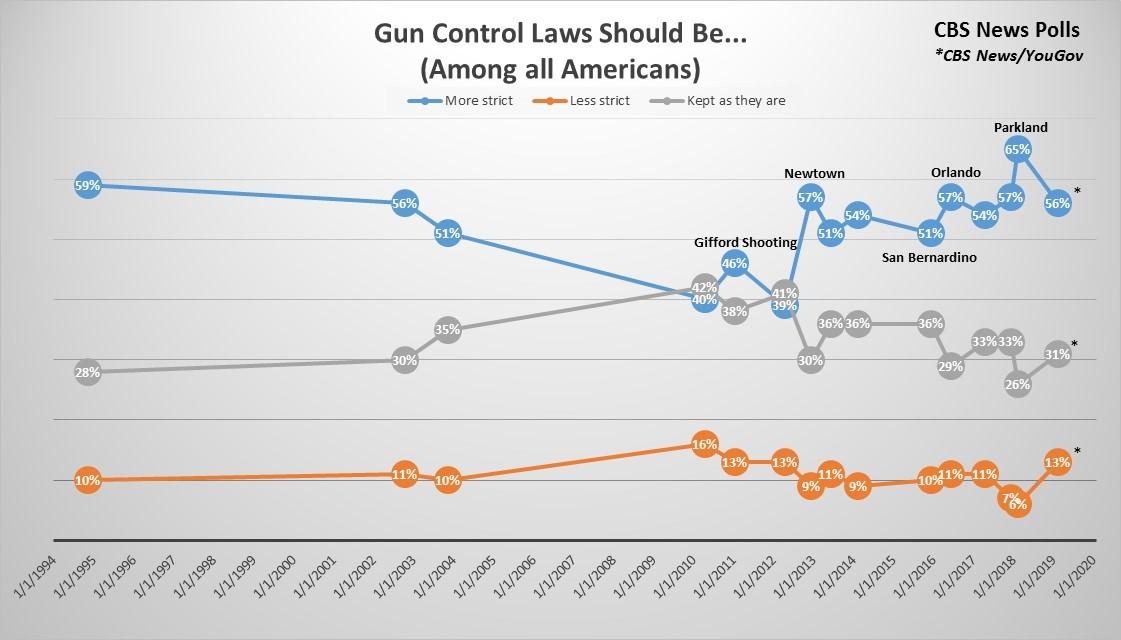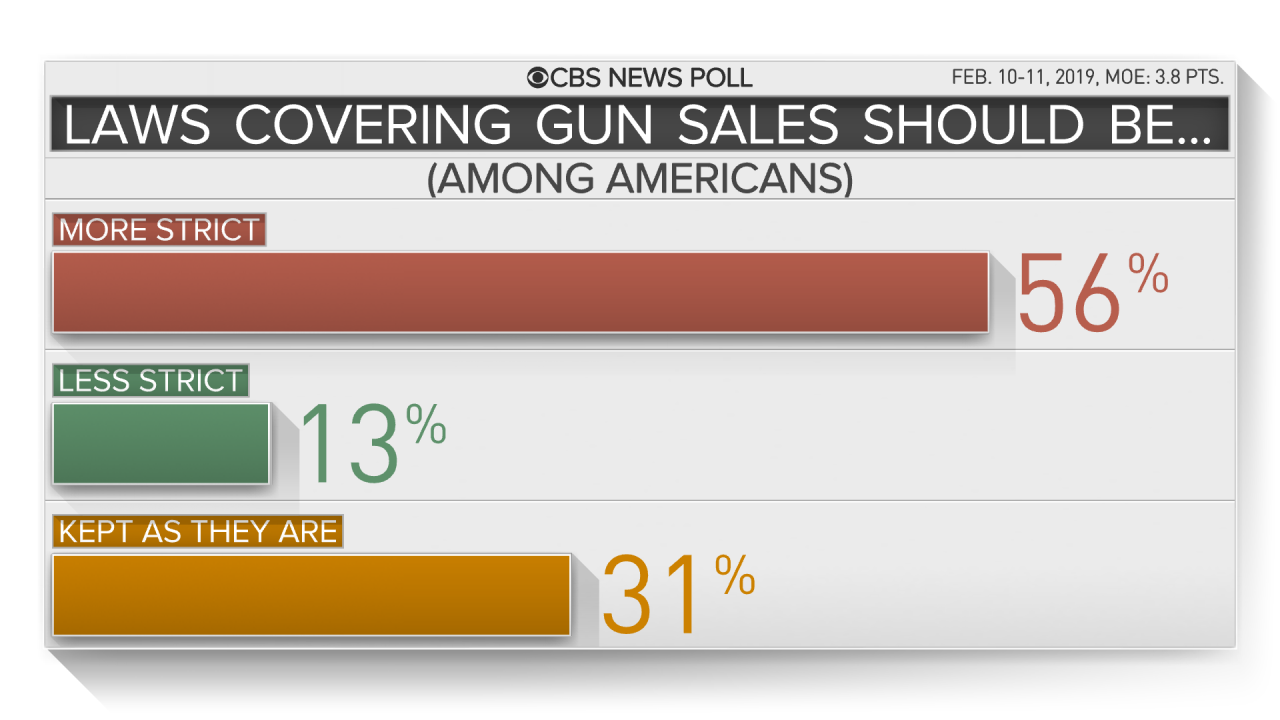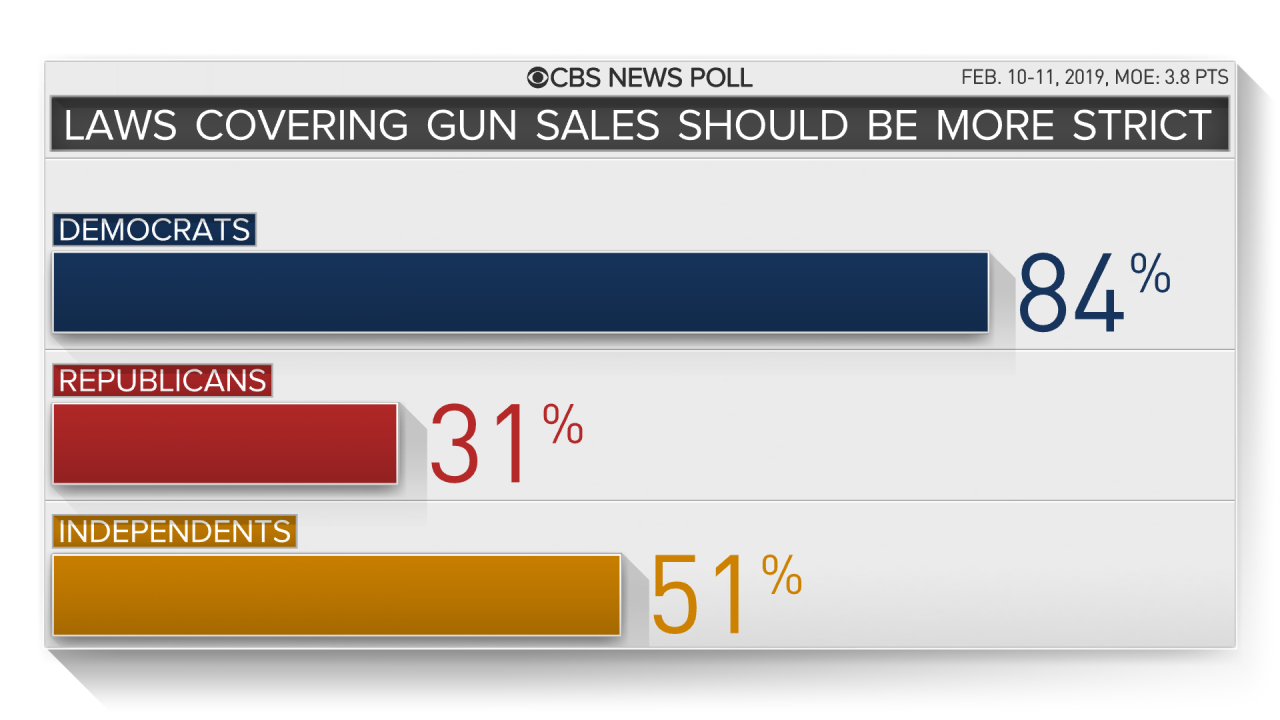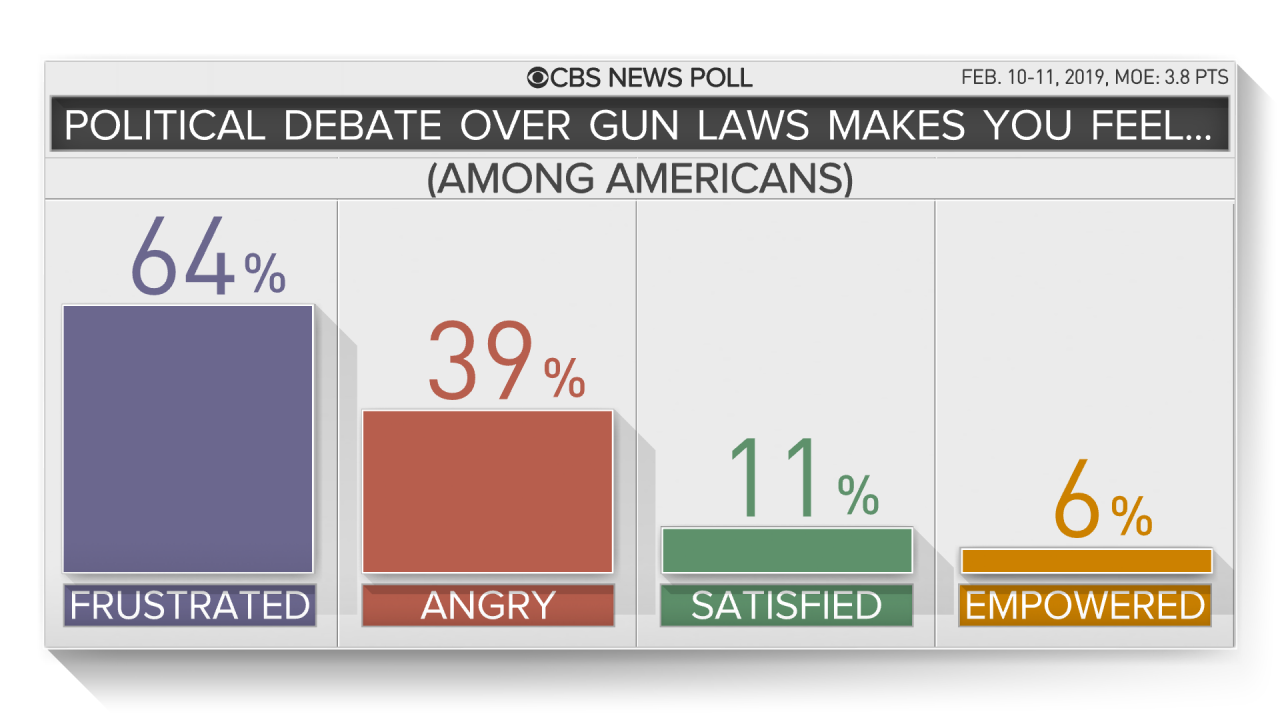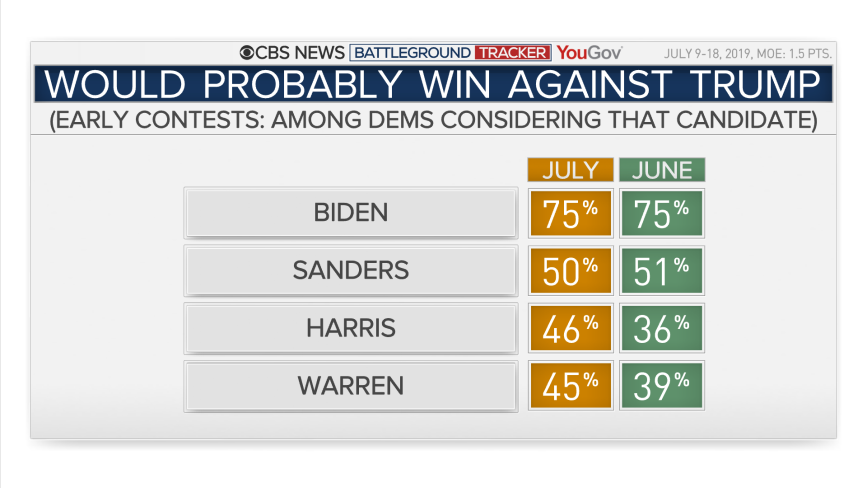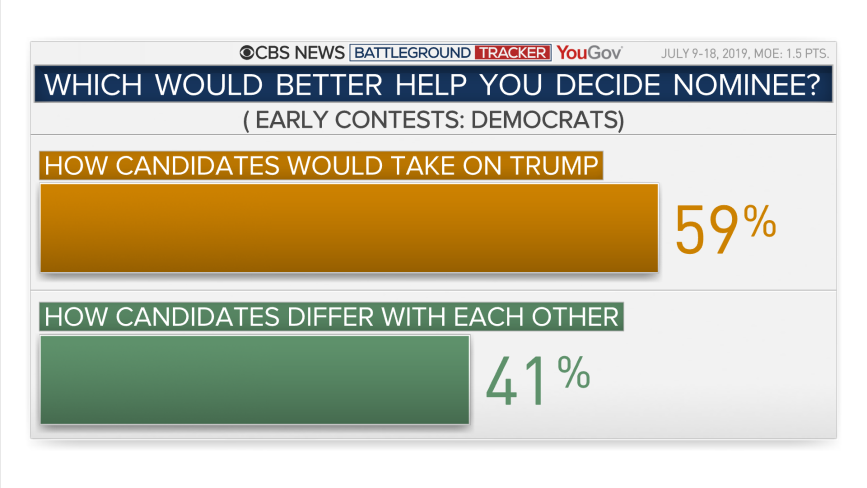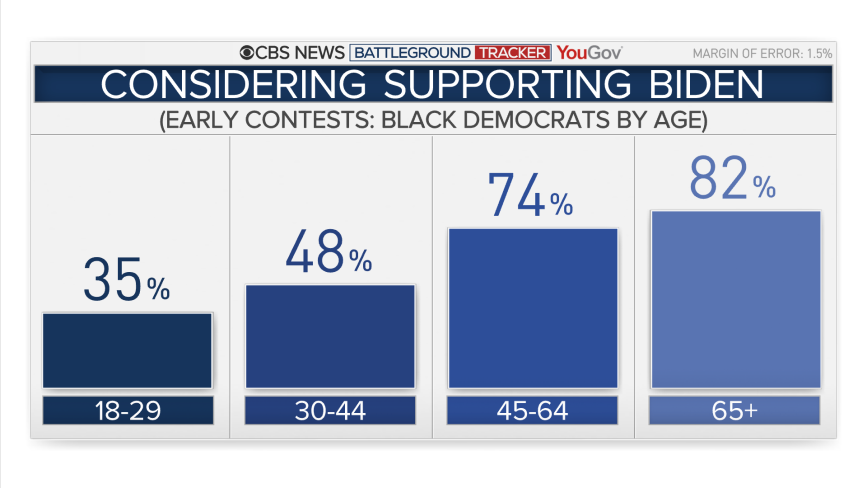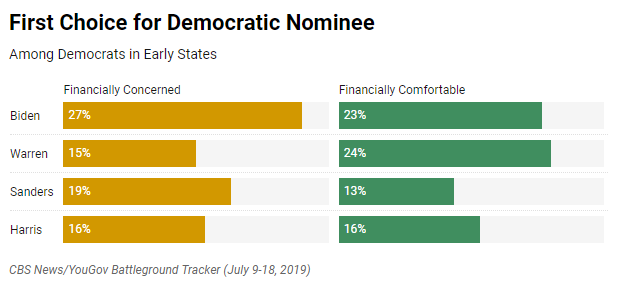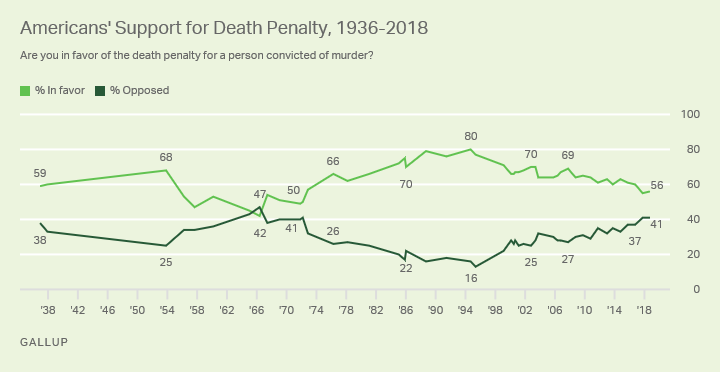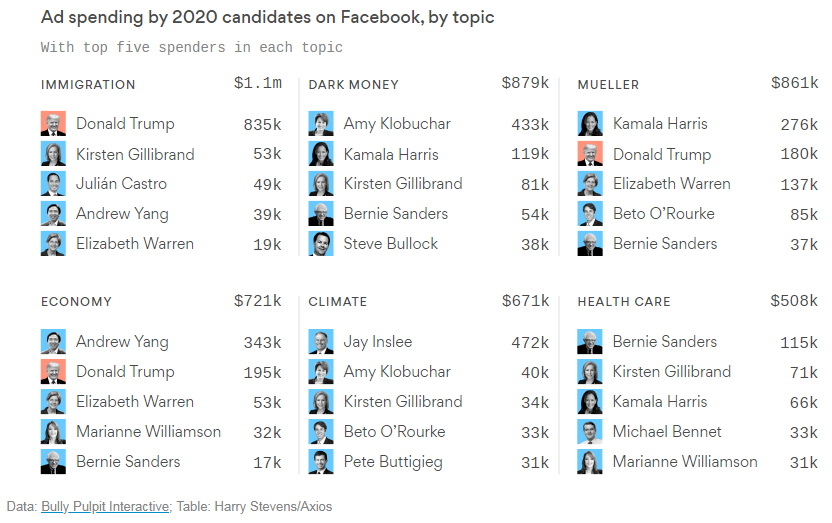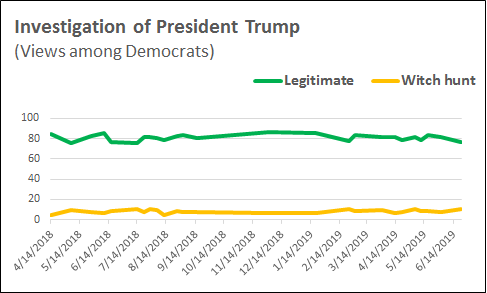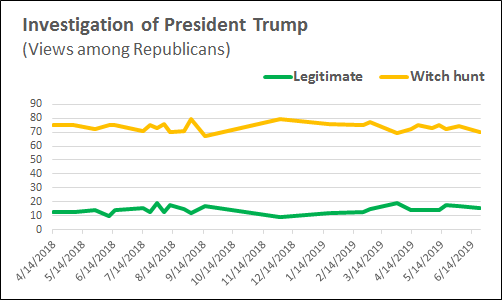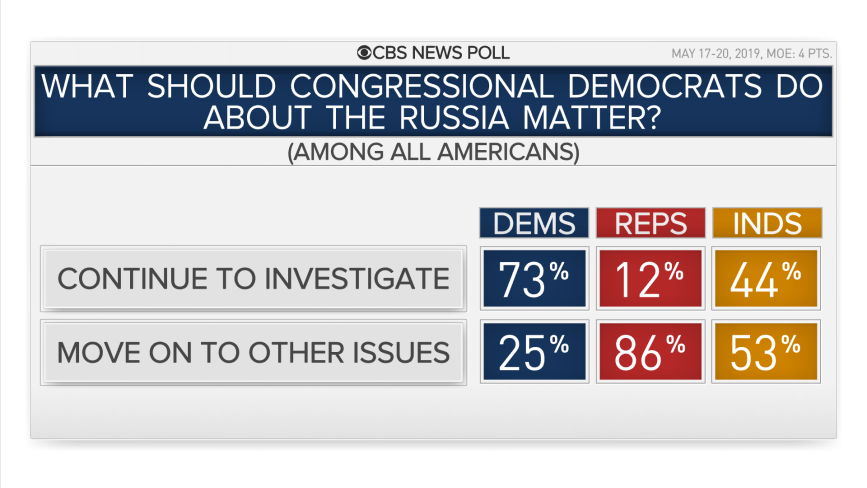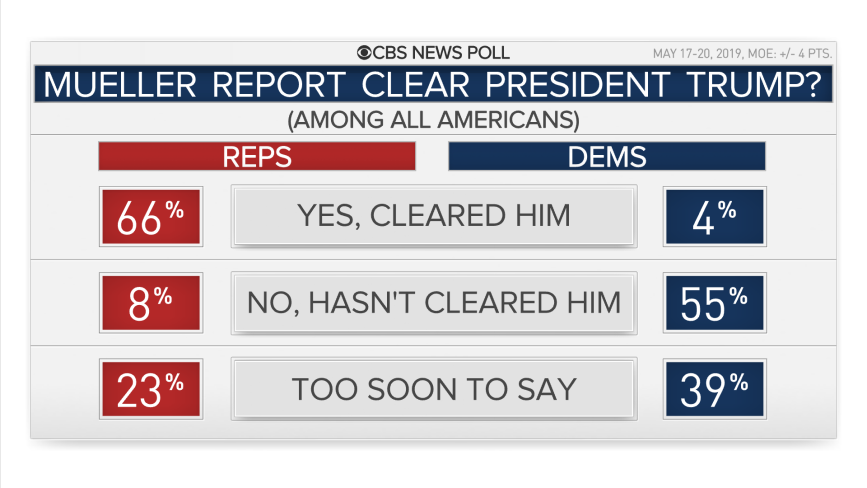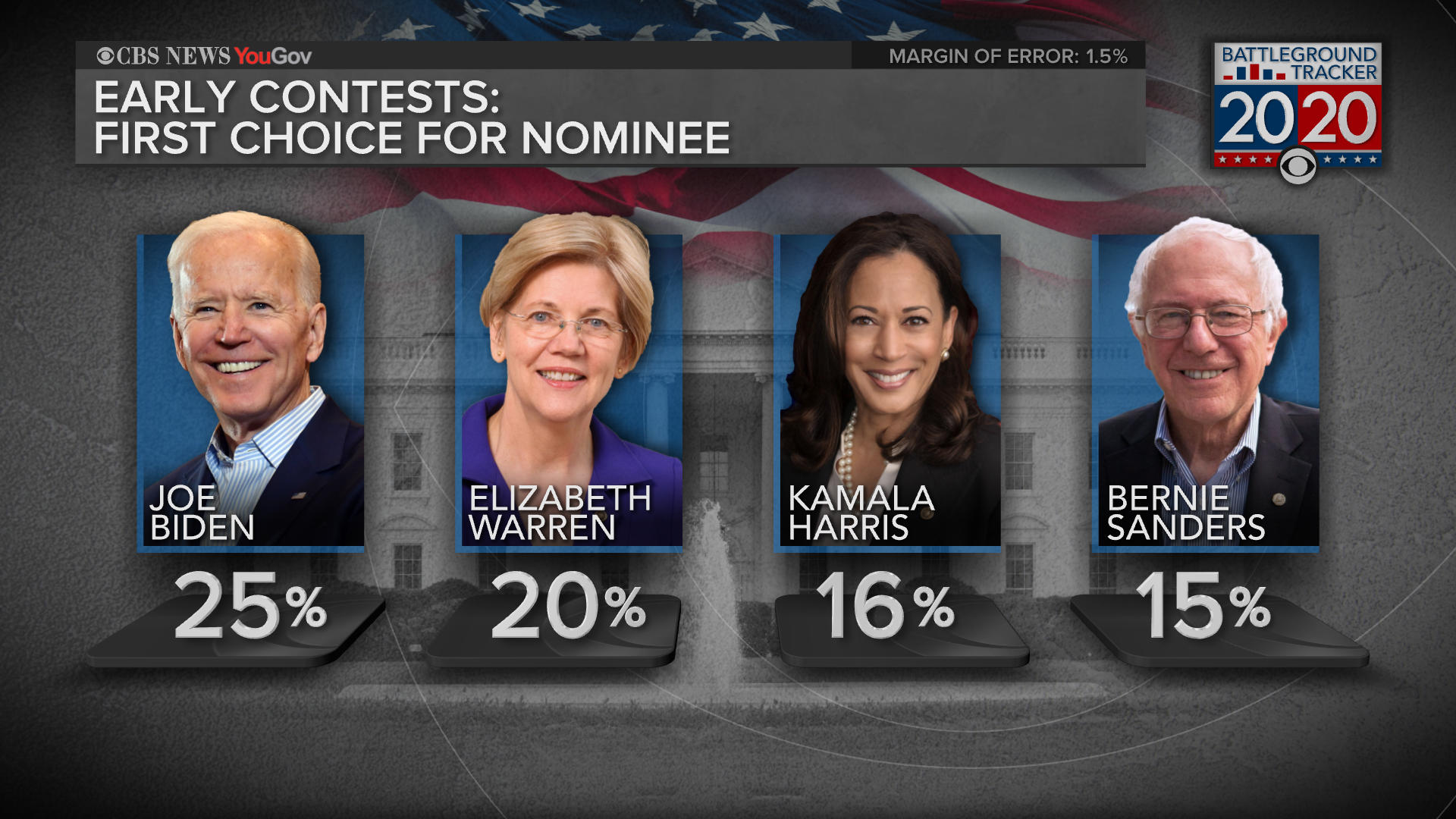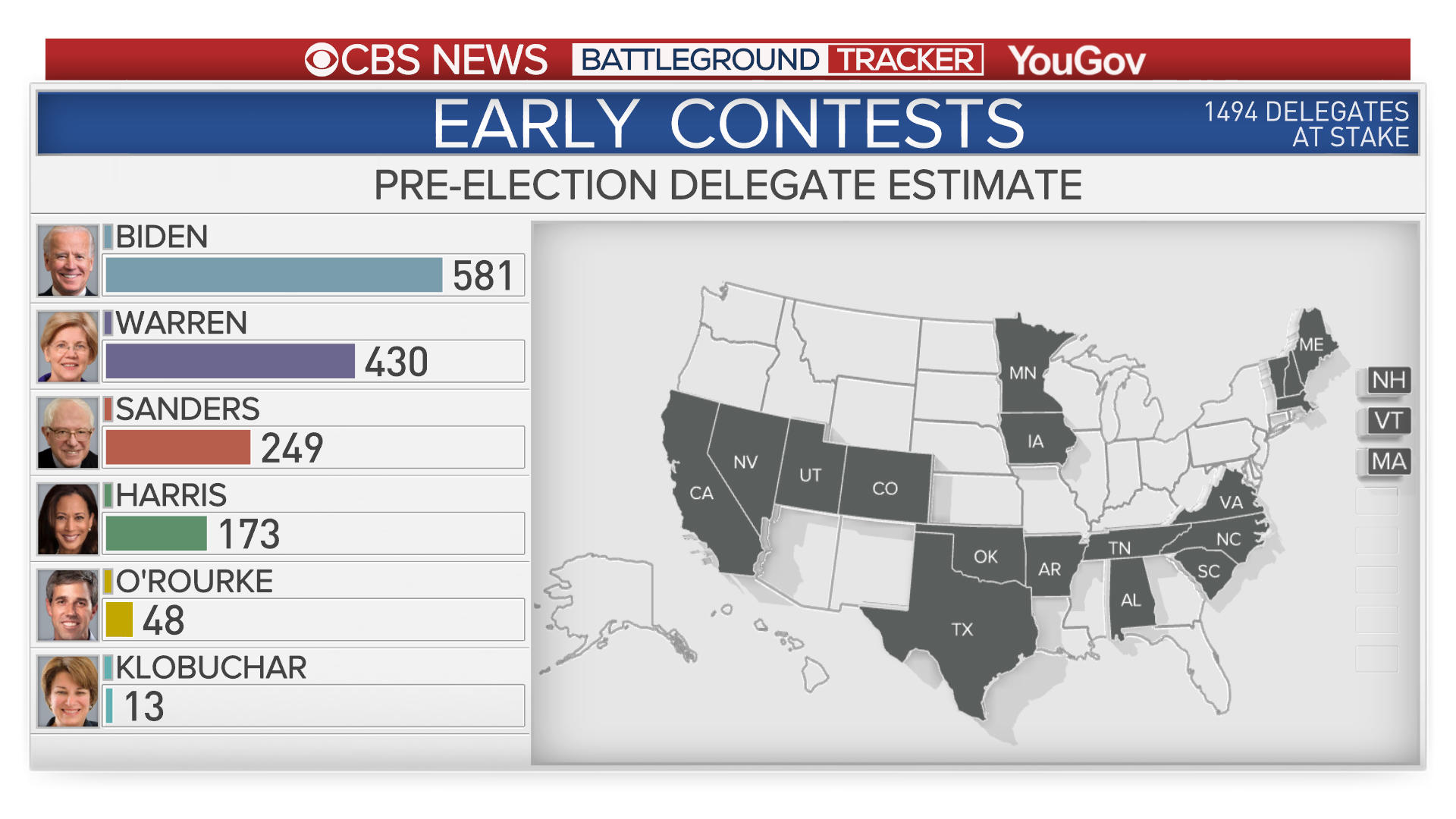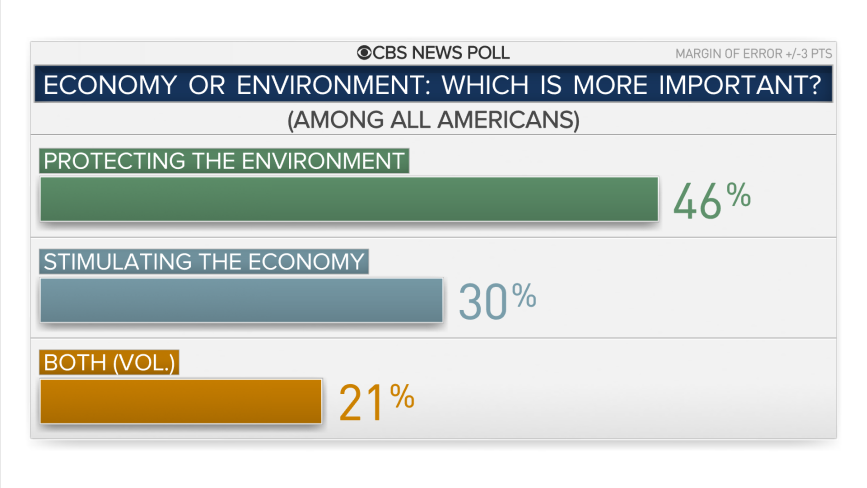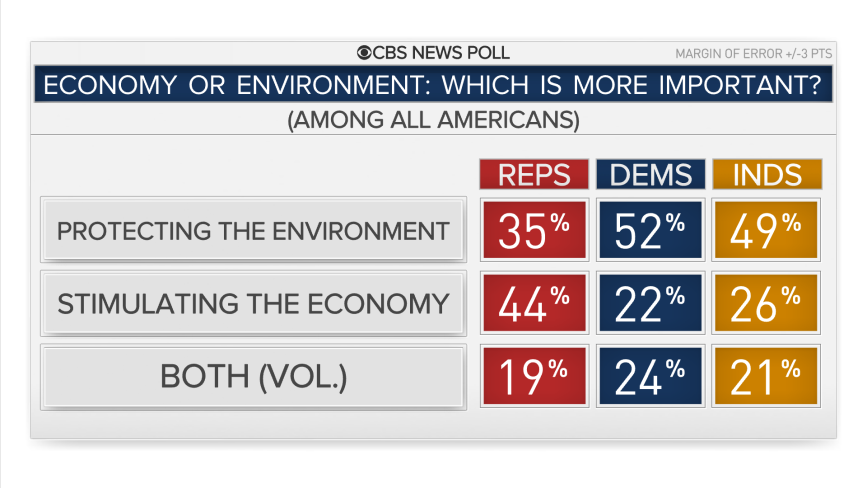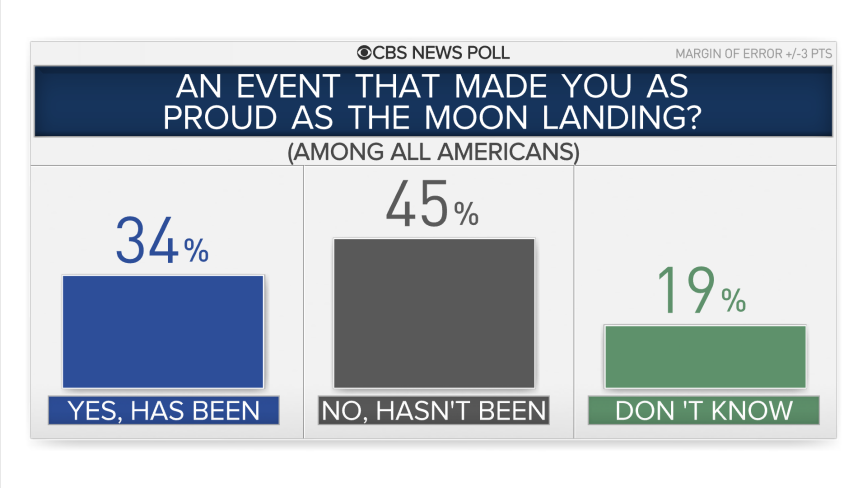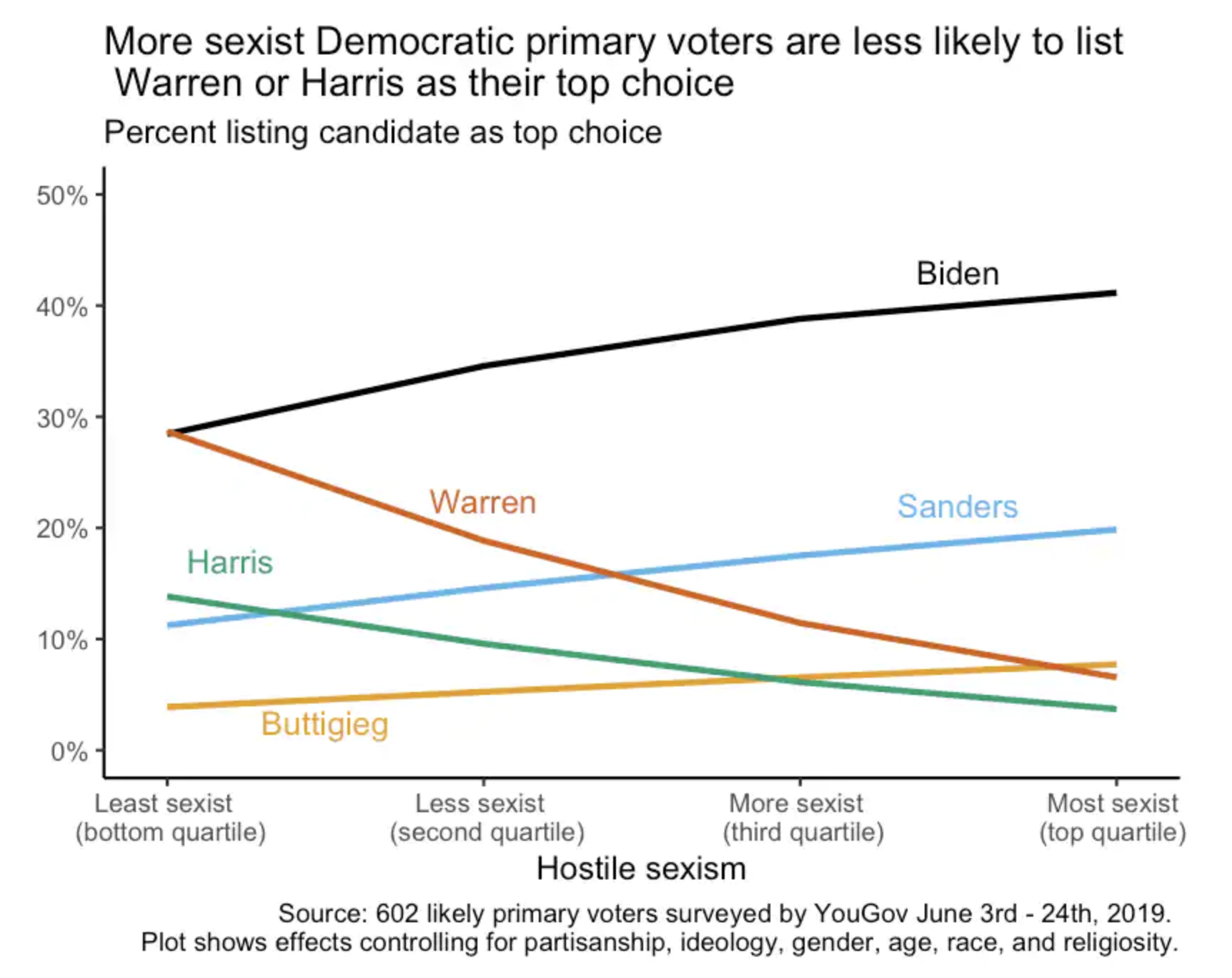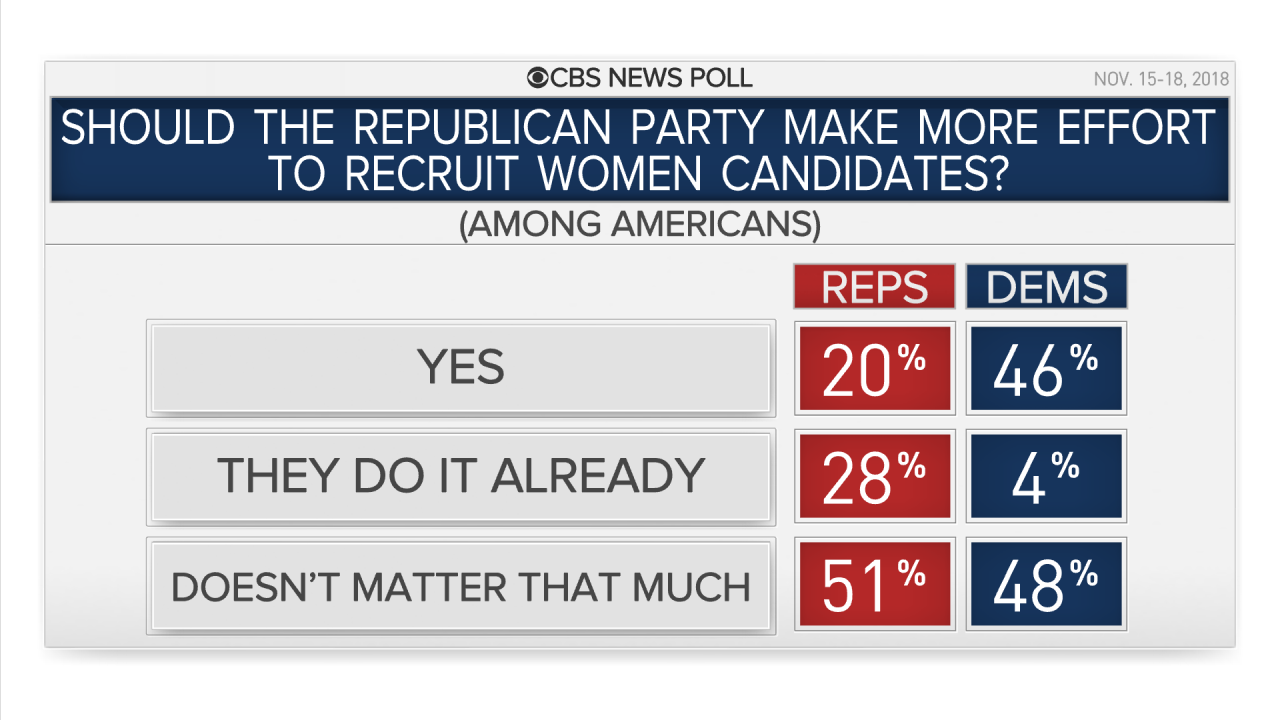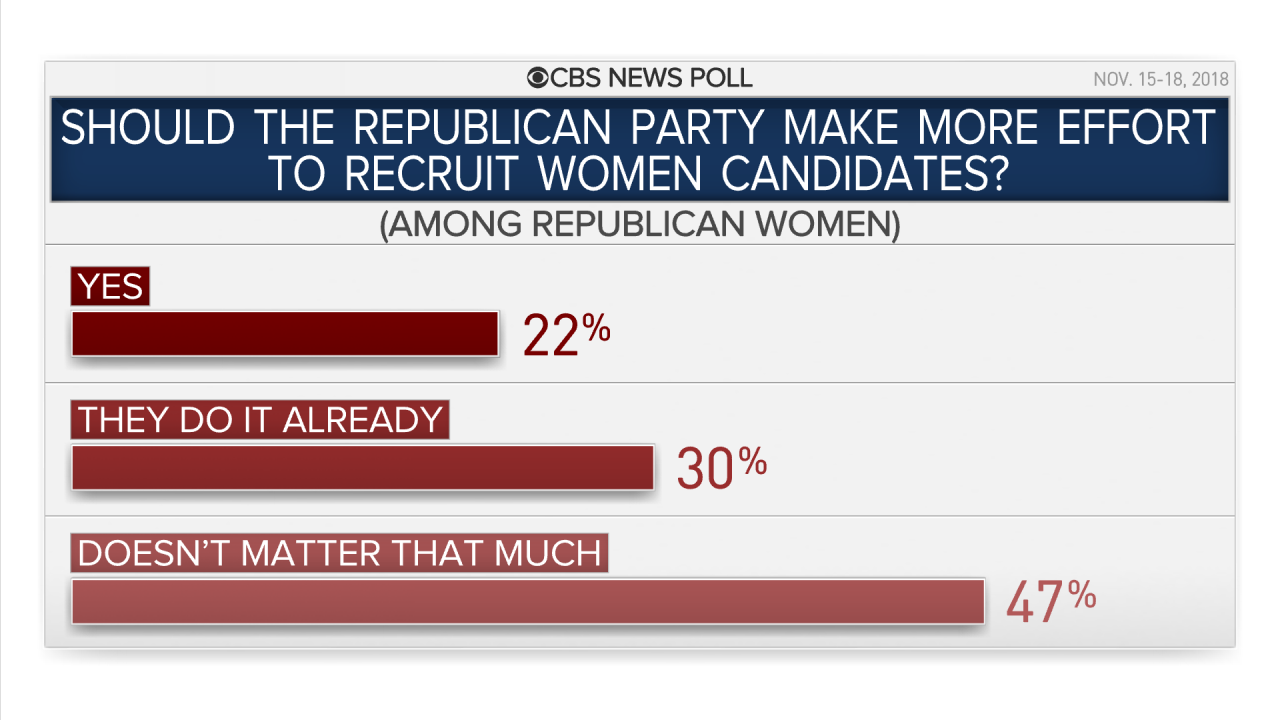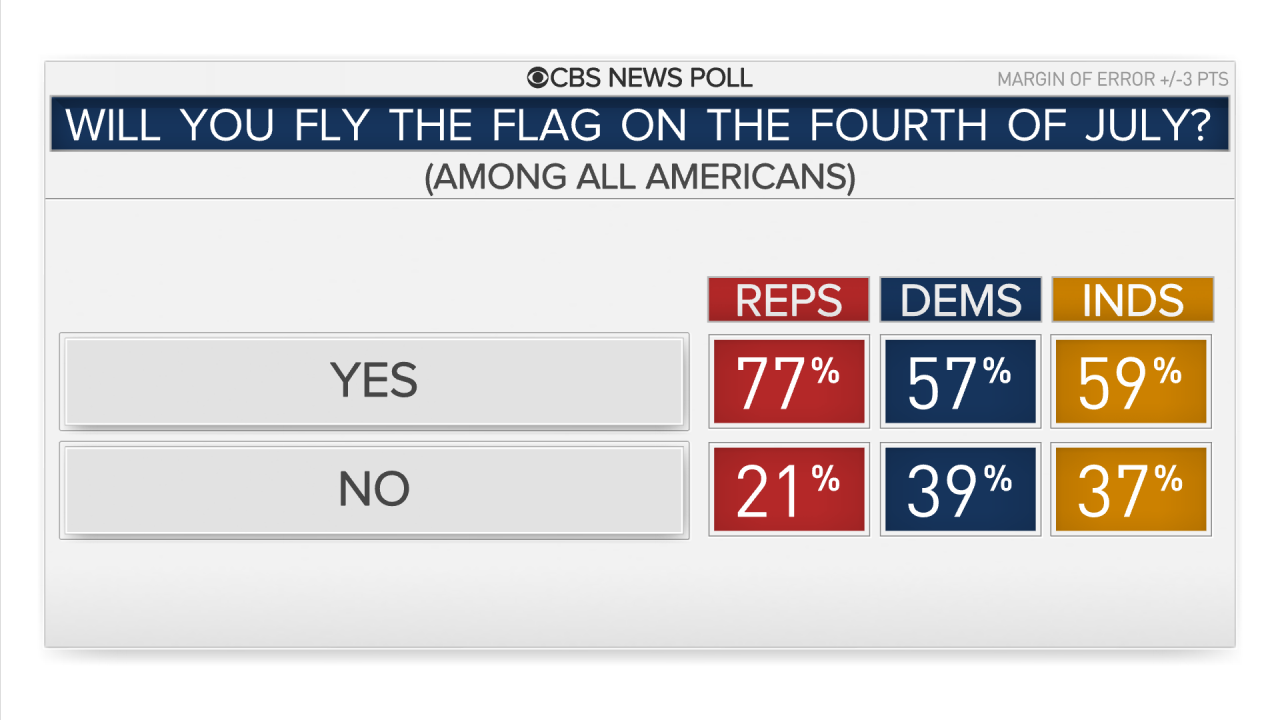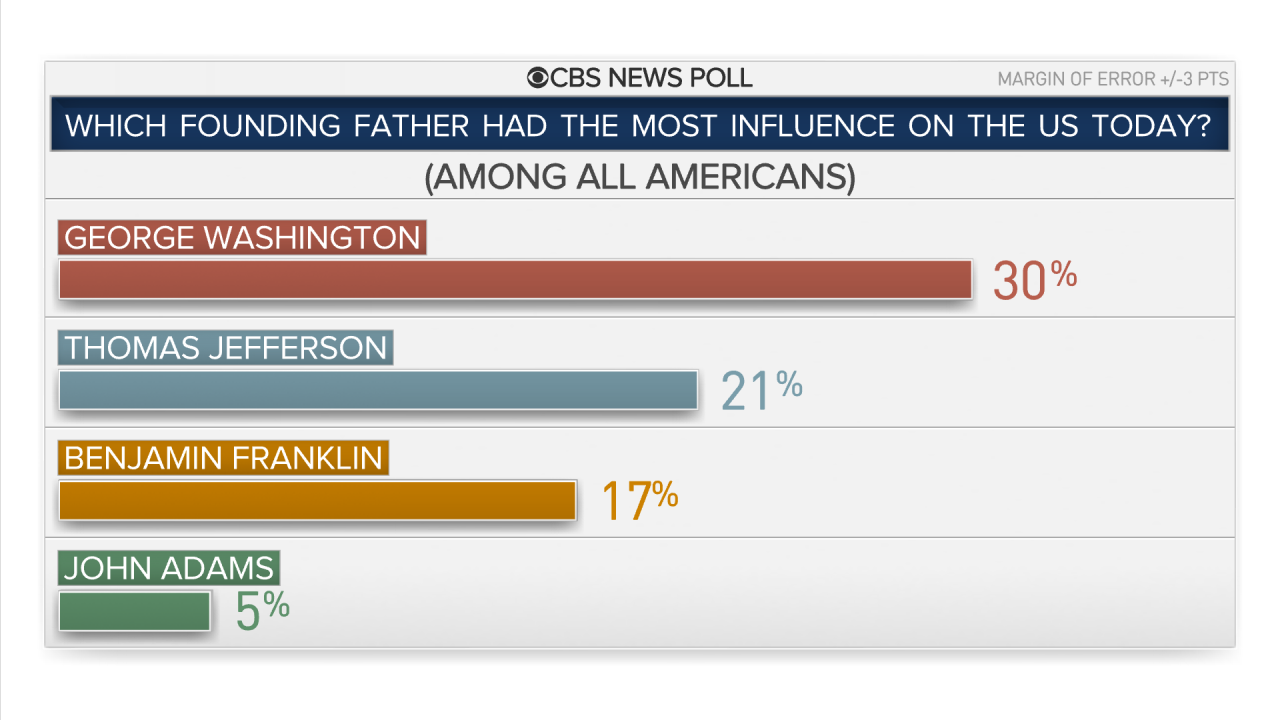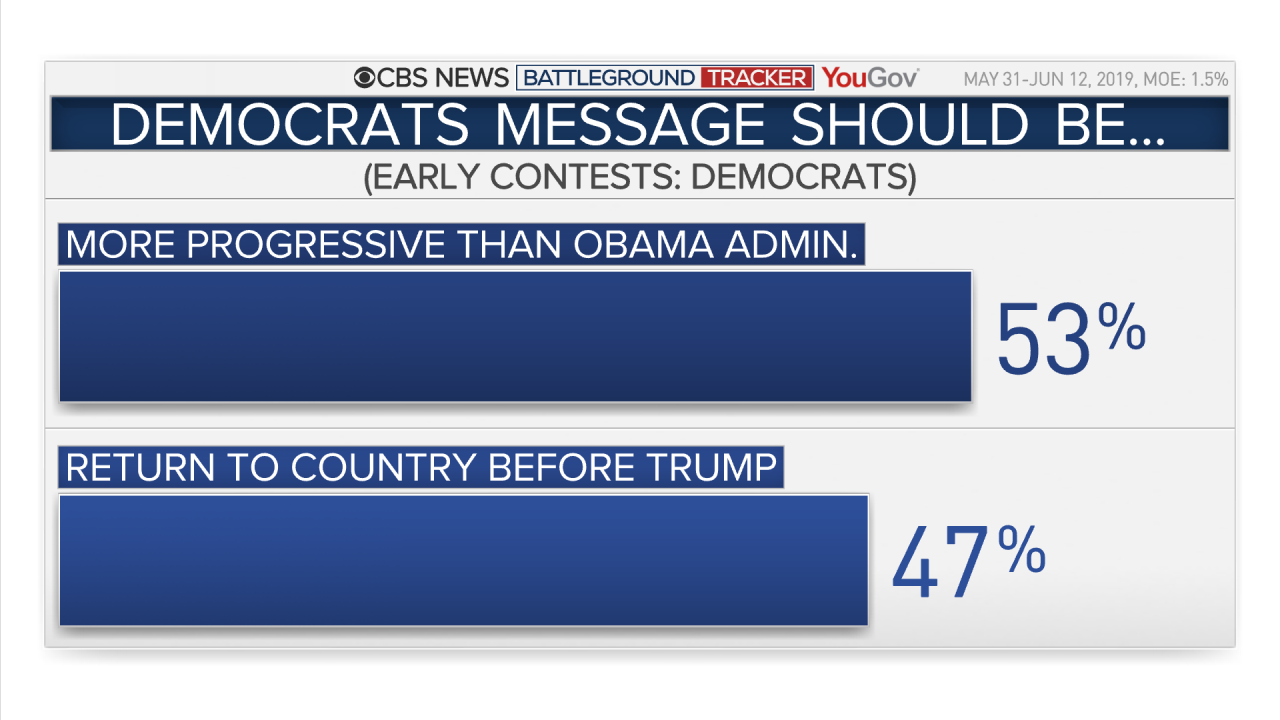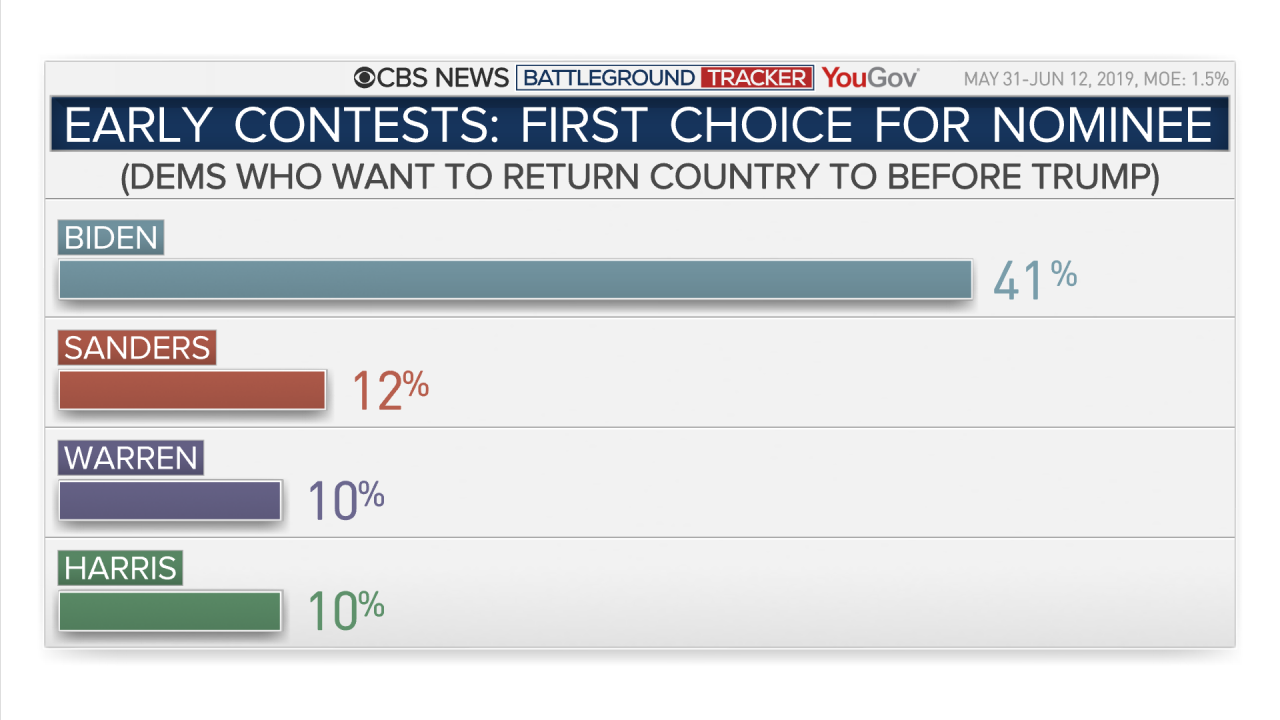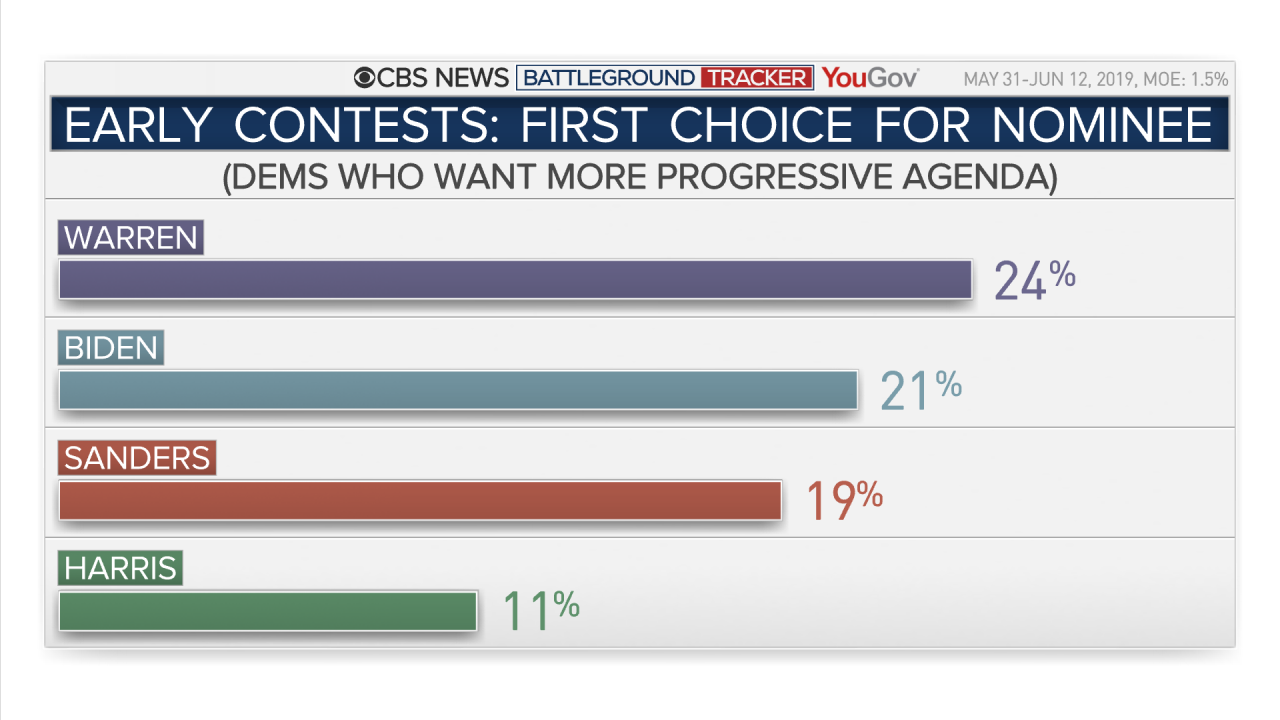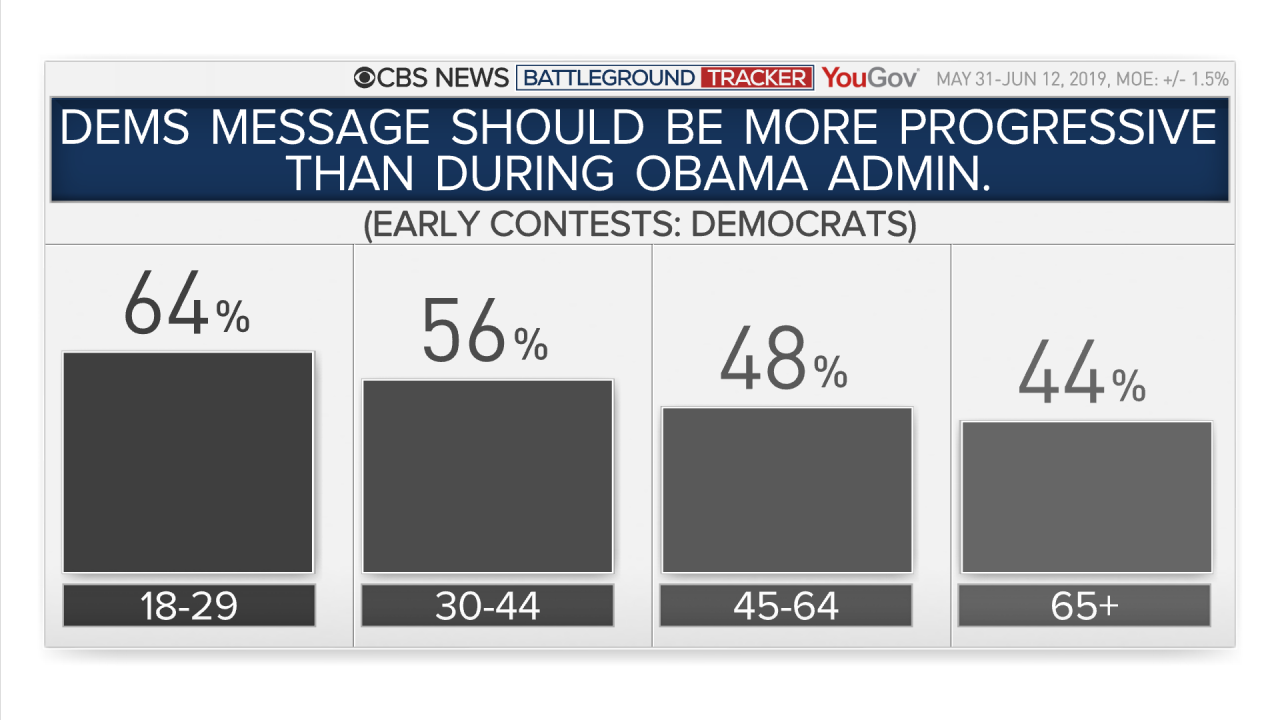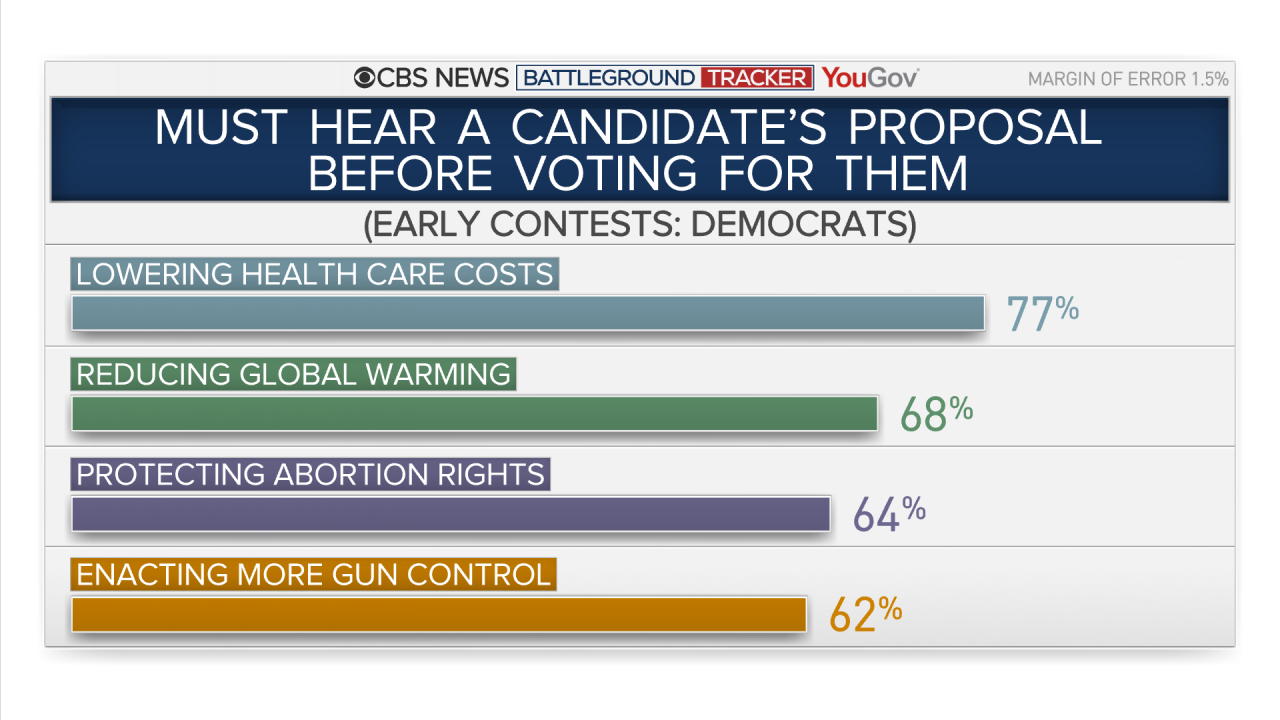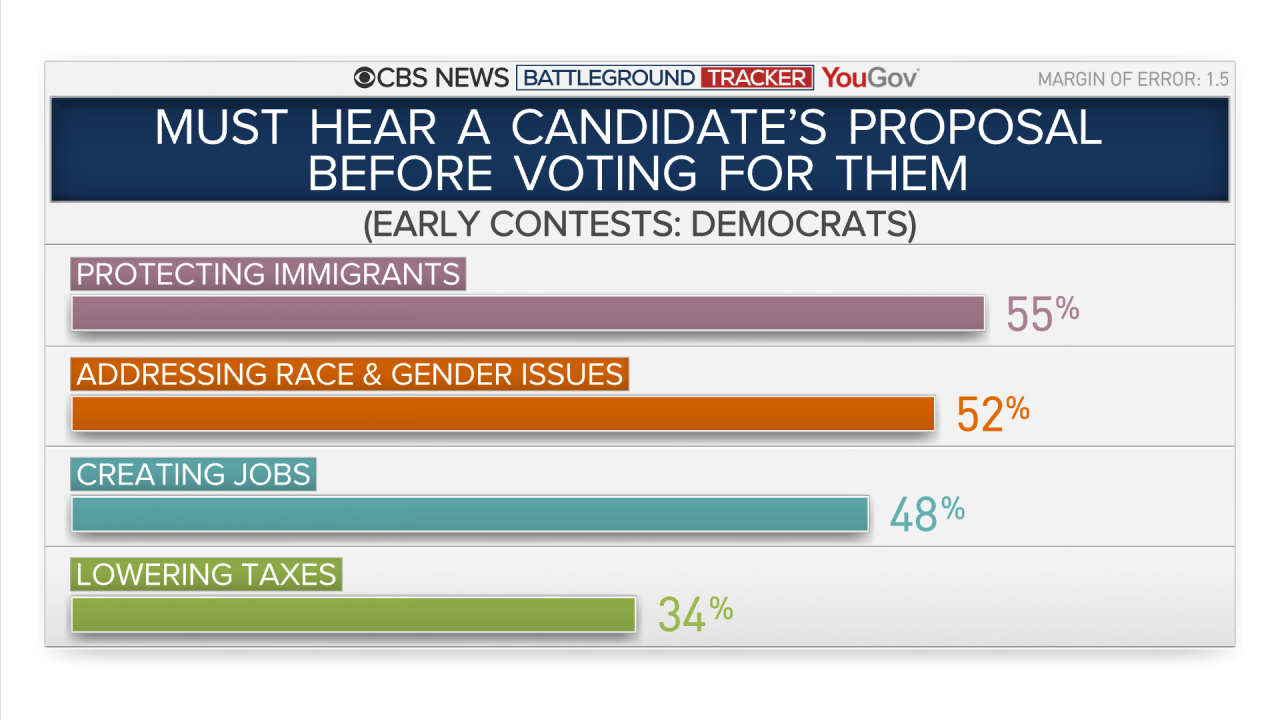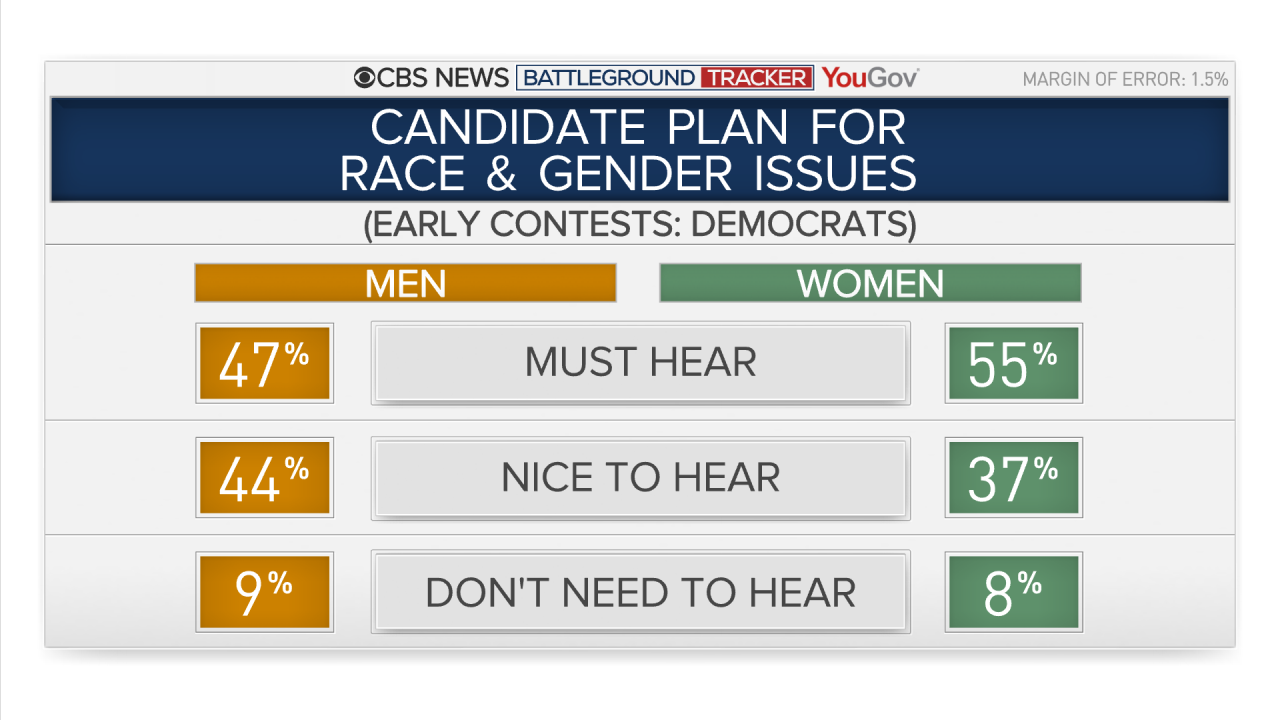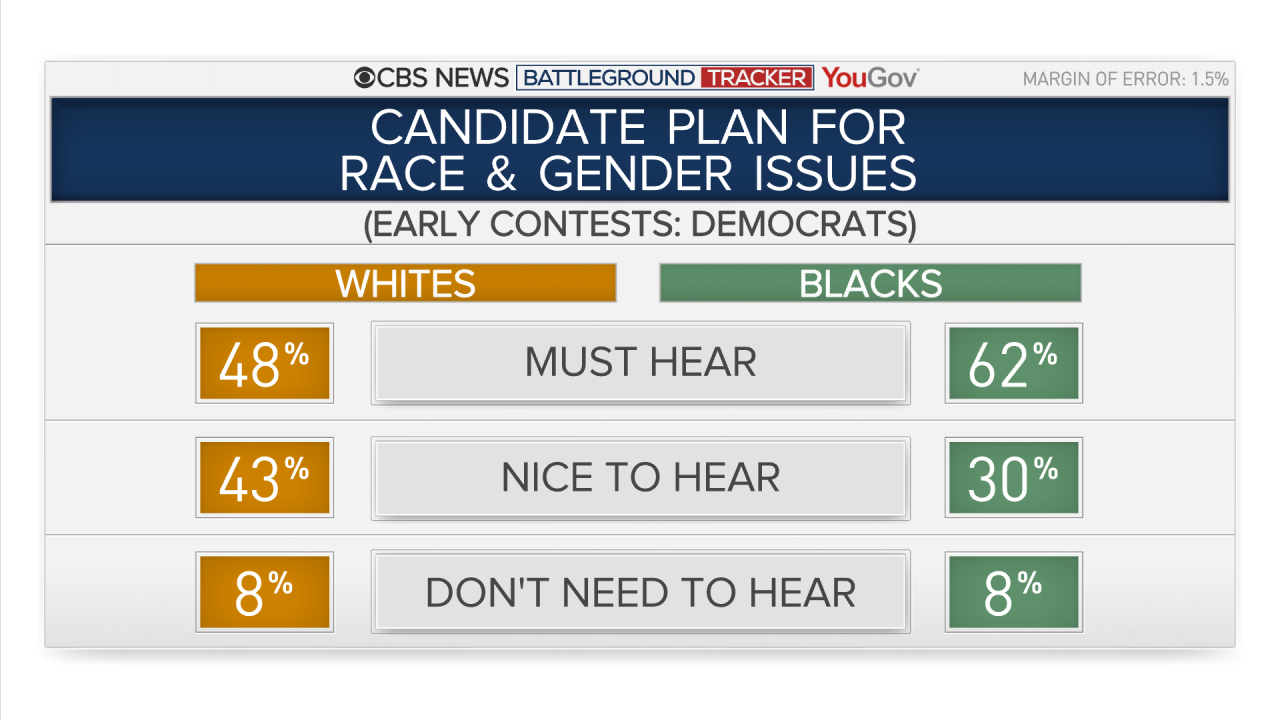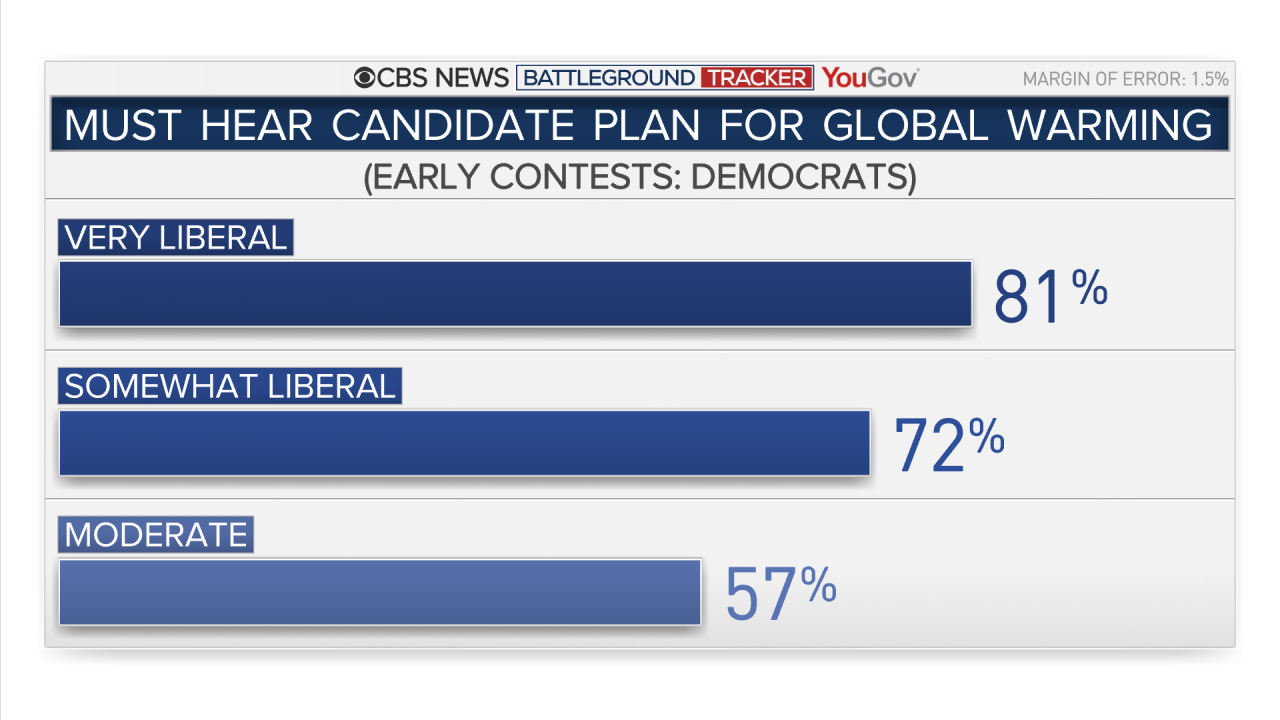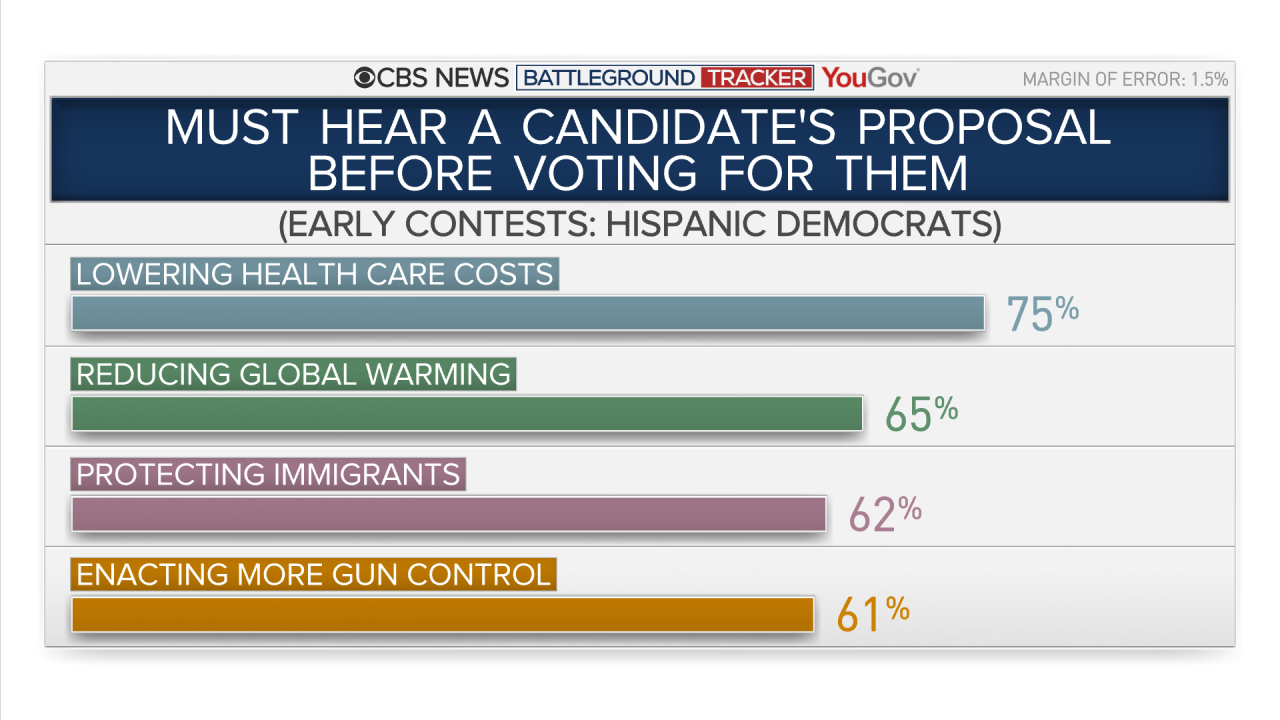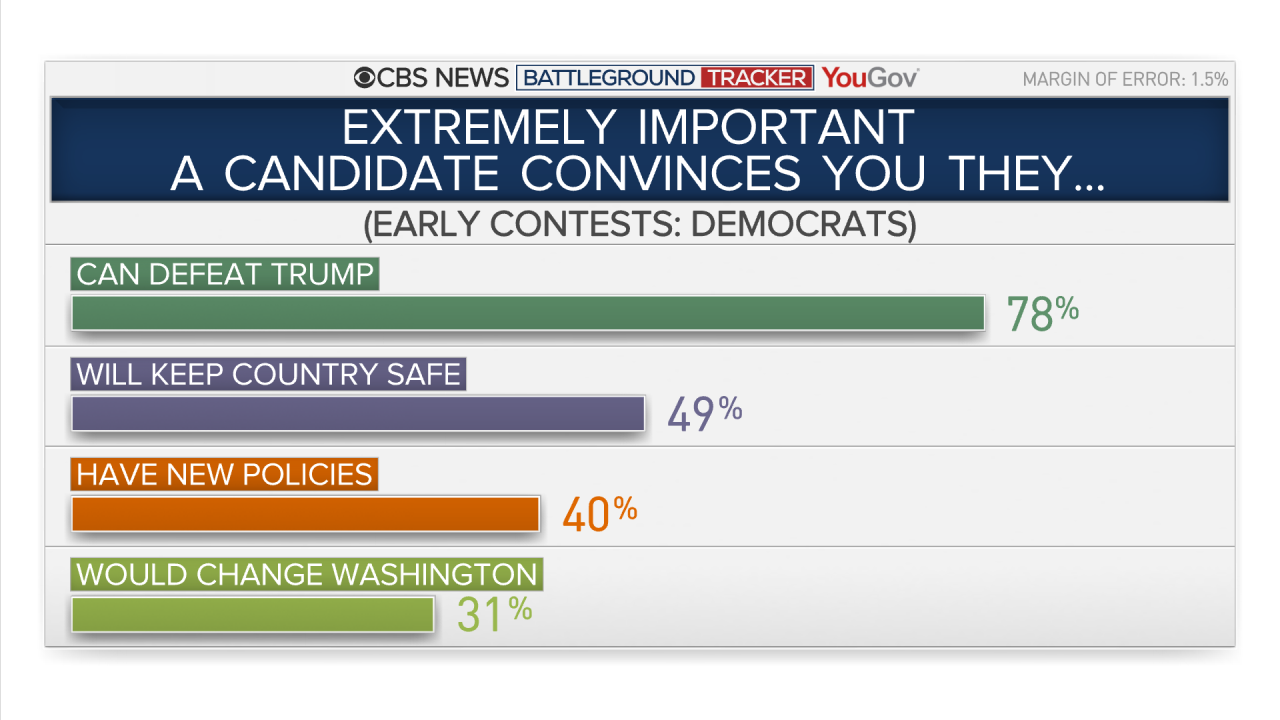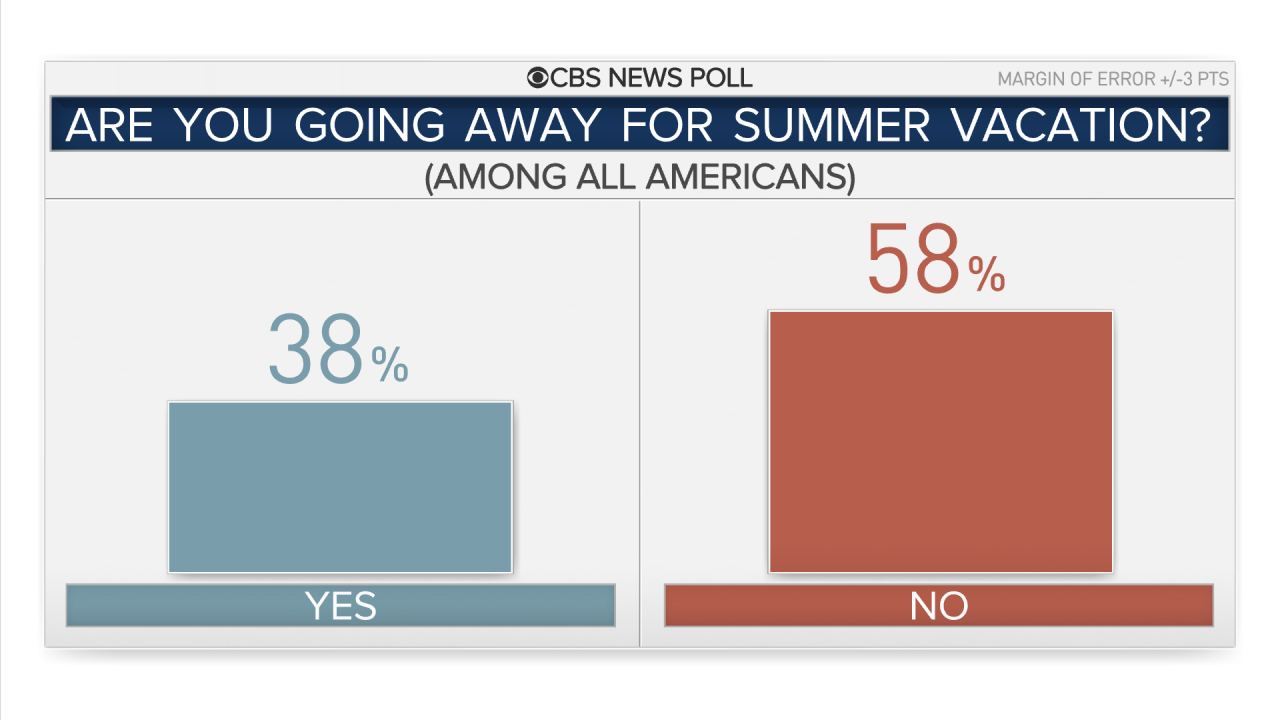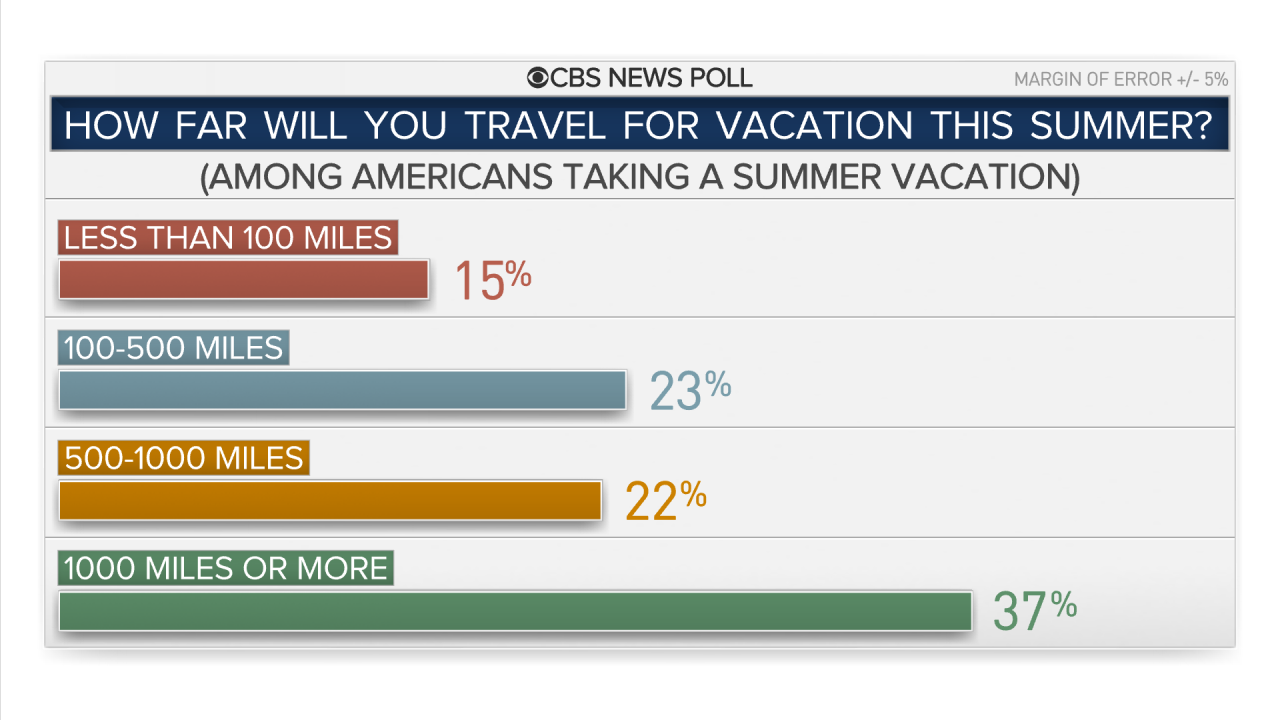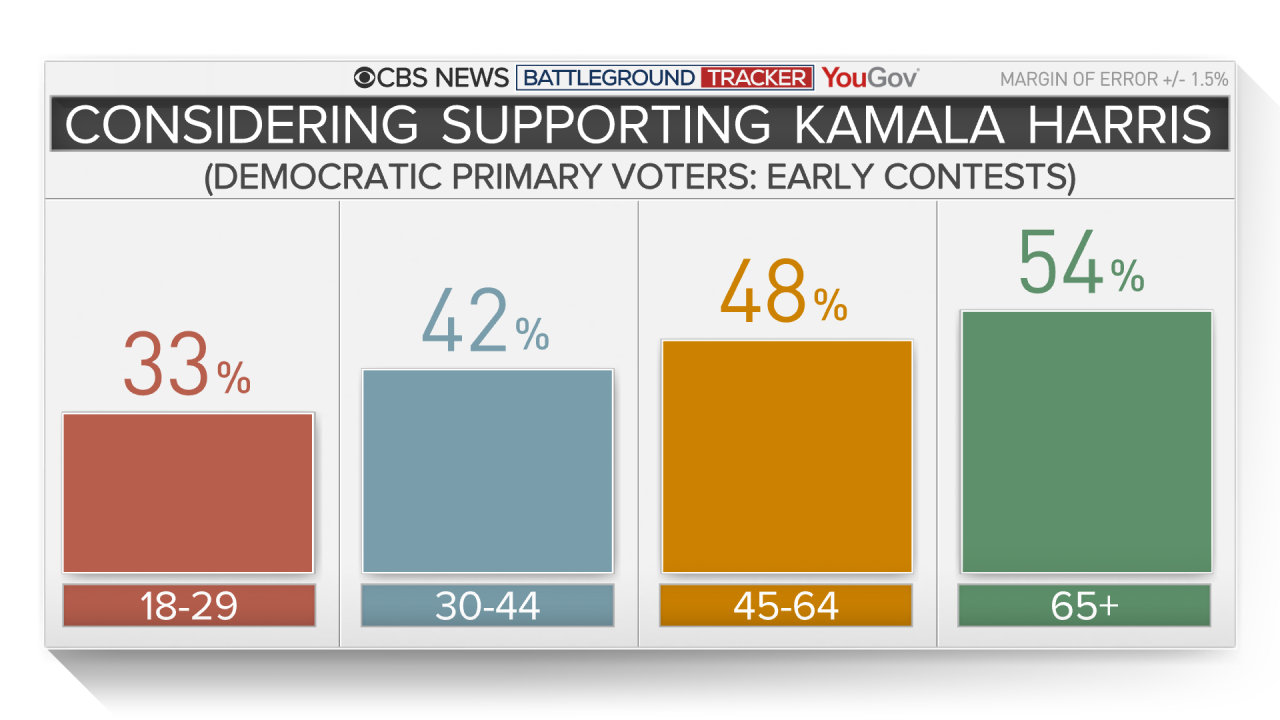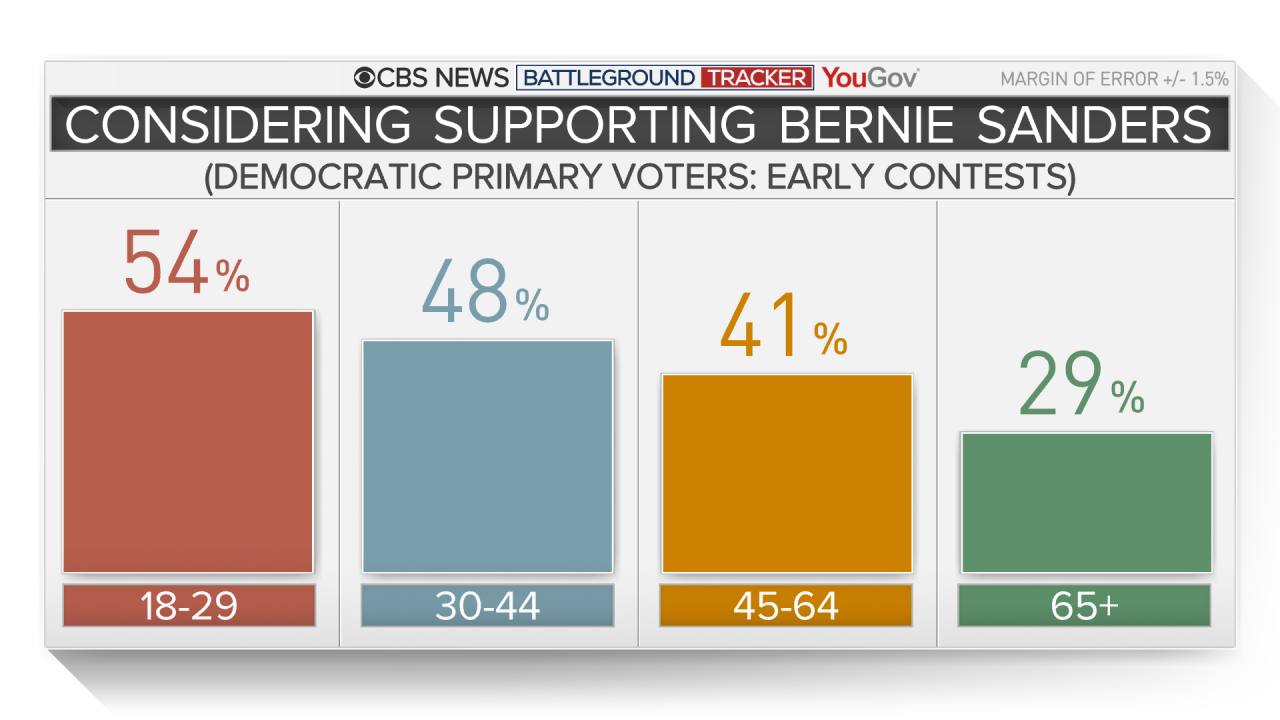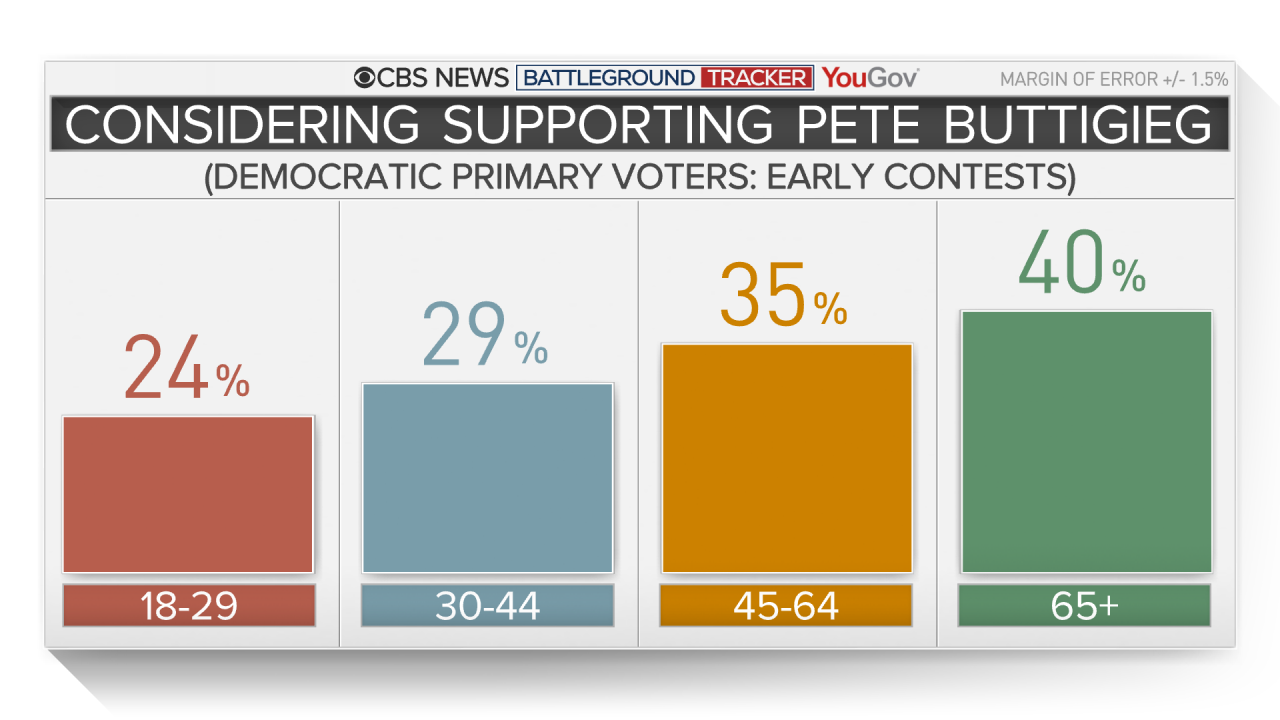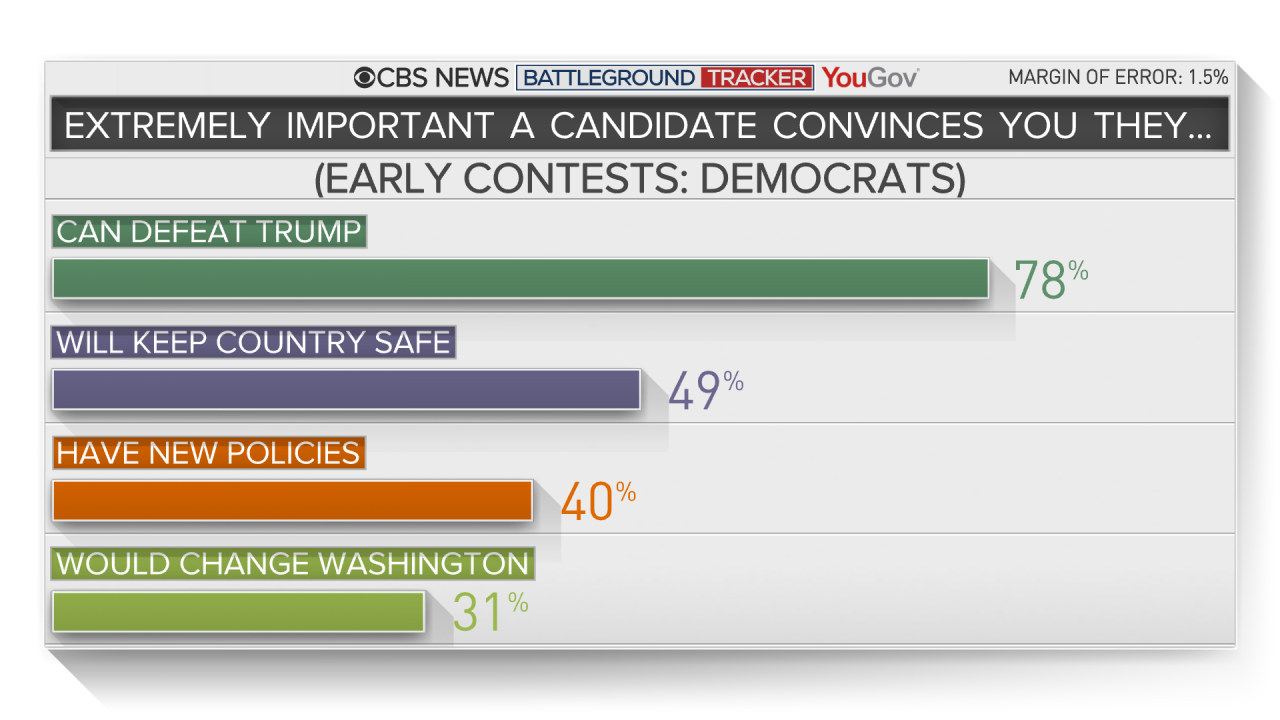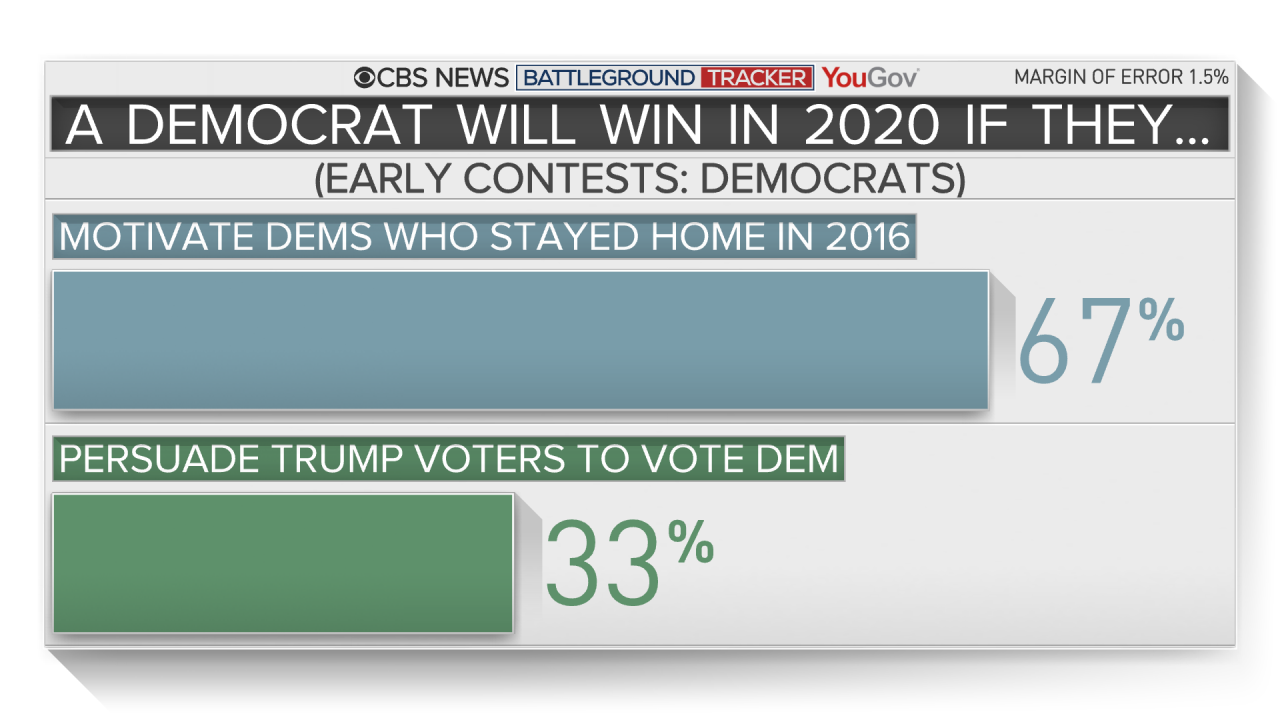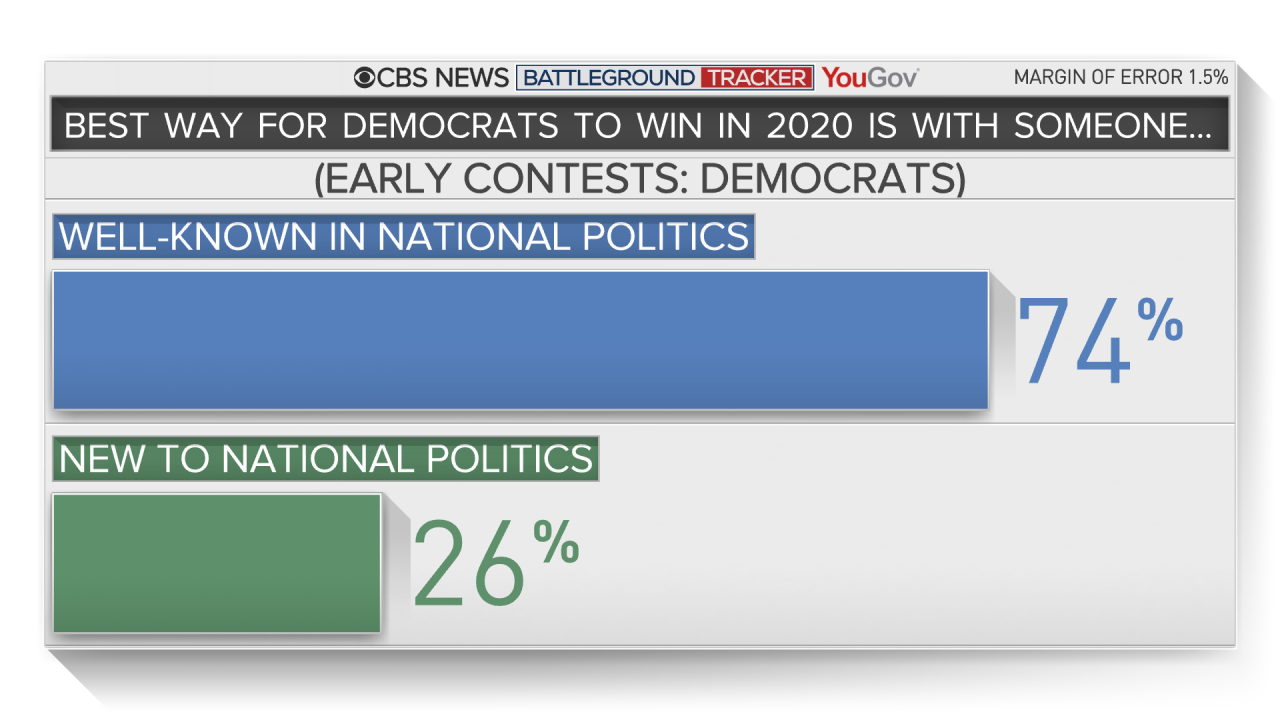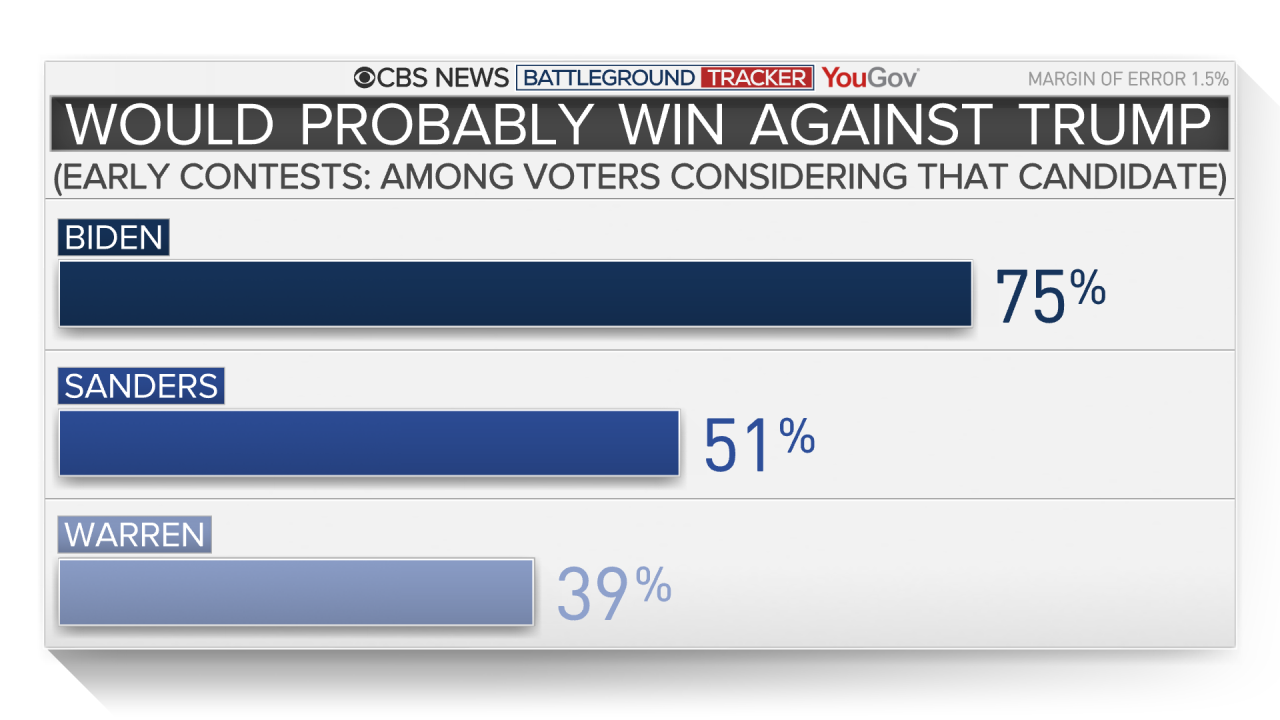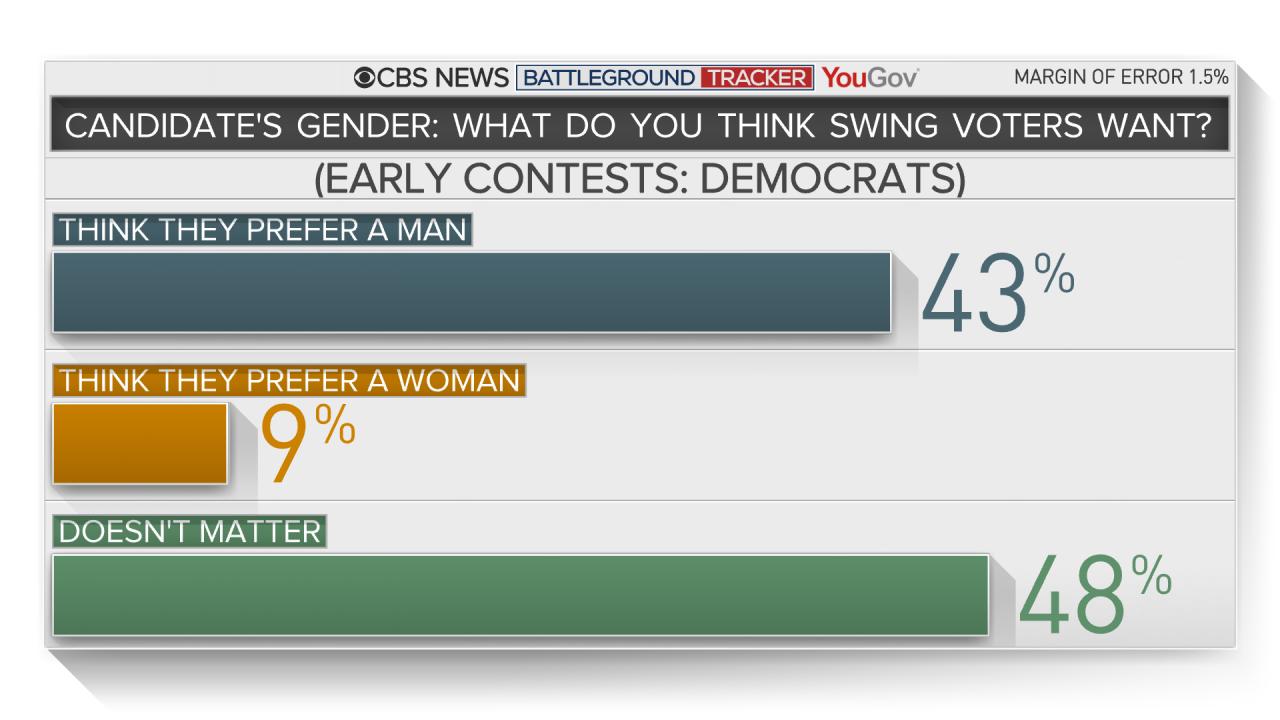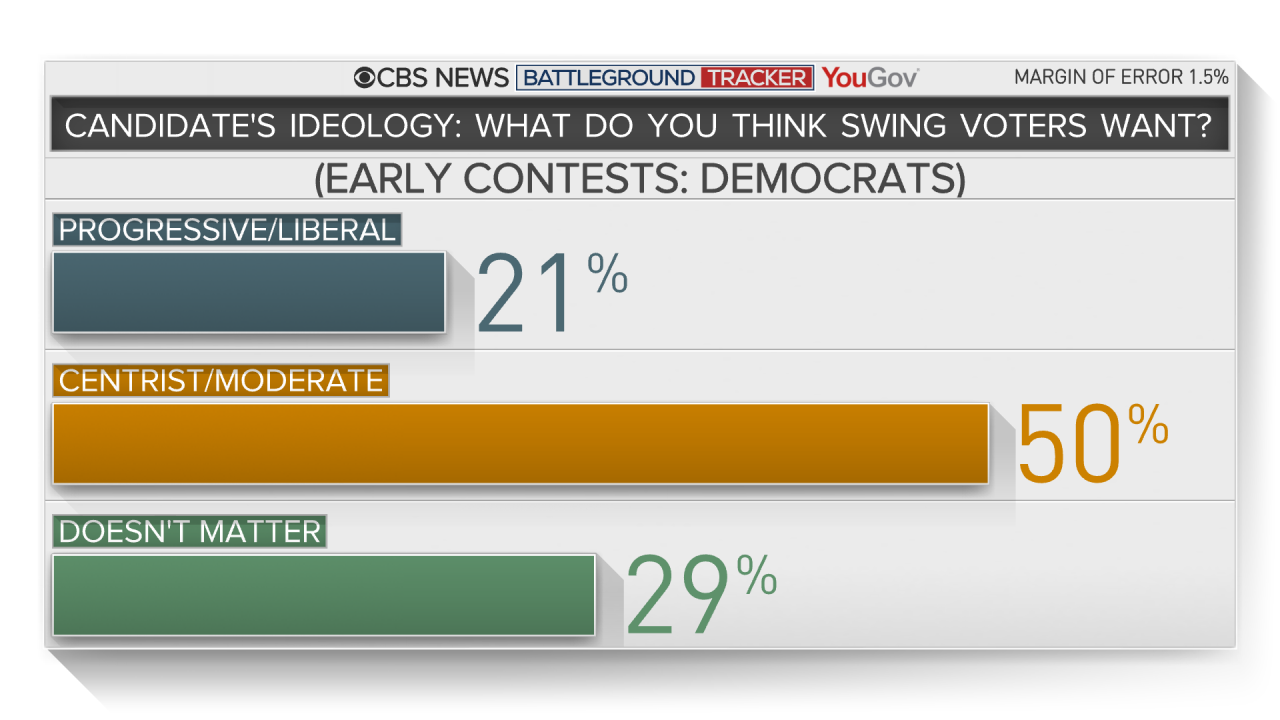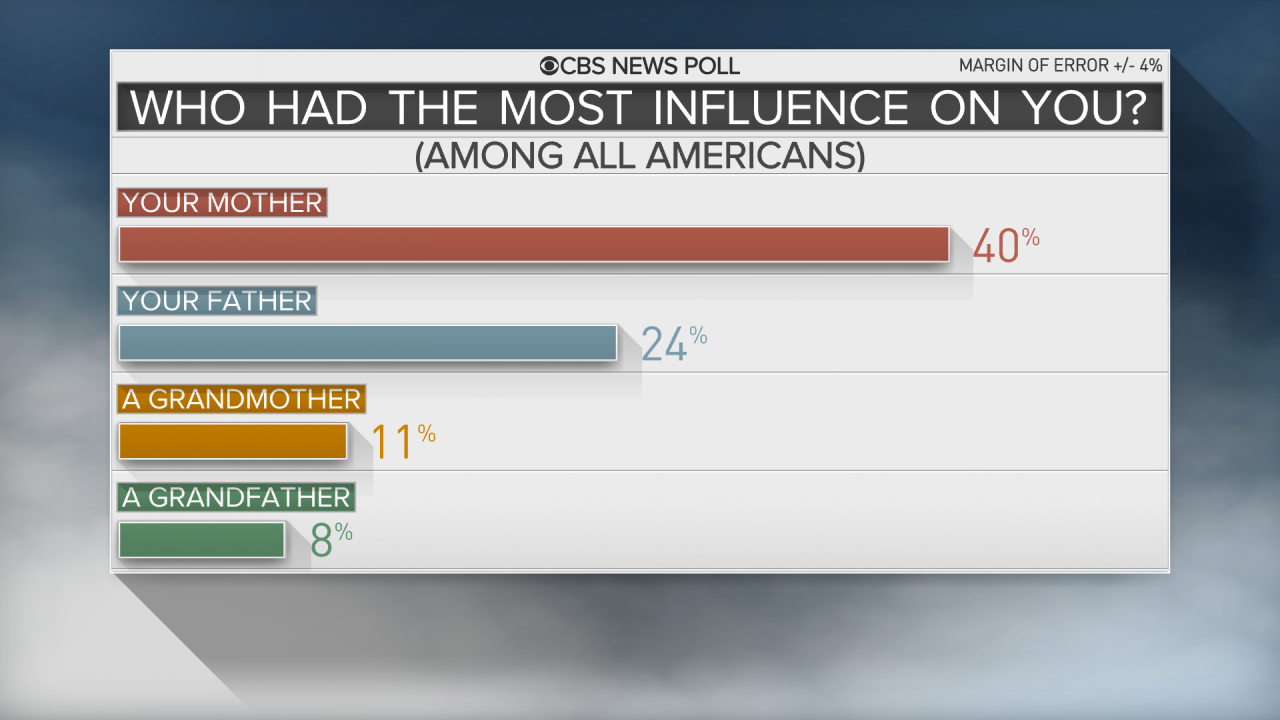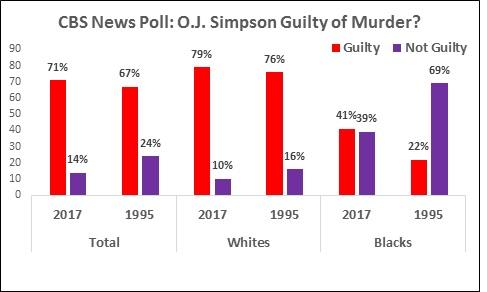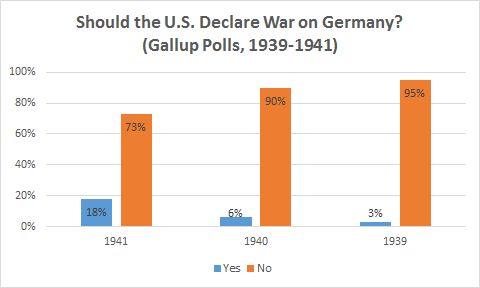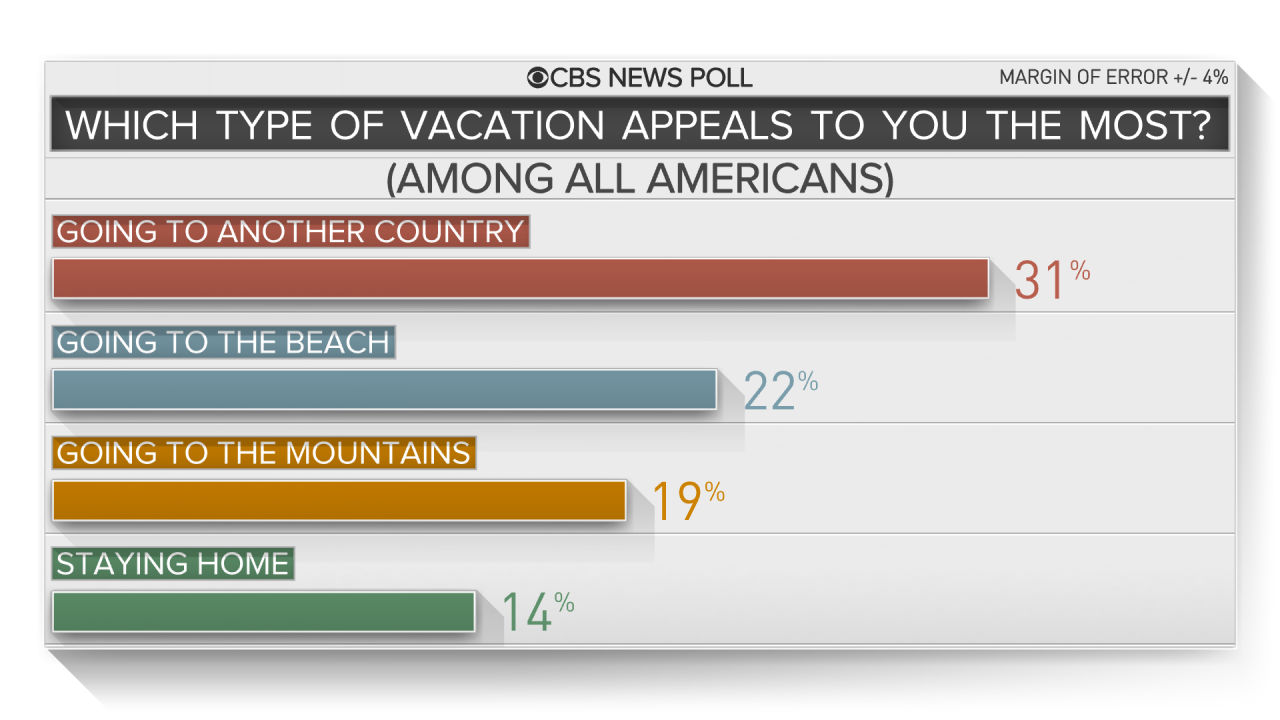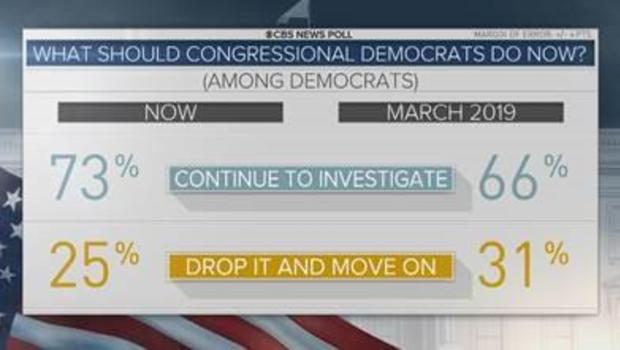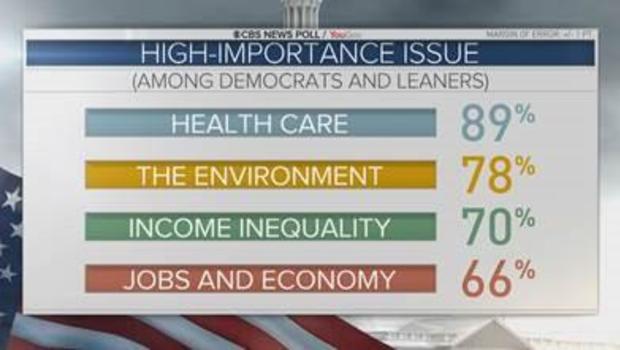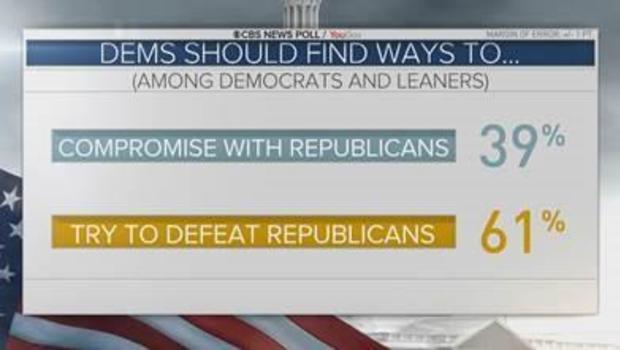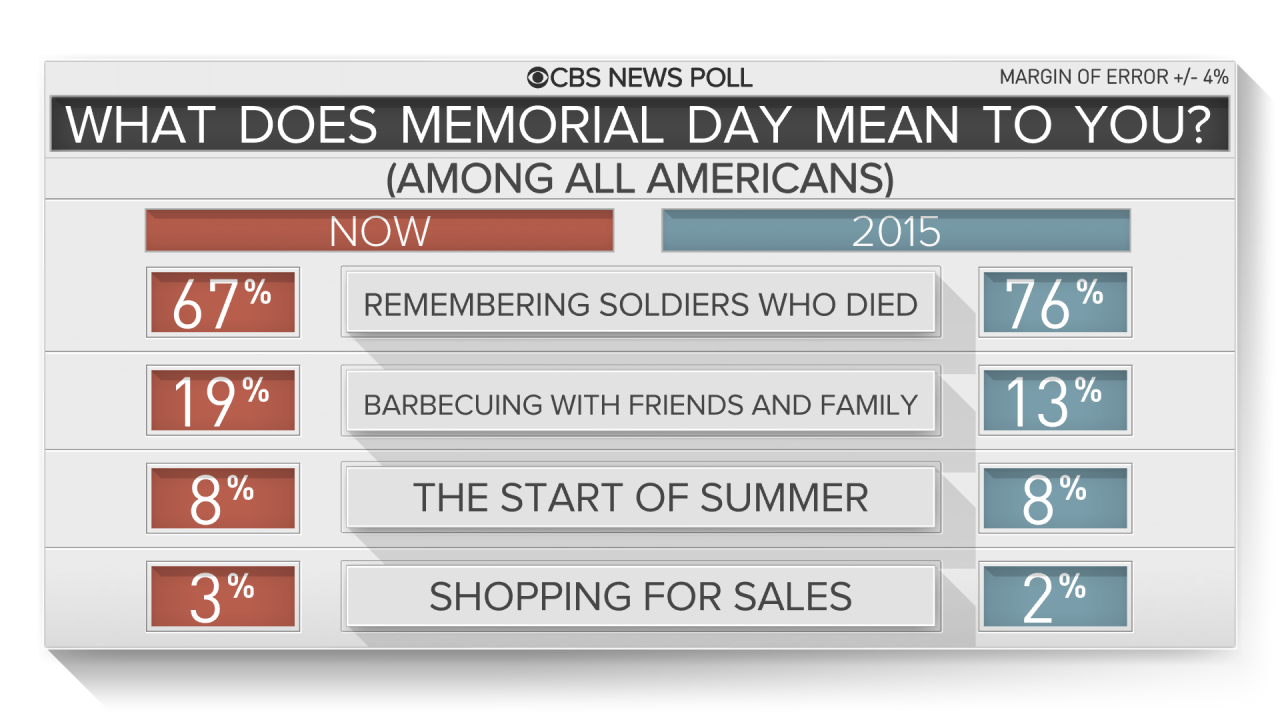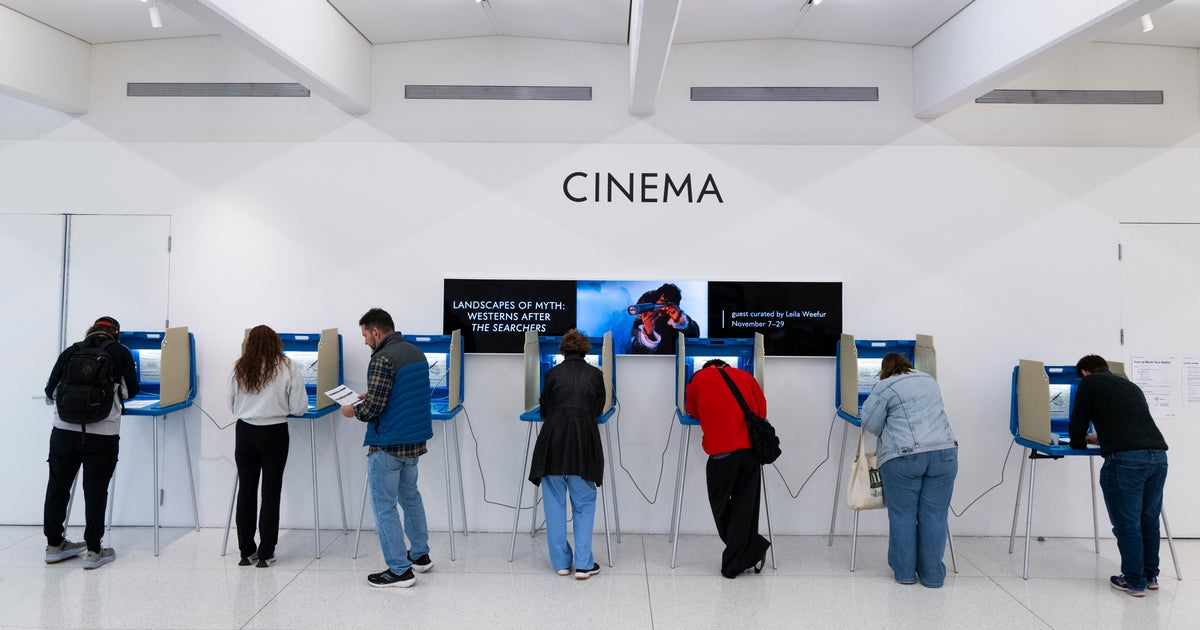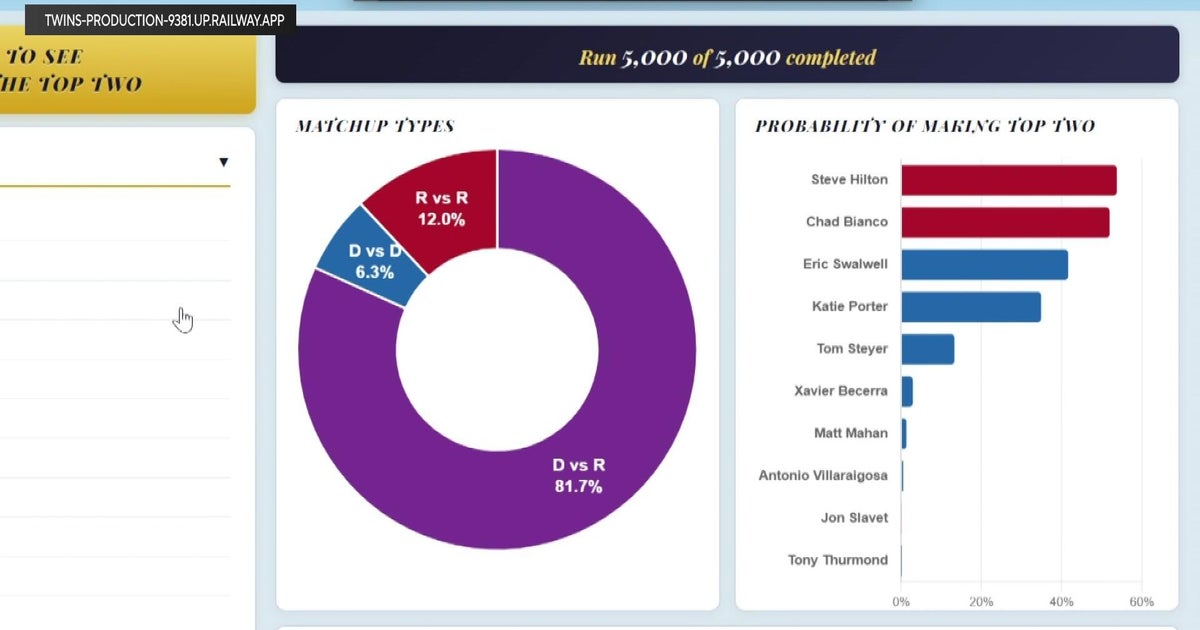CBS News Eye on Trends: The latest from the Election & Survey Unit
Watch this space for a recap of the latest polls and data-driven studies curated by the CBS News Election & Survey Unit!
We've moved!
The latest updates to CBS News Eye on Trends can be found here.
3/14/2021
Americans see better days ahead in pandemic and economy
Though "exhausted" from a year-long pandemic, confidence about containing the coronavirus is hitting new highs as more vaccines roll out, and Americans say they're also "grateful" and widely optimistic about the coming months. The economy seems poised for its own shot in the arm, with Americans bullish about its prospects, both nationally and locally, and looking forward to fueling it by traveling, shopping and dining out more -- once they think it's safe.
Precisely when they'll think it's safe is uncertain, and it won't be right away. For some, it won't be until they're vaccinated themselves. Others are waiting for cases to come down further, even if they've gotten the shot, and right now, many remain wary of venturing into crowded places. Concern about new variants weighs on others.
On the political front, this adds up to good marks for President Biden, who gets very high ratings for his handling of the outbreak, with over two-thirds approving, as well as for managing the vaccine distribution. Plus the just-signed relief bill remains extremely popular, with most feeling it will help both the economy and help them, personally.
More here.
After year of pandemic, Americans see changed lives and disparate impact
Americans report seeing their lives transformed in myriad ways over the past year -- from the loss of loved ones, to an impact on their finances, to the toll the year has taken on their mental and emotional health. Many see the changes as permanent, particularly in regards to how they view their relationships and how they will spend their free time going forward.
And as Americans look back, a majority see the nation's efforts to contain the coronavirus as largely unsuccessful. Most believe that some groups of Americans were affected more than others, and that both the decisions that people made and systemic inequalities are at least partially to blame for that.
More than eight in 10 Americans say their day-to-day lives have been impacted at least somewhat by the coronavirus pandemic, and the impact of the outbreak has been felt in many different ways. Nearly half of Americans (45%) say they themselves or someone close to them has gotten ill from the virus, and one in five say a close friend or relative has died from COVID-19. Black and Hispanic Americans are particularly likely to have a close friend or relative who has died from the virus compared to White Americans.
More here.
Vaccines drive optimism about containing COVID-19 pandemic
A majority of Americans say they'll get a COVID-19 vaccine when it becomes available to them or already have had at least one shot, as vaccination efforts are driving national optimism about containing the coronavirus. Overall, the percentage of people willing to get the vaccine, plus the number who report getting one, has been on the rise.
But that optimism may meet the reality of vaccine hesitancy down the line, as many still say "no" or "maybe" to vaccines. This reluctance is connected to partisanship: Republicans, particularly younger ones, say they are less likely to get vaccinated when eligible.
More here.
3/12/2021
Standard Time vs. Daylight Savings Time
Would you rather have Standard Time all year long, or would you rather have Daylight Savings Time made permanent instead? As most of the country prepares to turn their clocks forward an hour to mark the beginning of Daylight Savings Time, a CBS Poll finds that Americans are largely divided between the two: 23% would prefer Daylight Savings Time, which would add more daylight to the end of the day, while only slightly more - 28% - would prefer Standard Time, which has more daylight in the morning.
41% of Americans, however, prefer the current format of switching back and forth between the two.
- Fred Backus
---------------------------------------------------------------------------------------------------------
This poll was conducted by telephone February 9-14, 2021 among a random sample of 1,004 adults nationwide. Data collection was conducted on behalf of CBS News by SSRS of Glen Mills, PA. Phone numbers were dialed from samples of both standard landline and cell phones.
The poll employed a random digit dial methodology. For the landline sample, a respondent was randomly selected from all adults in the household. For the cell sample, interviews were conducted with the person who answered the phone.
Interviews were conducted in English and Spanish using live interviewers. The data have been weighted to reflect U.S. Census figures on demographic variables. The error due to sampling for results based on the entire sample could be plus or minus four percentage points. The error for subgroups may be higher and is available by request. The margin of error includes the effects of standard weighting procedures which enlarge sampling error slightly. This poll release conforms to the Standards of Disclosure of the National Council on Public Polls.
Would you prefer to see Daylight Savings Time extended to all year round, Standard Time extended to all year round, or do you prefer to switch back and forth between the two?
3/11/2021
CBS News Poll: COVID relief package popular
Most give Biden good marks for handling outbreak
Three in four Americans approve of Congress passing the economic relief package as it continues to draw wide support. Large majorities of Democrats and independents, along with nearly half of Republicans, approve of passage.
As President Joe Biden prepares to address the nation, two-thirds of Americans give him positive marks for his handling of the outbreak overall.
This includes the percentage who thinks he is doing a very good job handling it, which has jumped 11 points since last month.
People are becoming less critical of the speed of the vaccine distribution in their state than they were last month. While 47% feel distribution is moving too slowly, that's down from 61%. This drop is seen across demographic groups.
Mr. Biden continues to get a positive overall job rating from most Americans, at 60% approval, similar to his rating in February.
-Jennifer De Pinto
------------------------------------------------------------------------------------------------------------
This CBS News survey was conducted by YouGov using a nationally representative sample of 1,306 U.S. residents interviewed between March 9-10, 2021. This sample was weighted according to gender, age, race and education based on the American Community Survey, conducted by the U.S. Bureau of the Census, as well as the 2020 presidential vote and registration status. The margin of error is ±3.3 points.
3/10/2021
The 2021 Grammy Awards are this weekend. so we're taking a quick look the importance music plays in peoples' lives.
For most Americans, music is important. Three in four Americans say music is at least somewhat important in their daily lives, including 40% who say it is very important. Fewer than one in four says it is not very or not at all important.
But younger Americans attach more importance to music than older Americans. While nearly half of adults under 50 say music is very important in their daily lives, this is true of just a third of those fifty years of age or older.
Nearly 90% of Americans spend at least some portion of their day listening to music, particularly younger adults. More than half of adults under 35 say they listen to at least two hours of music a day, including more than quarter listen to more than four hours a day. In contrast, though most Americans over 65 listen to music daily, less than half listen to music for more than an hour, and about a quarter don't usually listen to any music at all.
- Fred Backus
--------------------------------------------------------------------------------------------------------
This poll was conducted by telephone January 12-17, 2021 among a random sample of 1,010 adults nationwide. Data collection was conducted on behalf of CBS News by SSRS of Glen Mills, PA. Phone numbers were dialed from samples of both standard land-line and cell phones. The poll employed a random digit dial methodology. For the landline sample, a respondent was randomly selected from all adults in the household. For the cell sample, interviews were conducted with the person who answered the phone.
Interviews were conducted in English and Spanish using live interviewers. The data have been weighted to reflect U.S. Census figures on demographic variables. The error due to sampling for results based on the entire sample could be plus or minus four percentage points. The error for subgroups may be higher and is available by request. The margin of error includes the effects of standard weighting procedures which enlarge sampling error slightly. This poll release conforms to the Standards of Disclosure of the National Council on Public Polls.
3/9/2021
A CBS News poll conducted in January shows that fewer Americans are able to save money these days than they used to be, and that shift is largely among middle-income earners. Lower income earner are also feeling financial pressure: they are more likely to be skipping medical care because of the cost, and are racking up more in credit card debt.
Fewer Americans are Able to Save Money These Days
roughly one in five Americans say they do not make enough to meet their bills and obligations, a percentage that has held fairly steady for the past five years. But while most Americans say they earn enough to get by, more are reporting that, over the past few months, they have been finding it harder to earn enough to save or buy extras. Just 25% say they can do so, down from 38% last June.
There has been little change among higher earning Americans. In June, 67% of Americans earning over $100,000 a year reported making more than enough to meet their needs. Today that percentage is 64%; virtually unchanged. And for Americans earning under $50,000 a year - the vast majority of whom already couldn't earn enough to save - the shift is relatively slight. About a third of those earning under $50,000 a year continue to struggle to make ends meet.
But for those in the middle range, the shift is far more dramatic. Most can pay their bills, but many are finding it more difficult to save. In June, 46% of Americans earning between $50,000 and $100,000 a year reported earning enough to save, that percentage has dropped 15 percentage points to 31%.
Credit Card Debt Rising Among Lower Income Americans
One out of every two Americans has some amount of credit debt, including one in 10 who owe $10,000 or more. Slightly fewer Americans are debt-free than were so two years ago when CBS News last asked the question, and the percentage of Americans owing $1000 or more on their credit cards has risen from 27% in 2018 to 34% today.
The rise is primarily among lower income Americans. When we asked this question two years ago, nearly two thirds of Americans earning less than $50,000 a year reported that they were debt free; now just over half say they are.
On the other end of the income spectrum, the percentage of Americans earning $100,000 a year or more who have credit card debt has changed little - just over half do, similar to two years ago. But the Americans in this income level who do owe money on a credit card tend to have a higher balance than they did in 2018. Now 17% owe more than $10,000 a year from this group, a six-point increase from two years ago.
Forgoing Medical Care Because of the Cost
When it comes to paying for medical bills, 14% of Americans report they or someone in their household have had to go without medical treatment at some point in the past year because they could not afford it, and 11% have had to cut back on or stopped taking medication because they could not afford to pay for it.
Here again, Americans with lower incomes have felt the crunch more. Nearly one in five Americans earning under $50,000 a year have had to go without medical treatment or care because they couldn't afford it, and nearly as many have had to cut down or stop taking medication. Far fewer Americans who earn more have had to do the same.
- Fred Backus
----------------------------------------------------------------------------------------------------
This poll was conducted by telephone January 12-17, 2021 among a random sample of 1,010 adults nationwide. Data collection was conducted on behalf of CBS News by SSRS of Glen Mills, PA. Phone numbers were dialed from samples of both standard land-line and cell phones.
The poll employed a random digit dial methodology. For the landline sample, a respondent was randomly selected from all adults in the household. For the cell sample, interviews were conducted with the person who answered the phone.
Interviews were conducted in English and Spanish using live interviewers. The data have been weighted to reflect U.S. Census figures on demographic variables. The error due to sampling for results based on the entire sample could be plus or minus four percentage points. The error for subgroups may be higher and is available by request. The margin of error includes the effects of standard weighting procedures which enlarge sampling error slightly. This poll release conforms to the Standards of Disclosure of the National Council on Public Polls.
2/26/2021
Many would get COVID-19 vaccine, but hesitancy remains -- CBS News poll
Most say they either will, or at least might, get a COVID-19 vaccine when they're eligible -- or else have gotten one already -- but there are plenty who are still on the fence about it. Many of those say "maybe" they'll get one, and then there are others who say outright that they won't.
Asked why they might not, or will not, reasons tilt toward skepticism about the vaccine and its development with a wait-and-see approach, and worries about side effects. There are also some who mistrust either the government or those who developed the shot. And there are partisan views at work here, too.
More here.
2/12/2021
Romance in the Age of COVID
As the first Valentine's Day in the age of Covid19 approaches, far more Americans are looking forward to it than dreading it, though most don't care much either way. 31% of Americans are looking forward to it, while only 4% are dreading it. 63% don't care much.
Does Romance Ripen With Age?
Are you becoming more or less romantic as you get older? Americans are divided equally among the two camps, with about one in five saying they are becoming more romantic, and another one in five saying they are becoming less romantic. A majority of Americans don't really notice in any change.
There is little difference between men and women on this, but how old one is when answering the question plays a factor. 29% of adults under thirty-five say they are getting more romantic as they age, compared to just 10% of those over 65. Instead, 29% of seniors say they are becoming less romantic, though most Americans of all ages say there is no real change.
For Americans who feel they are getting more romantic with age, Valentine's Day is something to look forward to. While just 31% of Americans overall are looking forward to Valentine's Day, this rises to 59% of Americans who feel they are becoming more romantic as they get older.
Video Dating
For those not sharing a household, video streaming may be the only way to go on a romantic date these days. But can such a date actually feel romantic? Though a majority of Americans doesn't think so, about a third disagrees.
Younger adults are more likely than older Americans to see the romantic possibilities in a video date, however. Nearly half of adults under 35 think a video date can be romantic, compared to just 18% of seniors 65 and older.
Younger adults are also more likely than older Americans to speak from experience on this. 17% of adults under 34 have personally been on a "Zoom date", compared to 9% of Americans overall, and just 3% of adults 55 and older.
- Fred Backus
---------------------------------------------------------------------------------------------------------------
This poll was conducted by telephone January 12-17, 2021 among a random sample of 1,010 adults nationwide. Data collection was conducted on behalf of CBS News by SSRS of Glen Mills, PA. Phone numbers were dialed from samples of both standard land-line and cell phones.
The poll employed a random digit dial methodology. For the landline sample, a respondent was randomly selected from all adults in the household. For the cell sample, interviews were conducted with the person who answered the phone.
Interviews were conducted in English and Spanish using live interviewers. The data have been weighted to reflect U.S. Census figures on demographic variables. The error due to sampling for results based on the entire sample could be plus or minus four percentage points. The error for subgroups may be higher and is available by request.
The margin of error includes the effects of standard weighting procedures which enlarge sampling error slightly. This poll release conforms to the Standards of Disclosure of the National Council on Public Polls.
2/10/2021
Large bipartisan majority of Americans favor more COVID economic relief
A very large and bipartisan majority of Americans would support congressional passage of a new stimulus bill to help those impacted by the pandemic, and many would prefer that it receive bipartisan support in Congress, too. Meanwhile, a majority give President Joe Biden good marks for his handling of the coronavirus outbreak, and for his job as president overall in the opening weeks of his administration.
And though most think the coronavirus vaccine rollout in their states is still too slow, most think it has been at least fair. A majority of Americans are planning to either get vaccinated as soon as possible, or are at least considering it, though some remain resistant.
More here.
2/9/2021
Majority favor conviction as impeachment trial begins, but many Republicans urge loyalty to Trump -- CBS News poll
As former President Trump's second impeachment trial begins, a 56%-majority of Americans would like the Senate to vote to convict him, and the same percentage say he encouraged violence at the Capitol -- views that are still somewhat linked to Americans' presidential votes in 2020, reflecting ongoing partisan division.
To those in favor of conviction, this trial is described as holding Mr. Trump "accountable" and "defending democracy." To those Americans (mostly, Republicans) opposed to it, the trial is "unnecessary" and a "distraction."
More here.
1/26/2021
The Coronavirus Is Making Many Americans Feel More Distant from Friends and Family
Isolation as a result of the coronavirus pandemic may be taking its toll on many Americans. Half of Americans say they have felt more distant from close friends and family since the coronavirus began. About a third say things haven't changed much for them, while a small percentage - 12% - say they have become closer since the pandemic began started.
There is little difference by income or region of the country, though adults under 30 (41%) are a little less likely to feel distant than older Americans (51%), and men (44%) are less likely to feel distant than women are (55%).
Being married or unmarried - or having children or not - doesn't seem to be a determining factor, though Democrats (57%) are more likely to say they feel more distant than either Republicans (42%) or independents (48%).
- Fred Backus
------------------------------------------------------------------------------------------------------------
This poll was conducted by telephone January 12-17, 2021 among a random sample of 1,010 adults nationwide. Data collection was conducted on behalf of CBS News by SSRS of Glen Mills, PA. Phone numbers were dialed from samples of both standard land-line and cell phones.
The poll employed a random digit dial methodology. For the landline sample, a respondent was randomly selected from all adults in the household. For the cell sample, interviews were conducted with the person who answered the phone.
Interviews were conducted in English and Spanish using live interviewers. The data have been weighted to reflect U.S. Census figures on demographic variables. The error due to sampling for results based on the entire sample could be plus or minus four percentage points. The error for subgroups may be higher and is available by request. The margin of error includes the effects of standard weighting procedures which enlarge sampling error slightly. This poll release conforms to the Standards of Disclosure of the National Council on Public Polls.
1/17/2021
Americans see democracy under threat -- CBS News poll
Americans see President-elect Joe Biden taking office amid both the health crisis of the pandemic -- and what they decry as a confusing vaccine rollout that is far too slow -- then more broadly, they voice deep concern about the health of democracy itself.
And it seems too facile to just say the nation is "divided" now, because in the wake of recent events, there's active worry: Of potential threats to their way of life -- from foreign adversaries to economic forces to natural disasters -- Americans today say the biggest threat comes from inside the country, from "other people in America, and domestic enemies."
More from the poll here.
Americans criticize vaccine rollout as too slow-- CBS News poll
Most Americans are not satisfied with the coronavirus vaccine distribution in their state, with a majority saying it is going too slowly and feeling that the process of how to go about getting a vaccine hasn't been well-explained yet. This comes as more people are now interested in getting vaccinated, with those most eager to get one more critical of the speed of its rollout.
More from the poll here.
1/14/2021
More from the latest CBS News poll...
A week before the inauguration, a third of Americans don't think Joe Biden legitimately won the 2020 election
With only a week to go before Joe Biden assumes the office of the presidency, a third of Americans say they do not consider Joe Biden to be the legitimate winner of the 2020 presidential election. 67% consider him to be the legitimate president, while 33% do not.
Nearly all of the voters who do not consider Joe Biden the legitimate winner supported Donald Trump in November, and most consider themselves Republicans. While 96% of Democrats and 66% of independents consider Joe Biden to have legitimately won the 2020 election, just 31% of Republicans do.
Three in four Americans say the event surrounding the 2020 election has made democracy in the U.S. more threatened
Americans of all political stripes seem shaken in their faith in democracy by the events of the last two months since the November 2020 presidential election. 75% of Americans say the events surrounding the 2020 presidential election, and all that has happened afterwards, has made them feel that democracy in the United States is more threatened.
In a nation riven by political division, there is noticeable agreement across party lines on this. 81% of Democrats, and 75% of both Republicans and independents, feel that democracy in the United States is more threatened. But what that notion of democracy is - and what is threatening it - may be very different: Americans who think Joe Biden is not the legitimate president are just as likely as those who think he is to say American democracy is under threat.
Majority approves of Twitter deactivating Trump's account
A six-in-ten majority approves of Twitter deactivating Donald Trump's account in the wake of last week's attack on the U.S. Capitol. This includes 89% of Democrats -- most of whom strongly approve of this action -- and 60% of independents. Approval is also high (73%) among the one in six Americans who report using Twitter as a news source.
Republicans take the opposite view, with 78% disapproving, including 64% who strongly disapprove. This strong disapproval number is higher than the 51% of Republicans who, in a separate question, strongly disapprove of the actions taken by the people who forced their way into the Capitol.
Majority say race a factor in how those who attacked Capitol were treated
A majority of Americans (54%) -- and particularly Democrats and Black Americans -- believe race was a factor in how law enforcement treated those who attacked the Capitol last week.
And among those who feel race was a factor, they overwhelmingly (81%) feel the protesters were treated better because most were White, rather than if they had been Black or people of color.
Partisanship is also strongly connected here. Most Republicans don't feel race was a factor, a view that differs from the majority of Democrats and independents who feel it was.
More here.
Nearly half of Americans think some GOP lawmakers encouraged violence
For many Americans, the GOP lawmakers who objected to counting the Electoral College votes in Congress share some of the blame for the violence that occurred at the nation's Capitol. Nearly half -- 47% -- think some of these Republicans encouraged the violence that occurred.
More here.
This CBS News survey was conducted by YouGov using a nationally representative sample of 1,521 U.S. residents interviewed between January 11-12, 2021. This sample was weighted according to gender, age, race and education based on the American Community Survey, conducted by the U.S. Bureau of the Census, as well as the 2020 presidential vote and registration status. The margin of error is +/- 2.9 points.
1/13/2021
Majority back impeachment and are concerned about more D.C. violence -- CBS News poll
Even as they widely condemn the violence at the Capitol last week, Americans say there could be more in the days to come: 74% think it at least somewhat likely that there could be more acts of violence attempted next week, during President-elect Joe Biden's inauguration.
Seventy percent of Americans don't want to see President Trump's supporters hold protests next week. But most of Mr. Trump's 2020 voters, who are less likely than Americans overall to think violence is likely next week, would favor protests.
More immediately, a majority of Americans feel President Trump should be impeached now, as the House prepares to take up the matter.
More from the poll here.
12/31/2020
Looking Back on 2020, and Ahead to 2021
2020 was not a happy year for most Americans. Just over half say that, personally, 2020 was a year filled mostly with sadness. Just 22% say it was a year filled mostly with happiness.
But looking ahead, most Americans feel hopeful. 71% of Americans say they personally feel mostly hopeful. Just 17% feel mostly discouraged. Most Americans feel hopeful regardless of how they feel about the past twelve months, though those with a happier outlook on the past year are more likely to be hopeful (81%) than those who view the last twelve months with sadness (68%).
Expectations for the coming year do come into play in terms of whether or not Americans plan to make New Year's resolutions. Nearly half (46%) of Americans who feel hopeful about the next twelve months plan to make New Year's resolutions, while just over a quarter (28%) of those who feel discouraged plan to do the same. Overall, 43% of Americans plan to make New Year's resolutions, similar to a year ago.
- Fred Backus
----------------------------------------------------------------------------------------------
This poll was conducted by telephone December 8-13, 2020 among a random sample of 1,003 adults nationwide. Data collection was conducted on behalf of CBS News by SSRS of Glen Mills, PA. Phone numbers were dialed from samples of both standard land-line and cell phones.
The poll employed a random digit dial methodology. For the landline sample, a respondent was randomly selected from all adults in the household. For the cell sample, interviews were conducted with the person who answered the phone.
Interviews were conducted in English and Spanish using live interviewers. The data have been weighted to reflect U.S. Census figures on demographic variables. The error due to sampling for results based on the entire sample could be plus or minus four percentage points. The error for subgroups may be higher and is available by request. The margin of error includes the effects of standard weighting procedures which enlarge sampling error slightly. This poll release conforms to the Standards of Disclosure of the National Council on Public Polls.
12/30/2020
Americans Spent More Time on Electronic Devices in 2020
Perhaps it's no surprise, but in 2020, most Americans say they spent more time engaging with electronic devices than they did the year before. 52% say the amount of time the spent interacting with electronic devices increased.
Younger Americans were the most likely to increase their time with electronic devices. 62% of Americans under 50 say they spent more time interacting with electronic devices than they did in 2019, while most older Americans say they either spent the same amount of time or spent less time doing so.
- Fred Backus
-------------------------------------------------------------------------------------------------------------
This poll was conducted by telephone December 8-13, 2020 among a random sample of 1,003 adults nationwide. Data collection was conducted on behalf of CBS News by SSRS of Glen Mills, PA. Phone numbers were dialed from samples of both standard land-line and cell phones.
The poll employed a random digit dial methodology. For the landline sample, a respondent was randomly selected from all adults in the household. For the cell sample, interviews were conducted with the person who answered the phone.
Interviews were conducted in English and Spanish using live interviewers. The data have been weighted to reflect U.S. Census figures on demographic variables. The error due to sampling for results based on the entire sample could be plus or minus four percentage points. The error for subgroups may be higher and is available by request. The margin of error includes the effects of standard weighting procedures which enlarge sampling error slightly. This poll release conforms to the Standards of Disclosure of the National Council on Public Polls.
12/29/2020
Eight in 10 Americans Say the Coronavirus Has Made it More Difficult to Make Plans
Two in three Americans say they miss spending more time with other people
Americans are having trouble making short term plans in the age of coronavirus: 81% say the pandemic has made it more difficult for them to make plans or schedule activities in the near future.
Most Americans report a difference in the number of events they have scheduled compared to a year ago. 71% say they currently have fewer events scheduled in their calendars than they did twelve months ago, including large majorities of Americans regardless of age, race, gender, and income.
And nearly half of Americans say that a major life event they had either planned to throw or attend had to be cancelled as a result of the outbreak.
Those who are making fewer plans tend to view this development more negatively than positively. 66% say they miss spending more time with people, and 49% say having fewer plans makes them feel bored because they have less to do, compared to just 28% who feel relieved to have more free time.
Some Americans, however, are making the best of things. 41% of Americans who have fewer plans say they have taken up a new hobby or pastime that they wouldn't otherwise have had time for.
- Fred Backus
----------------------------------------------------------------------------------------------------------
This poll was conducted by telephone December 8-13, 2020 among a random sample of 1,003 adults nationwide. Data collection was conducted on behalf of CBS News by SSRS of Glen Mills, PA. Phone numbers were dialed from samples of both standard land-line and cell phones.
The poll employed a random digit dial methodology. For the landline sample, a respondent was randomly selected from all adults in the household. For the cell sample, interviews were conducted with the person who answered the phone.
Interviews were conducted in English and Spanish using live interviewers. The data have been weighted to reflect U.S. Census figures on demographic variables. The error due to sampling for results based on the entire sample could be plus or minus four percentage points. The error for subgroups may be higher and is available by request. The margin of error includes the effects of standard weighting procedures which enlarge sampling error slightly. This poll release conforms to the Standards of Disclosure of the National Council on Public Polls.
12/18/2020
Most Americans Plan to See Fewer People this Holiday Season
The coronavirus outbreak seems poised to transform the way Americans will be experiencing the holidays this year. 70% of Americans say they plan to see fewer people this holiday season as a result of the coronavirus outbreak. Just over a quarter say they plan to see the same number of people as usual.
Majorities of all age groups plan to see fewer people this holiday season, but this is particularly true of older Americans. Three in four seniors age 65 and older plan to see fewer people.
There are some differences by political partisanship as well. Though majorities across the board say they will be seeing fewer people this holiday season because of the coronavirus, Democrats and independents are more likely to say so than Republicans.
Christmas Trees
70% of Americans will have some sort of Christmas tree in in their home this year, and while more Americans will have an artificial tree than a real one, the percentage that plan on having a real tree in their home is up from last year: from 22% in 2019 to 28% this year. However, the percentage that will have no tree at all this year has also risen by the same amount.
Jingle Bells is Still America's Favorite Holiday Song
Like last year, Jingle Bells remains America's favorite holiday song, volunteered by more than one in 10 Americans. Nearly 12% of Americans pick Jingle Bells as their favorite holiday song, ahead of Silent Night.
Here's the whole top ten:
- Fred Backus
----------------------------------------------------------------------------------------------------------
This poll was conducted by telephone December 8-13, 2020 among a random sample of 1,003 adults nationwide. Data collection was conducted on behalf of CBS News by SSRS of Glen Mills, PA. Phone numbers were dialed from samples of both standard land-line and cell phones.
The poll employed a random digit dial methodology. For the landline sample, a respondent was randomly selected from all adults in the household. For the cell sample, interviews were conducted with the person who answered the phone.
Interviews were conducted in English and Spanish using live interviewers. The data have been weighted to reflect U.S. Census figures on demographic variables. The error due to sampling for results based on the entire sample could be plus or minus four percentage points. The error for subgroups may be higher and is available by request. The margin of error includes the effects of standard weighting procedures which enlarge sampling error slightly. This poll release conforms to the Standards of Disclosure of the National Council on Public Polls.
12/13/2020
CBS News poll: Most feel election is "settled" but Trump voters disagree
With the Electoral College poised to elect Joe Biden tomorrow, a sizable 62% majority of the nation's voters feel the election is "over and settled" and it's "time to move on;" large majorities feel their own votes were counted correctly, and a majority acknowledges Biden as the "legitimate winner."
But the President's backers feel very differently: 82% of Trump voters say they do not consider Biden legitimate and - perhaps most notably for the coming transition month - almost half of Trump's voters say Trump should refuse to concede after that Electoral College vote happens, and instead do all he can to stay in power.
More from the poll here.
12/11/2020
Drinking in the Age of Covid
We're heading into the time when many Americans usually start attending holiday parties, but the coronavirus pandemic may have changed how Americans get together to enjoy cocktails. 30% of Americans say they have attended a cocktail party online where they've socialized with friends or family over Zoom or some other video conferencing service, though younger adults are far more likely to have done so than older Americans.
And some Americans report drinking less alcohol as a result of the pandemic. A quarter have cut down their alcohol consumption, while just 10% of Americans say they have been drinking more alcoholic beverages. Half say the amount of alcohol they've been drinking hasn't really changed.
- Fred Backus
-----------------------------------------------------------------------------------------------------------
This poll was conducted by telephone November 10-15, 2020 among a random sample of 1,007 adults nationwide. Data collection was conducted on behalf of CBS News by SSRS of Glen Mills, PA. Phone numbers were dialed from samples of both standard land-line and cell phones.
The poll employed a random digit dial methodology. For the landline sample, a respondent was randomly selected from all adults in the household. For the cell sample, interviews were conducted with the person who answered the phone.
Interviews were conducted in English and Spanish using live interviewers. The data have been weighted to reflect U.S. Census figures on demographic variables. The error due to sampling for results based on the entire sample could be plus or minus four percentage points. The error for subgroups may be higher and is available by request. The margin of error includes the effects of standard weighting procedures which enlarge sampling error slightly. This poll release conforms to the Standards of Disclosure of the National Council on Public Polls.
12/4/2020
Americans Plan to Do More Shopping Online than in Person this Holiday Season
For the first time, more Americans say they will do most of their holiday shopping online than in person this year. Just 33% of Americans plan to do most of their holiday shopping by going to stores in person, down from a 53% majority in 2018 (when CBS News last asked the question), and 69% in 2011. Nearly half - 46% - will do most of their holiday shopping online, and another 14% say it will be an even mix.
The shift is largely among older Americans. Two years ago, just 27% of Americans age 50 and older planned to do most of their shopping online. Today 45% plan to do so, virtually the same percentage as younger adults.
As we've seen in previous years, Americans with higher incomes also plan do to more of their shopping online than those with lower household incomes, though the percentage who are doing so has increased among all income levels.
About a third of Americans plan to spend less money on holiday shopping this year than they did last year. Most Americans say they will spend about the same amount.
As might be expected, Americans earning less are more likely to spend less. 44%of those with household incomes below $50,000 a year plan to spend less, compared to 24% of Americans earning between $50,000 and $100,000 and 18% of those making over $100,000 a year.
- Fred Backus
-----------------------------------------------------------------------------------------------------------
This poll was conducted by telephone November 10-15, 2020 among a random sample of 1,007 adults nationwide. Data collection was conducted on behalf of CBS News by SSRS of Glen Mills, PA. Phone numbers were dialed from samples of both standard land-line and cell phones.
The poll employed a random digit dial methodology. For the landline sample, a respondent was randomly selected from all adults in the household. For the cell sample, interviews were conducted with the person who answered the phone.
Interviews were conducted in English and Spanish using live interviewers. The data have been weighted to reflect U.S. Census figures on demographic variables. The error due to sampling for results based on the entire sample could be plus or minus four percentage points. The error for subgroups may be higher and is available by request. The margin of error includes the effects of standard weighting procedures which enlarge sampling error slightly. This poll release conforms to the Standards of Disclosure of the National Council on Public Polls.
11/23/2020
Thanksgiving in 2020
This Thanksgiving, few Americans will be celebrating with large numbers of people from outside of their households, and half will be celebrating with only their immediate families. Still, a quarter plan to enjoy the holiday with five or more people from outside their homes, including 9% who will be celebrating with more than 10.
Political partisanship plays a role in how many people Americans plan to celebrate Thanksgiving with. Most Democrats and independents will have Thanksgiving dinner with just their immediate families, while this is true of just a third of Republicans. One in five Republicans plan to spend Thanksgiving with more than 10 people outside of their household.
- Fred Backus
-------------------------------------------------------------------------------------------------------------------
This poll was conducted by telephone November 10-15, 2020 among a random sample of 1,007 adults nationwide. Data collection was conducted on behalf of CBS News by SSRS of Glen Mills, PA. Phone numbers were dialed from samples of both standard land-line and cell phones.
The poll employed a random digit dial methodology. For the landline sample, a respondent was randomly selected from all adults in the household. For the cell sample, interviews were conducted with the person who answered the phone.
Interviews were conducted in English and Spanish using live interviewers. The data have been weighted to reflect U.S. Census figures on demographic variables. The error due to sampling for results based on the entire sample could be plus or minus four percentage points. The error for subgroups may be higher and is available by request. The margin of error includes the effects of standard weighting procedures which enlarge sampling error slightly. This poll release conforms to the Standards of Disclosure of the National Council on Public Polls.
11/20/2020
The Sunday before Thanksgiving marks an annual tradition at CBS News: The "Sunday Morning" 2020 Food issue. We've done some polling to go along with this year's issue on food insecurity, snacking, and eating and cooking in the era of Covid19.
Food Insecurity
More than a third of Americans say there has been a point in their lives where they didn't know where their next meal would come from. 37% say they have experienced this, while 63% have not.
Americans with lower incomes are more likely to have faced this predicament, though many who currently have higher incomes have dealt with this as well. 44% of Americans with household incomes of less than $50,000 a year say there has been a point where they have not known where they would get their next meal, and this is also true of 31% of Americans earning $75,000 a year or more.
One in five Americans say they don't feel their household incomes are enough to meet their bills and obligations, and those who feel this way may be facing some tough choices on how to spend their money. More than half who are having trouble making ends meet say they have had the experience of not knowing where their next meal would come from.
When it comes to addressing the needs of the hungry, most Americans feel this is a responsibility that is shared by the local community at large, rather than only being up to individuals and their families to make sure they provide enough food for themselves. But political partisanship and ideology play a factor: While six in 10 Democrats and liberals feel the local communities bear some responsibility for making sure no one goes hungry, only half of Republicans and independents (and moderates and conservatives) say this is so.
Dining Out Indoors
For those who have more money, dining out is an option, but Americans are divided about just how safe it is to go out to eat at a restaurant these days. 43% of Americans say they would be somewhat comfortable dining out at a restaurant indoors (though just 17% would be very comfortable), while 51% say it makes them either somewhat or very uneasy.
Americans under 50, who may be less at risk from serious effects of the coronavirus, express greater comfort with the idea of eating at a restaurant indoors: 47% of Americans under 50 would be at least somewhat comfortable, compared to 39% of older Americans. But there are bigger differences along partisan lines. 63% of Republicans say they would be at least somewhat comfortable with indoor dining, compared to 42% of independents and 28% of Democrats.
Cooking at Home
Instead of going out to eat, most Americans are doing more cooking at home. 54% say they are cooking more, an even higher percentage than the 44% of Americans who say they have been watching more TV since the pandemic began.
And the more concerned one is about indoor dining, the more likely one is to be doing more cooking at home. 65% of Americans who are very uneasy with the idea of eating inside at a restaurant say they have been doing more cooking, compared to just 37% who are very comfortable with the idea.
Family Recipes
Americans who are doing more cooking are getting some help from their elders. Eight in 10 Americans overall - as well as eight in 10 who are doing more cooking at home since the pandemic began - say their household cooks with at least one recipe that has been passed down from older generations.
Snacks
And for those who either don't want to cook or dine out, there are always snacks to tide you over. Most Americans have between two and five different types of snacks in their homes, though more than a quarter have more than this, including more than one in 10 Americans who have upwards of 10 different types of snack foods.
As for what people like to snack on, Americans have a slight preference for sugar over salt. 44% of Americans say they usually prefer something sweet when having a snack, while 36% usually prefer something salty. Another one in five Americans doesn't have a preference either way.
While men have a slight preference for salty foods, women prefer food that is sweet. Younger Americans also prefer food that is sweet, while adults age 50 and older are more divided.
Those who have 10 or more different types of snacks tend to prefer salty snacks, while those who have fewer prefer something sweet.
- Fred Backus
-----------------------------------------------------------------------------------------------------------------------------
This poll was conducted by telephone November 10-15, 2020 among a random sample of 1,007 adults nationwide. Data collection was conducted on behalf of CBS News by SSRS of Glen Mills, PA. Phone numbers were dialed from samples of both standard land-line and cell phones.
The poll employed a random digit dial methodology. For the landline sample, a respondent was randomly selected from all adults in the household. For the cell sample, interviews were conducted with the person who answered the phone.
Interviews were conducted in English and Spanish using live interviewers. The data have been weighted to reflect U.S. Census figures on demographic variables. The error due to sampling for results based on the entire sample could be plus or minus four percentage points. The error for subgroups may be higher and is available by request. The margin of error includes the effects of standard weighting procedures which enlarge sampling error slightly. This poll release conforms to the Standards of Disclosure of the National Council on Public Polls.
11/19/2020
Nearly a quarter of Americans say they have had trouble paying their rent or mortgage as a result of the coronavirus and the resulting economic shutdowns.
Not all Americans have been affected equally: women are more likely to have had trouble paying for housing than men, younger Americans have had more trouble than older Americans, and lower income and Americans with lower levels of education have also had more trouble paying their rent or mortgages.
Some of these Americans have relocated. 17% of those who report having trouble paying their rent or mortgage have changed their residences within the past 12 months.
Many Americans also have financial concerns when looking ahead to the future. 28% are at least somewhat concerned that they will lose their home to eviction or foreclosure, and 36% are at least somewhat concerned that they will not have enough money for food or groceries.
- Fred Backus
-------------------------------------------------------------------------------------------------------------------
This poll was conducted by telephone October 13-18, 2020 among a random sample of 1,001 adults nationwide. Data collection was conducted on behalf of CBS News by SSRS of Glen Mills, PA. Phone numbers were dialed from samples of both standard land-line and cell phones.
The poll employed a random digit dial methodology. For the landline sample, a respondent was randomly selected from all adults in the household. For the cell sample, interviews were conducted with the person who answered the phone.
Interviews were conducted in English and Spanish using live interviewers. The data have been weighted to reflect U.S. Census figures on demographic variables. The error due to sampling for results based on the entire sample could be plus or minus four percentage points. The error for subgroups may be higher and is available by request. The margin of error includes the effects of standard weighting procedures which enlarge sampling error slightly. This poll release conforms to the Standards of Disclosure of the National Council on Public Polls.
11/13/2020
Exit poll analysis: Which voters supported Biden or Trump in Georgia and North Carolina?
Georgia
In Georgia, which has not voted to send a Democrat to the White House since Bill Clinton won the state in 1992, Joe Biden was able to hold onto some traditional Democratic voting groups like Black voters and younger voters while also making inroads with White voters, particularly those with college degrees, and older voters, CBS News exit polls show.
North Carolina
Although President Trump was projected by CBS News as the winner of North Carolina, President-elect Joe Biden narrowed the gender gap in North Carolina and turned out Black voters in greater numbers - and won them by slightly larger margins - than Clinton did four years ago, and he narrowly edged out Mr. Trump among White voters with college degrees, by one point.
More here.
11/10/2020: Voters' views on Obamacare
The U.S. Supreme Court will hear arguments on Tuesday on the latest challenge to the Affordable Care Act.
Voters in the presidential election are largely divided on what the Supreme Court should do about Obamacare, according to CBS News exit polling.
There are political divisions. Three-quarters of Democrats who voted want Obamacare kept in place, along with just over half of independents. Seven in 10 Republican voters want the law overturned.
Roughly one in 10 voters chose health care policy as their top issue and a majority of them say they want the Court to keep Obamacare in place. -Jennifer De Pinto
Exit poll results may have updated since this was published.
11/9/2020: Most voters remain hesitant about getting a coronavirus vaccine
A recent CBS News Poll, conducted just days before Election Day, found most voters taking a wait and see approach on getting a coronavirus vaccine.
Six in 10 said they would consider getting one should it become available this year, but would wait to see what happened to others first.
Just one in five voters said they would get a vaccine as soon as it became available.
Views are similar to what they were in September. Most Democrats and Republicans said they would not get a vaccine right away.
There's skepticism across demographic groups. Most voters across all age groups said they would wait to see what happens to others first before getting a vaccine. There are some differences by race as more White voters (23%) than Black voters (13%) said they would get a vaccine as soon as it was available, but most in each group still said they would wait and see what happens to others first before getting one themselves.
------------------------------------------------------------------------------------------------------------------
The CBS News survey of 5,175 registered voters in the U.S. was conducted by YouGov between October 26-30, 2020. This sample was weighted according to gender, age, race, and education based on voter registration lists, the U.S. Census American Community Survey, and the U.S. Census Current Population Survey, as well as 2016 Presidential vote. The margin of error for registered voters is +/- 1.5 points.
11/7/2020
How Biden won the 2020 election: Exit poll analysis
Joe Biden was projected as the winner of the 2020 presidential election largely because he was able to convince enough voters that he could better handle the coronavirus pandemic and that he had the right temperament for the job, according to CBS News' analysis of the exit poll data.
The data show that voters who supported Biden were looking for a candidate with good judgment and for someone who could unite the country. Bringing the country together might be difficult, since voters who backed President Trump did not say they saw the coronavirus as a serious problem -- as Biden voters do -- and roughly half of these voters say they're scared of a Biden presidency.
The president-elect had the support of some groups that traditionally vote Democratic and made some inroads with some not-so-traditional Democratic groups, like men and seniors.
More here,
11/6/2020: More from the CBS News Exit Poll
A CLOSE RACE IN NEVADA
President Trump has bumped up his support with Latinos from 2016 and Biden has improved with young voters compared to Hillary Clinton four years ago, keeping this race close.
Mr. Trump has an edge over Biden with Latino Men, a group that went for Clinton by double digits four years ago.
NEVADA LATINO VOTE
2020 Biden 56%, Trump 37%
2020 Clinton 60%, Trump 29%
Biden's vote share among younger voters is higher than than Clinton's was in 2016.
NEVADA VOTERS UNDER AGE 30
2020 Biden 59%, Trump 35%
2020 Clinton 52%, Trump 35%
And there is a gender gap with men voting for Mr. Trump and women voting for Biden.
-by Jennifer De Pinto
More from the CBS News Exit Poll in Nevada here
==================================================================
GEORGIA: WHY IT'S CLOSE
Part of what's keeping the race tight in Georgia is Joe Biden's improved performance among White voters compared to Hillary Clinton in 2016, particularly among White voters with a college degree. Meanwhile, President Donald Trump continues to run strong with groups who backed him four years ago.
GEORGIA: WHITE VOTERS
2020 Biden 29%, Trump 70%
2016 Clinton 21%, Trump 75%
Margins are an important metric when looking at support in various voter groups: in some cases, whether a candidate "wins" a group may be less important than how much he or she wins or loses it by.
GEORGIA: WHITE VOTERS WITH COLLEGE DEGREE
2020: Biden 42% Trump 56%
2016: Biden 28% Trump 69%
Biden is winning groups that often vote Democratic like young voters and Black voters.
GEORGIA: BLACK VOTERS
2020: Biden 87% Trump 11%
Trump is running strong with his coalition like White evangelicals and rural voters.
GEORGIA: WHITE EVANGELICALS
2020: Biden 14% Trump 85%
-by Jennifer De Pinto
More from the CBS News Exit Poll in Georgia here
10/25/2020
Trump-Biden race is tight in Florida, Georgia and North Carolina -- CBS News Battleground Tracker poll
In the final stretch of the campaign, we find three Southern battlegrounds that could still go either way. Our estimates show Joe Biden with just a two-point edge over President Trump in Florida, Biden up four points in North Carolina, and the contest even in Georgia.
More from the poll here.
Black voters motivated, but concerned about votes counting -- CBS News/BET poll
Black voters are motivated and engaged in this election, but fewer than half are very confident their vote will be counted correctly, and more than half express some concern about potential voter intimidation at the polls.
Black voters are an essential part of the Democratic Party's coalition, and they are overwhelmingly backing Joe Biden over President Trump in this election. But Black voters aren't uniformly excited about 2020. We find younger Black voters are less likely to be thinking about the election, and less motivated to vote than older voters. Younger Black voters are also not as enthusiastic in their support for the Democratic ticket. Despite a lower level of enthusiasm for Biden, these younger voters are largely in agreement with their older counterparts in at least one area -- at least nine in 10 say they would never consider voting for Mr. Trump.
More from the poll here.
11/1/2020
Biden leads, Trump needs Election Day surge to win -- CBS News Battleground Tracker
Joe Biden heads into Election Day preferred by voters who have already cast their ballots early. President Trump has a lead among those who plan to show up on November 3. So will Biden's lead hold up? If we trot out the old horserace analogy, Biden has a lead, but we still don't know how long the track is. We need to see how big that Election-Day vote will be.
So we took our baseline state model estimates from our initial polling, which sums to Biden holding an Electoral College lead heading into Election Day, and also estimated what it would take for each candidate to ultimately win.
We estimate from our polling that Mr. Trump is doing, on average, over 30 percentage points better among likely Election-Day voters than early voters. We know the approximate size of the early vote so far, and we vary the potential size of the Election-Day vote to explore two scenarios.
More here.
10/18/2020
Biden leads Trump in Wisconsin, has edge in Arizona -- CBS News Battleground Tracker poll
From Wisconsin to Arizona, as in much of the country, these final weeks of the campaign look to be about who actually votes, because voters say they've made their choices, and many have made it official. Mail ballot returns are pouring in, and almost all remaining voters say they're locked into their decisions anyway.
The coronavirus outbreak continues to shape the election in these states. Wisconsin is now going through another rise in cases, and Arizona was hard-hit earlier this year. It's particularly related to the views of those voting for Democratic nominee Joe Biden, who note it as a big reason they're picking him over President Trump and believe he would handle the outbreak better. Biden is cutting into the president's 2016 support levels with key groups like seniors, men and White, non-college voters, helping to push him to a 5-point lead in Wisconsin, and a 3-point lead in Arizona.
More from the poll here.
10/12/2020
Biden leads Trump in Michigan and Nevada, and race is tied in Iowa -- CBS News Battleground Tracker poll
Most voters in the battleground states of Michigan, Nevada and Iowa feel President Trump set a bad example for the nation during his own recent battle with the coronavirus, handling things in a way they call irresponsible.
More voters say it made them feel angry rather than feel confident, and many even say they were offended. Most voters in Michigan think the Trump administration's policies are making the outbreak worse. And with voters still concerned about getting the virus themselves, large majorities suspect that, as he recovered, the president received better medical treatments than they would.
Meanwhile Joe Biden holds a large advantage over Mr. Trump on being seen as someone who cares about others, draws more favorable ratings for how he handles himself personally and, as in other states recently, would be better on handling the outbreak.
In Michigan, Biden has now drawn even with Mr. Trump on handling the economy, too -- which was one measure where the president had enjoyed an edge.
Biden remains in the lead in Michigan, ahead by six points, and he's up in Nevada by six, and is even in Iowa -- a state the president won handily four years ago.
More from the poll here.
10/4/2020
Trump and Biden even in Ohio, as Biden leads in Pennsylvania -- Battleground Tracker poll
In an election held during a pandemic, partisan voters in two key battlegrounds continue to divide over casting ballots by mail versus in person. In Pennsylvania, where more than 2 million have requested mail ballots, most Democrats say they'll vote by mail, while Republicans overwhelmingly say they'll vote in person. And in both Ohio and Pennsylvania, President Trump is the preferred candidate among those planning to vote in person, while Joe Biden is the overwhelming preference among those who plan to vote by mail. This polling was completed before the president's hospitalization on Friday.
Overall, voters' preferences in these two important states remain much as they were this summer. Voters in Ohio show an even preference between Mr. Trump and Biden, and Pennsylvania's voters continue to give Biden a lead over Mr. Trump, by seven points.
More from the poll here.
9/30/2020
Debate-watchers say Biden won first debate, but most felt "annoyed" - CBS News poll
In the first presidential debate between President Trump and Democratic nominee Joe Biden, voters who watched Tuesday night say Biden won the debate, but those who watched the heated exchanges overwhelmingly called the debate's tone negative, and most said they felt annoyed watching it.
Forty-eight percent say Biden won, while 41% think Trump was the winner. Biden's margin here is not too different than his lead in national polls. Ten percent called the debate a tie.
More here.
9/29/2020
CBS NEWS BATTLEGROUND TRACKER POLL
The First Debate: Voters who plan to watch are rooting for their candidate, few are still trying to decide
In an election where almost everyone says they've already made up their minds, few debate watchers tonight say they are trying to decide who to vote for. Instead, they're rooting for their candidate, looking to see how they do, and they're also playing political consultant, offering some views on debate strategy for their candidates. CBS News surveyed a representative group of likely voters who say they plan to watch tonight.
Voters who plan to watch say they are tuning in primarily to see how their favorite candidate does, but they also have some views on debate strategy for their candidate.
Both Biden and Trump voters want their candidates to explain their plans and inspire confidence. Both items are at the top of the list when asked what their candidate should do tonight. This is the case for both Joe Biden's and Donald Trump's supporters.
Many of Biden's voters think he needs to avoid mistakes tonight. 57% of Biden's supporters say he should avoid mistakes, by comparison, just 40% of Trump's voters say that about their candidate.
Trump's backers (33%) are twice as likely as Biden's (14%) to say their candidate needs to "be entertaining."
Showing a more personal side is important too. Majorities of each candidate's supporters say their candidate should "show who he is as a person" -- more of Biden's voters feel he needs to do that than Trump's voters think their candidate does.
While most voters who plan to watch tonight are doing so to see how their candidate performs, many say they are tuning in "just for the entertainment about it." Few - just 6% - say they are watching because they are still deciding who to vote for. - Jennifer De Pinto
This CBS News survey of 7,447 registered voters, including 4,622 likely voters who plan to watch the debate, was conducted by YouGov between September 25-28, 2020.
The sample was weighted according to gender, age, race, and education based on voter registration lists, the U.S. Census American Community Survey, and the U.S. Census Current Population Survey, as well as 2016 Presidential vote. The margin of error is +/- 1.8 pts.
9/29/2020
Biden Lacks Energy, Trump lacks the Right Temperament - More from the Battleground Tracker
As the presidential candidates gear up for a debate that will put their personalities and attributes on display to millions of Americans, our latest Battleground Tracker polls show a glimpse into how voters view them in two critical states in the South that are considered toss ups right now: Georgia and North Carolina. Overall, Joe Biden has the advantage on empathy and disposition, most see him as a person who cares about people and who has the right temperament, and he beats Donald Trump on both of these measures in both states - particularly among Black voters and White voters with college degrees.
Both candidates are viewed as intelligent by over half of voters, but Biden has a slight edge here as well, particularly among women.
But Donald Trump is seen as having more energy. Despite being only a few years younger than his adversary, Donald Trump outpaces Joe Biden on this attribute by a wide margin.
These results are similar to what was found nationally in a Battleground Tracker poll conducted earlier this month.
Views of the candidates are highly partisan and tied to vote, with most Democrats and Biden supporters saying Joe Biden possesses all of these qualities and that President Trump possesses none of them; and the opposite is true of Republicans and Trump voters. Still, a few voters do have doubts about their own candidates. In North Carolina, 17% of Biden supporters say their candidate lacks energy - his biggest weakness. 63% of Biden voters who say he lacks energy are voting for him mainly because they dislike Donald Trump not because they like him, compared to 47% of Biden voters overall.
For Donald Trump, 26% of his voters say he doesn't have the right temperament. Though most of these voters say they probably won't change their minds, the 64% who say their support is very strong and that they've decided is considerably lower than the 83% of Trump voters who say so overall. These voters also say they are less motivated to vote compared to those who have no doubts about Donald Trump's temperament. While most Trump voters are supporting the president because they like him, most who think he lacks the right temperament support Donald Trump either to oppose Joe Biden or because he is the Republican nominee.
Concerns about Donald Trump's temperament may cut very slightly into the extreme partisanship that characterizes vote choice this year: 14% of Republicans who don't think Donald Trump has the right temperament are voting for Biden in North Carolina.
A few voters are willing to give the candidate they are voting against good marks on some of these measures as well. Four in 10 Biden voters in North Carolina concede that Donald Trump has energy, while a third of Trump voters give credit to Biden for caring about people, and a quarter say he's intelligent (just 12% of Biden voters say the same of Donald Trump here).
- Fred Backus
These surveys were conducted on behalf of CBS News by YouGov between September 22-25, 2020. They are based on representative samples of 1,164 registered voters in Georgia and 1,213 in North Carolina. Margins of error for registered voters are +/- 3.3 points in Georgia and +/- 3.6 points in North Carolina.
9/28/2020
As the debate over the Supreme Court nominee heats up, a look at the public's views on abortion and Roe v. Wade
- More than six in 10 Americans want Roe v. Wade kept in place -- including many who would nonetheless like to see abortion more restricted.
- Majorities of Democrats and independents want the ruling kept in place; Republicans are divided.
- The public's views on abortion and its availability have held fairly steady over the years. Democrats and liberals are more inclined to think abortion should be generally available and Republicans and conservatives are more likely to want limits on abortion, or say it should not be permitted.
- While some Americans want to see stricter limits on abortion, most (60%) of that group supports keeping Roe v. Wade in place. Americans who say abortion shouldn't be permitted at all overwhelmingly would like to see the ruling overturned.
Gender
- Political party and ideology are more related to views on abortion and Roe v. Wade than gender. Similar majorities of men (60%) and women (65%) think Roe v. Wade should be kept in place.
- There are differences within women by party, women who identify as Democrats (eight in 10) favor keeping Roe v. Wade, a number that drops to 45% among Republican women.
- Women with college degrees are generally more supportive than women without a college degree of making abortion generally available and to want Roe v Wade to be kept in place. Still, a majority of women without a college degree want Roe v. Wade to stay - it's largely political party and ideology that are the driving factors.
Religion
- Looking at religious affiliation, majorities of both Protestants (54%) and Catholics (59% think Roe v. Wade should stand. Most white evangelicals, many of whom feel abortion should be permitted at all, think the ruling should be overturned.
- How frequently one attends religious services plays a role regardless of religious affiliation. Those who attend religious services weekly are inclined to feel abortion should not be permitted and to think Roe should be overturned, while those who attend less often support keeping Roe v. Wade in place.
- Jennifer De Pinto
This analysis is based on CBS News Poll conducted by telephone May 29- June 2, 2020 among a random sample of 1,309 adults nationwide. Data collection was conducted on behalf of CBS News by SSRS of Glen Mills, Pennsylvania. Phone numbers were dialed from samples of both standard land-line and cellphones. Interviews were conducted in English and Spanish using live interviewers. The data have been weighted to reflect U.S. Census figures on demographic variables. The error due to sampling for results based on the entire sample could be plus or minus 3.1 percentage points.
9/27/2020
Tight races in Georgia and North Carolina, while Supreme Court is another factor -- Battleground Tracker
Voters say the Supreme Court vacancy has added to the already high stakes of the presidential election.
In the battlegrounds of Georgia and North Carolina, most say it makes the election feel even more important -- it's one more factor in an election in which most voters from both parties think their culture and way of life are at stake.
President Trump's voters here think the Democrats want society to change too fast, and Joe Biden's voters think Republicans want to go back to the past. The court fight may not be changing votes, since most were already locked in, but many describe it as adding even more motivation to the race. Both sides are about equally likely to say they'll vote (and some already have). In two contests that will turn almost entirely on turnout, that's essential.
And as important as the Supreme Court is, voters tell us it is just one of the major topics on their minds. Issues of race continue to split voters in these fast-growing, changing Southern states, and views on the protests are a major factor, too. The Black voters who make up sizable shares of the electorate here voice agreement with the Black Lives Matter movement, as do White Democrats, but the president's supporters say too much attention is being paid to discrimination against Black people today.
And it all adds up to a razor-thin horse race: Georgia remains a toss-up, with Mr. Trump up just a point; it favored Biden by a point this summer. North Carolina sees Biden up two; he had a four-point edge this summer. Mr. Trump is up comfortably in neighboring South Carolina, but that state offers some real Senate drama of its own.
More from the poll here.
9/22/2020
The End of Summer
As of today summer has officially come to an end, and most Americans are happy to turn the page to autumn. While 30% of Americans say they are sad to see summer end, 64% are looking forward to the fall.
Still, summer is America's favorite season of the year, just barely edging out fall and spring. Fewer Americans pick winter as their favorite season.
There are some differences by gender. Women have a preference for summer, while men slightly prefer fall.
And while Americans under the age of 50 prefer summer, older Americans prefer either spring or fall.
Not surprisingly, it is Americans who prefer summer that are the most likely to be sad to see it go. Americans who prefer the other seasons are looking forward to the fall.
- Fred Backus
This poll was conducted by telephone August 11-16, 2020 among a random sample of 1,008 adults nationwide. Data collection was conducted on behalf of CBS News by SSRS of Glen Mills, PA. Phone numbers were dialed from samples of both standard land-line and cell phones.
The poll employed a random digit dial methodology. For the landline sample, a respondent was randomly selected from all adults in the household. For the cell sample, interviews were conducted with the person who answered the phone.
Interviews were conducted in English and Spanish using live interviewers. The data have been weighted to reflect U.S. Census figures on demographic variables. The error due to sampling for results based on the entire sample could be plus or minus three percentage points. The error for subgroups may be higher and is available by request. The margin of error includes the effects of standard weighting procedures which enlarge sampling error slightly. This poll release conforms to the Standards of Disclosure of the National Council on Public Polls.
Which is your favorite season of the year?
Winter 18%
Spring 25%
Summer 29%
Fall 27%
Don't know/no answer 1%
This year, are you sad to see summer come to an end, or are you looking forward to seeing fall arrive?
Sad to see summer end 30%
Looking forward to seeing fall arrive 64%
Don't know/no answer 7%
9/20/2020
Florida race tightens and Trump has edge over Biden in Texas -- Battleground Tracker poll
Joe Biden still has a small edge in Florida, but the contest has tightened since our last poll in July, from six points down to two now, amid an ebbing -- if still sizable -- concern about coronavirus, while President Trump has picked up a few more of the state's remaining uncertain voters, rebuilt some of his lead among White voters and leads Joe Biden on handling the economy. (And of course, this is Florida, where races are usually close.)
The poll was finished just before the news of the death of Supreme Court Justice Ruth Bader Ginsburg. So it remains unknown how a court vacancy might shape the presidential race in this and in other states, but we do know voters are already overwhelmingly locked into their choices with strong support, and future polls will see if it impacts voters' already sky-high motivation to turn out, too.
In Texas, the race still looks tight as well, though the president maintains his small edge from the summer, adding perhaps a point of breathing room and is up by two points; it was one point in July.
More from the poll here.
9/18/2020
Minnesota: Bidens's lead boosted by more support from young voters
Both presidential candidates travel to Minnesota today - a state that Joe Biden would like to keep in the Democratic column, where's it been since 1976, and one that President Donald Trump has in his sights on, after losing it just narrowly to Hillary Clinton four years ago.
The latest CBS News Battleground Tracker shows Minnesota may be out of reach for President Trump...at least right now. Biden leads Mr. Trump by nine points and one of the groups helping contribute to that lead is young voters.
Biden currently has a 19-point advantage over the President among voters ages 18 to 29 -- a group Hillary Clinton won by just three points. It was among her weakest performances with young voters of the states she won, based on exit polls.
Throughout the 2016 Democratic primaries, young voters backed Clinton's rival Bernie Sanders in big numbers. Most young Democratic voters nationwide didn't see Clinton as honest and trustworthy and some of that negativity carried over into the general election. More of Minnesota's young voters had an unfavorable view of Clinton (52%) than a favorable one (46%) on Election Day. One in 10 Minnesota voters under age 30 backed either Gary Johnson or Jill Stein, a higher percentage than any age group.
Today, Biden is viewed positively by young voters (who are more likely to identify as Democrats than Republicans) on the way he handles himself personally. 55% like the way he does, the highest percentage of any age group. And seven in 10 of Minnesota's young voters dislike how the President handles himself. In addition, young voters think Biden would do a better job on key issues like the coronavirus outbreak, the economy and climate change.
But some young voters may not be feeling the love. While they think Biden is paying more attention to their needs of concerns than Trump is, 45% think he is paying too little attention to young people, about the same number who think he is paying the right amount of attention (43%). And might this impact turnout? Currently, eight in 10 young voters in Minnesota say they are very motivated to vote, but they remain less likely than older voters to say they'll definitely vote. - Jennifer De Pinto
9/13/2020
Biden gains edge in Arizona over Trump and has big lead in Minnesota -- Battleground Tracker poll
Every four years it can seem the path to the presidency runs through the same list of well-trodden battleground states. But this time, we're on some newer turf: the Democrats are contesting some states in the fast-growing Sunbelt - notably Arizona, which has been in the Republican column all but once since Eisenhower. And the Republicans would love to leverage their White, working-class support in the Upper Midwest to flip Minnesota, which oh-so-narrowly eluded them four years ago to keep its string of Democratic votes unbroken since 1976.
Right now that potential trade looks tilted in favor of the Democrats. Let's start in Arizona, where Joe Biden has moved out to a small lead, ahead by three points, an edge that's up from the tied race we found back in July. It was then we first saw concern about COVID and the President's handling of it putting the state in play. Though that virus concern has come off its highs of the summer, it remains for a sizable two-thirds of voters, and is still closely tied to vote: the more concerned a voter is, the less likely they are to be voting for the President.
About 1,600 miles north in Minnesota, we find the Republicans with their work really cut out for them. Biden has a substantial nine-point lead, backed by improvement over Democrats' 2016 performance with college-degree holding voters, particularly college-educated White women. His current percentage is 13 points better than Hillary Clinton's was in 2016 and is closer to what Democrats got in the 2018 midterms.
More from the poll here.
9/9/20
Over a Third of Voters Plan to Vote by Mail in 2020
While Biden Leads Among Mail-in Voters, Trump Leads Among Voters Planning to Vote in Person
With less than two months to go before Election Day, the prospect of mail in ballots determining the outcome of the 2020 presidential election after Election Day night looms large. About a third of registered voters nationwide say they would prefer to vote by mail or absentee this year - a larger proportion than has ever voted this way in any past presidential election. Among those who say they usually vote in person, one in five want to vote by mail this year.
Few who are planning to vote by mail foresee many problems. Six in 10 think voting by mail in their state will be easy; just one in five thinks it will be either inconvenient or difficult. Not even recent experience of delays of postal deliveries seems to concern vote-by-mail voters: 55% of vote-by-mail voters say they have experienced postal delays in recent weeks, but most still expect the vote-by-mail process to be easy.
But the size of the mail-in vote this year - as well as the partisan differences between those who would prefer to vote by mail and those who would prefer to vote in person - has implications for Election Day. As we've seen throughout the summer, far more Democrats say they prefer to vote by mail than Republicans: 50% of Democrats do, compared to just 15% of Republicans. And while just a third of independents prefer to vote by mail, this rises to 56% of independents who say they lean Democratic.
And while Democrats are moving in the direction of more mail-in voting, Republicans are not. 30% of Democrats say they have usually voted by mail, now half say they would prefer to vote this way in 2020. But little has changed among Republicans: 13% of Republican voters say they have usually voted by mail, and a similar percentage - 15% - say they would prefer to vote that way this year. Moreover, many Republicans are moving in the opposite direction: 36% of Republican voters who say they usually vote by mail or absentee would prefer to vote in person this year.
As a result, while Joe Biden overwhelmingly leads among voters who would prefer to vote by mail, Donald Trump holds a substantial 20-point lead among voters who would prefer to vote in person. In most states, Election Day vote results will be counted before mail-in ballots will be. If the current pattern holds, one candidate could seemingly be ahead in the vote count until mail-in ballots are tabulated. So even if Joe Biden's 10 point lead in the national popular vote holds up until Election Day, Donald Trump is likely to have the lead until all mail-in ballots are counted based on his substantial lead among those planning to vote in person.
We see this divide in many of the battleground states being contested this year as well. Take Wisconsin, for instance - a contested state in which Joe Biden currently holds a six-point lead in the latest Battleground Tracker poll. In Wisconsin, Biden's lead is predicated on an overwhelming advantage of mail-in voters, while Trump leads by double-digits among those who would vote in person.
And Wisconsin is not alone. The same trend is evident in a number of key battleground states polled over the summer that are either toss-ups or leaning in Biden's direction. In state polls taken in Arizona, Florida, Michigan, Ohio, Georgia, North Carolina and Pennsylvania, Biden has a commanding lead among mail-in voters, but Trump maintains a double digit lead among those who plan to vote in person.
- Fred Backus
9/6/20
CBS NEWS BATTLEGROUND TRACKER POLL: NATIONAL, WISCONSIN CONTESTS STEADY AMID PROTESTS; MORE THINK BIDEN TRYING TO CALM SITUATION
Attention to the protests has not changed the Presidential horse race, which former Vice President Joe Biden still leads by the same margins nationally and in the battleground state of Wisconsin. Here's why: though neither candidate gets rave reviews for all they've said about the matter, Biden is seen by more as trying to calm the situation, while views of the President show slightly more thinking he encourages fighting than calms things. And the larger notion that violence could come to "the suburbs" finds little concern among those actually in the suburbs. Biden maintains his lead over Trump nationally and is also ahead in Wisconsin, as he was in early August.
More here.
Voters skeptical about potential COVID-19 vaccine and say that one this year would be rushed
Skepticism about getting a coronavirus vaccine has grown since earlier this summer, and most voters say if a vaccine were made available this year, their first thought would be that it was rushed through without enough testing.
Just 21% of voters nationwide now say they would get a vaccine as soon as possible if one became available at no cost, down from 32% in late July. Most would consider it but would wait to see what happens to others before getting one.
More here.
9/4/20
Live Performances...on the Screen
We're experiencing a time when attending large live performances such as concerts and musicals is not possible for many Americans, but though few think watching them on a screen is any more fun, many Americans don't think they are worse off for it either. While 43% think it is less enjoyable to watch a live performance on TV or online, nearly as many - 39% - don't see much of a difference. Just 15% think it is more enjoyable.
Younger Americans in particular tend to prefer being there in person: about half say such events are more enjoyable being there. But this is true of just a third of Americans 55 and older. Older Americans tend to be just as happy watching live events on TV or streaming as they are being there in person. - Fred Backus
----------------------------------------------------------------------------------------------------------------------
This poll was conducted by telephone July 14-19, 2020 among a random sample of 1,002 adults nationwide. Data collection was conducted on behalf of CBS News by SSRS of Glen Mills, PA. Phone numbers were dialed from samples of both standard land-line and cell phones.
The poll employed a random digit dial methodology. For the landline sample, a respondent was randomly selected from all adults in the household. For the cell sample, interviews were conducted with the person who answered the phone.
Interviews were conducted in English and Spanish using live interviewers. The data have been weighted to reflect U.S. Census figures on demographic variables. The error due to sampling for results based on the entire sample could be plus or minus three percentage points. The error for subgroups may be higher and is available by request. The margin of error includes the effects of standard weighting procedures which enlarge sampling error slightly. This poll release conforms to the Standards of Disclosure of the National Council on Public Polls.
In general, do you find watching a live performance such as a concert or a stage musical on television or online to be more enjoyable than watching them in person, less enjoyable, or doesn't it really matter to you either way?
More enjoyable 15%
Less enjoyable 43
Doesn't matter 39
Don't know/no answer 3
8/28/2020
Some Summer Polling as the Season Draws to a Close...
Back in July we asked some questions about summer. Here are some of the results:
Summer Reading
If you didn't finish that long summer reading list you set up for yourself at the beginning of the summer, you may not be alone: most Americans don't read more books during the summer than they do during the rest of the year. 14% of Americans say they read fewer books in the summer compared to 12% who say they read more. Seven in 10 say they read the same number of books during summer than they do the rest of the year. Results were similar when we last asked this three years ago.
Younger adults are the most likely to increase their reading over the summer. One in five adults under 30 read more books over the summer than the rest of the year, compared to one in 10 older Americans.
What types of books do Americans prefer to read during the summer? On the whole, they tend towards non-fiction: while 40% prefer fiction, 46% prefer non-fiction. And it doesn't seem like this changes much during the summer, either. When CBS News asked in March 2019 what Americans preferred to read generally, the results were nearly identical.
Summer Refreshment
More Americans find iced tea to be the most refreshing thing to have on a hot summer day than lemonade. When asked to choose from a list of items, 27% picked iced tea, while 22% picked lemonade. Beer came in third at 17%, followed by ice cream (13%).
There are some gender differences, however. While women tend to prefer iced tea and lemonade, men are split between iced tea and beer.
- by Fred Backus
This poll was conducted by telephone July 14-19, 2020 among a random sample of 1,002 adults nationwide. Data collection was conducted on behalf of CBS News by SSRS of Glen Mills, PA. Phone numbers were dialed from samples of both standard land-line and cell phones.
The poll employed a random digit dial methodology. For the landline sample, a respondent was randomly selected from all adults in the household. For the cell sample, interviews were conducted with the person who answered the phone.
Interviews were conducted in English and Spanish using live interviewers. The data have been weighted to reflect U.S. Census figures on demographic variables. The error due to sampling for results based on the entire sample could be plus or minus three percentage points. The error for subgroups may be higher and is available by request. The margin of error includes the effects of standard weighting procedures which enlarge sampling error slightly. This poll release conforms to the Standards of Disclosure of the National Council on Public Polls.
Compared to the rest of the year, do you read more books in the summer, fewer books in the summer, or do you read about the same number of books in the summer as you do the rest of the year?
More 12%
Fewer 14%
Same 70%
Don't know/No answer 3%
Generally speaking, which type of book do you usually prefer reading in the summer, fiction or non-fiction?
Fiction 40%
Non-fiction 46%
Don't read books (vol.) 11%
Don't know/no answer 3Which one of the following do you find most refreshing on a hot summer day?
Iced tea 27%
Lemonade 22%
Beer 17%
Wine 2%
Soda 8%
A popsicle 7%
Ice cream 13%
None of these (vol.) 3%
Don't know/ no answer *
8/27/2020: Republican Convention - Day 4
Going Into the Convention, Republicans Focused on "Law and Order"
President Trump tonight is expected to put an emphasis on "law and order," an issue that's top of mind for Republicans.
Heading into the GOP convention, our latest Battleground Tracker polling found Republicans' top issues after the economy included policing and law enforcement issues, and the recent protests.
In the survey (which was conducted just prior to the events in Kenosha, Wisconsin) voters were asked about recent protests and we found different views of what was happening split by partisanship.
About three-quarters of Republicans say the protests have been made up of people trying to destroy property and cause harm. On the other side of the political spectrum, half of Democrats believe people protesting have been looking to raise awareness of racial discrimination, while 40% say it's a mix of both.
- By Elena Cox
The CBS News national survey was conducted by YouGov using a nationally representative sample of 2,226 U.S. registered voters interviewed between August 19-21, 2020. The margin of error is ± 2.4 points.
8/26/2020: Republican Convention - Day 3
Most Republican Voters Are Enthusiastic about Mike Pence
Vice President Mike Pence will be speaking at the Republican National Convention tonight, and our recent Battleground Tracker Poll shows that Pence finds favor with most Republican voters nationwide. 56% of Republican voters say they are enthusiastic about Mike Pence's place on the ticket as the Vice Presidential nominee, and another 35% say they are satisfied. Almost no Republicans express dissatisfaction with Pence.
While most Republicans across the board are at least satisfied with Mike Pence, some Republicans are more enthusiastic about Pence than others. Three in four Republicans who say they are very conservative are very enthusiastic about Pence, more than Republicans who are only somewhat conservative.
Another group of Republican voters that Pence finds a lot of support from - and one which tends towards the very conservative wing of the Republican Party - are White evangelicals. 66% of White evangelicals are very enthusiastic about Pence, 10 percentage points higher than Republican voters overall.
In general, Republican voters who say religion is very important in their daily lives are far more enthusiastic about Mike Pence than those who don't: 68% are very enthusiastic, compared to less than half of Republican voters who are less so.
Similarly, Republican voters who attend religious services at least once a week are also more enthusiastic about Mike Pence.
- by Fred Backus
For the GOP, It's Still the Economy
At the Republican National Convention this week, the party is reminding voters of what it considers to be President Trump's pre-COVID economic successes, and our latest Battleground Tracker poll shows Republicans have a rosier view of the economy right now than Democrats do. About two thirds (67%) of Republicans say they would rate the condition of the national economy at least somewhat good, though just 18% say it is very good.
This is important, because Republicans overwhelmingly say the economy is one of the most important factors in their vote choice. (The economy is important for Democrats too, but not as much as coronavirus, which is playing an outsized role in this election.)
Personal Finances
Part of the reason Republicans say things in the U.S. are better off than they were four years ago is because of the economy (70%) and their own family and finances (64%) In fact, about half of Republicans say they are better off financially than they were four years ago, while a third say things are the same.
Republicans are more secure about their financial situations than Democrats, with nearly three quarters saying they are at least somewhat confident they would be able to pay their monthly food and housing costs. They are also more likely than Democrats to say they're able to pay their debts every month, pay for medical bills and have some money left over to save.
While income levels do play a role, the majority of Republicans who say their family makes under $50,000 per year (62%) say they are confident they would be able to cover their food and housing costs. Only 35% of Democrats making under $50,000 say the same.
Looking forward, 57% of Republicans say they want the president to put a high priority on lowering taxes in the next four years, ahead of controlling the coronavirus and health care reform.
In our Battleground Tracker last month, we saw some evidence that might help explain Republicans' assessments, in the form of optimism. Republicans were more likely to say any negative economic impact from the coronavirus outbreak was going to be a temporary one. This will be worth following in the coming months to see how assessments bear out.
- By Elena Cox
The CBS News national survey was conducted by YouGov using a nationally representative sample of 2,226 U.S. registered voters interviewed between August 19-21, 2020. The margin of error is ± 2.4 points.
8/25/2020: Republican Convention - Day 2
Republicans think Trump Has Delivered on His Promises, and Like His Priorities for the Future
Looking back over the first term of Trump's presidency, Republicans are happy with what they've seen. Most Republicans rate the Trump presidency as "excellent", and eight in 10 think Donald Trump has delivered on most, if not all, of his campaign promises.
Specifically, nearly all Republican voters think Donald Trump has made the country safer from terrorism and the borders more secure, and that manufacturing jobs are returning to the U.S.
Most also think that "the swamp" is being drained (66%), special interest groups have been stymied (65%), and that they are now safer from criminals and gangs (62%).
More broadly, seven in 10 Republican voters think their culture and way of life are now safer since Donald Trump took office.
One campaign promise that Donald Trump gets mixed results on is building a border wall with Mexico: while three in 10 Republican voters think most or all of the wall has been built, most say "just some" of the wall has been completed (and even fewer think Mexico has paid for all or most of it). Those who say just some of the wall has been built give a slightly lower - but still net positive - rating for the Trump presidency so far (50% say it has been excellent, compared to 57% of Republican voters overall). Nevertheless, they largely think Donald Trump shares their policy goals and that he has still made due on most of his campaign promises.
Looking forward, nine in 10 Republican voters say the President is advancing the policy goals they want, and first among these goals is stopping the Democrats' agenda. Three in four Republican voters think this should be a high priority if Donald Trump is re-elected, more than who prioritize lowering taxes, controlling the coronavirus, or reforming health care.
- By Fred Backus
The CBS News national survey was conducted by YouGov using a nationally representative sample of 2,226 U.S. registered voters interviewed between August 19-21, 2020. The margin of error is ± 2.4 points.
8/24/2020: Republican Convention - Day 1
The Party of Lincoln is Now Very Much the Party of Trump
As we head into a Republican Convention that will feature the President taking center stage throughout the week, Donald Trump will be addressing a political party that is very much his own. The vast majority of Republicans think Donald Trump exemplifies Republican values and they would prefer Republican candidates who would support his agenda, not be independent from him. In fact, more Republicans say that being a Trump supporter is very important to their political identity than say being a Republican is.
Few Republican voters now see much daylight between Donald Trump and the Republican Party. Eight in 10 Republican voters see in Donald Trump a personal example of what they see as Republican values.
Some Republicans go further: 72% consider Donald Trump a good role model for children.
Republicans express what might be described as a personal connection, as nine in 10 Republican voters think Donald Trump takes on people who deserve it, and nearly as many think he speaks for people like them in a way they can understand and relate to.
And nearly all Republicans think Donald Trump deserves their loyalty.
This belief in personal loyalty behind the President extends to how Republican voters view their party leaders in Congress. Seven in 10 say they want to vote for Republican candidates for Congress who do what Trump wants, rather than be independent.
This sentiment marks a turnaround from four years ago when Donald Trump first accepted his party's nomination. Just before the Republican convention in July 2016, a CBS News Poll found that 53% of Republican registered voters felt that Republican leaders in Congress should have more influence over the direction of the Republican Party than Donald Trump (33%). Back then, most Republican voters were satisfied with Trump as the nominee, but few (24%) were excited.
- by Fred Backus
The CBS News national survey was conducted by YouGov using a nationally representative sample of 2,226 U.S. registered voters interviewed between August 19-21, 2020. The margin of error is ± 2.4 points.
8/23/20
Battleground Tracker poll:
Republicans see U.S. as better off now than 4 years ago ahead of convention
It was mostly Democrats who watched last week's convention, and they liked what they saw. Now, as the Republicans begin theirs, we find a Republican Party whose voters not only hold a different view of things in America than Democrats do -- but also one very different from most voters overall. And therein may lie Republicans' own challenge.
Republicans see an America -- to borrow Ronald Reagan's famous test -- better off today than it was four years ago, mainly, they say, because of their confidence in President Trump.
Democrats react to their convention, Biden keeps same lead
Meanwhile, the Democrats' convention -- which was watched mostly by Democrats -- appears to have solidified Biden's existing support, and those who watched said it made them feel more positively.
More from the poll here.
8/20/2020 Democratic Convention - Day 4
Most Americans Want More Funding for the Post Office to Handle Mail-In Ballots
As postmaster general Louis DeJoy halts his proposed cost-cutting changes to the United States Postal Service until after Election Day, most Americans say that the USPS should be getting more funding in order to handle mail-in voting this year. And amidst reports of recent slow downs in service due to the measures, nearly half of Americans say they rely a lot on mail and deliveries from the U.S. Postal Service in their daily lives.
Majorities across demographic groups feel this way, though there are partisan differences. Nearly all Democrats and most independents think more funding should be allocated, but few Republicans agree. Most Republicans think the U.S. Postal Service should get the same amount of funding it has always gotten.
Given past voting history, this partisan split may not be surprising. Our most recent CBS News Battleground Tracker poll shows that 26% of Democratic registered voters say they have usually voted by mail in the past, compared to 15% of Republican voters. Looking ahead to this year, 37% of registered voters say they would prefer to vote by mail for the presidential election. Of those who would prefer to vote this way, 78% plan on voting for Joe Biden.
Despite the many new ways technology has afforded people to communicate, the vast majority of Americans say they still rely on the U.S. Postal Service. Eight in 10 rely on the service at least somewhat, and 45% say they rely on it a lot.
Here there is less political division. Large majorities of Democrats and Republicans alike say they rely on the U.S. Postal Service, and Democrats (50%) are only a little bit more likely than Republicans (40%) to say they rely on it a lot. Women (52%) are more likely than men (38%) to say they rely on the U.S. Postal Service a lot, and older Americans are far more likely to rely on it a lot than younger Americans.
- Fred Backus
The CBS News survey is conducted by YouGov using a nationally representative sample of 1,000 U.S. citizens interviewed online between August 13-15, 2020 and a CBS News survey conducted by YouGov using a nationally representative sample of 2,210 U.S. registered voters interviewed online between August 12-14, 2020.
8/19/2020 Democratic Convention - Day 3
Barack Obama: Highly rated and in high demand
Former President Barack Obama will speak at the convention tonight and Democrats are looking forward to hearing from him.
Heading into the convention, far more Democrats wanted to hear from President Obama than another recent Democratic president, Bill Clinton, who spoke last night. Across demographic groups within Democratic voters, roughly 90% want to hear from Mr. Obama.
Looking back, nine in 10 Democrats rate the Obama presidency positively, including 59% who say it was "excellent."
Both White and Black Democrats rate Obama's presidency highly, but three in four Black Democrats rate it as "excellent" compared to 55% of White Democrats who do.
While most Democrats express strong support for nominee Joe Biden, this is especially so among those Democrats who rate the Obama presidency as excellent- nearly all of them (92%) say their support is "very strong - I've decided" - higher than the number who rate it as good (79%). Very few in either group say they would consider voting for President Trump.
Biden's association with former President Obama was an asset during the primaries. Last summer, ahead of the nominating contests, 86% of Democrats in the early primary states who were considering backing Biden cited his time as Vice President with Barack Obama as a reason - far ahead of his policy stances (57%) or his time in the U.S. Senate (54%).
Biden was helped by his connection to Mr. Obama in another way. The Democratic primary electorate was more inclined to prefer a return to President Obama's policies than a move toward more liberal policies, and Biden won a majority of those Democratic voters who were seeking a return to Obama era policies. - by Jennifer De Pinto
This analysis is based on a CBS News survey conducted by YouGov using a nationally representative sample of 2,210 U.S. registered voters interviewed between August 12-14, 2020. Additional sources: CBS News Battleground Tracker, May 31-June 12, 2019, 2020 CBS News primary exit polls.
CBS News Battleground Tracker- August 12-14, 2020
Registered Voters
Sample 2,210 Registered Voters
Margin of Error _2.4%
Looking back on it now, how would you rate Barack Obama's presidency? Was it...
Among Democrats
Excellent ............................................................................. 59%
Good ...................................................................................31%
Fair ...................................................................................... 7%
Poor ..................................................................................... 2%
-------------------------------------------------------------------------------------------------------------------------
A Look at Black Voters Nationally, and Within the Democratic Party
Our recent nationwide Battleground Tracker Poll fielded just before the Democratic Convention shows that 90% of Black likely voters nationwide plan to cast their ballot for Joe Biden. In this, Biden is doing better among Black voters than Hillary Clinton did at this point in the campaign four years ago. In a July 2016 poll taken before both parties' nominating conventions (which occurred earlier in the summer that year), CBS News polling showed Hillary Clinton with the support of 72% of Black voters (Clinton ultimately won 89% of Black voters nationally).
The solid support of Black voters will be crucial for the Democrats' chances of winning many of the key battleground states that President Trump won in 2016, and Biden is getting that at the moment. Florida, Georgia, North Carolina, and Ohio are all states that Trump won four years ago, but this year are "toss ups" right now in the CBS News Battleground Tracker Model. Black voters made up between 14% and 30% of the vote in these states in 2016, and recent polling in these states show Biden with a huge lead among this group. And in each of these states, Biden is trailing Donald Trump among White voters by double digits.
How Black Voters View Joe Biden
Four in 10 Black voters who are voting for Biden say they are doing so because they like Joe Biden, far more than what we're seeing among White voters, who mostly say they're voting for Biden to oppose Donald Trump.
Black and White Democratic Voters both largely like the way Joe Biden handles himself. They also see Biden as honest and authentic in equal proportion, and they view him similarly in terms of being knowledgeable and presidential as well. But Black Democratic voters are far more likely than White Democrats to see Biden as inspiring. 82% do, compared to 63% of White Democratic Voters.
And most Black Democratic voters find Biden to be an exciting candidate, compared to fewer than half of White Democrats.
The Harris Pick
Though Biden's selection of Kamala Harris as his running mate finds favor from most Democrats across the board, Black Democratic voters are even more likely to be happy about the choice, and are even more enthusiastic about her place on the ticket.
Like most White Democrats, Most Black Democratic voters think having Harris on the ticket will make it easier for Biden to win in November.
Are Black Voters Taken for Granted?
Although Black voters are, once again, supporting the Democratic nominee in large numbers this year, many Black voters think the Democratic Party today does not pay enough attention to the needs and concerns of Black people. 46% say they do, but another 46% say the Democratic Party pays too little attention to their needs. But they give the Democratic Party much higher marks than the Republican Party in that regard: eight in 10 Black voters think the Republican Party pays too little attention to the needs of Black people.
Though many Black voters may think the Democrats should pay more attention to their needs, most Black Democrats don't feel the Democratic Party takes their vote for granted. More than three in four Black Democrats think their party's candidates try to earn their vote.
Views on Discrimination and the Black Lives Matters Movement
85% of Black voters say race relations will play a major factor in their presidential vote this year, placing it right behind the economy (87%) and the coronavirus (86%) in terms of importance. In contrast, 54% of White voters say race relations will play a major factor in their vote this year.
Overall, Black and White voters see discrimination in America differently. Eight in 10 Black voters think there is a a lot of discrimination against Black people today. Though most White voters say there is at least some discrimination against Black people, just four in 10 say there is a lot.
Over half of White voters say there is also some discrimination against White people in the U.S. Just a quarter of Black voters agree.
And while most White voters say there has been too much attention being paid to issues of discrimination today, most Black voters say there hasn't been enough.
Nearly all Black voters agree with the ideas expressed by the Black Lives Matters movement, while fewer than half of White voters do. While support for the movement has remained strong among Black voters, support among White voters has slipped, from 52% at the end of June to 45% today.
Even among Democrats, Black voters show more solidarity with the ideas behind the Black Lives Matters Movement. While most white Democrats say they agree with the ideas of BLM, fewer than half do so strongly (those who do tend to be younger and very liberal). In contrast, 70% of Black Democrats strongly agree with the ideas of the movement.
- by Fred Backus
Source: This analysis is based on a CBS News survey conducted by YouGov using a nationally representative sample of 2,210 U.S. registered voters interviewed between August 12-14, 2020.
8/18/2020 Democratic Convention - Day 2
Hispanic Voters Largely Support Biden As Coronavirus Becomes A Top Issue in 2020 Race
Hispanic voters are backing Joe Biden ahead of the Democratic Convention at levels near or exceeding those Democrats got in 2016, and Biden's support -- particularly in key battleground states -- is bolstered by the view that he cares more about the risk of coronavirus to their communities. Nationally, more than two-thirds (71%) of Hispanic voters say they intend to vote for the former vice president in November.
In Texas and Florida, Joe Biden currently has about the same level of support as Hillary Clinton did in the 2016 election. In Arizona, Biden's current support is a bit higher than Clinton's was in 2016, which could give Biden an edge in the battleground state.
Hispanics express more concern than voters overall about contracting coronavirus and are more likely to cite the current outbreak as a major factor in their vote decision.
The majority of Hispanic voters in these states say the president is doing a bad job handling the crisis, and most say he doesn't care about their coronavirus risk. Conversely, nearly three quarters of Hispanics say Biden at least somewhat cares about their risk. In both cases, Hispanics fall between White voters, who are more likely to support the president's response, and Black voters, who are more critical.
Like other voters in these states, Hispanics in Florida, Texas and Arizona all rank health care and the economy as major factors in deciding their votes. These issues are ahead of others including immigration, recent protests and gun policy in terms of importance.
Nationally, Hispanics are slightly more likely than White Americans to say they are worse off financially than they were four years ago. About a third (33%) say their change in personal finances is worse, while 40% say things remain the same. They are also concerned about their future finances, and are more likely than other racial groups to say they are "very concerned" about losing their jobs or getting a pay cut in the next few months.
And we see an empathy gap on economics, with Hispanics saying Biden cares more about their economic situation than Trump.
In Texas and Florida, Hispanics are more likely to say they are voting for Biden to oppose Donald Trump, not necessarily because they like him. That's similar to what we're seeing with White voters nationally. Only in Arizona do more Hispanic voters (42%) say they support Joe Biden because they like him.
When it comes to President Trump, about two thirds of Hispanic voters in these states say he works against them.
But while more Hispanics think Biden would favor them rather than work against them, many think he would be neutral. - by Elena Cox
Source: This analysis is based on a CBS News survey conducted by YouGov using a nationally representative sample of 2,210 U.S. registered voters interviewed between August 12-14, 2020 as well as CBS News exit polls and primary polls conducted during the 2020 primaries.
State surveys were conducted on behalf of CBS News by YouGov between July 7-10, 2020. They are based on representative samples of 1,099 registered voters in Arizona, 1,229 in Florida and 1,212 in Texas. Margins of error for registered voters: Arizona +/- 3.8 points, Florida +/- 3.5 points, Texas +/- 3.3 points.
8/18/2020 Democratic Convention - Day 2
ELECTION 2020: WHERE DO WOMEN VOTERS STAND?
As the country marks 100 years since women got the right to vote, their votes will be pivotal in this year's presidential election.
Historically, women are pretty reliable Democratic voters in presidential elections. In 2016, Hillary Clinton beat Donald Trump by 13 points among women nationally. Men backed Trump by 11 points representing the largest gender gap since 1972 when exit polls were first conducted.
The last time women voted for a Republican for president was in 1988 when George Bush beat Michael Dukakis, women only backed Bush by 1 pt.
But winning a majority of women alone doesn't win you the presidency. As we've seen in past elections, vote preferences within women can differ, particularly by race and education.
Biden leads with women overall, but he will need to make gains with some types of women voters, including some who have been trending Republican in recent presidential elections in order to win the White House, and Trump will at least need to maintain his standing with these groups.
Gender Gap: Women for Biden, Men split nationally with edge to Trump in battlegrounds
Biden is currently ahead of Trump among women nationwide and in nine battleground states where CBS News has conducted polling. Men split nationally, while Trump has the edge with men in key battlegrounds.
Biden gains with white women, college graduates, Black women strongly behind him
Trump won white women by nine points nationally in 2016 - a group that has voted Republican in presidential elections since 2000. Biden trails Trump among white women nationally but he is making inroads with this group, particularly with white women who have college degrees.
In the battlegrounds of Michigan, Pennsylvania and Wisconsin, Biden currently has the edge with white women voters. Clinton won this group (just narrowly) in Wisconsin, but lost them in Michigan and Pennsylvania four years ago. Biden trails Trump among white women in six other battlegrounds, but has mostly improved on Clinton's margins from 2016.
Biden also leads Trump among suburban women by 57% to 39%, a group the President has been targeting lately.
Many of Biden's gains come from white women with college degrees. He leads with this group nationally in seven of the nine battleground states CBS News has polled. For instance, in Pennsylvania, Clinton and Trump tied among white women college graduates, but Biden currently leads Trump by 20 points among them. And in Florida, Biden has a 23-point advantage with this group; Clinton lost them by that much in 2016 in that state.
White women who are not college graduates supported Trump in 2016, and most are backing him now. So far, Biden has not moved the needle that much among this group.
Black women, who were crucial to Biden's primary victories, are backing him in large numbers. 93% say they are voting for Biden, while 4% are backing Trump.
Women particularly concerned about coronavirus, say Biden will handle better
Women are more concerned about the coronavirus than men are, and they are more likely to think Biden will do a better job than Trump handling the outbreak, although men give Biden the edge on this too. Eight in 10 women who are very concerned about the coronavirus are backing Biden.
The most important qualities women are looking for in a candidate is someone knowledgeable and someone honest and on both of these, more women think Biden possesses these qualities than Trump.
- Women like the Harris pick
Women are happier about Biden's choice of Harris then men are: by two to one, women are glad Biden picked Harris rather than someone else. Black women (who mostly identify as Democrats) are particularly happy - 62% are.
While many women are happy about the pick of Harris, there is an enthusiasm gap with regard to voting between those backing Biden and those voting for Trump. 74% of women backing Trump are very enthusiastic about voting, compared to 60% of women voting for Biden. - by Jennifer De Pinto
This analysis is based on CBS News surveys conducted by YouGov nationally and in battleground states.
8/17/2020 Democratic Convention - Day 1
Bernie Sanders: From Biden rival to supporter
In Sen. Bernie Sanders' second bid for the presidency, he repeated his strong support among young voters, and had some success in moving the Democratic party toward some of his more progressive ideas. In the end, it was a candidate who could beat President Trump that Democratic primary voters were looking for, and for them, Joe Biden fit the bill. And the more liberal wing of the Democratic party that backed Sanders during the primaries appears to be coalescing behind the presumptive nominee.
- Two in three Democrats say Biden agrees with Sanders the right amount
Sanders endorsed Biden soon after exiting the race, and most Democrats say Biden has struck the right balance in his agreement with Sanders' ideas. Outside the Democratic Party, independents' views are more mixed, with nearly half (47%) saying Biden agrees too much with Sanders' ideas -- and those independents are backing Trump. The independents who don't hold this view are voting for Biden.
And perhaps not surprisingly, a majority of Republicans say Biden agrees with Sanders too much, as Trump attempts to paint Biden as being a tool of the "radical left".
- Biden winning over Sanders voter groups: the young and the very liberal
There are about half of voters who identify as "very liberal" who don't think Biden has embraced Sanders' ideas enough, but these voters are overwhelmingly backing Biden over Trump and are as likely as other Biden voters to say they'll vote this year, even if they are doing so mostly to oppose Trump. Overall, nine in 10 of very liberal voters say they are voting for Biden; similar to the level of support Biden is getting from voters who call themselves "somewhat liberal".
While Biden struggled to penetrate Sanders' support with young voters during the primaries (Sanders won them in every state where exit polls were conducted), 62% of voters under 30 nationwide are currently backing him, higher than the percentage that backed Hillary Clinton in 2016. Clinton's share of the youth vote in key battleground states she lost fell short of Barack Obama's share in his presidential bids.
Heading into the convention, two-thirds of Democrats nationwide want to hear Sanders speak at the Democratic convention; this is particularly the case among "very liberal" and younger voters.
Sanders' signature issue of his campaign was his support of a Medicare-for-all health care system and while Biden hasn't fully embraced that idea (his plan builds on Obamacare providing a new public option),health remains a dominant issue for voters, particularly among Democrats. - by Jennifer De Pinto
The Covid Factor: Democrats Seize the Issue
As the Democrats set up for their first ever remote national convention, the issue at the heart of why the convention is being held remotely - namely the coronavirus outbreak in the United States - is one that finds particular resonance with Democratic voters. Nearly nine in 10 Democratic registered voters say the coronavirus outbreak will be a major factor in their vote come November, more than independents, and almost twice as many as the 45% of Republicans who say it weighs as heavily in their vote choice.
In this, Democrats are more reflective of voters overall than Republicans. Most voters nationally, as well as in many of the key battleground states, also say the coronavirus is a major factor in their vote. And nationally, as well as in these key battleground states, most voters think things are going badly for the U.S. in its efforts to confront the coronavirus outbreak. Voters who think so are voting overwhelmingly for Joe Biden.
- From the start of the outbreak, Democratic voters have shown more concern about the coronavirus than Republicans
Since the coronavirus outbreak shut down large sectors of the U.S. economy back in March, Democratic voters have taken the outbreak very seriously - considerably more seriously than most Republicans. Moreover, while concern among Democrats has risen since the outbreak began, concern among Republicans has dropped. In March, 45% of Democratic voters said they were very concerned that they or a close family member would contract the virus; that percentage is up to 54% today. While few Republicans said they were very concerned back when the outbreak began in March, 63% said they were at least somewhat concerned. Now just half of Republican voters are even somewhat concerned, and only one in five say they are very concerned.
Democrats are also more concerned about the potential economic hit they may personally take as a result of the outbreak than Republicans. More than a quarter of Democratic voters are very concerned that they or someone in their household may lose their job or have a major reduction in paid work as a result of the coronavirus outbreak, and more than half are at least somewhat concerned. In contrast, just one in 10 Republican voters are very concerned, and most say they are either not very or not at all concerned.
So why are Democratic voters so much more concerned about the coronavirus than Republican voters? Democrats (44%) are twice as likely to report many cases of coronavirus in their communities than Republicans (22%), and some of this may be due to the demographic breakdown of the two parties. The CDC reports that Covid-19 is affecting communities of color in the United States in a greater proportion than white Americans. In the latest CBS News Battleground Tracker poll, 46% of Democratic registered voters identified themselves as people of color, compared to just 11% of Republican registered voters. In terms of economics, Democrats also have a higher proportion of lower income voters, making them potentially more at risk to the economic consequences of the outbreak.
- One's political views may be shaping how one views the virus to a greater extent than the virus is shaping one's political views.
For instance, though Democratic voters are far more likely to say there have been many cases of coronavirus in their communities than Republicans, they do so regardless of what type of community they live in, and regardless of what region of the country they reside in. Whether they reside in the Northeast - which saw the initial surge of cases in early Spring - or in the South - where cases are spiking today - about twice as many Democratic voters than Republican voters report many cases of the virus in their communities.
The same holds true in terms of what type of community they live in. The coronavirus began by ravaging urban centers in the spring, and has since moved to more suburban and rural settings as it has progressed. Nevertheless, Democratic voters are more likely than Republican voters to report large numbers of coronavirus cases in the communities whether they live in cities, the suburbs, or small towns. Similarly Democrats report more cases of coronavirus in their communities, and higher levels of concern than Republicans across all income levels.
In other words, Democrats and Republicans are seeing the effects of the coronavirus outbreak through different lenses, and their levels of concern remain strikingly different, even while, in many cases, living in the same types of communities in the same regions of the country.
- Democrats and Republicans are getting their information from different sources.
Back in May we asked who Democrats and Republicans trusted to give them accurate information about the virus, and they differed widely on many of their potential sources. A large majority of Democrats, for instance, said they trusted the national media to give them accurate information about the coronavirus, while the news media was trusted by just one in five Republicans. And while more than eight in 10 Republican voters said they trusted President Trump in this regard, fewer than one in 10 Democrats said they trusted him.
- Democrats are more reflective of most Voters than Republicans when it comes to the Coronavirus Outbreak
The result of this disconnect is to put Republicans at odds with the majority of Americans on this issue, an issue which the Democrats are likely to make a central issue this week in making the case to unseat President Trump in November. Like Democrats, most voters nationwide are concerned that they or a family member could get the virus, most think things are going badly in the U.S. efforts to deal with the outbreak, and most voters are not happy with the current administration's response: six in 10 registered voters think the Trump administration could be doing more to fight the coronavirus, and only a quarter of voters - mostly Republicans - think the Trump administration's policies have helped their own state try to contain the outbreak. 41% think the Trump administration has hurt their state's efforts.
And as September looms, just a quarter of voters want schools to reopen with children returning to full classes as normal,and most voters think the Trump administration is pressuring schools to reopen, rather than allow state and local school boards to set their own timelines.
More importantly, criticism over how the President is handling this issue can be seen in a number of the battleground states that are crucial for a victory in November. The CBS News Battleground Tracker polls have found that majorities of voters in Arizona, Florida, Georgia, Michigan, North Carolina, Ohio, Pennsylvania, Texas,, and Wisconsin all give President Trump poor marks for handling the coronavirus outbreak.
The result is that voters nationwide think Joe Biden would do a better job handling the coronavirus outbreak than Donald Trump.
- by Fred Backus
This analysis is based on a CBS News survey conducted by YouGov using a nationally representative sample of 2,210 U.S. registered voters interviewed between August 12-14, 2020 as well as CBS News exit polls and primary polls conducted during the 2020 primaries.
8/16/20
Battleground Tracker poll: Biden solidifies Democratic base support ahead of convention
Helped by a party that seems unified behind him, Joe Biden leads in our current estimate of the Electoral College -- the only count that will matter -- as his nominating convention begins. The CBS News Battleground Tracker model has Biden up in states worth 279 electoral votes, slightly more than the 270 needed to win in November. To be clear, that doesn't mean Biden will win. This is now.
The electoral map has expanded this summer. Multiple Southern states previously in the Republican column now look to be in play, like Arizona, Georgia, and even Texas. Biden currently leads in the three upper-Midwest states that President Trump narrowly flipped in 2016: Michigan, Pennsylvania, and Wisconsin.
All that opens up multiple paths for Biden to reach 270, as we have seen widespread movement toward him, rather than shifts in just a few states. We estimate that states worth 96 electoral votes are toss-ups, including others that Mr, Trump won, like Iowa and Ohio. However, states currently leaning toward Biden could go back to toss-up status or even lean Republican if the race changes down the road.
More here.
Democrats happy with Harris pick and Biden holds lead ahead of convention
And we find Biden's vice presidential pick of Kamala Harris is exciting to his Democratic base. Democrats say they're glad he picked Harris and, asked to play political consultant for a moment, feel Harris also improves the ticket's chances of winning.
More here.
8/9/2020
Biden leads in Wisconsin and Pennsylvania due to COVID concerns, country's direction -- Battleground Tracker poll
Late on election night 2016, it was Wisconsin and Pennsylvania that put Donald Trump over the top and into the White House, thanks to late-deciding voters who went his way, and big margins among people who wanted change.
Today, the vast majority of voters in these two states say things in the U.S. are going badly. They think Joe Biden would do a better job of handling coronavirus by significant margins, washing out any edge Mr. Trump has on the economy. And looking back now, relatively few voters in these states say the Trump presidency has been going as they expected -- more say it's gone worse than gone better.
And so Biden leads both Pennsylvania and Wisconsin today by six points in each. He's cutting into Mr. Trump's margins with the White, non-college voters who've been a key part of the Trump base. He's leading among independents -- a group that went for Mr. Trump last time -- and even peeling off a few Republicans who think things in the U.S. aren't going well.
More from the poll here.
More from the Battleground Tracker...
Do voters view Biden and Trump as moderate or extreme?
One of the Trump campaign's main attack lines portrays Joe Biden as a puppet of the radical left and stokes fears of socialism. Is this messaging resonating with voters, and conversely, how extreme or moderate do voters think President Trump is? More here: www.cbsnews.com/news/do-voters-view-biden-and-trump-as-moderate-or-extreme-opinion-poll/
8/2/20
Biden has edge in North Carolina and race is tight in Georgia -- CBS News Battleground Tracker poll
It's another two states and another two competitive contests, as concern about President Trump's handling of coronavirus continues to take a political toll on him.
Together, North Carolina and Georgia add to our picture of an expanded electoral map. Biden is up four points in North Carolina, where Democrats haven't won a presidential race since 2008. Biden is up one in Georgia, and the last time a Democrat won there, Athens' hometown band R.E.M. had just released its 1992 classic "Automatic for the People." The race today is so close, winning will be anything but automatic -- for either side.
More from the poll here.
7/30/2020
More from our Battleground Tracker:
Republicans growing more concerned about coronavirus, could that weigh on Trump?
Since the coronavirus began spreading in the U.S., Republicans have shown the least amount of concern about the outbreak. But according to our latest Battleground Tracker poll, 38% now say things are going at least "somewhat badly," up from 31% in June and the most pessimistic Republicans have been since we began asking this question in March.
While the number of Democrats and Independents who think things are going badly has also increased over time, Republicans reported the biggest month-to-month jump from June to July.
Meanwhile, 3 in 5 Republicans now say they are at least "somewhat concerned" about getting infected, up from a little more than half in June. That number remained little changed for Independents (68% vs. 66%) and for Democrats -- a large majority who have long been concerned about the virus -- 87% are at least somewhat concerned, a dip from 91% in June.
While most Republicans continue to think President Trump is doing a good job handling the coronavirus outbreak, some may be cooling on his response. Fewer Republicans say the president is doing a "very good" job compared to last month.
As we've seen throughout our CBS News polling, Trump voters are far less likely to be concerned about COVID overall. However, nearly 1 in 5 who believe the virus efforts are going badly say they may consider voting for Joe Biden in November. - by Elena Cox
This CBS News survey was conducted among a nationally representative sample of 2,008 U.S. adult residents. The margin of error for U.S. adults is 2.5 pts.
--
7/28/20
More from the Battleground Tracker...
Even if Schools Re-Open, Many Parents Would Keep Their Children Home
Almost Half Say Child Care Would be Difficult if Schools Stay Closed
As reported in the latest CBS News Battleground Tracker Poll, just one in five Americans wants schools to reopen to full classrooms in the fall, and even if their local schools were to reopen, most parents would be cautious. Just a third of parents of school-aged children would categorically send their children back to the classroom. Instead, 37% say "it depends", and another 31% would keep their children home. Weighing on the decision for parents is widespread concern about contracting the coronavirus, but also worries about the difficulties of providing child care if schools don't reopen, particularly among working parents. And politics looms over how Americans view this issue as well.
Concerns about safety seem to be foremost on the minds of parents when making the decision about whether they would send their children back to school if they reopened in the fall.
Parents of school-aged children tend to be more concerned than Americans overall that they or a close member of their family will contract the coronavirus: 47% of parents are very concerned, compared with 35% of Americans overall.
Just 21% of parents who are very concerned say they would send their children to school in the fall, compared to over half of parents who are either not very or not at all concerned. Like the vast majority of Americans overall, three in four parents of school-aged children believe children can both contract the coronavirus and spread it to other people. Most who feel this way want schools in their area to remain closed.
Child care seems to be another factor that parents are considering when deciding what to do about their children's education in the fall. Nearly half of parents across the country say providing child care for the children would be difficult for them if schools in their area were to remain closed. This cuts across income levels.
Those who would have more difficulty providing child-care are more likely to send their children back to school if the schools do reopen. 23% of parents who would have difficulty providing child care would keep their children home if school reopened, but this percentage rises to 37% among those for whom providing child care would not prove difficult.
And this pattern holds true even among parents who are concerned that they or their family will contract the coronavirus. Among parents at least somewhat concerned about the coronavirus, just over a quarter (27%) who say child-care would be difficult for them plan to keep their children home, compared to nearly half of those for whom child care would not pose a difficulty (47%).
Working parents are more likely than non-working parents to say providing child care would be difficult, and they are also more likely to plan on sending their kids to school if they are open, particularly those who can't work remotely from home. While just 23% of non-working parents would send their children back to school, this rises to 36% of parents who work from home, and 42% of parents who work outside the home.
But as with many other issues, politics remains a factor in how Americans view the issue of whether to reopen schools in the fall. Republicans are far more likely than Democrats or independents to both want schools to reopen and to send their school-aged children if schools did reopen in their local areas. Nevertheless, skepticism remains even among Republicans. While most Republicans want some form of reopening, most do not want schools to reopen normally to full classrooms.
And while nearly half of Republican parents would send their school-aged children if schools were open, more either would either keep their children home or say it would depend.
Most Americans feel the Trump Administration is pressuring schools to reopen, rather than allowing states and local school boards to set their own timelines. This is particularly true of those who want schools to remain closed: two-thirds of Americans feel this way, rising to 76% who think there should be only at-home or remote learning. Majorities of Democrats and independents feel this way, as do 42% of Republicans.
This perception may have implications on the presidential race, as President Trump is seen by parents as less concerned about the risk that the coronavirus poses to children like their own. While 63% of parents think Joe Biden cares at least somewhat, fewer than half say the same for Donald Trump.
- by Fred Backus
This CBS News survey was conducted among a nationally representative sample of 2,008 U.S. adult residents. The margin of error for U.S. adults is 2.5 pts.
7/27/2020
More from our CBS News Battleground Tracker...
Who should Biden pick as a running mate?
When it comes to Joe Biden's vice-presidential running mate this year, voters across the country are decidedly mixed about the type of person they want him to pick.
Registered voters nationwide express a slight preference for someone who is considered to be moderate (37%) to someone who is considered liberal or progressive (28%). However, another third say it doesn't personally matter to them. Among Democrats, there's more of an appetite for a liberal or progressive pick, but even among them, a quarter don't express a preference.
Biden has committed to picking a female running mate and has said several women of color are under consideration. When it comes to race, however, about three quarters say it doesn't matter to them whether Biden picks someone of color or someone white.
Here again, Democrats are the exception: while most say it doesn't matter, those with opinions are four times more likely to say they prefer someone of color to a White candidate, with about a quarter of Democrats preferring a Black running mate. In general, non-white voters are likelier than White voters to express a preference for a non-white candidate. -- by Kabir Khanna
Who'd get a vaccine, if there was one?
The world is hoping for an effective coronavirus vaccine soon, but if one became available, many Americans would approach it cautiously. If one came out this year at no cost, only 30% of Americans say they would get one "as soon as possible." Many more, half of the country, say they would consider it, but first "wait to see" what happened to others. And 20 percent say they'd "never" get it.
There isn't that much difference by age in these responses, despite the health statistics showing older adults at more risk. Only 27% of Americans over age 65 would get one right away, and just 35% of younger adults under 30 would join them.
Some of this is related to how risky people think the virus is in the first place. Those very concerned about getting the virus themselves are the most likely people to say they'd get a vaccine immediately; but even then, fewer than half of them would (41%). And of those not at all concerned about getting the virus, 60% say they'd "never get" a vaccine.
As with many views related to the virus, some of this is connected to political ideology. Liberals are relatively more likely to say they'd get one immediately (45%) than are conservatives (20%.) A third of conservatives say they'd never get one. And throughout the outbreak, conservatives have said they're less worried about getting the virus. - by Anthony Salvanto
This CBS News survey was conducted among a nationally representative sample of 2,008 U.S. adult residents. The margin of error for U.S. adults is 2.5 pts.
----------------------------------------------------------------------------------------------------------------------
7/26/2020
CBS News Battleground Tracker poll: Trump up one in Ohio as Biden leads Michigan
CBS News' latest survey finds glaring divisions over the matters shaping the nation's cultural and race relations and public health, all of which are strongly tied to voting.
Some elections are just about "the economy," but despite the downturn, 2020 is about much more; there's just too much else happening. And while there's no big edge for either President Trump or former Vice-President Joe Biden on who'd revive the nation's economic fortunes, we do see glaring divisions over the matters shaping the nation's cultural and race relations and public health, all of which are strongly tied to vote, and which - as of now - accrue to Joe Biden's advantage. Read the full poll here.
7/20/2020
From the latest CBS News Battleground Tracker: A closer look at vote by mail and the voting process
About elections, it is often said that "it all comes down to turnout," and this year, that may be the case even more so. With the coronavirus pandemic there may be challenges to voting in person and many states are considering making mail voting more available.
In the battleground states of Arizona, Florida and Texas, more voters would like to see voting by mail made easier than harder and more say they prefer to vote that way than report having voted by mail in the past. The degree of difficulty in the voting process could have an impact on voter participation. Democrats want voting by mail made easier and tend to want to vote that way, while Republicans prefer to vote in person and generally find it easier to vote.
And the coronavirus pandemic is playing a role. Across these states, the more concerned one is about contracting the virus, the more likely they are to say voting by mail should be made easier and are inclined to want to vote that way. Some of this is tied to partisanship as Democrats are more concerned about coronavirus than Republicans are. But Republicans who are at least somewhat concerned about the virus are more likely than those who are not to say they prefer to vote by mail or absentee this year.
In these states, Republicans tend to prefer their state not change the way it handles mail voting, but few want to see the voting by mail process actually made harder than it is now. In Florida, just 20% of Republicans hold that view.
There is some indication as to what voting during a pandemic might be like. During recent primary elections, some voters experienced long lines at the polls as fewer polling locations were open, particularly in urban areas which are more densely populated. Our poll finds that more of those living in cities (groups that have historically trended Democratic) and the suburbs (which are usually competitive) would like to see voting by mail made easier, compared to voters in rural areas (which tend to vote Republican).
How one prefers to vote this year varies some across these states. A majority of voters in Arizona (64%) prefer to vote by mail or absentee ballot and more than four in ten prefer to do so in Florida (43%). Currently, it is relatively easier to vote by mail in these states than it is in Texas where a smaller number (29%) say they prefer to vote that way his year. Arizona and Florida have no-excuse absentee voting,whereas in Texas, an excuse is needed in order to cast a ballot before election day.
There could potentially be more mail voters in these states than we've seen in past elections. In each, the percentage who prefer to vote by mail this year is higher than the percentage who report they have usually voted that way in the past.
Regardless of how many want to vote by mail in these states, the pattern is similar in each: Democrats and Biden voters are more likely than Republicans and Trump voters to say they want to vote that way. If they could choose, few Florida Democrats - just 14% - would prefer to vote in person on Election Day.
Voters tend to prefer using the same voting method this year as they usually do, but some would like to move from in-person to voting by mail or absentee. About a quarter of voters in these states who say they usually vote in person (whether early or on election day) would prefer to vote by mail this year when asked to choose.
Those who prefer to make that switch - from voting in-person to voting by mail- are more likely to identify as Democrats than Republicans. These voters are more concerned about contracting the coronavirus than those who have usually voted in person and would like to do so again this year.
Among Republicans who say they usually vote by mail, most report they would like to do so again. In Arizona and Florida, slightly more than one in 10 of Republicans who usually vote by mail would like to vote in person this time -- higher than the number of Democrats who may switch from vote by mail to in person.
Beyond mail voting, some voter groups, more than others, view the process of voting in general as easier. Few say the voting process in their state is outright hard, but Democrats, younger voters and Black and Hispanic voters are far less likely to say it's "very easy" to vote compared to Republicans, older voters (who have probably been voting for a longer time than younger voters) and White voters.
More habitual voters - those who say they "always" vote - find the voting process easier than those who report voting less often. -- by Jennifer De Pinto
These surveyswere conducted on behalf of CBS News by YouGov between July 7-10, 2020. They are based on representative samples of 1,099 registered voters in Arizona, 1,229 in Florida and 1,212 in Texas. Margins of error for registered voters: Arizona +/- 3.8 points, Florida +/- 3.5 points, Texas +/- 3.3 points.
7/15/20
Arizona, Florida, and Texas:
Many voters Critical of How Their Governor is Handling the Coronavirus Outbreak
As shown in the CBS News 2020 Battleground Tracker poll released Sunday, a majority of voters in three battleground states that recently witnessed a large uptick in coronavirus cases - Arizona, Florida, and Texas - think things are going badly in their state's efforts to deal with the outbreak. Most who think their state moved too quickly think it was due to pressure from the Trump administration. But while the Trump administration gets its share of the blame for handling the crisis, the Republican governors of each of these states don't escape blame themselves. In Texas, views of how Governor Abbott are handling the outbreak are split, while most voters in Florida and Arizona give Governors DeSantis and Ducey negative ratings. Arizona voters are particularly negative about their governor's handling of the outbreak.
In Texas and Florida, voters give their governors slightly better marks than President Trump when it comes with dealing with the coronavirus, while Arizona voters give President Trump higher marks than Governor Ducey - though both are viewed negatively.
Democrats in all three states give their Republican governors low marks (though not as low as they give President Trump). Republicans generally approve of the job their Republican governors are doing (though they approve of President Trump's handling even more). Governor Ducey, however, gets lower positive ratings among Republicans (61%) than either Governors Abbott (74%) and DeSantis (77%) in Texas and Florida do, which in part is responsible for his lower rating among Arizona voters overall. Republicans in Arizona are more critical of how their state has handled the crisis than in either Florida or Texas: in the latter two states most Republicans think things are going well, while Republicans in Arizona are split.
- Fred Backus
These surveys were conducted on behalf of CBS News by YouGov between July 7-10, 2020. They are based on representative samples of 1,099 registered voters in Arizona, 1,229 in Florida and 1,212 in Texas. Margins of error for registered voters: Arizona +/- 3.8 points, Florida +/- 3.5 points, Texas +/- 3.3 points.
7/14/2020
CBS News Battleground Tracker Poll
Senate Race in Texas: Republican Cornyn leads potential Democratic challengers
Texas will hold a Democratic primary run-off today and the results will decide who will face incumbent Republican Sen. John Cornyn in November. The race is between Mary "MJ" Hegar, an Air Force veteran, and Royce West, a member of the Texas State Senate.
Cornyn currently leads both potential Democratic challengers.
There are four months until Election Day and with a Democratic candidate not yet selected, 15% of likely voters in each match-up are not sure who they will support, so there could be some movement between now and November.
In both head-to-heads, Republican voters have coalesced behind Cornyn, who is seeking a fourth term in the U.S. Senate, and has already been selected as the party's nominee. Most Democrats are backing their party's candidates, but with the nomination still up for grabs, slightly more of them are undecided right now or say they may vote for someone else.
As most Democrats and Republicans are getting behind their respective party's candidates, independents are currently leaning toward Cornyn.
In each of these match-ups, Cornyn leads with men, while women are divided in their vote. Most White voters say they plan to vote for Cornyn and majorities of Black voters are backing the Democrat. Each of the Democratic candidates lead Cornyn among Hispanic voters, but about a quarter are undecided.
At the same time, this poll shows a tight race for President in Texas. President Trump has a one-point edge over Joe Biden. More voters appear to have made up their minds (especially partisans) regarding this race relative to the U.S. Senate race.
The coronavirus and police treatment of racial minorities are issues that are front and center in Texas. As the state experiences a recent spike in coronavirus cases, six in 10 Texas voters think efforts to contain the virus are going badly and most are at least somewhat concerned about getting the virus, including four in 10 who are very concerned.
And like the rest of the country, there have been a number of Black Lives Matter protests in Texas. More than half of the state's voters agree with the ideas expressed by Black Lives Matter, while 47% disagree.
On both the coronavirus outbreak and Black Lives Matter, there are divisions by political party similar to those we've seen nationally. Most Texas Democrats don't think the efforts to contain the virus are going well, while Republicans are inclined to think it is. Democrats also express more concern than Republicans about getting the virus.
Most Democrats agree with the ideas expressed by the Black Lives Matter movement, while Texas Republicans disagree.
-by Jennifer De Pinto
------------------------------------------------------------------------------------------------------------------------
This survey was conducted on behalf of CBS News by YouGov with a representative sample of 1,212 registered in Texas interviewed between July 7-10, 2020. The margin of error is +/- 3.3 points.
7/13/2020
CBS News Battleground Tracker poll: Outbreak reshapes presidential race in Sun Belt
Biden has an edge over Trump in Florida, while the two are neck and neck in Arizona and Texas.
The coronavirus outbreak is reshaping the presidential race in three key Sun Belt states. Joe Biden is now leading President Trump by six points in Florida, and the two are tied in Arizona and competitive in Texas, where Biden is down by just a point to Mr. Trump. Biden has made gains in part because most say their state's efforts to contain the virus are going badly -- and the more concerned voters are about risks from the outbreak, the more likely they are to support Biden.
More from the poll here.
7/2/2020
More from our poll: The impact of coronavirus by race
As coronavirus cases rise across the United States, our latest CBS News Poll finds Black and Hispanic Americans are more likely than White Americans to report being impacted by the virus on some key measures: more say they know someone who has had the virus and they express more concern about themselves or a family member contracting it.
Forty-two percent of Black people, along with a similar number of Hispanic people, say they themselves or someone they know has been diagnosed or gotten ill with COVID-19. This compares to 32% of White people.
While the number who know someone who has had coronavirus grew for all racial groups compared to May, the increase is higher among Black and Hispanic Americans, compared to White Americans.
Concern about getting the coronavirus is higher among racial minorities. More than 8 in 10 Black people note at least some concern about themselves or someone in their family contracting the virus, including 42% who are very concerned. A similar percentage of Hispanic people express that level of concern. However, fewer White Americans, 31%, say they are very concerned about contracting the virus.
On the matter of wearing masks, Black and Hispanic Americans say they are more likely to always wear a mask than White Americans, although a majority of those in each racial group see the decision about wearing one as a public health responsibility, rather than a personal choice.
On testing, most Americans think widespread testing is at least somewhat important to help contain the spread of the virus, although Black people are more likely than White people to say it's very important.
And they are also more likely to believe the Trump Administration is limiting the number of tests given to American citizens, as opposed to trying to get tests to all Americans or to people who need them the most. Views on the Administration's approach to testing is more mixed among White and Hispanic Americans.
In assessing President Trump's overall handling of the coronavirus outbreak, Black people are particularly critical. Eight in 10 say he's doing a bad job, including 64% who say a very bad job. White people are split in their views. But political party affiliation also plays a role. White Democrats are more in line with those of Black people on this measure than White Republicans.
Most Hispanic people rate the President negatively on handling the outbreak.
Looking ahead, Americans across racial groups are inclined to think the coronavirus will get worse rather than better over the summer, with Black and Hispanic Americans more likely to hold this view. - Elena Cox and Jennifer De Pinto
This CBS News survey was conducted by YouGov using a nationally representative sample of 2,009 U.S. adult residents interviewed between June 23-26, 2020. This sample was weighted according to gender, age, race and education based on the American Community Survey, conducted by the U.S. Bureau of the Census, as well as 2016 presidential vote and registration status. The margin of error is ± 2.6 points.
6/30/2020
Coronavirus: Which activities do people see as high risk?
Most Americans see public gatherings like protests and political rallies as activities that present a high risk for spreading the coronavirus. They tend to see the lifting of stay at home restrictions generally as a more moderate risk than a high one, although opinions vary based on one's concern about getting the virus as well as the number of cases one sees in their own community.
People do assess different levels of risk for outdoor and indoor gatherings, describing the latter as high risk.
With COVID-19 cases rising across the country, most think there is risk in lifting state at home orders with slightly more describing that risk as moderate (45%) than high (38%) and few describing this as having little or no risk. The more concerned people are personally about the virus the more likely they are to call lifting restrictions high risk. And a majority of those who say there are many coronavirus cases in their community call lifting restrictions high risk, while those who report having fewer cases in their area tend to call the risk moderate.
Six in 10 of those who feel their state opened too quickly say lifting restrictions in general presents a high risk.
We see political differences on this too with Republicans (who report less concern than the public overall about contracting the virus) more inclined to say lifting restrictions is a moderate risk than a high one. Most Democrats, on the other hand, call it high risk.
Majorities of Democrats describe both protests as well as political rallies as high risk for spreading the virus, while Republicans offer different risk assessments of the two. Two-thirds of Republicans believe protests and demonstrations are high risk events, while fewer (47%) describe political rallies and events that way. President Donald Trump, a Republican, is the only presidential candidate to have held a large-scale public campaign rally recently.
Even though Republicans are less likely than Democrats to think political rallies are a high risk for spreading the coronavirus, they are more inclined to call it a high risk than a moderate one.
Americans view outdoor and indoor gatherings differently. Just 29% think outdoor gatherings are high risk, while considerably more - 59% - think that about indoor gatherings.
--by Jennifer De Pinto.
Elena Cox contributed to this report.
This CBS News survey was conducted by YouGov using a nationally representative sample of 2,009 U.S. adult residents interviewed between June 23-26, 2020. This sample was weighted according to gender, age, race and education based on the American Community Survey, conducted by the U.S. Bureau of the Census, as well as 2016 presidential vote and registration status. The margin of error is ± 2.6 points.
Most would be uncomfortable attending large events
Amid the coronavirus outbreak, a majority of Americans would be uncomfortable attending a large public event, according to a recent CBS News Poll. And most said they won't feel comfortable attending until either a vaccine is widely available or that they may never feel comfortable.
Two-thirds of Americans (68%) said they would be uncomfortable attending a large public gathering like a concert or sporting event, including 44% who would feel very uncomfortable doing so. More men (37%) than women (27%) would be comfortable attending such an event, but majorities of both would feel uncomfortable.
Personal concern about contracting the coronavirus is related to one's comfort level about attending a large public event. Sixty-eight percent of those very concerned about contracting the coronavirus said they would be very uncomfortable attending a large-scale public event. Americans who expressed less concern would be more comfortable.
When might people feel comfortable attending big events? Among those who said they would be uncomfortable going to large events, thirty percent said it would be when the virus is more contained. But more - half - would feel comfortable going to a large event only after a vaccine is widely available. And one in five said that they may not ever feel comfortable.
Most Americans don't expect large scale events to get back to the way they were any time soon. Just 17% believed such events would start by the end of the year and look much like what they did before. Half thought big events could return by this year with social distancing guidelines and restrictions. About a quarter did not expect them to return this year. Few said they would never return. There was more optimism about large events returning this year among those who felt comfortable attending them than those who felt uncomfortable doing so.
This CBS News survey was conducted by YouGov using a nationally representative sample of 1,000 U.S. adult residents interviewed between June 20-24, 2020. This sample was weighted according to gender, age, race and education based on the American Community Survey, conducted by the U.S. Bureau of the Census, as well as 2016 presidential vote and registration status. The margin of error is ± 3.8 points.
6/12/2020
Using an Alarm to Wake Up...and "Hitting Snooze"
Nearly half (45%) of Americans use some form of alarm to wake up in the morning, but slightly more than half (55%) do not.
Having a job or being in school is largely a determining factor. While 58% of Americans who are either working or going to school use an alarm, this is true of just 25% of Americans who are not employed or going to school. Having kids also makes a difference. While 60% of parents of children under 18 use an alarm, just 41% of those who do not have kids do so.
Older Americans - who are both less likely to be employed and less likely to have children under 18 in their households - are less likely than younger Americans to use an alarm. While majorities of Americans under 45 use an alarm, this is true of just 11% of Americans 65 and older.
But most Americans who use an alarm don't rise as soon as it goes off. Seven in 10 hit the snooze button at least once before rising, including 20% who hit the snooze button twice, and 18% of Americans hit the snooze button at least three times before getting up.
-Fred Backus
------------------------------------------------------------------------------------------------------------------
This poll was conducted by telephone May 12-17, 2020 among a random sample of 1,007 adults nationwide. Data collection was conducted on behalf of CBS News by SSRS of Glen Mills, PA. Phone numbers were dialed from samples of both standard land-line and cell phones.
The poll employed a random digit dial methodology. For the landline sample, a respondent was randomly selected from all adults in the household. For the cell sample, interviews were conducted with the person who answered the phone.
Interviews were conducted in English and Spanish using live interviewers. The data have been weighted to reflect U.S. Census figures on demographic variables. The error due to sampling for results based on the entire sample could be plus or minus four percentage points. The error for subgroups may be higher and is available by request. The margin of error includes the effects of standard weighting procedures which enlarge sampling error slightly. This poll release conforms to the Standards of Disclosure of the National Council on Public Polls.
Do you usually use an alarm to wake you up in the morning, or not?
Yes 45%
No 55
Don't know/no answer 1
On a typical morning, how many times do you hit the snooze button on your alarm before you get out of bed?
********** USE AN ALARM **********
Once 34%
Twice 20
Three times 11
Four times 3
Five times or more 4
None/don't hit snooze 27
Don't know/no answer 1
6/11/2020
Since the Coronavirus Outbreak, Americans are Doing More Cooking, and Watching More TV
Most Americans are watching more movies and TV shows than before the coronavirus outbreak, and they are doing more cooking as well. About a third of Americans say they are reading more books. But when it comes to exercising, things are more mixed. While 28% say they are exercising more, the same percentage are exercising less.
The same holds true for playing board games and jigsaw puzzles: 24% are doing more but 25% are doing less. 43% are doing about the same amount.
- Fred Backus
----------------------------------------------------------------------------------------------------------------------
This poll was conducted by telephone May 12-17, 2020 among a random sample of 1,007 adults nationwide. Data collection was conducted on behalf of CBS News by SSRS of Glen Mills, PA. Phone numbers were dialed from samples of both standard land-line and cell phones.
The poll employed a random digit dial methodology. For the landline sample, a respondent was randomly selected from all adults in the household. For the cell sample, interviews were conducted with the person who answered the phone.
Interviews were conducted in English and Spanish using live interviewers. The data have been weighted to reflect U.S. Census figures on demographic variables. The error due to sampling for results based on the entire sample could be plus or minus four percentage points. The error for subgroups may be higher and is available by request. The margin of error includes the effects of standard weighting procedures which enlarge sampling error slightly. This poll release conforms to the Standards of Disclosure of the National Council on Public Polls.
Since the coronavirus outbreak began, are you doing more, less, or the same amount of each of the following activities?
a. Cooking
More 53%
Less 9
Same amount 37
Don't know/no answer 1
b. Exercising
More 28%
Less 28
Same amount 43
Don't know/no answer 1
d. Reading books
More 35%
Less 19
Same amount 42
Don't know/no answer 4
e. Playing board games or jigsaw puzzles
More 24%
Less 25
Same amount 43
Don't know/no answer 9
f. Watching movies and television shows
More 55%
Less 9
Same amount 35
Don't know/no answer 1
6/8/2020
CBS News poll: Americans weigh in on issues before the Supreme Court
The latest CBS News poll asked Americans about their views on some issues related to cases before the U.S. Supreme Court, which announces its opinions in most cases before adjourning for the summer at the end of June or beginning of July. Here's what we found:
6/4/2020
Americans' views shift on racial discrimination
As thousands protest, their message is getting across. Comparing views at this moment to decades of CBS News polling, today we see more people -- both white and black -- saying racial discrimination affects both treatment by police and chances of getting ahead. And a declining number see progress in getting rid of it.
Where Americans had once shown increasing optimism about ending discrimination against blacks, those sentiments have turned downward lately, back toward levels we saw in the 1990s.
For years, many black Americans have steadily felt whites are at an advantage. But Americans overall have said that black and whites had equal chances of getting ahead in society. Today that's changed.
Now 52% believe whites have a better chance, up 13 points from 2015, and the highest number in CBS News polling going back to 1997. The number who still see both whites and blacks having an equal chance of getting ahead has dropped 9 points.
More here.
Nearly one in five say coronavirus has caused financial hardship
Overall, most Americans say their family has been financially affected in some way by the coronavirus outbreak and the subsequent lockdowns.
Almost one in five Americans describe the impact as a hardship. Larger numbers describe it as inconvenient or difficult but would not go so far as to call it a hardship. Most Americans, however, remain optimistic that jobs will come back.
More here.
6/2/2020
And some more from today's poll:
In our new poll, we find Democrats satisfied - but not all of them excited - about Joe Biden as the party's nominee, though they are still overwhelmingly voting for him.
This CBS News survey was conducted by YouGov using a nationally representative sample of 2,071 U.S. residents interviewed between May 29 - June 1, 2020. This sample was weighted according to gender, age, race and education based on the American Community Survey, conducted by the U.S. Bureau of the Census, as well as 2016 presidential vote and registration status. The margin of error is ± 2.6 points.
New CBS News Poll:
Americans see differences in how police treat whites, blacks; see Trump tweets as divisive
A 57% majority of Americans think police generally treat whites better than blacks. Blacks, in particular, say this, at 78%. There are also differences on these views by party: most Republicans feel the police treat everyone equally, while among Democrats, 80% see differential treatment against black people.
More here.
Americans worry outbreak will worsen as things reopen; see larger impact in minority communities
As areas around the country reopen, most fear the coronavirus pandemic will now get worse as a result of reopening, and most continue to say the effort against the outbreak is going badly.
By about two to one, Americans worry the reopening is going to make the outbreak worse, rather than have no effect.
More here.
5/15/2020
More from the new CBS News Poll
Americans see different impact of coronavirus across communities - and in the death toll; many see changes in food prices
Americans perceive wide disparities along class, racial, and geographic lines in whose health they think will be most affected by the coronavirus: the working class more so than the wealthy; cities and suburbs more than rural areas; African-American and Hispanic communities more so than white communities; and older people more so than younger ones - though most now do think children can be affected.
More here.
5/14/2020
CBS News Poll: Partisan gap grows over return to work
There may be debate over when to open the economy, but the partisan gap over it is already opening wide.
And Americans' timeline for things returning to "normal" has been pushed back dramatically.
A large majority of the public still prioritizes staying home to slow the outbreak over reopening the economy, partly because they continue to think efforts to contain the outbreak are going badly. But now there's a growing gap between Republicans and others on reopening, as Republicans increasingly adopt the White House's call to do so: 62% of Republicans want the country to prioritize going back to work even if it exposes more people to the virus -- that's up 10 points from three weeks ago in late April.
More here.
President Trump's Marks for Handling Outbreak Decline;
Most Americans Trust Fauci, but Republicans Divide
Americans continue to say they trust medical professionals for virus information, but Republicans also rank President Trump about as highly among their trusted sources, even as others give him his lowest marks to date for handling the outbreak.
And Dr. Anthony Fauci is trusted by most and viewed favorably by a three-to-one margin -- but Fauci now draws split opinions among Republicans, driven by increasingly negative views from conservatives.
Views of President Trump's handling of the outbreak continue to drop from March and are now the lowest he has received. Today, 43% say he's doing a good job, 5 points lower than three weeks ago and 10 points lower than in March.
More here.
When Will Things Return to Normal? Longer than Americans Thought...
Americans continue to think the U.S. effort to contain the outbreak is going badly, and fewer think it is going well now than did last month.
Amid reports of slowing cases in some areas and rising caseloads in others, those who feel the effort is going badly also feel things will not get better in the next few months. Moreover, more people now feel it will take longer for things to return to normal.
In March, 22% of Americans thought it would be in the next year or longer that things would return to normal. Today that's up to nearly half who think it will be that long.
More here.
Most Americans Say They're Wearing Masks.
Most Americans (69%) say they now wear a mask or face covering at least most of the time when they go out. Those very concerned about getting the virus themselves, and who live in places where they say there are many cases, are especially likely to do so. Urban and suburban dwellers say they wear masks more often than those in rural areas.
More here.
5/12/20
Coronavirus Curtailing Summer Travel Plans for Many Americans
A CBS News Poll conducted last month showed that just 22% of Americans were planning to go away for a vacation this summer, a 16-point drop from the percentage that said they were planning to last year in June 2019.
Furthermore, most of those Americans who still had plans said they were at least somewhat likely to cancel them due to the coronavirus outbreak. Seven in 10 said this was at least somewhat likely, including almost a quarter who said it was very likely.
Of the three in four Americans who didn't have travel plans, more than a third had cancelled plans they had made due to the outbreak. Overall, 43% of Americans in April had either already cancelled their travel plans due to the coronavirus, or said they were likely to do so.
- Fred Backus
------------------------------------------------------------------------------------------------------------------------
This poll was conducted by telephone April 14-19, 2020 among a random sample of 1,013 adults nationwide. Data collection was conducted on behalf of CBS News by SSRS of Glen Mills, PA. Phone numbers were dialed from samples of both standard land-line and cell phones.
The poll employed a random digit dial methodology. For the landline sample, a respondent was randomly selected from all adults in the household. For the cell sample, interviews were conducted with the person who answered the phone.
Interviews were conducted in English and Spanish using live interviewers. The data have been weighted to reflect U.S. Census figures on demographic variables.
The error due to sampling for results based on the entire sample could be plus or minus three percentage points. The error for subgroups may be higher and is available by request. The margin of error includes the effects of standard weighting procedures which enlarge sampling error slightly. This poll release conforms to the Standards of Disclosure of the National Council on Public Polls.
Are you planning to go away for a vacation this summer?
* TOTAL RESPONDENTS *
Yes 22%
No 75
Don't know/no answer 4
How likely do you think it is that you will have to cancel your vacation because of the coronavirus outbreak?
* IF PLANNING TO GO AWAY FOR VACATION THIS SUMMER *
Very likely 22
Somewhat likely 47
Not very likely 16
Not at all likely 12
Already cancelled vacation plans (vol.) 3
Don't know/no answer 1
Did you have plans to go away for a vacation this summer that you canceled because of the coronavirus outbreak, or were you never planning on traveling for vacation this summer?
* IF NOT PLANNING TO GO AWAY FOR VACATION THIS SUMMER *
Canceled because of coronavirus 36
Never planning on traveling 62
Canceled for other reasons (vol.) 1
Don't know/no answer 1
5/8/2020
Connecting with Mom this Mother's Day
Most Americans don't plan on seeing their Mother in person this Mother's Day. While a third of Americans plan to see their mother in person, nearly as many will call her on the phone, while a quarter will use some sort of video conferencing software such as Zoom or FaceTime.
This is a big difference from three years ago. Back in 2017, 52% of Americans planned to see their mother in person, and just 36% planned on contacting her via the telephone or a video conferencing application.
As they were three years ago, younger adults are more likely to expect to see their mother in person than older ones. 45% of Americans under 35 with a living mother plan to see her person, more than who plan to connect in some other way. In contrast, adults between 35 and 44 are more inclined towards videoconferencing to connect with Mom, while those 45 and older will most likely pick up the phone.
In general, few Americans are visiting friends or family in person in order to stay in touch these days. 58% say talking on the phone is how they've mostly been keeping in touch with friends and family, while 31% are mostly using a video conferencing application like Zoom, Skype, or FaceTime. Just 7% are mostly seeing friends and family in person.
- Fred Backus
This poll was conducted by telephone April 14-19, 2020 among a random sample of 1,013 adults nationwide. Data collection was conducted on behalf of CBS News by SSRS of Glen Mills, PA. Phone numbers were dialed from samples of both standard land-line and cell phones.
The poll employed a random digit dial methodology. For the landline sample, a respondent was randomly selected from all adults in the household. For the cell sample, interviews were conducted with the person who answered the phone.
Interviews were conducted in English and Spanish using live interviewers. The data have been weighted to reflect U.S. Census figures on demographic variables.
The error due to sampling for results based on the entire sample could be plus or minus three percentage points. The error for subgroups may be higher and is available by request. The margin of error includes the effects of standard weighting procedures which enlarge sampling error slightly. This poll release conforms to the Standards of Disclosure of the National Council on Public Polls.
How do you plan to contact your mother this Mother's Day? Will you...? 1. See her in person. 2. Call her on the phone, 3. Use a video conferencing applications like, Zoom, Skype, or FaceTime, 4. Send an email, text message, or digital card, 5. Send a card or letter in the mail.
* Americans with a Living Mother *
See her in person 33%
Call her on the phone 31
Use a video conferencing application 24
Send an email, text message, or digital card 3
Send a card or letter in the mail 3
Some other way (vol.) 1
Won't contact/Don't know my mother (vol.) 2
Don't know/no answer 2
5/7/2020
More on the financial impact of the coronavirus outbreak
As millions more people file unemployment claims, our polling from late April found a third of Americans saying they were already feeling the financial impact of the lockdown due to the coronavirus outbreak. 41% say they could go on at least another few weeks before finances become a problem.
Those with lower household incomes were more apt to say they were they already feeling the financial impact.
Even among those who have been financially impacted already, most said the nation's priority should be to slow spread of the virus (72%) over getting the economy going (28%). - Jennifer De Pinto
This CBS News survey was conducted by YouGov using a nationally representative sample of 2,025 U.S. residents interviewed between April 7-9, 2020. This sample was weighted according to gender, age, race and education based on the American Community Survey, conducted by the U.S. Bureau of the Census, as well as 2016 presidential vote and registration status. The margin of error is +/- 2.6 points.
5/5/2020
Connecting in the Age of Coronavirus: Most Americans Turn to the Telephone
While many Americans may have been learning how to access video conferencing software in order to connect with others, Americans are mostly turning to the telephone to stay in touch. 58% say talking on the phone is how they've mostly been keeping in touch with friends and family. In comparison, just 31% are mostly using a video conferencing application like Zoom, Skype, or FaceTime.
There are generational differences. Americans under 45 are nearly as likely to use video conferencing to keep up with friends and family as they are to talk on the phone, while older Americans are far more likely to rely on the telephone. Six in 10 Americans between 45 and 54, and about three in four Americans 55 and older, are mostly talking on the phone to stay in touch.
- Fred Backus
-----------------------------------------------------------------------------------------------------------------------
This poll was conducted by telephone April 14-19, 2020 among a random sample of 1,013 adults nationwide. Data collection was conducted on behalf of CBS News by SSRS of Glen Mills, PA. Phone numbers were dialed from samples of both standard land-line and cell phones.
The poll employed a random digit dial methodology. For the landline sample, a respondent was randomly selected from all adults in the household. For the cell sample, interviews were conducted with the person who answered the phone.
Interviews were conducted in English and Spanish using live interviewers. The data have been weighted to reflect U.S. Census figures on demographic variables.
The error due to sampling for results based on the entire sample could be plus or minus three percentage points. The error for subgroups may be higher and is available by request. The margin of error includes the effects of standard weighting procedures which enlarge sampling error slightly. This poll release conforms to the Standards of Disclosure of the National Council on Public Polls.
Since the coronavirus outbreak, how have you mostly been keeping in touch with friends and family? 1. Seeing them in person, 2.Talking on the phone, 3. Using a video conferencing application like Zoom, Skype, or FaceTime.
Talking on the phone 58%
Using a video conferencing application 31
Seeing them in person 7
Haven't been speaking with anyone (vol.) 1
Some other way (vol.) 1
Don't know/no answer *
* is less than .5%
5/4/2020
CBS News poll: Elizabeth Warren tops Democrats' wish list for Biden's vice president
Economic expertise and crisis management skills are top qualities Democratic voters want to see in a vice-presidential pick for their party -- even more so than executive or legislative experience -- as concerns about the pandemic and the economy now become a lens through which voters see that selection process.
Those criteria become even more important to Democrats who are very concerned about either their own job losses, or contracting the coronavirus themselves.
Elizabeth Warren is well atop Democratic voters' list of those who should be considered for vice president -- with 71% saying she should be -- and Warren also outpaces other possible picks by a wide margin as their first choice for the job: Warren at 36% first choice, to Kamala Harris' 19%, Stacey Abrams at 14%, and Amy Klobuchar at 13%. No one else gets over 4%.
More here.
4/30/2020
More than Half think the Environment Will be Worse for the Next Generation
Though Most Think Stopping Climate Change is Within Humanity's Control
Many Americans remain pessimistic about the condition of the environment that will be left for the next generation, though most nevertheless think it is within humanity's power to stop. How Americans view global warming largely determines how they view these issues, and large partisan divisions persist.
51% of Americans think the environment will be worse for the next generation, while just 17% think it will be better.
Most Democrats and independents think the environment will be worse, while Republicans are more apt to say it will be about the same.
Though few Americans are optimistic about the environment for the next generation, most do think climate change is something that can be solved. Six in 10 Americans think humanity can do something to stop climate change - twice as many who think climate change is beyond humanity's control. Most Democrats and independents think something can be done, while Republicans are divided.
When it comes to what causes climate change or global warming, a majority Americans continues to think the problem has been one of humanity's own making. Six in 10 Americans think global warming has been caused mostly by human activity such as burning fossil fuels, while just a quarter think it's due to natural patterns in the earth's environment. Another 5% doesn't think global warming exists at all.
The percentage who thinks global warming is caused by human activity has remained steady over the past two years, though it is much larger than the 42% who said so in 2011.
While majorities of Democrats and independents think global warming is due to human activity, just 36% of Republicans agree. Instead, most Republicans think that it is either caused by natural patterns in the earth's environment (46%) or that it doesn't exist at all (12%).
How a person views global warming tends to indicate how they feel about both the future of the environment as well as what can be done about climate change. Most Americans who think global warming is caused by human activity think the environment will be worse for future generations, while those who think it is caused by natural patterns are more likely to think the environment will not change much.
And while three in four Americans who think global warming is caused by human activity think humans can solve climate change, most who think it is caused by natural patterns think it is beyond humanity's control.
- Fred Backus
_________________________________________________________________________
This poll was conducted by telephone April 14-19, 2020 among a random sample of 1,013 adults nationwide. Data collection was conducted on behalf of CBS News by SSRS of Glen Mills, PA. Phone numbers were dialed from samples of both standard land-line and cell phones.
The poll employed a random digit dial methodology. For the landline sample, a respondent was randomly selected from all adults in the household. For the cell sample, interviews were conducted with the person who answered the phone.
Interviews were conducted in English and Spanish using live interviewers. The data have been weighted to reflect U.S. Census figures on demographic variables.
The error due to sampling for results based on the entire sample could be plus or minus three percentage points. The error for subgroups may be higher and is available by request. The margin of error includes the effects of standard weighting procedures which enlarge sampling error slightly. This poll release conforms to the Standards of Disclosure of the National Council on Public Polls.
Do you think the condition of the environment for the next generation will be better, worse, or about the same as it is now?
Better 17
Worse 51
Same 31
Don't Know/no answer 2
Which statement comes closest to your view about global warming? 1. Global warming is caused mostly by human activity such as burning fossil fuels. 2. Global warming is caused mostly by natural patterns in the earth's environment. 3. Global warming does not exist.
Human activity 60
Natural causes 24
Doesn't exist 5
Caused by both (vol.) 7
Don't know what causes it (vol.) 2
Don't Know/No answer 2
As best you can tell, do you think humanity could do something to stop or slow down climate change, if everyone really tried, or do you think climate change is beyond humanity's control?
Humanity can stop climate change 62
Beyond humanity's control 33
Don't know/No answer 5
4/28/2020
Anxious about the Coronavirus? Some turn to Religion, Others to TV
Americans are turning in a lot of different directions for comfort these days when anxious about the coronavirus, but the top two choices are religion and spirituality (21%) and television and streaming (20%). 17% pick exercise, and behind that comes music (13%).
There are differences between men and women on this matter though. While Americans of either gender turn to television and streaming in about equal percentages, women are more inclined towards religion and spirituality than men, while men are more inclined towards exercise than women.
There are age differences as well. Younger adults under 35 turn to exercise and music most frequently. While seniors turn more to religion and television.
Americans who associate with a religious denomination turn to religion and spirituality the most, while those who do not turn to music, exercise, or television.
-Fred Backus
-------------------------------------------------------------------------------------------------
This poll was conducted by telephone April 14-19, 2020 among a random sample of 1,013 adults nationwide. Data collection was conducted on behalf of CBS News by SSRS of Glen Mills, PA. Phone numbers were dialed from samples of both standard land-line and cell phones.
The poll employed a random digit dial methodology. For the landline sample, a respondent was randomly selected from all adults in the household. For the cell sample, interviews were conducted with the person who answered the phone.
Interviews were conducted in English and Spanish using live interviewers. The data have been weighted to reflect U.S. Census figures on demographic variables.
The error due to sampling for results based on the entire sample could be plus or minus three percentage points. The error for subgroups may be higher and is available by request. The margin of error includes the effects of standard weighting procedures which enlarge sampling error slightly. This poll release conforms to the Standards of Disclosure of the National Council on Public Polls.
Where do you mostly turn to for comfort these days when you feel anxious or stressed about the coronavirus outbreak?
* TOTAL RESPONDENTS *
Religion or spirituality 21 %
Television and streaming 20 %
Exercise 17 %
Music 13 %
Reading 10 %
Food 6 %
Meditation 3 %
Family/friends 2%
Don't know/no answer 4 %
4/27/2020
Most Say States Should Make Voting by Mail Easier
A majority of Americans think states should make it easier to vote by mail in 2020, and most say they would prefer to vote that way this November. Views are marked by some partisan differences but also related to whether people have voted by mail in past elections.
Fifty-five percent of Americans think states should make it easier to vote by mail - more than three times as many than say states should make it harder (16%). About three in 10 say the vote by mail process shouldn't change.
Three-quarters of Democrats (77%), along with more than half of independents, want states to make mail voting easier. Comparatively fewer Republicans hold that view, but on balance, more Republicans think states should make it easier (34%) than harder (27%). A plurality (39%) don't think states should change their vote by mail process.
Partisans also express different personal preferences in how they wish to vote this November. If they could choose, nearly two-thirds of Democrats would prefer to vote by mail in the fall, but about two-thirds of Republicans say they wish to vote in person. - Jennifer De Pinto
This CBS News survey was conducted by YouGov using a nationally representative sample of 2,025 U.S. residents interviewed between April 7-9, 2020. This sample was weighted according to gender, age, race and education based on the American Community Survey, conducted by the U.S. Bureau of the Census, as well as 2016 presidential vote and registration status. The margin of error is +/- 2.6 points.
4/26/2020
Coronavirus: More from our latest CBS News Poll
China: A large 75% of Americans believe China knew more about Coronavirus than it told the world. This cuts across party lines.
Americans' stress levels: 40% describe themselves as having more stress now compared to how they felt at the start of the outbreak. 43% have the same amount and only 16% have less. (Couple this with our other new findings that many Americans are reluctant to go out even if things open up, and the financial concerns they have, and it's hardly surprising they feel more stress. People more concerned about getting the virus and who've been financially impacted report more stress.)
Watching the news: Watching news reports about the outbreak makes people feel informed and nervous at the same rate: asked a list of emotions, 46% say they feel "informed" when they watch the news about the outbreak these days, and 46% also said "nervous." Nearly as many include feeling "angry" (40%). Few feel either "reassured" (11%) or uplifted (6%).
Impact: Americans do see - and acknowledge - a disproportionate impact of the virus on different communities. 81% say there will be a lot of impact in cities compared to 33% who see a lot in rural areas.
Most Americans also believe black and Hispanic communities have been harder-hit, and older people more so than younger ones.
On Politics: Half of Americans say it would not be appropriate for candidates and parties to be doing campaign- related things like running ads and asking for support. Fewer than half - 44% - of registered voters say they are thinking a lot about the Presidential contest right now.
The questions and context are different - and there is little campaign activity now to pay attention to, even if they wanted to - but we should note that is lower than measures of attention found in April of 2016, when 57% were paying a lot.
This CBS News survey was conducted by YouGov using a nationally representative sample of 2,112 U.S. residents interviewed between April 20-22, 2020. This sample was weighted according to gender, age, race and education based on the American Community Survey, conducted by the U.S. Bureau of the Census, as well as 2016 presidential vote and registration status. The margin of error is +/- 2.5 points.
4/24/2020
Most Foresee a Country Forever Changed after Coronavirus
More than half of Americans think day-to-day life in the nation will be permanently changed as a result of the coronavirus. And even more so than last month, many are bracing for a long period before social activities can resume.
Fifty-four percent of Americans think daily life -- the way people interact with each other and the way they work -- will be permanently changed, while 46% think things will eventually return to normal.
More here.
4/23/2020
Americans prioritize staying home, and worry restrictions will lift too fast - CBS News poll
-Health concerns still take precedence over economic ones by a wide margin for Americans in their views on when to re-open the economy - both in what they want for the nation, and in what they'd do themselves. Many say they need to be confident the outbreak is over before returning to public places, and large majorities of all partisans agree the stay-at-home orders are effective.
-Most Americans say their state's governor should make the decisions about whether to reopen the economy in their area, rather than President Trump or their local county or city officials. And most say widespread testing is a necessity for doing so.
-A majority of Americans (62%) oppose the protesters who have been in state capitals recently calling for lifting of state lockdowns; by nearly three to one Americans oppose rather than support them.
-The public overwhelmingly approves of Congress passing additional legislation that would provide funds to small businesses impacted by the outbreak: approval stands at 88%, and crosses partisan lines to include about nine in ten Democrats, Republicans, and independents.
More here.
4/10/2020
Views of Trump's handling of coronavirus outbreak slip again - CBS News poll
Most Americans continue to think the battle against the coronavirus outbreak is going badly, and few would feel comfortable being out in crowded spaces now. There's a collective uncertainty about where things are headed next, since just as many think things will get better as get worse, but that nonetheless reflects more optimism than Americans had last week, when their outlook was even more dire.
Views on President Trump's handling of the outbreak response have ticked down for the second consecutive week. The president is seen doing a good job by 47%, down four points from 51% last week and 53% the prior week. Now is the first time more say he's doing a bad job than a good one.
More here.
Americans fear coronavirus outbreak will leave U.S. in recession - CBS News poll
Americans have an increasingly negative view of the economy's financial health, and their prognosis for it is not upbeat: only a third expect this downturn to be temporary. And as often happens, many are interpreting the nation's economic fate through their own experience. Those most concerned about losing work, including those who already have, are the most likely to say the U.S. is headed for a recession, or even depression.
More here.
4/8/2020
How Joe Biden became the presumptive Democratic nominee -- polling analysis
As Bernie Sanders exits the race for president, here are 5 takeaways from CBS News exit polls and primary polls and how Joe Biden became the presumptive nominee. The last polls were conducted for the March 17 primaries.
4/3/2020
High approval for economic relief package amid concern about job loss - CBS News poll
Most Americans continue to express concern about themselves or a household member either losing their job or seeing a reduction in paid work hours in the next few months -- or say it has already happened to them.
This includes 24% of those working full- or part-time who are very concerned.
The public overwhelmingly supports the $2 trillion economic relief package passed by Congress: 81% approve overall, a view that crosses partisan lines. However, most (57%) say it won't end up being enough, including most people who approve of the package overall.
More here.
4/2/2020
Half of Americans Say Coronavirus Outbreak Will Get Worse Over the Next Month
Americans are bracing for a difficult April.
Fifty-one percent say the coronavirus outbreak will get worse in the next month, and another 21% expect it to continue as it is now; only 28% say things will get better in the coming weeks. Seventy-seven percent say doctors and nurses don't have the supplies they'll need.
Marks for President Trump's handling of the outbreak remain mixed and have not dramatically changed from last week, with 51% saying he's doing a good job -- down two points since last week -- and 49% a bad one.
More here.
3/27/2020
How Many Americans Have a Personal Computer in their Homes?
With millions of Americans now isolated in their homes, access to technology at home may be more important than ever. One bit of technology that most Americans have at home is a personal computer, though access is hardly uniform.
A recent CBS News poll conducted in February shows that 72% of Americans have a personal computer in their home, an 18 point jump from when we asked the question in 1998. Back then, just over half of Americans had one.
But those with higher incomes are far more likely to have a personal computer than lower income Americans. While nine in 10 Americans earning $100,000 a year or more have a personal computer, this is true of just 47% of Americans who earn less than $25,000 a year.
There is division by education as well. Americans with higher levels of education are more likely to have a personal computer than those with lower education levels.
- Fred Backus
------------------------------------------------------------------------------
This poll was conducted by telephone February 11-16, 2020 among a random sample of 1,004 adults nationwide. Data collection was conducted on behalf of CBS News by SSRS of Glen Mills, PA. Phone numbers were dialed from samples of both standard land-line and cell phones.
The poll employed a random digit dial methodology. For the landline sample, a respondent was randomly selected from all adults in the household. For the cell sample, interviews were conducted with the person who answered the phone.
Interviews were conducted in English and Spanish using live interviewers. The data have been weighted to reflect U.S. Census figures on demographic variables. The error due to sampling for results based on the entire sample could be plus or minus three percentage points. The error for subgroups may be higher and is available by request. The margin of error includes the effects of standard weighting procedures which enlarge sampling error slightly. This poll release conforms to the Standards of Disclosure of the National Council on Public Polls.
3/26/2020
A Third of Americans Don't Have an Emergency Fund
As the country deals the coronavirus outbreak, recent CBS News polling shows that many Americans do not have an emergency fund that can cover their immediate living expenses in the event of a job loss or other financial emergency. 63% of Americans have such a fund, but 35% do not.
Polling was conducted between March 10 and March 15, 2020, before any U.S. states ordered shutdowns on nonessential businesses.
There are differences by income. While nearly all Americans earning over $100,000 dollars a year have an emergency fund, just about half of Americans earning less than $50,000 a year do.
Even though a majority of Americans have some sort of emergency fund, most do not have a fund that will last them more than six months. A third don't have any emergency fund at all, and another 22% have a fund that will only last them about six months or less. 14% have a fund that will last from six months to a year, while 20% have a fund that will last a year or more.
Americans with higher incomes have an emergency fund that will last them longer. 62% of Americans earning over $100,000 a year have a fund that will last them six months or more, while this is true of just 24% of Americans earning under $50,000 a year.
- Fred Backus
--------------------------------------------------------
This poll was conducted by telephone March 10-15, 2020 among a random sample of 1,006 adults nationwide. Data collection was conducted on behalf of CBS News by SSRS of Glen Mills, PA. Phone numbers were dialed from samples of both standard land-line and cell phones.
The poll employed a random digit dial methodology. For the landline sample, a respondent was randomly selected from all adults in the household. For the cell sample, interviews were conducted with the person who answered the phone.
Interviews were conducted in English and Spanish using live interviewers. The data have been weighted to reflect U.S. Census figures on demographic variables. The error due to sampling for results based on the entire sample could be plus or minus three percentage points. The error for subgroups may be higher and is available by request. The margin of error includes the effects of standard weighting procedures which enlarge sampling error slightly. This poll release conforms to the Standards of Disclosure of the National Council on Public Polls.
3/25/2020
Views of economy drop, but Americans optimistic about recovery -- CBS News poll
Assessments of the economy have plummeted, and many are concerned about a potential job loss, but most Americans are optimistic about the economy's ability to rebound in the future.
Now, just over a quarter of Americans say the economy is in good shape, a drop of 32 points from December when 6 in 10 said the economy was at least somewhat good.
Still, 58% of Americans are upbeat about the economy's ability to recover quickly. Americans at all income levels are more likely to be optimistic than pessimistic, as are Americans across all age groups.
more here.
3/24/2020
Two new CBS News polls on America's response to the coronavirus...
Americans see months-long pandemic fight ahead -- CBS News poll
Most Americans (57%) say the nation's efforts to combat the coronavirus are going badly right now, most call it a crisis and see a months-long process before it is contained. But the public is pinning its hopes heavily on the nation's scientists, with eight in 10 optimistic about their ability to eventually find a cure or vaccine, and most are also optimistic that Americans themselves can take steps to slow the spread.
More here.
With Americans in lockdown, hope and calm beat nervousness -- CBS News poll
Amid the coronavirus outbreak, the personal has become national: the more danger you think you and your family are in from the virus, the more trouble you think the country is in, too.
Americans report staying calm and hopeful most of the time amid the outbreak, punctuated with feelings of nervousness and stress -- especially for those who aren't going out, and particularly for those concerned they'll get the virus themselves. Few feel lonely often, even among those not leaving the house, and most remain optimistic that their fellow Americans will take steps needed to stop the spread.
More here.
2/24/2020
CBS News poll: Most voters expect Trump will be reelected
Whether or not they're voting for him, 65% of registered voters nationwide think President Trump will definitely or probably be reelected, including more than a third of Democrats who think so. Republicans are especially optimistic: more than 9 in 10 expect him to win.
More here.
CBS News poll: In South Carolina, Biden's lead narrows, with Sanders and Steyer on his heels
The contest in South Carolina looks very different heading into its final week than it did last fall. Joe Biden (28%) has only a single-digit lead with Bernie Sanders (23%) now right behind him. The race has narrowed considerably since the fall, when Biden led the field by a whopping 28 points. Support for the former vice president has fallen by double-digits as Sanders and businessman Tom Steyer have made gains. Steyer is at 18%.
This poll was finished before Sanders coasted to a win in the Nevada caucuses Saturday night -- though most South Carolina voters told us the Nevada results would not impact them.
More here.
2/14/2020
Valentine's Day Polling
For Valentine's Day, we've got some special polling on romance, reconnecting with old flames, blind dates, and office romances.
How Romantic Are You?
Most Americans think of themselves as romantic, though just 23% would describe themselves as "very romantic". 40% say they are "somewhat" romantic, while 35% say they're not romantic.
Woman are more likely to say they are very romantic than men, while men are more likely than woman to describe themselves as not romantic.
Getting Back in Touch with Old Flames
About a quarter of Americans are still in touch with someone they had a romantic relationship with in high school, though the further away from their high school years they are, the less likely this is to be so. Still, nearly a quarter of Americans over 50 are still in contact with someone from high school they were romantically involved with.
Many Americans have taken advantage of social media to get back in touch with past romantic partners: 28% of Americans have done so. This is particularly true of younger adults.
Far fewer married Americans have taken advantage of this option, however. Just 20% of married Americans have used social media to get back in touch with an old flame, compared to 37% of Americans who are not currently married.
Blind Dates
A little more than a third of Americans have been on a blind date at some point in their lives - that is, gone out on a date with someone they've never met in person before. 35% of Americans have done so, while 64% have not.
Those between the ages of 45 and 54 are the most likely to have gone on a blind date - nearly half have - more than Americans who are younger or older than this group.
One other group of Americans is also more likely to have been on a blind date than others: Americans who are either separated or divorced. 49% of separated or divorced Americans have been on a blind date, compared to just a third of Americans who are either now married or have never been so.
Office Romance
Just over a quarter of Americans have participated in a romantic relationship with a work colleague. 27% have done this, while 71% have not. Americans who are currently separated or divorced are more likely to have been in an office romance than either married Americans or those who have never been married.
Many businesses have policies that prohibit intra-office romances, and many Americans don't agree with such sanctions. 41% think businesses should allow romantic relationships between colleagues who work together, while just 34% think such relationships should not be allowed. Another 19% say it depends. Most Americans who have participated in an "office romance" think they should be allowed, while those who have not are divided.
- Fred Backus
2/12/2020
Sanders Wins New Hampshire
Bernie Sanders won the New Hampshire primary last night. We too, a look at at last night's exit polls to see how he did it here.
2/10/2020
The Latest from New Hampshire
In New Hampshire, Bernie Sanders is trying to hold onto his lead against Pete Buttigieg, who has made gains coming off of the Iowa caucuses. Here, we present three of the possible scenarios that we might see Tuesday night -- including different possible winners -- that may illustrate the dynamics in this still-evolving race.
See what could happen here.
2/4/2020
The State of the Union
President Trump will give his final State of the Union address of his first term to Congress tonight. Our recent CBS News national poll shows how Americans feel about how things are going in the country today.
More Americans feel positive about the state of the economy than they do about the state of the country overall. As Mr. Trump gets record high approval ratings on handling the economy, more think he has divided the country than united it. Seventy-five percent of U.S. adults say the economy is in good shape, the highest in almost 20 years.
What Do Americans Want to Hear From Trump's State of the Union
As is historically the case, more in the President's own party plan to watch the State of Union address. Republicans (67%) are more than twice as likely as Democrats (30%) to say they are very likely to tune in.
Among those who plan to watch, national security and terrorism tops a list of what they most want to hear President Trump talk about; followed by the economy and jobs, and health care. Fewer think it's most important for Mr. Trump to reach out to those who don't support him. Building a border wall, criminal justice reform and criticizing Democrats rank lower.
More from the poll here.
2/3/2020
It's the Iowa Caucuses: What Could Happen?
Our final CBS News Iowa Battleground Tracker offers a statistical simulation of the caucuses and some scenarios that might unfold on Monday. It looks like a close contest heading in, and the top candidates are all poised to win national delegates.
To show what could happen -- and more importantly, why -- we continued interviewing likely caucus-goers this week for their first- and second-choice preferences in our polling, then combined it with data on Iowa voters generally, and how the caucus system works across the state's counties and districts.
Monday dawns with Bernie Sanders and Joe Biden even in first-choice support at 25% each in our baseline model, Pete Buttigieg very close behind at 21%, and Elizabeth Warren at 16%, also in position to accrue some national delegates. Amy Klobuchar is at 5% in our baseline estimate, and all other candidates are under 5%.
More here.
1/17/2020
Trusting Weather Forecasts, and Hot v. Cold Weather
With winter storms sweeping across much of the country this weekend, we're taking a look at some weather related polling questions we asked last month. How much do Americans trust weather forecasts, and what type of weather do Americans prefer?
63% of Americans trust weather forecasts to be accurate at least most of the time. But 35% of Americans are more skeptical, saying they trust weather forecasts to accurately predict the weather only some of the time, or hardly ever. And though a majority trust weather forecasts most of the time, just 16% trust them nearly always.
When it comes to what type of forecast they'd like to hear, Americans prefer hot weather to cold weather. 43% say they prefer hot weather, while far fewer - just 25% - prefer cold weather. 30% have no preference between the two.
Hot weather is preferred everywhere, though Americans who live in the West are less likely to prefer hot weather than other regions of the country.
And though hot weather is preferred by Americans of all ages, Americans under 65 are more likely to prefer cold weather than seniors.
- Fred Backus
This poll was conducted by telephone December 10-15, 2019 among a random sample of 1,003 adults nationwide. Data collection was conducted on behalf of CBS News by SSRS of Glen Mills, PA. Phone numbers were dialed from samples of both standard land-line and cell phones.
The poll employed a random digit dial methodology. For the landline sample, a respondent was randomly selected from all adults in the household. For the cell sample, interviews were conducted with the person who answered the phone.
Interviews were conducted in English and Spanish using live interviewers. The data have been weighted to reflect U.S. Census figures on demographic variables. The error due to sampling for results based on the entire sample could be plus or minus four percentage points. The error for subgroups may be higher and is available by request. The margin of error includes the effects of standard weighting procedures which enlarge sampling error slightly. This poll release conforms to the Standards of Disclosure of the National Council on Public Polls.
1/9/2020
How Much Does Seeing Your Candidate At a Live Event Matter?
The first two primary contests of Iowa and New Hampshire are famous for giving the voters in those states a unique opportunity to see and sometimes meet those candidates in person as they try to drum up support. The latest CBS News Battleground Tracker Poll reveals that a candidate's supporters who attend these live events are among the most engaged. Democratic primary voters in Iowa and New Hampshire who have seen their first choice candidate live are paying more attention to the race and are more enthusiastic about their choice. They are also more firm in their decision: voters who have seen their first choice candidate live are more than twice as likely to say they have made up their minds as those who haven't.
One in four Democratic primary voters in New Hampshire have attended an event where they got to see their first choice candidate live, and more than eight in 10 of those who have say it has had at least some influence on their decision to vote for that candidate. The candidate who has had the most personal contact with his supporters in New Hampshire is also the candidate who is leading the polls in that state: Senator Bernie Sanders.
41% of Democratic primary voters in New Hampshire who say Sanders is their first choice have seen him at a live event - far more than any of the other top candidates. In comparison, just 15% of Biden supporters have seen their candidate live.
The situation is a little bit different in Iowa, where approximately the same proportion of Buttigieg supporters (31%), Sanders supporters (29%), and Warren supporters (29%) have all seen their top choice candidate live, and where Sanders vies with both Buttigieg and Biden as the top choice among Democratic primary voters in that state.
Biden is the candidate where live campaigning seems to be the most removed from his position in the polls. Though just 23% of his supporters in Iowa and just 15% of his supporters in New Hampshire have seen him at a live event, he nevertheless ties for first in Iowa and comes in a close second in New Hampshire in the latest CBS News Battleground Tracker polls in those states.
- Fred Backus
1/7/2020
#MeToo and Time's Up: Most think the movements are making progress - CBS News poll
Americans are almost twice as likely to have a favorable opinion of the #MeToo and Time's Up movements against sexual harassment and sexual assault than an unfavorable one, and a majority thinks the movements have made at least some progress in raising awareness about sexual harassment and misconduct. Majorities of both men and women say this.
Almost half of U.S. adults say they are rethinking some of the ways men behave toward women, and a third say they feel that what constitutes sexual misconduct is clearer to them now because of these movements. Still, most think sexual harassment and misconduct remains a serious problem.
Some views differ along generational lines and by political ideology. Younger and more liberal Americans seem to be more accepting of the movements. Older and more conservative adults are more skeptical with many of them saying the movements have gone too far, a view held by a third of the public overall.
More from the poll here.
1/5/2020
Sanders starts 2020 in strong position in Iowa and New Hampshire
The New Year opens with Bernie Sanders in his best standing yet against the field in Iowa and New Hampshire. He's in a first-place tie with Joe Biden and Pete Buttigieg in Iowa. All three are at 23%, and each would get a similar number of delegates out of the caucuses if they were to take place today, according to the CBS News Battleground Tracker. Sanders also now has a narrow edge in New Hampshire, with a two-point lead over Biden.
More from the poll here.
12/27/2019
Ringing in the New Year
Most Americans plan to be awake to ring in the next decade. 53% of Americans say it is very likely they will be staying up until midnight this New Year's Eve, and another 20% say it will be somewhat likely. Just 27% say it's either not very or not at all likely they will be awake.
Younger Americans are far more likely to stay up than older Americans, however. 70% of adults under 35 say it's very likely they'll be up until midnight, while just 38% of seniors 65 and older say the same thing.
Looking ahead to next year, Most Americans will not be practicing the time-honored practice of making New Year's resolutions in 2020. 56% say they are not planning to make New Year's resolutions for the coming year, while 42% say they are.
Still more plan to make resolutions than said they would back in 2010.
Americans tend to be less likely to make New Year's resolutions the older they get. Over half of all Americans under 55 plan to make New Year's resolutions for 2020, while just one in four Americans over 65 will be making such resolutions.
- Fred Backus
This poll was conducted by telephone December 10-15, 2019 among a random sample of 1,003 adults nationwide. Data collection was conducted on behalf of CBS News by SSRS of Glen Mills, PA. Phone numbers were dialed from samples of both standard land-line and cell phones.
The poll employed a random digit dial methodology. For the landline sample, a respondent was randomly selected from all adults in the household. For the cell sample, interviews were conducted with the person who answered the phone.
Interviews were conducted in English and Spanish using live interviewers. The data have been weighted to reflect U.S. Census figures on demographic variables. The error due to sampling for results based on the entire sample could be plus or minus four percentage points. The error for subgroups may be higher and is available by request. The margin of error includes the effects of standard weighting procedures which enlarge sampling error slightly. This poll release conforms to the Standards of Disclosure of the National Council on Public Polls.
12/23/2020
Is Christmas Religious or Cultural?
Is Christmas more of a religious celebration, or more of a cultural celebration? Americans are divided nearly evenly on this. While 43% think of it as a religious celebration, nearly as many - 41% - see it mostly as a cultural celebration. Another 12% volunteer both equally.
Men are slightly more likely to see Christmas as a cultural celebration, while woman tend to see it more as a religious celebration. There is an even greater divide by age. By two to one - adults under 35 see Christmas more as a cultural celebration, and those between 35 and 44 are also more likely to see it that way. Americans 45 and over are more likely to see it has a religious celebration, including most Americans 55 and older.
Most Republicans and conservatives think of Christmas as a religious celebration, while Democrats and moderates are split. Liberals and independents tend to see it more as a cultural celebration.
Not surprisingly, most Americans who identify as Christian see the holiday as a religious celebration, while most who do not identify as Christian see it as a cultural celebration.
America's Favorite Holiday Song
Jingle Bells has edged out Silent Night as America's favorite holiday song again this year. 9% of Americans volunteer Jingle Bells as their favorite holiday song, just ahead of the 8% who pick Silent Night. In third place, Jingle Bell Rock is effectively tied with Rudolph the Red Nosed Reindeer at about 6%, followed by We Wish You a Merry Christmas.
Here's the whole top ten:
Last year, the top two spots were the same, but this season, Jingle Bell Rock, Rudolph the Red-Nosed Reindeer, and We Wish You a Merry Christmas have all moved up. Little Drummer Boy - at number six last year - has dropped out of the top ten, while Mariah Carey's All I Want for Christmas is You has moved up two spots: from 9th place to 7th place.
Jingle Bells is appreciated equally by younger and older Americans alike, while Silent Night is far more popular among older Americans. Silent Night is the favorite of Americans 50 and older, while it comes in sixth among younger Americans. Silent Night is also the favorite of Americans who see Christmas as a religious celebration, while those who see it as a cultural celebration prefer Jingle Bells.
Christmas Trees
Most Americans will have a Christmas tree in in their home, though not necessarily a real tree one has to put in water. 54% of Americans will have an artificial tree this year, more than twice as many as the 22% who will opt for a real tree. Another 22% won't have a Christmas tree at all.
Although most Americans who identify as Christian will have a Christmas tree this season, so will most Americans who don't. 78% of Christians, and 71% of non-Christians, will have some type of Christmas tree in their home. Both groups are more likely to have an artificial tree than a real one.
Mistletoe
Just over half of Americans say they have been kissed under the mistletoe at some point in their lives: 52% have, and 43% have not.
But far fewer younger adults have engaged in the practice. Just over a quarter of Americans under 35 say they have been kissed under the mistletoe, while most 35 and older have been.
- Fred Backus
This poll was conducted by telephone December 10-15, 2019 among a random sample of 1,003 adults nationwide. Data collection was conducted on behalf of CBS News by SSRS of Glen Mills, PA. Phone numbers were dialed from samples of both standard land-line and cellphones.
The poll employed a random digit dial methodology. For the landline sample, a respondent was randomly selected from all adults in the household. For the cell sample, interviews were conducted with the person who answered the phone.
Interviews were conducted in English and Spanish using live interviewers. The data have been weighted to reflect U.S. Census figures on demographic variables. The error due to sampling for results based on the entire sample could be plus or minus four percentage points. The error for subgroups may be higher and is available by request. The margin of error includes the effects of standard weighting procedures which enlarge sampling error slightly. This poll release conforms to the Standards of Disclosure of the National Council on Public Polls.
12/20/2019
How Much are Americans Spending on Gifts this Holiday Season, and Are Gift Cards Good Gifts?
Holiday Spending
How much will you spend on holiday gifts this year? One in five Americans will spend either nothing or less than $100 dollars on gifts this season, while 38% will spend somewhere between $100 and $500. Another one in five will spend between $500 and $1000. 17% will spend over $1000.
Not surprisingly, Americans with lower incomes plan to spend less. 39% of those earning under $25,000 a year will spend under $100, while this is true of just 6% of those earning over $100,000 a year. 19% of Americans earning between $50,000 and $100,000 a year will spend over $1,000, as will 40% of Americans earning $100,000 a year - about twice the percentages who did so in 2011.
Gift Cards
If you're stumped about what to buy someone, most Americans think a gift card is a perfectly acceptable option. 69% of Americans think gift cards make a good Christmas gift, because it allows people to get what they really want. Just 22% of Americans think of them as a poor gift because it might mean you didn't put enough thought into the gift.
And despite spending more on holiday gifts than they did a decade ago, just 4% of Americans say the best thing about Christmas is the giving and receiving of gifts. Instead, nearly three in four Americans say the most important thing about the holiday season is spending time with friends and family.
-Fred Backus
This poll was conducted by telephone December 10-15, 2019 among a random sample of 1,003 adults nationwide. Data collection was conducted on behalf of CBS News by SSRS of Glen Mills, PA. Phone numbers were dialed from samples of both standard land-line and cellphones.
The poll employed a random digit dial methodology. For the landline sample, a respondent was randomly selected from all adults in the household. For the cell sample, interviews were conducted with the person who answered the phone.
Interviews were conducted in English and Spanish using live interviewers. The data have been weighted to reflect U.S. Census figures on demographic variables. The error due to sampling for results based on the entire sample could be plus or minus four percentage points. The error for subgroups may be higher and is available by request. The margin of error includes the effects of standard weighting procedures which enlarge sampling error slightly. This poll release conforms to the Standards of Disclosure of the National Council on Public Polls.
12/19/2019
What's on the minds of voters heading into the Democratic debate?
Tonight's Democratic debate is being held in California, one of 14 states holding primaries on March 3, 2020, an event dubbed Super Tuesday. It's the biggest single-day delegate prize this primary season. The most recent CBS News Battleground Tracker surveyed Democratic voters across these Super Tuesday states.
The impeachment of President Donald Trump may come up in tonight's debate but our poll found that twice as many Super Tuesday Democrats want to hear the candidates talk about beating Mr. Trump (67%) rather than impeaching him (33%). (The survey was conducted before the House of Representatives voted to impeach the president)
Health care, climate change and the economy and jobs are the issues Democratic voters in these states most want to hear the candidates talk about in this campaign.
Supporters of the top three Democratic contenders - Joe Biden, Elizabeth Warren and Bernie Sanders - prioritize health care, although Warren's voters are just as likely to say climate change is what is most important.
Younger Democrats - more of whom are backing Sanders or Warren than Biden - pick climate change as the issue they want to hear most about.
Democratic voters continue to divide on what the Democrats' message should be: either returning the country to what it was before President Trump or advance a more progressive agenda than the country had during President Barack Obama's administration.
Biden leads among those who want the country to return to what it was before Mr. Trump, while Warren is on top, followed by Sanders, among those looking for a more progressive agenda.
It's likely we'll see these competing messages play out at tonight's debate. - Jennifer De Pinto
This CBS News survey was conducted by YouGov between December 3-11, 2019. A representative sample of 21,461 registered voters was selected in 14 states expected to hold primaries on Super Tuesday (Alabama, Arkansas, California, Colorado, Maine, Massachusetts, Minnesota, North Carolina, Oklahoma, Tennessee, Texas, Utah, Vermont, Virginia). This sample includes 10,379 self-identified Democrats and Democratic-leaning Independents. This sample was weighted according to gender, age, race, and education based on the American Community Survey, conducted by the U.S. Bureau of the Census, as well as 2016 presidential vote. The margin of error is ±1.3 percentage points.
Race and gender in the 2020 presidential race -- CBS News poll
In the 14 states holding primaries on Super Tuesday, CBS News' Battleground Tracker poll finds Joe Biden atop the field. African-Americans make up a larger share of Democratic voters in these states than in Iowa and New Hampshire -- the states holding the earliest contests.
Biden continues to lead among black Democrats by an overwhelming margin: 50% pick him as their first choice, far ahead of Bernie Sanders (15%) and Elizabeth Warren (14%). Moreover, black voters who back Biden say their support is strong. Pete Buttigieg continues to struggle with black voters, at just 2% in the Super Tuesday states.
Nine in 10 black Democrats think it's very important that the Democratic nominee understand blacks' needs and problems.
More here.
12/16/2019
Democrats get mixed ratings on handling of impeachment, but better than GOP
Congressional Democrats get mixed -- and heavily partisan -- ratings on their handling of the impeachment inquiry, with 50% of Americans saying they have done a good job. Forty-eight percent said so in November. Just 19% say they've done a very good job. Congressional Democrats have an edge over Republicans and President Trump on their handling of impeachment, in our newest national CBS News poll.
More here.
Americans remain divided on impeachment
Hours of public hearings have done little to sway public opinion on impeachment. The public remains similarly divided on the matter, as it was a month ago, but more say the president deserves to be impeached than say he doesn't over his handling of matters regarding Ukraine. However, congressional Democrats have yet to convince those beyond their own base of their arguments for impeaching President Trump.
If the president is impeached and the matter heads to the Senate, the public splits on what it thinks should happen: 42% think he should be convicted and removed, while the same percentage say the Senate should not convict him or not hold a trial at all.
More here.
CBS News Battleground Tracker: Biden has edge in Super Tuesday states, Bloomberg in 5th
The Super Tuesday primaries on March 3, 2020, have a diverse electorate and the largest single-day delegate prize on the Democratic calendar next year. They have attracted added attention lately, since former New York City Mayor Michael Bloomberg has staked his newly launched presidential bid on these contests, instead of charting a more conventional path through Iowa and New Hampshire.
This CBS News Battleground Tracker shows Bloomberg stands in fifth place across the Super Tuesday states, while it's Joe Biden, along with Elizabeth Warren and Bernie Sanders just behind him, who continue to form the top tier there. Pete Buttigieg is in fourth at 9%, as yet unable to match the levels of support he's seen in Iowa. Another late entrant into the race, former Massachusetts Governor Deval Patrick, has yet to gain much traction at 1%.
More here.
12/13/2020
Bottled water getting more popular, wrist watches...not so much.
Drinking Water
Filtered tap water is on the rise, according to a recent CBS News Poll. 41% of Americans say they normally drink filtered tap water at home, more than the 35% who normally drink bottled water. Just 19% drink straight tap water these days.
Americans drinking habits have changed over recent years where water is concerned. Last year, the percentage of Americans who drank bottled water was roughly the same as the percentage who drank filtered tap water. Back in 2011, more Americans drank straight tap water than either of the other two, but that percentage has steadily declined.
Americans earning under $50,000 a year slightly favor bottled water at home, while those who earn more favor filtered tap water.
Wrist Watches
A majority of Americans do not wear a wrist watch when they go out these days. 43% of Americans put on a watch when they leave the house, but 58% do not.
Men (46%) are slightly more likely to wear a wrist watch than women (41%). Wrist watches are more popular with older Americans than those who are younger, and most Americans 65 and older wear one.
- Fred Backus
This poll was conducted by telephone October 8-13, 2019 among a random sample of 1,003 adults nationwide. Data collection was conducted on behalf of CBS News by SSRS of Media, PA. Phone numbers were dialed from samples of both standard land-line and cellphones.
The poll employed a random digit dial methodology. For the landline sample, a respondent was randomly selected from all adults in the household. For the cell sample, interviews were conducted with the person who answered the phone.
Interviews were conducted in English and Spanish using live interviewers. The data have been weighted to reflect U.S. Census figures on demographic variables. The error due to sampling for results based on the entire sample could be plus or minus three percentage points. The error for subgroups may be higher and is available by request. The margin of error includes the effects of standard weighting procedures which enlarge sampling error slightly.
This poll release conforms to the Standards of Disclosure of the National Council on Public Polls.
12/12/2020
Could Victories in Iowa and New Hampshire Convince Black Voters to Get Behind Pete Buttigieg? It Worked for John Kerry in 2004.
Mayor Pete Buttigieg's support may be rising in the race to clinch the Democratic nomination for President in the early Democratic primary contests. Recent polling, including the latest CBS News/YouGov Poll, shows Buttigieg at or near the top of the pack in both Iowa and New Hampshire, and some polls conducted since then have him leading the pack in the two earliest contests. But Buttigieg trails elsewhere, particularly in South Carolina, where he is actively trying to woo black voters. Can strong showings in Iowa and New Hampshire give black voters a reason to give Buttigieg - or any other candidate trailing in the polls - a fresh look? A look back at some of the past Democratic primary races at this stage of the race might offer some clues.
In 2008 and 2016, the eventual Democratic nominees had the support of black voters right before the primary season began. Although they supported Hillary Clinton for most of 2007, by December Barack Obama had the edge over Hillary Clinton among black Democratic primary voters nationwide (49% to 42%), while in December 2015 Clinton had the overwhelming support of black voters against her challenger, Bernie Sanders. But in December 2003, John Kerry - the eventual 2004 Democratic nominee - was tied for sixth place in CBS News pre-election primary polling among Democratic voters nationwide, and dead last among black voters. Black voters, like Democratic primary voters overall, preferred Vermont Governor Howard Dean at that time.
But a last-minute surge in Iowa propelled Kerry to finish first in Iowa, and he then went on to defeat Dean again in New Hampshire. Those two victories transformed the race, and Kerry would go on to win a slew of other contests on February 3rd.
The February 3rd contests - dubbed "Mini-Tuesday" - for the first time contained states with a high enough proportion of black voters that their vote could prove decisive. A look at exit polls for three of those states - South Carolina, Delaware, and Missouri - show that black Democratic primary voters in those states seem to have followed the overall surge in favor of Kerry. In Delaware and also in Missouri - the biggest prize of the day - Kerry was the clear favorite among black and white voters alike. In South Carolina - where black voters made up about half of the electorate - Kerry did better among black voters, nearly winning their vote in his second place finish in that state.
Though he lost to Edwards in South Carolina (where Edwards was born), Kerry won most of the other states that day, and he would go on the secure the nomination.
The latest CBS News Battleground Tracker has Pete Buttigieg at just 3% among black voters in the Democratic primary contests through Super Tuesday, lower than the 9% he gets among Democratic primary voters overall. But that's still better than Kerry's position among black Democratic primary voters nationally at this point in the race. So if 2004 is any indication, Pete Buttigieg's standing among black voters could change with decisive wins in the two earliest contests.
- Fred Backus
12/6/2019
Are You a "Morning Person" or a "Night Person"?
Americans are divided, and not just when it comes to politics. A recent CBS News Poll reveals that Americans can be split into two camps: morning people and night people. 48% of Americans consider themselves "morning people" while slightly fewer - 42% - consider themselves "night people".
Most men are morning people, while women are divided.
"Night people" tend to be younger. A majority of 54% of Americans under 30 consider themselves night people, but this is the only age group for which this is true. Older Americans are more likely to consider themselves morning people, particularly those 55 and up.
In fact, most Americans say they're awake before 7 in the morning. 59% of Americans say they get up before 7 a.m., including 30% who get out of a bed before 6 a.m. Most morning people are out of bed before 7 a.m., while most night people get up later.
Americans with children under age 18 wake up earlier than those who are not parents of children that age. Three in four parents are usually up by 7 am, compared to 55% of those without kids. But not all parents may be doing so willingly. 44% of parents consider themselves "night people", including one in three that wake up before 7 a.m.
Common wisdom says that most adults should get between seven and nine hours of sleep each night, but many get less than that. While 56% get at least seven hours of sleep, another 41% get six or less hours, including 17% who only get five hours of sleep or less. Morning people are a little more likely to get seven or more hours of sleep a day than night people.
- Fred Backus
This poll was conducted by telephone October 8-13, 2019 among a random sample of 1,003 adults nationwide. Data collection was conducted on behalf of CBS News by SSRS of Media, PA. Phone numbers were dialed from samples of both standard land-line and cellphones.
The poll employed a random digit dial methodology. For the landline sample, a respondent was randomly selected from all adults in the household. For the cell sample, interviews were conducted with the person who answered the phone.
Interviews were conducted in English and Spanish using live interviewers. The data have been weighted to reflect U.S. Census figures on demographic variables. The error due to sampling for results based on the entire sample could be plus or minus three percentage points. The error for subgroups may be higher and is available by request. The margin of error includes the effects of standard weighting procedures which enlarge sampling error slightly.
This poll release conforms to the Standards of Disclosure of the National Council on Public Polls.
12/5/2019
Three Books Most Americans Still Keep in their Homes
Though we may be moving to the digital age, there are some books that most Americans still keep in their homes. 81% of Americans have a Bible, and nearly as many - 76% each - have either a cook book or a dictionary. Americans who have one of these books are more likely to have each of the others. Still, fewer Americans have these books in their homes today than they did sixty-five years ago. Back then, closer to nine in 10 Americans had each of these books.
Adults under 30 are less likely to have these books than older Americans, but most have them, nonetheless.
Not surprisingly, Christians - and particularly Protestants - are more likely to have a Bible in their home than non-Christians, but even most non-Christians have a Bible in their home.
- Fred Backus
This poll was conducted by telephone October 8-13, 2019 among a random sample of 1,003 adults nationwide. Data collection was conducted on behalf of CBS News by SSRS of Media, PA. Phone numbers were dialed from samples of both standard land-line and cellphones.
The poll employed a random digit dial methodology. For the landline sample, a respondent was randomly selected from all adults in the household. For the cell sample, interviews were conducted with the person who answered the phone.
Interviews were conducted in English and Spanish using live interviewers. The data have been weighted to reflect U.S. Census figures on demographic variables. The error due to sampling for results based on the entire sample could be plus or minus three percentage points. The error for subgroups may be higher and is available by request. The margin of error includes the effects of standard weighting procedures which enlarge sampling error slightly.
12/3/2019
Harris Drops Out of Presidential Race
Kamala Harris was the first choice of 7% of likely Democratic voters across the early states in the latest CBS News Battleground Tracker. While it's unknown where Harris supporters will go now that she has exited the race, Harris backers picked Elizabeth Warren (38%) as their top second choice for the nomination, followed by Joe Biden (22%).
<blockquote><p lang="en" dir="ltr">More detailed breakdown of who Harris backers -- 7% of Democratic likely voters in early states -- picked second:<br>➡️Warren 38%<br>➡️Biden 22%<br>➡️Buttigieg 10%<br>➡️Sanders 10%<br>➡️Booker 9%<br>➡️Klobuchar 5%<br>➡️Castro 3%<br>➡️Yang 2%<br>Others at 1% or less<br>Source: <a href="https://twitter.com/CBSNews?ref_src=twsrc%5Etfw">@CBSNews</a>/<a href="https://twitter.com/YouGovUS?ref_src=twsrc%5Etfw">@YouGovUS</a> poll, Nov 6-13</p>-- Kabir Khanna (@kabir_here) <a href="https://twitter.com/kabir_here/status/1201963862423154689?ref_src=twsrc%5Etfw">December 3, 2019</a></blockquote> <script async src="https://platform.twitter.com/widgets.js" charset="utf-8"></script>
Those backing Harris across the early states are more likely to be black than those choosing Warren or Bernie Sanders. Biden is currently the top choice among black Democrats. While most Harris supporters say it doesn't matter whether the Democratic nominee is a man or woman, more prefer a woman (30%) than a man (4%).
Harris reached her high of 16% support in July, shortly after the first debate. In that poll, she was in third place behind Biden and Warren. The percentage of Democratic voters considering backing Harris had dropped from its peak of 53% this summer to 31% last month.
11/27/2019
Turkey for Thanksgiving
Turkey is still popular as the main course dish for Thanksgiving. 73% of Americans say they would prefer to eat turkey as the main course for Thanksgiving dinner, while just 25% of Americans would prefer to eat something else. Still, the percentage who prefer turkey has dropped slightly from five years ago: in 2014, 79% said they preferred Turkey.
Americans of all demographic groups want to keep turkey as the mainstay of Thanksgiving dinner, though Americans under 30 are less likely than older Americans to prefer it.
There are political differences as well: Republicans are more likely to prefer turkey than either Democrats or independents.
Though most Americans want to eat turkey on Thanksgiving, there is less of a consensus on how many days after Thanksgiving Americans are willing to keep eating it. While most Americans are willing to keep eating Turkey leftovers somewhere between one and three days after the holiday has passed, just three in 10 are content to keep eating turkey after the three day mark.
- Fred Backus
This poll was conducted by telephone November 12-17, 2019 among a random sample of 1,005 adults nationwide. Data collection was conducted on behalf of CBS News by SSRS of Media, PA. Phone numbers were dialed from samples of both standard land-line and cellphones.
The poll employed a random digit dial methodology. For the landline sample, a respondent was randomly selected from all adults in the household. For the cell sample, interviews were conducted with the person who answered the phone.
Interviews were conducted in English and Spanish using live interviewers. The data have been weighted to reflect U.S. Census figures on demographic variables. The error due to sampling for results based on the entire sample could be plus or minus three percentage points. The error for subgroups may be higher and is available by request. The margin of error includes the effects of standard weighting procedures which enlarge sampling error slightly.
This poll release conforms to the Standards of Disclosure of the National Council on Public Polls.
11/22/2019
This weekend Sunday Morning will air it's annual food episode. To celebrate, we've got some food related polling to go along with the broadcast.
Fruits and Veggies
Most Americans eat their fruits and vegetables. In fact, most eat at least two servings of fruits and vegetables a day. Six in 10 Americans say they eat one or two servings of both fruits and vegetables a day, and about a third eat three or more. Less than one in 10 Americans do not eat at least one serving of each of these.
Comfort Food
On the other end of the spectrum is so-called "comfort food", which many Americans also say they eat. Nearly half of Americans say they sometimes eat food to fill an emotional need or to comfort themselves, rather than because they are hungry. Though just 12% say they eat such food frequently, 36% do it occasionally. Another 33% hardly ever eat food this way, and 19% never do it.
There are gender differences. While just 40% of men say they turn to food for comfort at least occasionally, this is true of 65% of women.
What do Americans eat for comfort food? Americans are about equally divided between sweet foods and salty foods.
While men have a slight preference for salty foods, women prefer food that is sweet.
- Fred Backus
This poll was conducted by telephone November 12-17, 2019 among a random sample of 1,005 adults nationwide. Data collection was conducted on behalf of CBS News by SSRS of Media, PA. Phone numbers were dialed from samples of both standard land-line and cellphones.
The poll employed a random digit dial methodology. For the landline sample, a respondent was randomly selected from all adults in the household. For the cell sample, interviews were conducted with the person who answered the phone.
Interviews were conducted in English and Spanish using live interviewers. The data have been weighted to reflect U.S. Census figures on demographic variables. The error due to sampling for results based on the entire sample could be plus or minus three percentage points. The error for subgroups may be higher and is available by request. The margin of error includes the effects of standard weighting procedures which enlarge sampling error slightly.
This poll release conforms to the Standards of Disclosure of the National Council on Public Polls.
11/20/2019
Almost Half of Black Democrats say the Candidates are Not Listening Enough to African American Concerns
Tonight's Democratic presidential debate is being held in Georgia, a state that is more racially diverse than the earliest voting states of Iowa and New Hampshire, with a significant population of black voters.
As the Democratic candidates make their pitch to voters, black Democrats have mixed views on how much the candidates are listening to the concerns of African Americans. In the 18 states holding primaries and caucuses from Iowa through Super Tuesday, roughly half (48%) say the candidates are listening too little to those concerns, while about as many (47%) say they are listening the right amount. Few think the candidates are listening too much to the concerns of African Americans.
Most black Democrats share many of the same issue priorities as white Democrats and Democrats overall, such as health care. But more black Democrats rate social justice as a very important issue than white Democrats do.
On candidate characteristics, the September CBS News Battleground Tracker Poll found majorities of Democrats across racial lines saying it was very important that the Democratic nominee be someone who is experienced, although more black Democrats said that (79%) than white Democrats (67%).
That desire for an experienced candidate among African Americans may be paying off for Joe Biden. He is the top choice for the Democratic nomination among black voters in the 18 early voting states. Biden has consistently led among black voters since CBS News began polling the Democratic race this summer.
Fifty-nine percent of black Democratic voters describe Biden as down to earth and more than half call him safe - the highest percentages on these traits than any of the top tier candidates.
But when looking more closely at African American support for Biden, there are generational differences with support for the former Vice President dropping off among younger voters. Bernie Sanders is currently the top choice of African Americans ages 18 to 29, followed by Biden. Biden's support increases along with the age of Democratic voters.
Younger black Democrats are less likely than those who are older to say Biden is down to earth or to call him safe. Thirty percent of black Democrats under age 30 say Biden is risky - three times the percentage of seniors who describe him that way. And in October polling, younger black voters were less likely to feel Biden would fight a lot for people like them. More said that about Sanders.
Since the last Democratic candidate debate, Pete Buttigieg has made gains and is now in the top tier with candidates Biden, Sanders and Elizabeth Warren, particularly so in Iowa. While Buttigieg's support has increased overall, he has gotten little traction with black voters. Thirteen percent of black Democrats across the early 18 states say they are considering him and only 3% pick him as their first choice. These numbers have held fairly steady over the last couple of months.
- Jennifer De Pinto
This CBS News survey was conducted by YouGov between November 6 and 13, 2019. A representative sample of 18,710 registered voters was selected in 18 states expected to hold early primaries and caucuses (Alabama, Arkansas, California, Colorado, Iowa, Maine, Massachusetts, Minnesota, Nevada, New Hampshire, North Carolina, Oklahoma, South Carolina, Tennessee, Texas, Utah, Vermont, Virginia). This sample includes 8,866 self-identified Democrats and Democratic-leaning Independents. This sample was weighted according to gender, age, race, and education based on the American Community Survey, conducted by the U.S. Bureau of the Census, as well as 2016 presidential vote. The margin of error is +/- 1.6 percentage points.
11/18/2019
CBS News Battleground Tracker: Buttigieg rises in Iowa and New Hampshire, Biden back atop delegate hunt
The Democratic nomination race remains unsettled because many voters are conflicted between what they want and whether they think can win. Some candidates who generate excitement are also seen as risky. Progressive policies are popular but might be too liberal to win swing voters. And while voters say they are satisfied with their current selection of candidates, very few have actually settled on one.
So, across the early primary and caucus states through Super Tuesday, voters' top pick continues to swing back and forth between Joe Biden and Elizabeth Warren, with neither able to break away.
More from the poll here.
11/15/2019
Most Americans Say They Plan to Get a Flu Shot ... But Will They?
Most Americans plan to get a flu shot this year in preparation for the upcoming flu season. 57% of Americans plan to get a flu shot - slightly higher than the 54% who said they planned to do so a year ago.
More older Americans plan to get a flu shot than younger Americans: Nearly two-thirds of Americans 50 and older plan to get a flu shot, compared to just 51% of Americans under 50.
But planning to get a flu shot doesn't mean getting one. Even though most Americans said they planned to get a flu shot in September 2018, by January 2019, just 41% of Americans reported actually having done so.
- Fred Backus
This poll was conducted by telephone October 8-13, 2019 among a random sample of 1,003 adults nationwide. Data collection was conducted on behalf of CBS News by SSRS of Media, PA. Phone numbers were dialed from samples of both standard land-line and cellphones.
The poll employed a random digit dial methodology. For the landline sample, a respondent was randomly selected from all adults in the household. For the cell sample, interviews were conducted with the person who answered the phone.
Interviews were conducted in English and Spanish using live interviewers. The data have been weighted to reflect U.S. Census figures on demographic variables. The error due to sampling for results based on the entire sample could be plus or minus three percentage points. The error for subgroups may be higher and is available by request. The margin of error includes the effects of standard weighting procedures which enlarge sampling error slightly.
This poll release conforms to the Standards of Disclosure of the National Council on Public Polls.
11/13/2019
CBS News Poll: Ramifications on impeachment stance for Congress
Looking further down the calendar to the political ramifications for members of Congress, Americans say that views on impeachment could factor into their choices for Congress in 2020 - though in predictably partisan ways.
Most Democrats say they would be more likely to vote for a member of Congress who supported impeaching President Trump, while most Republicans would favor one who opposed impeachment.
For independents - as for Americans overall - this vote calculus depends on their views of Mr. Trump's actions regarding Ukraine. Independents who think his actions were proper would be more likely to vote for a Congressperson who opposed impeachment, while those who think the President's actions were illegal would be more likely to vote for someone who supported impeachment.
Today, most Republicans want their Congressional representatives to defend the President, and relatively fewer want their representatives to withhold judgment for now. Seven in 10 Republicans think their Congressional representatives should defend President Trump on his handling of Ukraine. But a mere 6% feel they should criticize the president.
The CBS News survey is conducted by YouGov using a nationally representative sample of 3,380 U.S. residents interviewed online between November 9-11, 2019. This sample was weighted according to gender, age, race, and education based on the American Community Survey, conducted by the U.S. Bureau of the Census, as well as 2016 Presidential vote and registration status. The margin of error is approximately 1.9%.
11/12/2019
CBS News Poll: Negative Views of both Democrats' and President Trump's Handling of Impeachment Inquiry
Public Hearings Find Favor over Closed; Views on Impeachment Stay Put
Congressional Democrats and Republicans each appear to face a challenge moving public opinion on impeachment as public hearings begin, since many Americans say their views are already locked in. There's been essentially no change in the number who feel President Trump deserves to be impeached since last month, and now the public expresses dissatisfaction with the approaches of both congressional Democrats and the president thus far.
More from the poll here
11/10/2019
Overcoming Grief
When it comes to grieving, there's no consensus among Americans on how long it should take, or what to say to someone who is grieving. Half favor taking as much time as needed, while half think it's better to get over it and move on.
In particular, men and women see things differently. Men tend to think it's better to just move on and focus on other things, and they are more likely to say it's better to wait before offering condolences to someone who is grieving until you know the right thing to say. Women tend to think it's better to not rush yourself and take as much time as you need, and they think it's better to offer condolences right away, even if you don't know exactly what to say yet.
When asked what they personally think is the best way to overcome grief, Americans are evenly split. 47% say take as much time as needed, while 46% say move on and focus on other things.
But men and women see things differently. Most men think it is best to move on with your life and focus on other things.
Most women, on the other hand, think the best way is to not rush yourself and take as much time as you need.
There are some ideological differences as well - at least among men. On whether to take time or move on, most men who consider themselves liberal think it's better to not rush yourself, while men who consider themselves moderate or conservative think it's best to move on and focus on other things. Women, regardless of ideology, tend to think it's best to not rush yourself and take as much time as needed.
Offering Condolences
There is a similar gender divide on the best approach when offering condolences to someone who is grieving. Most men think it is better to wait until you know the right thing to say, even if you don't say something right away.
Most women think it is better to say something right away, even if you don't know the right thing to say.
Adults under thirty five are the most likely to think it's best to wait, while older adults tend to think it's better to say something right away - at least up to age 65. Seniors 65 and older - who are likely to have the most experience offering condolences - are divided.
Many Americans think it's at least somewhat easy to find the right things to say when consoling a friend who has lost a loved one, but slightly more find it difficult to do so. There is little difference between men and women on this, or between those who think it's better to say something right away and those who think it's better to wait. All of these groups are divided on this.
Life experience doesn't seem to make finding the right thing to say much easier. Adults under 35 find it the most difficult, but many older Americans find it difficult as well.
Americans are similarly divided when asked about friends expressing condolences to them when they, themselves, have lost a loved one. About half say their friends seem to find it easy and half say they seem to find it difficult. Those who find it difficult themselves to express condolences are more likely to see their friends as having the same difficulty.
When asked what the best thing is to send to someone who is grieving, a card is the top choice - picked by 40% of Americans. 21% pick food, and 19% pick flowers.
- Fred Backus
This poll was conducted by telephone October 8-13, 2019 among a random sample of 1,003 adults nationwide. Data collection was conducted on behalf of CBS News by SSRS of Media, PA. Phone numbers were dialed from samples of both standard land-line and cellphones.
The poll employed a random digit dial methodology. For the landline sample, a respondent was randomly selected from all adults in the household. For the cell sample, interviews were conducted with the person who answered the phone.
Interviews were conducted in English and Spanish using live interviewers. The data have been weighted to reflect U.S. Census figures on demographic variables. The error due to sampling for results based on the entire sample could be plus or minus three percentage points. The error for subgroups may be higher and is available by request. The margin of error includes the effects of standard weighting procedures which enlarge sampling error slightly.
This poll release conforms to the Standards of Disclosure of the National Council on Public Polls.
10/31/2019
Nearly half of Americans believe in ghosts
43% of Americans believe in ghosts or that the spirits of dead people can come back, but just over half - 52% - do not.
Most men don't believe in ghosts, while women are divided.
There are differences by age. Most men of all ages don't believe in ghosts, though men under 65 are a little more likely to believe in them than older men.
There is a bigger difference by age among women. While most women 65 an older don't believe in ghosts, just over half of women under 65 do.
Handing out candy on Halloween is on the rise
Slightly more Americans will be handing out candy for Halloween this year compared to two years ago. Now just over half of Americans say that someone in their household will give out candy. In 2017, 49% said someone will be handing out candy.
Parents of children who are under 18 years of age are slightly more likely to have a trick-or-treat benefactor in their household than non-parents: 60% of parents live in households that will be giving out candy, compared to 52% of non-parents.
Americans who have higher incomes are also more likely to give out candy than their less affluent counterparts. Just 47% of Americans earning under $50,000 a year will give out candy this year, while 68% of those earning $100,000 a year or more will do so.
- Fred Backus
This poll was conducted by telephone October 8-13, 2019 among a random sample of 1,003 adults nationwide. Data collection was conducted on behalf of CBS News by SSRS of Media, PA. Phone numbers were dialed from samples of both standard land-line and cellphones.
The poll employed a random digit dial methodology. For the landline sample, a respondent was randomly selected from all adults in the household. For the cell sample, interviews were conducted with the person who answered the phone.
Interviews were conducted in English and Spanish using live interviewers. The data have been weighted to reflect U.S. Census figures on demographic variables. The error due to sampling for results based on the entire sample could be plus or minus three percentage points. The error for subgroups may be higher and is available by request. The margin of error includes the effects of standard weighting procedures which enlarge sampling error slightly.
This poll release conforms to the Standards of Disclosure of the National Council on Public Polls.
10/23/2019
Most Americans think there is stigma associated with mental illness - CBS News Poll
Two in three Americans think mental illness is a very serious public health problem, and few say there are adequate services and support in the U.S. for people living with it. Nearly nine in 10 do think there is at least some stigma and discrimination associated with mental illness in society today, but more than a third say there is less compared to 10 years ago. And this health issue is personal for most Americans: a majority say they personally know someone who has been diagnosed with a mental health disorder.
More from the latest CBS News national poll here.
10/18/2019
Americans more concerned about health care costs than universal coverage - CBS News poll
Most Americans think the nation's health care system needs fundamental changes or to be completely rebuilt, and costs are what concern them most. More than four in 10 are dissatisfied with their health care costs and say affording basic medical care is a hardship. Many have had problems paying medical bills and more than a third say they have gone without medical treatment because of the costs.
Overall views of the U.S. health care system have been largely consistent for many years: most want fundamental changes or a completely rebuilt system.
Two-thirds of Americans are very concerned with keeping costs down, more than ensuring everyone has health care coverage (56%). They are comparatively less concerned about improving the quality of the care they receive.
More from the poll here.
10/15/2019
CBS News poll: Most Americans favor a national health plan
With 12 Democratic candidates lined up for Tuesday's debate, Americans who tune in are likely to witness another spirited debate on health care -- at least if previous debates can be any predictor. A majority of Americans agree with many of the Democratic presidential candidates in favoring some type of national health insurance plan, though most Americans still like the health insurance they currently have and do not want private insurance to be replaced by a public option.
Meanwhile, more Americans today approve than disapprove of the 2010 Affordable Care Act, though many -- including most Democrats -- now think the law didn't go far enough.
Fifty-six percent of Americans think providing access to affordable health care coverage for all Americans is the responsibility of the federal government, and two-thirds favor the creation of a national, government-administered health insurance plan similar to Medicare that would be available to all Americans.
More from the poll here.
Which candidates do voters want to hear more about?
Tonight's presidential debate in Ohio is an opportunity for voters to learn more about the candidates vying for the Democratic nomination in 2020. In the latest CBS News Battleground Tracker, we asked Democrats in the early primary and caucus states which one candidate -- out of the candidates they're considering but not their first choice -- they want to hear or see more about in the coming weeks. This question is a signal about which candidates are piquing voters' interest and could have room to grow.
Across these 18 early states, Elizabeth Warren is the candidate selected most often: 24% of voters say they would like to hear or see more about her. Kamala Harris and Bernie Sanders were mentioned by 12% of voters each. At 11%, Joe Biden and Pete Buttigieg are close behind them. The other seven candidates sharing the stage tonight were mentioned by 5% of voters or less.
If you click around the interactive graphic below, you can see how the numbers break down across the early states, as well as in Iowa, New Hampshire, and South Carolina -- three of the earliest states to hold their nominating contests next year.
In each state, Warren is chosen most often -- between 20% and 25% of the time. However, some of the other candidates are closer behind in specific states. For example, Buttigieg is chosen by 14% of voters in Iowa and New Hampshire, and Biden is chosen by 16% of voters in New Hampshire and South Carolina. Billionaire activist Tom Steyer, who has been flooding the early-state airwaves with political ads, is mentioned by 7% to 8% of voters in these three states (while only popping up 2% of the time across all states). Amy Klobuchar is also mentioned by 7% of voters in Iowa.
One thing to keep in mind is that, other than Warren and Biden, these candidates are being considered by fewer than half of voters. (Warren and Biden are being considered by 64% and 51%, respectively). Voters weren't asked whether they wanted to hear more about candidates they weren't considering. So a more nuanced way to look at the data is to see how often a candidate was selected to hear more about among voters who had the opportunity to select them -- that is, voters who were considering them but picked a different candidate as their first choice. One way to think about them is a possibly persuadable pool of voters.
The visualization below does just this: the total length of the bar indicates the percentage of early-state voters who said they were considering the candidate but currently pick someone else as their first choice. For example, 42% of voters said this about Warren. The blue portion of the bar indicates the percentage who then said they wanted to hear more about the candidate. You can see that the 24% who selected Warren make up more than half of all voters given the chance to pick her.
Looking at the next candidate down, 36% of voters in aggregate are considering Harris and supporting someone else. Only a third of them (12% overall) selected her to hear more about. Biden, Sanders, and Buttigieg have smaller pools of voters -- each with less than a third in aggregate -- but they were selected to hear more about at slightly higher rates than Harris was.
The other candidates have substantially smaller pools of voters considering them, among whom a third or fewer say they want to hear more about the candidate. Andrew Yang and Tulsi Gabbard, for example, were each selected by about one third of voters given the chance to choose them, but these pools of voters made up just 10% in aggregate for Yang and 5% for Gabbard. These lower-tier candidates have steep hills to climb, as fewer voters overall are considering them, and among these voters, a minority indicated a desire to hear more. These candidates will be hoping to persuade tonight's debate watchers to take another look at them.
The bottom line is that the candidates voters want to hear more about in the coming weeks tend to be the candidates that are more often voters' first choices in the early states. In particular, Elizabeth Warren, who has extended her polling lead since last month, is named most often -- in both absolute and relative terms. These data suggest she has more room to grow and echoes our analysis of voters' second choices last month.
- Kabir Khanna
Heading into Debate Night: Is Impeachment a Priority Issue for Democrats?
Tonight's Democratic debate is the first since the start of Congress' impeachment inquiry into President Donald Trump, and while there is overwhelming support for that inquiry among Democrats in early primary caucus states, a candidate's position on it is not a top issue for them. And most say their level of attention to the Democratic race has not changed because of the impeachment inquiry, according to the latest CBS News Battleground Tracker.
As Democratic voters make their vote decision, a candidate's position on issues like health care, climate change, income inequality, guns and foreign policy ranks higher than impeachment. Eighty-seven percent of Democrats in these early states say a candidate's position on health care is very important, compared to 52% who say that about impeachment (more CBS News polling on health care here).
Just 11% of Democrats in these early states say they have recently been paying less attention to the Democratic presidential candidates because of Congress' impeachment inquiry into the President. Most are paying the same amount of attention.
As the candidates take the stage tonight, a majority of Democrats would rather the Democratic presidential candidates talk about beating President Trump in 2020, not impeaching him now. Majorities of voters backing any of the top three contenders - Elizabeth Warren, Joe Biden and Bernie Sanders - prefer the Democrats talk about defeating Mr. Trump.
- Jennifer De Pinto
10/14/2019
Partisans dig in on impeachment, but majority of Americans say Trump administration should cooperate with inquiry -- CBS News Poll
While a majority of Americans says the Trump administration should cooperate with the impeachment inquiry, most Republicans disagree and feel the administration should not, as the partisan divide has hardened on impeachment matters in the last two weeks.
More from the poll here.
10/13/2019
CBS News Battleground Tracker: Warren extends lead across early states, New Hampshire and draws even with Biden in Iowa
Early-state Democratic voters say President Trump's allegations against Joe Biden have not affected their views of Biden and largely think they aren't true. Even so, it's Elizabeth Warren who continues to draw support from Democrats. She has extended the aggregate lead she had in this poll last month across the 18 early primary and caucus states.
As for individual states, she has increased her lead over the pack in New Hampshire and pulled even with Biden in Iowa. And Warren leads in our delegate model over Biden, too, demonstrating that she's competitive in many regions.
More from the poll here.
10/11/2019
Some miscellaneous polling on daily life...
Most Americans check the balance on their checking account at least once a week, including about a third who do so once a day or more.
Older Americans, and those with lower incomes, check their balances less often than other Americans. While 34% of Americans under 65 check their balance once a day or more, this is true of just 17% of seniors 65 and older. A third of seniors only check their balance once or twice a month.
And while just 29% of Americans earning under $100,000 a year check their balance at least once a day, this rises to 37% of Americans who earn more than that.
Checking your balance online usually requires a password, and although the number of websites and online accounts that require passwords seem to be increasing, most Americans still have relatively few online passwords in total. 62% say the total number of online passwords they currently have is less than 10 (including about one in 10 who don't have any), while one in five has between 10 and 20, and another 14% has more than 20 passwords.
Americans who have higher incomes tend to have more online passwords. 60% of those with incomes of $100,000 a year or more have 10 or more passwords, while most who earn less have less than ten passwords.
The digital age provides many alternatives to books and research materials these days, but nearly half of Americans - 47% - still have a valid library card. Results were similar when we asked this question two years ago.
There is little difference by age or political affiliation when it comes to having a valid library card, but more than half of women say they have one, compared to 40% of men.
Higher educated Americans and those with higher incomes are more likely to have a library card, and while most parents of children under 18 have a library card (55%), most non-parents do not (54%). Regionally, Americans in the Midwest are more likely to have a library card than in any other region of the country.
-Fred Backus
This poll was conducted by telephone September 10-15, 2019 among a random sample of 1,012 adults nationwide. Data collection was conducted on behalf of CBS News by SSRS of Media, PA. Phone numbers were dialed from samples of both standard land-line and cellphones.
The poll employed a random digit dial methodology. For the landline sample, a respondent was randomly selected from all adults in the household. For the cell sample, interviews were conducted with the person who answered the phone.
Interviews were conducted in English and Spanish using live interviewers. The data have been weighted to reflect U.S. Census figures on demographic variables. The error due to sampling for results based on the entire sample could be plus or minus three percentage points. The error for subgroups may be higher and is available by request. The margin of error includes the effects of standard weighting procedures which enlarge sampling error slightly.
This poll release conforms to the Standards of Disclosure of the National Council on Public Polls.
10/4/2019
Just Over a Third of Americans Read Newspapers Regularly
Most Americans don't read a daily newspaper, according to a recent CBS News Poll. While 36% of Americans read a daily newspaper regularly, 63% do not. Though the percentage hasn't changed much in the last couple of years, far fewer Americans are reading a daily newspaper regularly than were doing so 25 years ago. Back in 1994, 71% of Americans said they read a daily newspaper regularly.
The number of Americans who read a newspaper the old-fashioned way - that is, a print newspaper where you actually turn the pages - is even smaller. Just about one in four Americans do - including 16% who get a paper delivered to their homes, and 7% who buy one at a newsstand or store. 12% of Americans overall - and about a third of newspaper readers - read their daily newspaper online or through some other alternative form. These percentages are similar to what was found when the question was last asked in 2017.
More men (41%) read newspapers than women (32%), and Republicans (44%) are more likely to read a newspaper than Democrats (38%) and independents (30%). Half of seniors 65 and older read a daily newspaper - as do 40% of those between 55 and 64 - but this is true of just a quarter of younger adults under 30.
Education is also a factor: Americans with higher education levels are more likely to read a daily newspaper. This is particularly true of Americans with a post-graduate education.
- Fred Backus
This poll was conducted by telephone September 10-15, 2019 among a random sample of 1,012 adults nationwide. Data collection was conducted on behalf of CBS News by SSRS of Media, PA. Phone numbers were dialed from samples of both standard land-line and cellphones.
The poll employed a random digit dial methodology. For the landline sample, a respondent was randomly selected from all adults in the household. For the cell sample, interviews were conducted with the person who answered the phone.
Interviews were conducted in English and Spanish using live interviewers. The data have been weighted to reflect U.S. Census figures on demographic variables. The error due to sampling for results based on the entire sample could be plus or minus three percentage points. The error for subgroups may be higher and is available by request. The margin of error includes the effects of standard weighting procedures which enlarge sampling error slightly.
This poll release conforms to the Standards of Disclosure of the National Council on Public Polls.
10/2/2019
Candidates To Weigh in on Guns: Three in Four Nevada Democrats Call the Issue Very Important
As a number of Democratic presidential candidates gather in Las Vegas, Nevada to participate in a gun safety forum, recent CBS News polling shows 77% of Nevada Democrats say the issue of guns is a very important one in this election. It ranks behind only health care and climate change.
Democrats nationwide have long favored stricter gun laws and that's something supported by nine in 10 Democratic voters across states holding nominating contests through Super Tuesday. And it's a very important issue for most Democrats in these states.
Large majorities of Nevada Democrats across age groups and the ideological spectrum say guns is a very important election issue. And while high percentages of both men and women call the issue very important, women are more likely to do so. This is not just the case in Nevada but in the early voting states of Iowa, New Hampshire and South Carolina as well.
In these early voting states there are some other issues like social justice and abortion that more women than men rate as very important.
- Jennifer De Pinto
One in Five Americans Are Undecided About Impeachment: Who Are They?
Though an impeachment inquiry against Donald Trump is just a few days old, most - but not all - Americans already have an opinion about whether or not the President deserves to be impeached over his handling of matters concerning Ukraine. 42% of Americans (and three in four Democrats) say he deserves to be impeached for his actions, while 36% (And seven in 10 Republicans) say he does not.
With most Americans are divided along party lines as to whether Donald Trump deserves to be impeached, the swing of public opinion may depend on the 22% of Americans for whom it is too soon to say.
This group tends to be younger than Americans overall - six in 10 are under the age of 45 - and more than half (57%) are women.
They are less politically active than those who have made up their minds - majorities did not vote in either 2016 presidential elections or the 2018 midterms (those who did voted for Clinton by a margin of more than two to one). They tend to be more politically moderate, and most don't identify with either political party.
They also tend to be paying less attention to this issue. While most who have made up their minds about impeachment have heard or read a lot about the impeachment inquiry and the actions of President Trump regarding the Ukraine, most in this group have not heard or read much about these things yet. A majority thinks the issue is of some importance, but just a quarter say it's a matter of great importance.
Though they aren't sure about whether he should ultimately be impeached or not, most approve of starting the inquiry. Majorities say such an inquiry is necessary and they are satisfied it is happening.
And despite not being sure about impeachment, they have formed some opinions already. Two thirds believe Donald Trump was trying to help his own re-election regardless of the impact on U.S. interests. But while most characterize Donald Trump's actions as improper, only a third go so far as to say they were illegal.
This group shows skepticism about the Democrats as well: 53% think the goal of Congressional Democrats is mainly to politically damage Donald Trump's presidency and re-election (the same percentage as among Americans overall). Most know very little about the allegations made by President Trump involving Vice President Biden and his son Hunter in their dealing with Ukraine.
Though a majority thinks an impeachment inquiry is necessary, it's not what they think Congress should focus on at this point. They rank it behind health care, immigration, gun policy, and the economy in terms of which issue they most want Congress to focus on. Six in 10 think impeachment will make Congress too distracted to work on other issues.
- Fred Backus
9/30/2019
There's More Ideological Division Among Republicans than Democrats on Impeachment
Americans largely fall along partisan lines when it comes to the matter of impeaching President Trump, but there is more agreement between moderate and liberal Democrats than between moderate and conservative Republicans. And while 22% of Americans haven't made up their minds about whether Donald Trump should be impeached, they still want an impeachment inquiry to move forward.
Large majorities of both liberal and moderate Democrats think an impeachment inquiry is necessary and approve of the action. Smaller majorities also think Trump's handling of Ukraine is a matter of great importance, and they are glad the inquiry is happening. Liberal Democrats feel more strongly about each of these measures than moderates by about a 10 point margin.
A majority of Democrats across the ideological spectrum also think Donald Trump's actions were illegal, an attempt to help his own re-election campaign, and deserving of impeachment. Most think his actions were unusual and not actions Presidents typically take in the course of conducting foreign policy. Here again, liberals are more in agreement on these matters than moderates, though majorities of both groups share these views.
While there is general agreement among Republicans on many aspects regarding an impeachment inquiry of the President, there is more daylight between moderate and conservative Republicans than between moderate and liberal Democrats. Most Republicans across the ideological spectrum disapprove of an impeachment inquiry and think it is unnecessary. But while this is true of nearly all conservative Republicans, this drops to just about two-thirds of moderates - more than a twenty-point margin between the two groups on both measures.
This also holds true of how Republicans view Donald Trump's handling of the matter regarding Ukraine. Majorities of both moderate and conservative Republicans believe President Trump's actions were to protect U.S. interests and stop corruption, typical of the kind of thing most Presidents probably do with foreign countries, and not deserving of impeachment. But conservative Republicans are considerably more likely to believe these things than moderates.
There is even more disagreement between moderate and conservative Republicans on other aspects. Most conservative Republicans say the impeachment inquiry makes them angry (70%) and to want to defend Donald Trump. While most moderate Republicans are not happy about the inquiry, less than a third describe themselves as angry (30%), and most say the inquiry makes them want to wait and see what the facts will bring out rather than jump to defend the President.
Moderate Republicans also seem to be taking the matter more seriously than conservatives - over half say it is a matter of at least some importance. And while both groups reject the idea that the President's actions were illegal, half of moderates break with conservatives in seeing them as improper, even if legal.
Moderates are in the clear minority in both political parties, however, which may limit their influence on the overall views of the parties they affiliate with. Just 28% of Democrats identify as moderate, and this is true of just 19% of Republicans. They are also less politically active - less of them voted in both 2018 and 2016 than their more liberal and conservative counterparts - and they have heard or read less about both about the Democrats starting an impeachment inquiry, as well as the phone call between Donald Trump and the President of the Ukraine that prompted the current inquiry.
- Fred Backus
9/29/2019
CBS News poll: Majority of Americans and Democrats approve of Trump impeachment inquiry
More than half of Americans -- and an overwhelming number of Democrats -- say they approve of the fact that Congress has opened an impeachment inquiry into President Trump. But as the inquiry begins, there is no national consensus on how to assess the president's actions.
Partisans have immediately and predictably split: most Democrats call the president's handling of matters with Ukraine illegal, and deserving of impeachment.
Most Republicans call his actions proper -- or, even if improper, then still legal -- and feel they're an example of things that past presidents typically did, too. Most Americans think that because Congress is now taking up the matter, it will be unable to work on other issues.
More from the poll here.
9/20/2019
Belief in God in America
Nearly all Americans believe in some higher power. 78% say they believe in God, and another 12% believe in some other sort of higher power or universal spirit. Just 9% of Americans don't believe in either.
The percentage of Americans who believe in God hasn't changed much since the question was last asked in 2006.
Nine in 10 who affiliate themselves with a religion believe in God, but so do 40% of those who don't. Most who don't affiliate with a religion nevertheless believe in some sort of higher power.
Large majorities in every demographic group believe in God, but older Americans - particularly those 55 and older - believe in God the most. Lower income Americans and those with lower levels of education are also more likely to believe in God.
Regionally, Americans who live in the South are more likely to believe in God than anywhere else in the country. Americans who live in the West are the least likely.
When it comes to ideology, Americans are more likely to believe in God the more conservative they are. 86% of conservatives believe in God, compared to 79% of moderates and 65% of liberals.
- Fred Backus
This poll was conducted by telephone September 10-15, 2019 among a random sample of 1,012 adults nationwide. Data collection was conducted on behalf of CBS News by SSRS of Media, PA. Phone numbers were dialed from samples of both standard land-line and cellphones.
The poll employed a random digit dial methodology. For the landline sample, a respondent was randomly selected from all adults in the household. For the cell sample, interviews were conducted with the person who answered the phone.
Interviews were conducted in English and Spanish using live interviewers. The data have been weighted to reflect U.S. Census figures on demographic variables. The error due to sampling for results based on the entire sample could be plus or minus three percentage points. The error for subgroups may be higher and is available by request. The margin of error includes the effects of standard weighting procedures which enlarge sampling error slightly.
This poll release conforms to the Standards of Disclosure of the National Council on Public Polls.
9/17/2019
Climate change will be an issue for most voters in 2020 -- CBS News poll
With next year's presidential election looming, many Americans say climate change will be a factor in their vote, but it will be more of a factor for Democrats than Republicans. Compared to other issues, Democrats rate the climate change issue more importantly than Republicans do.
Seventy-two percent of Democrats call climate change very important -- ranking it just below health care on a list of issues.
More here.
9/15/2019
Most Americans say climate change should be addressed now -- CBS News poll
A majority of Americans think action needs to be taken right now to address climate change. Most consider it at least to be a serious problem -- including more than a quarter who say it is a crisis. Seven in 10 think human activity contributes a lot or some to climate change, and most feel they have a personal responsibility to do something about it, although many say they cannot afford to.
More here.
Most Americans think climate change contributes to extreme weather events
Most Americans say climate change is happening and believe it contributes at least some to many extreme weather conditions seen around the world, such as melting ice in the Arctic, rising sea levels, warmer summers, droughts and forest fires.
But Americans' opinions on how much climate change contributes are marked by political differences. Most Democrats think climate change contributes a lot to each of these situations, while Republicans are more likely to say it only contributes somewhat, if at all.
More here.
Younger Americans views' on climate change: More serious, yet more optimistic
Many young people in the U.S. and around the world have been speaking out on the issue of climate change, and that's fine with 8 in 10 Americans who think young people should be involved with the issue.
Fifty-seven percent of Americans think the environment will be worse for next generation.
More. here.
9/13/2019
Americans are More Politically Active than Four Years Ago
Over a third of Americans say they are more politically active than they were at this time four years ago, and the ones whose activity are most likely to have increased are at the ideological edges of the two main political parties.
37% of Americans say they are more politically active. 49% say that there hasn't been much change, and another 13% say that they are less politically active.
Overall, there is little difference between Republicans and Democrats on this measure. 43% of Republicans and Democrats each say they are more politically active; they are more likely to say this than independents (28%).
But when taking a deeper look at each party, one finds that conservative Republicans and liberal Democrats are more likely to have increased their political activity then their more moderate counterparts. Nearly half of conservative Republicans - 47% - are more politically active than they were four years ago, compared to just 38% who consider themselves moderate or liberal.
This is even more true among Democrats. 55% of liberal Democrats say they are more politically active now than they were four years ago, compared to just 32% of moderate and conservative Democrats.
-Fred Backus
This poll was conducted by telephone August 13-18, 2019 among a random sample of 1,015 adults nationwide. Data collection was conducted on behalf of CBS News by SSRS of Glen Mills, PA. Phone numbers were dialed from samples of both standard land-line and cell phones.
The poll employed a random digit dial methodology. For the landline sample, a respondent was randomly selected from all adults in the household. For the cell sample, interviews were conducted with the person who answered the phone.
Interviews were conducted in English and Spanish using live interviewers. The data have been weighted to reflect U.S. Census figures on demographic variables. The error due to sampling for results based on the entire sample could be plus or minus three percentage points. The error for subgroups may be higher and is available by request. The margin of error includes the effects of standard weighting procedures which enlarge sampling error slightly. This poll release conforms to the Standards of Disclosure of the National Council on Public Polls.
9/12/2019: What we're looking at heading into tonight's debate
What Dems Want to Hear from the Candidates:
Most want them to talk about what they would do as president, rather than how they can beat Donald Trump or how they differ from their Democratic opponents.
Why voters aren't considering candidates and how the debates might change that
In the crowded contest for the Democratic presidential nomination, most candidates struggle to stand out from the field. According to the latest CBS News polling of early primary and caucus states, the top three candidates -- Elizabeth Warren, Joe Biden, and Bernie Sanders -- are each being considering by at least about half of Democratic likely voters. But for all the other candidates, fewer than half of voters are considering them.
Why is this so? Here's what the voters said.
After voters told us which candidates they are considering, we randomly presented one of the candidates not under consideration and asked them to choose from a list of reasons why they weren't considering the candidate (voters could pick more than one).
The main reason voters gave for not considering a candidate was that they just hadn't heard enough about them yet. Voters say this half the time.
More here.
How would voters feel if their candidate doesn't get the nomination?
Twenty Democratic candidates are running, ten will be on the debate stage tonight, but just one will be the party's nominee.
Voters want their candidate to win of course, but how would they feel if that didn't happen? A deeper dive into the latest CBS News Battleground Tracker gives us some idea.
First off, overall, most Democratic voters in states holding primaries or caucuses through Super Tuesday would be enthusiastic or satisfied with any of the current top three contenders winning the party's nomination. This analysis looks at those three candidates.
But some of these candidates' supporters say would feel differently depending on which of their candidate's current rivals got the nomination. These differences highlight the ideological splits in the party.
For instance, looking at Elizabeth Warren and Bernie Sanders - who generally appeal to the more liberal and progressive wing of the party - large majorities of each of their backers would feel enthusiastic or satisfied if the other candidate became the 2020 nominee. In fact, our polling finds Sanders is the top second choice among Warren supporters and Warren is the top second choice among Sanders supporters. (Read CBS News analysis on second choice here)
However, there are some differences between Warren and Sanders supporters on how they would feel if Joe Biden won the nomination. A majority of Warren backers (although not an overwhelming one) would feel okay if Biden became the nominee, but Sanders supporters are split. Half say they would be disappointed or angry if the former Vice President won the nomination.
During the 2016 primaries, Sanders backers expressed a comparable level of dissatisfaction when they were asked a similar question about Hillary Clinton winning the nomination. According to exit polls conducted in 14 primary states, 53% of Sanders voters said they would be dissatisfied if Clinton became the nominee, while 45% said they would be satisfied. (Clinton voters were also split in their views if Sanders were to win, but fewer -47% - said they would be dissatisfied about it.)
Looking at Biden supporters, more of them would be at least satisfied if either Warren or Sanders won than Sanders and Warren supporters would be if Biden did. A reason behind this may be that a sizable number of voters who pick Biden as their first choice are also considering supporting Warren or Sanders.
But Warren voters are more likely to be considering Kamala Harris or Sanders ahead of Biden. And twice as many Sanders backers are considering Warren than they are Biden.
- Jennifer De Pinto
9/11/2019
What's behind Sanders' edge in Nevada?
It's a tight contest in Nevada in the race for the 2020 Democratic nomination. Bernie Sanders holds a narrow two-point edge over Joe Biden, with Elizabeth Warren rounding out the top three. Sanders is boosted by support from younger voters, voters with lower household incomes, and those who don't feel positive about the state of the national economy.
The rest of the field is currently in single digits. Candidates not pictured are at 2% or less.
Nevada Democrats' evaluations of the national economy are more negative than positive. 56% think the economy is in bad shape and Sanders is the top choice among those voters. Biden leads with Nevada Democrats who think the economy is good.
Sanders has an edge among lower income voters. The race is more competitive among voters with higher incomes. Biden gets relatively the same level of support across income groups. Sanders' support, however, is relatively lower among wealthier voters as Warren gets higher support among these voters than he does.
Biden and Sanders are neck and neck among Nevada Democrats who cite income inequality as a very important issue.
Sanders' support for a Medicare for all health care program may be helping him here. Medicare for all is slightly more popular with Nevada Democrats than it is in the other earliest voting states. Sanders is the first choice for the nomination among voters who favor it, while Biden is on top among those who either outright oppose such a plan or say it depends on costs and details.
As is the case across the early contests, Sanders is favored among younger voters while Biden performs better with older voters.
On characteristics and qualities, Biden has the advantage on electability in Nevada as he does across the early states and more see Biden as "presidential" than view Sanders that way. But 66% of Nevada Democratic voters considering supporting Sanders say he would probably win against Donald Trump in the general election - the highest number for Sanders on this question among the first four states holding primaries and caucuses.
There is also enthusiasm for Sanders in Nevada. More Democrats say they would be enthusiastic if he won the nomination, just ahead of Warren. Fewer say they would be enthusiastic if Biden won the nomination.
- Jennifer De Pinto
This CBS News survey is conducted by YouGov online between August 28 - September 4, 2019. A representative sample of 1,350 registered voters in Nevada was selected, including 624 self identified Democrats and Democratic-leaning Independents. The margin of error is 4.9 points.
9/10/2010
CBS News poll analysis: Does Elizabeth Warren have room to grow?
Joe Biden and Elizabeth Warren are neck and neck in the race for Democratic votes in the early primary and caucus states, but when it comes to voters' second choice, Warren currently holds a clear advantage. A plurality of Democratic likely voters name Warren as their second choice in each of the four earliest contests, as well as in the aggregate among the 18 states in the CBS News/YouGov Battleground Tracker poll.
Voters' second choices are important in fluid races with plenty of candidates, which is true of the 2020 Democratic primaries. While a handful of candidates have dropped out in recent weeks, there are still 20 candidates vying for the nomination.
More here.
9/9/2020
Elizabeth Warren rises as Joe Biden clings to delegate edge -- CBS News Battleground Tracker
The latest CBS Battleground Tracker poll tells a story of Elizabeth Warren rising. But not Joe Biden falling.
The former vice president now clings to a narrow lead over Warren in our CBS News/YouGov Tracker estimate of convention delegates -- the only count that ultimately matters -- with an estimated 600 delegates of all delegates available through Super Tuesday, to Warren's 545.
Warren has gained delegate share as supporters of other, lower-tier candidates have been switching their preferences toward her.
Bernie Sanders rounds out the top tier of candidates with 286 delegates in a race that has tightened substantially over the summer. Biden's position is helped by amassing enough delegates from South Carolina and other Southern states, as well as consistently strong showings elsewhere to keep him up in the overall delegate standings -- albeit not by much.
More here.
9/4/2020
Democratic Voters on Climate Change
Ten Democratic presidential candidates will be discussing their plans for climate change tonight at a town hall event hosted by CNN.
The issue is one Democratic voters care about. Nearly eight in 10 Democrats in early primary and caucus states say climate change is a very important issue in the 2020 election, according to the latest CBS News Battleground Tracker. More Democrats in these states call it very important than say that about other issues including income inequality and jobs and wages.
In June, 68% of Democrats in early voting states said they must hear a candidate's position on reducing global warming in order to vote for them.
Knowing a candidate's plan for global warming is especially important to the more liberal faction of these Democratic voters. This is less crucial to moderate Democrats, but more than half of them still say they must hear a candidate's plan for reducing global warming in order to vote for them.
-Jennifer De Pinto
8/30/2019
Labor Day and the End of Summer: Most Americans are Looking Forward to Fall
Most Americans don't lament the coming of Labor Day and the unofficial end of summer. 61% of Americans say the arrival of Labor Day makes them happy because they look forward to autumn, though 24% are sad because it's a reminder that summer is ending. Back in 2015 Americans felt similarly.
With many children heading back to school next week, 65% of parents with children under age 18 say the arrival of Labor Day makes them happy.
Residents of warmer climates are particularly excited about the end of summer. Americans who live in the South (68%) are the most likely of any geographic region to be happy Labor Day is near, followed by those who live in the West (61%). Fewer Mid-westerners (55%) or North-easterners (54%) are happy about the arrival of Labor Day, though most still are.
-Fred Backus
This poll was conducted by telephone August 13-18, 2019 among a random sample of 1,015 adults nationwide. Data collection was conducted on behalf of CBS News by SSRS of Glen Mills, PA. Phone numbers were dialed from samples of both standard land-line and cellphones.
The poll employed a random digit dial methodology. For the landline sample, a respondent was randomly selected from all adults in the household. For the cell sample, interviews were conducted with the person who answered the phone.
Interviews were conducted in English and Spanish using live interviewers. The data have been weighted to reflect U.S. Census figures on demographic variables. The error due to sampling for results based on the entire sample could be plus or minus three percentage points. The error for subgroups may be higher and is available by request. The margin of error includes the effects of standard weighting procedures which enlarge sampling error slightly. This poll release conforms to the Standards of Disclosure of the National Council on Public Polls.
Which best describes how you feel about Labor Day? It makes me feel sad because summer is coming to an end, or it makes me feel happy because I look forward to fall.
Happy 61 %
Sad 24%
Don't know/no answer 15%
8/25/2019
Americans' economic outlook: Optimism, but Trump tweets and trade raise concerns -- CBS News poll
Slightly more Americans say they're optimistic about the economy rather than pessimistic going forward, though many are unsure. Looking at their own pocketbooks, Americans are more optimistic about their own financial situation than pessimistic.
As is the case with many views these days -- even those that might seem otherwise objective -- partisanship weighs on this. Republicans are especially upbeat, Democrats much less so, and this is a difference that cuts across financial status and income levels.
more here.
Jewish vote in recent U.S. elections
Exit polls show seven in 10 Jewish voters backed Democrat Hillary Clinton over Republican Donald Trump in 2016, and most voted for Democrats over Republicans for the House in 2018.
8/16/20
Baby Boomers Seen as the Most Influential Generation- Particularly Among Baby Boomers Themselves
Which generation still alive today had the most influence on American life? As it turns out, Americans today pick the Baby Boomer generation as having had more influence than any other - including the generation that fought in World War Two 75 years ago. 35% of Americans say the Baby Boomers had the most influence, while 30% pick the World War II Generation, sometimes dubbed "The Greatest Generation". Much further down the list are Millennials (12%), Generation X (10%), and the less talked about "Silent Generation" (4%) wedged between the World War II generation and the Baby Boomers.
This question was asked back in May, before some notable milestone anniversaries this summer such as the 75th anniversary of D-Day and the 50th anniversaries of both the first Moon landing and Woodstock.
Baby Boomers themselves are the most likely to think they have had the most influence. Using generational breakdowns recommended by the Pew Research Center, we found that 41% of Americans born between 1946 and 1964 - commonly known as the Baby Boomers - think that they themselves are the most influential generation.
Younger Americans also tend to rank Baby Boomers first, though in smaller margins than Baby Boomers. "Gen Xers" - born between 1965 and 1980 - rank Baby Boomers and the World War II Generation in first and second place, but put themselves third ahead of Millennials.
Millennials and post-Millennials, on the other hand - born after 1980 - place Millennials third ahead of Generation X.
Older Americans of the Silent and World War II Generations - born before 1945 - are less impressed by the accomplishments of the Baby Boomers than their younger counterparts. They think the World War II Generation was the most influential.
- Fred Backus
This poll was conducted by telephone May 14-19, 2019 among a random sample of 1,019 adults nationwide. Data collection was conducted on behalf of CBS News by SSRS of Glen Mills, PA. Phone numbers were dialed from samples of both standard land-line and cellphones.
The poll employed a random digit dial methodology. For the landline sample, a respondent was randomly selected from all adults in the household. For the cell sample, interviews were conducted with the person who answered the phone.
Interviews were conducted in English and Spanish using live interviewers. The data have been weighted to reflect U.S. Census figures on demographic variables. The error due to sampling for results based on the entire sample could be plus or minus four percentage points. The error for subgroups may be higher and is available by request. The margin of error includes the effects of standard weighting procedures which enlarge sampling error slightly. This poll release conforms to the Standards of Disclosure of the National Council on Public Polls.
8/15/2019
Trump heads to New Hampshire
President Donald Trump holds a rally in New Hampshire tonight, a state he lost to Hillary Clinton by less than half of a percentage point - roughly 2,700 votes - his narrowest loss. The Trump campaign has its sights set on flipping the state in 2020.
Why was the 2016 race in the Granite state so close? Trump made gains (and Clinton lost ground) among some key voting groups in a state that has backed the Democratic candidate for president since 2004, and went for Barack Obama in 2012 by six points.
As he did in many states, Trump performed especially well among white voters without a college degree in New Hampshire, improving on Mitt Romney's 2012 margin. And while Clinton won the backing of white women in the state overall, those without a college degree swung from supporting Obama in 2012 to Trump in 2016, according to CBS News exit polls.
Young voters and seniors were the age groups that veered most toward the Republican candidate in 2016. Voters under age 30 went big for Obama in 2012; he won 62% of the vote. But in 2016, Clinton managed to get the support of just 49% of New Hampshire young voters, and Trump improved on Mitt Romney's 2012 vote share by seven points.
Trump pulled even with his Democratic rival among New Hampshire seniors, a group Obama won by 10 points in 2012.
And independents were split in 2016, but went for Obama in 2012.
Other factors may have contributed to the tight race. Bernie Sanders defeated Clinton handily in the New Hampshire primary and exit polling at the time found a majority of Sanders' voters said they would NOT be satisfied if Clinton became the party's nominee, perhaps indicating a lack of enthusiasm for her candidacy. That November, most voters in the state had an unfavorable opinion of Clinton, but rated Obama's job as president positively. This was particularly the case among young voters. Six in 10 approved of the job Obama was doing as president, but just a third had a favorable view of Clinton. While these poll questions may have measured somewhat different things, the disparity between the two results is striking.
Also, third party candidates Gary Johnson and Jill Stein combined for over 30,000 votes, more than 10 times the margin between Clinton and Trump.
Trump was also viewed negatively by most New Hampshire voters. Despite this, Trump got more votes than Romney did in each of New Hampshire's counties and was able to flip three of them.
Currently, the President's overall job rating in the state is underwater. And in 2018, there was a split decision of sorts: Republican Governor Chris Sununu was reelected, while the Democratic party was able to hold onto the state's two Congressional seats. We may be looking at another close one come November 2020. - Jennifer De Pinto
8/14/2019
Similar Percentages of Democrats and Republicans Have Made a Political Donation in Last 4 Years
Liberals and conservatives more likely than moderates to have donated
A recent CBS News poll finds that 17% of Americans have given money to a candidate, party, or other organization that supported or opposed candidates during an election campaign in the past four years, while 82% have not. These results are very similar to what they were four years ago when the CBS News Poll last asked this question in May 2015, when the 2016 presidential campaign was just getting started.
Not surprisingly, Americans with higher incomes are more likely to have made a political donation in the past four years than Americans who earn less, and more Americans with stronger partisan and ideological views have made such a donation than those in the center. Republicans (22%) and Democrats (19%) are nearly even when it comes to the percentage of people who have made a political donation, though both outdistance independents (11%).
Similarly, liberals (23%) are only slightly more likely than conservatives (19%) to have made a political donation, but both groups have made more donations than moderates (11%). None of these percentages have changed much from four years ago.
Looking within the parties we see a similar pattern. Among Republicans, those who consider themselves very conservative are more likely to have made a political donation in the past four years than those who say they are somewhat conservative or moderate.
Among Democrats, liberals are significantly more likely to have made a political contribution than moderates.
For most who have donated, this four year period marks their first time. 54% of Americans made their first political donation within these last four years.
- Fred Backus
This poll was conducted by telephone July 9-14, 2019 among a random sample of 1,012 adults nationwide. Data collection was conducted on behalf of CBS News by SSRS of Glen Mills, PA. Phone numbers were dialed from samples of both standard land-line and cellphones.
The poll employed a random digit dial methodology. For the landline sample, a respondent was randomly selected from all adults in the household. For the cell sample, interviews were conducted with the person who answered the phone.
Interviews were conducted in English and Spanish using live interviewers. The data have been weighted to reflect U.S. Census figures on demographic variables. The error due to sampling for results based on the entire sample could be plus or minus three percentage points. The error for subgroups may be higher and is available by request. The margin of error includes the effects of standard weighting procedures which enlarge sampling error slightly. This poll release conforms to the Standards of Disclosure of the National Council on Public Polls.
8/8/2019
Iowa Democrats on the issues
As many of the 2020 Democratic candidates descend on the Hawkeye state for the annual Iowa State Fair, what's on the minds of Iowa Democrats?
Amid the recent mass shootings in El Paso, Texas and Dayton, Ohio, the candidates will likely tout their plans on gun policy. More than half of Iowa Democrats (55%) in CBS News' June Battleground Tracker said they must hear a candidate's position on enacting more gun control in order to vote for him or her.
Also, 57% of Iowa Democrats in the latest Battleground Tracker said the issue of guns is very important to them. Still, it ranked below other issues including health care, climate change and jobs and wages and some others. (Polling was conducted prior to the recent mass shootings.)
Health care is the top issue for Democrats in Iowa, as it is for Democrats overall in early primary and caucus states. 89% said it's very important in this election, higher than any other issue asked about.
And costs are their primary concern with 42% picking out-of-pocket costs as their top health care issue; twice as many than cite either pre-existing conditions (21%) and access to health insurance coverage (17%).
Many candidates have come out with some form of a Medicare for All health plan and Iowa Democrats divide in the views on this type of plan. 45% favor the creation of a Medicare for all health program, but 46% say it depends on the costs and details. Few - roughly one in 10 - outright oppose such a plan.
Underlying these views is skepticism about completely replacing private insurance with a national health insurance program. Only a third (34%) of Iowa Democrats said the supported that.
More generally, CBS polling has shown a split among Iowa Democrats on what the Democratic party's message should be. 50% have said it should be about returning the country to what it was before Donald Trump became president, but 50% believe the party should focus on a more progressive agenda than there was when Barack Obama was president. Former Vice President Joe Biden performs well among the return-to-before Trump camp, but it's a tighter contest among those who want a more progressive agenda.
Like Democrats in other states holding early contests, electability is a top priority for Iowa Democrats: 77% have said it's extremely important that a candidate convinces them they can beat Donald Trump. -Jennifer De Pinto
8/7/2019
More on Gun Laws
A look back on CBS News polling regarding gun laws shows that a majority of Americans have generally supported stricter gun laws most of the time, but that support has fluctuated over time and often rises after traumatic shooting events.
Back in November 1994 - in spite of a resounding midterm victory for Republicans in the 1994 election - nearly six in 10 Americans said they wanted stricter gun control laws. CBS News polling on this topic was sporadic back then, but when we asked the question again in October 2002, results were similar: 56% of Americans wanted stricter gun control laws.
But by April 2010 - at the height of the Tea Party movement - support for stricter gun control laws had dropped to just 40%, while a majority of Americans either wanted gun laws to remain as they were (42%) or be made less strict (16%). Support for stricter gun laws bumped up after the shooting of U.S. Representative Gabrielle Giffords at the beginning of 2011 (which resulted in the death of six people). But it dropped again afterwards to 39% in April 2012.
Things changed dramatically after the shooting at the Sandy Hook Elementary School in Newtown, CT in December 2012. After this tragedy, support for stricter gun laws rose to 57% - the highest it had been in nearly 20 years. Support trailed off slightly after that, and notably didn't spike after the shootings in 2015 in San Bernardino, California (which was carried out by Pakistani Americans inspired by Islamic extremists). Support for stricter gun laws climbed back up to 57% after the Orlando nightclub shooting in 2016, and it reached an all-time high of 65% in February 2018 after the school shooting in Parkland, Florida.
- Fred Backus
8/6/2019
A Look at Americans' Views on Gun Policy
In recent years, a majority of Americans have generally favored stricter gun laws. A CBS News Poll conducted in February found 56% wanted laws covering the sale of guns to be made more strict.
Views divided along partisan lines as they long have. Most Democrats and a slim majority of independents supported stricter laws covering gun sales, while most Republicans either wanted laws to stay as they are or be made less strict.
And that same poll found more than six in ten have felt frustrated by the gun debate.
There has long been strong majority support for universal or enhanced background checks for all gun buyers. In February 2018 - soon after the school shooting in Parkland, Florida - CBS News Polling found 75% of Americans saying federal laws covering background checks on gun buyers needed to be stronger (22% said they were strong enough). Majorities of both Democrats (86%) and Republicans (66%) felt background checks need to be stronger.
On assault weapons specifically, more than six in 10 voters in a recent Quinnipiac University Poll said they supported a ban on the sale of assault weapons. A Gallup Poll from last fall found less support for an assault weapons ban. Generally, most Republicans have opposed a ban, while most Democrats have favored one. -Jennifer De Pinto
7/31/2019
Electability a strength for Biden, but a bump up for Harris and Warren
Former Vice President Joe Biden's perceived electability has helped propel him to the front of the packed field of Democratic candidates. In states holding early nominating contests, 75% of Democrats considering supporting Biden think he would probably beat Donald Trump; a number that has not changed since June and is still far higher for him than for other candidates.
But rivals Sen. Elizabeth Warren and Sen. Kamala Harris have both improved on this measure since last month, according to the latest CBS News Battleground Tracker. For Harris, who will share the debate stage with Biden tonight, 46% of voters considering her think she would probably win against Mr. Trump, up 10 points from June (before the first debate). Warren has improved six points. Bernie Sanders has held steady.
In deciding their vote, more Democrats want to hear about how the candidates would defeat Donald Trump than how they differ from the other Democratic candidates. Biden performs well among those who are more interested in hearing how to run against Mr. Trump than among those more interested in the candidates' differences. The race is more competitive among those in the latter camp.
- Jennifer De Pinto
7/30/2019
Spotlight on Michigan and Black Voters ahead of Democratic Debates
Tonight's presidential debates in Detroit put the spotlight back on Michigan, which became a tightly contested battleground state in 2016. After decades of going Democratic in presidential elections, the state went for Donald Trump over Hillary Clinton by fewer than 11,000 votes. This result can be explained in part by lower turnout in particular counties. Wayne County, where Detroit sits, is a good example. Even though Clinton won the county, she did so by 76,000 fewer votes than Obama did in 2012.
Democrats think they can win back the state in 2020, and there's good reason to think so. According to most polls, Trump's approval rating is underwater in Michigan. In the 2018 exit poll, for example, 56% of voters disapproved of how he's handling his job, with most strongly disapproving. Turnout was also sky high in the 2018 midterms, which translated to areas like Wayne County. The number of votes cast in the governor's race there was 29% higher than in the previous gubernatorial election.
Black voters are likely to play an important part in any Democratic success in Michigan. In Wayne County -- where approximately 40% of registered voters are black -- a mere two-point increase in voters turning out for Clinton would have flipped the result in the state. Democrats are hoping to harness the energy from the 2018 midterm elections. Nationwide, black turnout increased by 11 points relative to the previous midterm, according to U.S. Census data. For these reasons, many analysts argue that it makes sense for Democrats to focus their efforts on boosting turnout in diverse, working-class areas and to nominate a candidate who will motivate these voters.
When it comes to the issues, what's important to black voters? We dug into the data from our latest poll of Democratic voters across the early primary/caucus states. First, black Democrats tend to be more moderate and less affluent than other Democrats. Many are not feeling the benefits of the national economy, and this relates to the issues they prioritize: namely, greater concern about their finances and more emphasis on jobs and wages than other voters.
Most black Democrats have annual family incomes under $50,000, below the U.S. household median. Most tell us they're concerned about their monthly abilities to save and buy extras, pay medical bills, and pay debts. (Read more on differences between financially concerned and comfortable Democrats here.)
Their number one issue is health care, but they also rank "jobs and wages" (86%) and "income inequality" (77%), as very important election issues, more so than white and Hispanic Democrats. "Social justice" (79%) and "guns" (78%) also come up more among black Democrats.
When asked to describe their general political viewpoint, nearly half of black Democrats say they are moderate or conservative. (Fewer than a third of other Democrats identify this way.) Black Democrats are the most skeptical of Medicare for All; 71% say a national insurance program would work better if it competed with private health insurance.
We also asked voters whether there are any local issues that the 2020 candidates and national media are not paying enough attention to: the two issues black Democrats chose most often were "education/teacher pay/school funding" (25%) and "police and law enforcement issues" (22%).
-- Kabir Khanna
Black Democrats in Early Primary States: Most considering Biden, but there's a generational divide
Black voters are a key constituency in the Democratic primary electorate. They made up roughly a quarter of caucus and primary voters in 2016 and were six in 10 voters in the South Carolina primary, according to exit polls. Heading into tonight's debate, 65% of black Democratic voters in states holding early nominating contests are considering supporting former Vice President Joe Biden, far higher than any other candidate vying for the party's nomination.
But when you break down black Democrats by age in the latest CBS News Battleground Tracker, there are some generational differences. Large majorities of those ages 45 and over are considering Joe Biden, including 82% of seniors. However, there is less potential support for Biden among younger African Americans, with just a third of those under 30 considering backing him.
Among white Democratic voters, Biden is also getting greater consideration from older voters than those who are younger but the gap is wider among black Democrats.
Most older African American Democrats see Biden as fighting for them. Sixty-one percent of black Democrats ages 45 and over believe Biden would fight "a great deal" for people like them, a figure that drops to 33% among younger black Democrats.
Bernie Sanders, on the other hand, is getting more potential support from younger black Democrats than older ones. Currently, more are considering him than the other candidates. Younger black Democrats are more likely to think Sanders would fight "a great deal" for people like them (47%) than say that about Biden (33%). - Jennifer De Pinto
7/25/2019
CBS News Analysis: How Financially Concerned and Comfortable Democrats Differ
There are real differences in how Democrats feel about the 2020 candidates and issues, depending on their own level of financial comfort or concern. CBS News' Kabir Khanna crunches the numbers here.
The Death Penalty
For decades, most Americans have favored the death penalty for a person convicted of murder, although support has declined in recent years amid a growing number who believe it is unfairly applied. According to a Gallup Poll conducted last October, 56% of Americans favored the death penalty, while 41% opposed.
Support for the death penalty hit its highest mark in Gallup polling in 1994, when 80% favored it. It was at its lowest in the mid-1960s.
In that same poll, the public roughly split on whether the death penalty was fairly applied or not: 49% said it was, while 45% said it was unfairly applied - the highest percentage since Gallup began asking the question in 2000.
There are partisan divisions. Eight in 10 Republicans favor the death penalty for murder convictions, as do 55% of independents. But most Democrats (six in 10) oppose it. Only 31% of them think it is fairly applied, while more than twice as many Republicans (73%) hold that view. -Jennifer De Pinto
Trust and Distrust in America
A new report by Pew Research Center finds that many Americans see declining levels of trust in the U.S., from trust in institutions to trust in one another. Three in four Americans say the public's trust in the federal government has been declining, and 64% say that this makes it harder to solve many of the country's problems. On a more optimistic note, more than eight in ten Americans think it's possible to reverse this trend.
Political Ad Spending on Facebook
Citing data from Bully Pulpit Interactive, Axios reports that Donald Trump is outspending Democratic presidential candidates on Facebook political ads by millions of dollars. Between March 30 and July 6 of this year, he outspent them by more than three to one, with many of his ads focusing on the issue of immigration.
7/23/2019: Ahead of Mueller's Testimony
Views on Investigation Have Been Stable and Highly Partisan
From the start, opinions of the probe into Russia interference in the 2016 election and ties to the Trump campaign have been marked by sharp partisan divisions.
Democrats have long called the investigation justified and legitimate, while Republicans have deemed it a "witch hunt" and politically motivated. These opinions have been pretty consistent over time as these charts based on YouGov polling show.
*Source: The Economist/YouGov Polls
Partisanship extends to views of whether Russia interfered in the 2016 election in the first place - something Mueller's report concluded it did. A recent Economist/YouGov Poll found 89% of Democrats (and most independents) say it's definitely or probably true that Russia interfered. But there's more skepticism among Republicans, who are split: 51% think it's true, but 49% say it's probably or definitely not true that Russia interfered.
Still, the public has largely said they want to move on. Shortly after the release of the full Mueller Report, CBS News polling found most Americans said they had heard enough about it (58%) and that Congressional Democrats should drop the matter and move on to other issues (53%).
Democrats stand apart from Republicans and independents on this. Most of them said they wanted to hear more about the Mueller report and think the Russia matter should continue to be investigated.
While Republicans have long held negative views of the investigation (and still do), a new Pew poll finds most Republicans now think Mueller conducted a fair investigation. After the redacted report was released, 66% of Republicans in a CBS News Poll said it cleared Trump of any wrongdoing.
*Question wording prior to March 2019: Do you think the FBI investigation of President Trump is a witch hunt or a legitimate investigation? Question wording March-June 2019: Do you think the Mueller investigation of President Trump is a witch hunt or a legitimate investigation?
- Jennifer De Pinto
7/19/2019
Biden, Warren, Harris and Sanders top 2020 field -- CBS News Battleground Tracker poll
Joe Biden continues to be the first choice among Democratic voters across the 2020 primary states holding contests through Super Tuesday. However, rivals Elizabeth Warren and Kamala Harris are gaining on him and have seen increases in the number of voters at least considering them, suggesting they could have more room to gain going forward.
If we consider a 15% threshold as the minimum support needed to win convention delegates, then across the early states, four candidates would meet that benchmark: Biden, Warren, Harris and Bernie Sanders.
The contest is tighter now among estimated delegates across early states, the true measure of the contest -- delegates to the convention. By this measure, Warren is much closer to Biden due to stronger showings especially in very liberal areas.
More here.
Early contests by the numbers: Democratic delegate race tightens in CBS News -- 2020 Battleground Tracker
While Joe Biden continues to lead all Democratic candidates across early states in the presidential nominating process, his previously large advantage has shrunk since June, according to the latest estimates from the CBS News Battleground Tracker poll and delegate model.
While poll percentages in each state often attract attention, the race for the Democratic presidential nomination is ultimately a fight for delegates at the party's national convention next July. The party is set to seat 3,768 delegates at the convention in Milwaukee, and a candidate needs to win at least 1,885 delegates to win the nomination.
We estimate that Biden currently has 581 delegates in the nominating contests through Super Tuesday, which is considerably fewer than his estimate last month. This is based on our model, which translates voter preferences into district- and state-level estimates, taking into account Democratic party allocation rules. Delegates are given out proportionally to top finishers in each district and statewide.
More here.
7/19/2019
Protecting Endangered Species
A recent CBS News Poll found that 65% of Americans thinks the U.S. government needs to do more to protect endangered species that live in the U.S. This includes 74% of Democrats and 65% of independents, but even a slight majority of Republicans (53%) thinks the government should do more.
CBS News also asked Americans which was more important to them if trade-offs had to be made: protecting the environment or stimulating the economy. While 46% think protecting the environment is more important, 30% think stimulating the economy is more important.
Here there is a clear partisan divide. While Republicans tend to think stimulating the economy is more important than protecting the environment, Democrats and independents tend to think protecting the environment is more important.
- Fred Backus
This poll was conducted by telephone May 14-19, 2019 among a random sample of 1,019 adults nationwide. Data collection was conducted on behalf of CBS News by SSRS of Glen Mills, PA. Phone numbers were dialed from samples of both standard land-line and cellphones.
The poll employed a random digit dial methodology. For the landline sample, a respondent was randomly selected from all adults in the household. For the cell sample, interviews were conducted with the person who answered the phone.
Interviews were conducted in English and Spanish using live interviewers. The data have been weighted to reflect U.S. Census figures on demographic variables. The error due to sampling for results based on the entire sample could be plus or minus four percentage points. The error for subgroups may be higher and is available by request. The margin of error includes the effects of standard weighting procedures which enlarge sampling error slightly. This poll release conforms to the Standards of Disclosure of the National Council on Public Polls.
7/17/2019
CBS News Analysis: How liberal are Democratic voters?
Some of the unabashedly progressive platforms on display have prompted concern about alienating moderate voters next year. What do Democratic voters think about these kinds of policies, and just how liberal are these voters? CBS News' Kabir Khanna weighs in here.
Most Republicans now say U.S. risks losing its identity if it is too open to people from around the world
A recent Pew Research Center Pollfinds 62% of Americans say the country's openness to people from around the world is "essential to who we are as a nation." While still a majority, the percentage saying this has declined six points from the fall of last year.
A growing number of Republicans and Republican-leaning independents say if the U. S. is too open to people from around the world, "we risk losing our identity as a nation." 57% of Republicans currently express this view, up from 44% in 2018. Views of Democrats are largely unchanged. Read more here. -Jennifer De Pinto
Campaign Finance: Some agreement between Democrats and Republicans
With the 2020 presidential campaign underway, candidates are not only hunting for votes but dollars too. A recent poll by Morning Consult tested the support for various types of campaign financing finding partisan agreement in views of many of them.
Majorities of Republicans and Democrats strongly or somewhat support candidates accepting contributions from individuals and candidates using their own money for their campaign. Most voters in both parties oppose public financing of campaigns from the federal government, and there isn't majority support in either party for candidates accepting money from PACs.
There are some partisan differences when it comes to limits on contributions to presidential campaigns. More Democrats think the amount individuals contribute to a campaign should be limited, while Republicans are more inclined to say individuals should be able to contribute as much as they want. A plurality in both parties (38% of Democrats and 44% of Republicans) think corporations should be limited in the amount they can donate, although Republicans (22%) are twice as likely as Democrats (11%) to think corporations should be allowed to donate as much they want to presidential campaigns. More from the poll. - Jennifer De Pinto
7/15/2019
Two new CBS News poll releases looking back at the first Moon landing 50 years ago, and a look at how Americans view the space program today:
Moon landing is still a source of pride - CBS News poll
Apollo 11's mission still inspires optimism: eight in ten Americans say it represents the kind of achievement the U.S. is likely to achieve again someday. For many, it still towers over other events that have come in the ensuing fifty years. Most over age 65, and a plurality of all Americans, feel no event has evoked as much national pride since.
Looking ahead, a large majority favor sending astronauts back to the moon - and that's especially the view among younger Americans who were not around to see the first landing. And most of those who say they favor another mission to the moon - especially younger Americans - also say it's important to send a woman astronaut when we do.
Forty-five percent of Americans say there has been no national event since that brought as much pride in the U.S. as the moon landing did, while 34% say there has been another.
More here.
Most Americans think NASA and private companies should have role in space program.
Most Americans think the U.S. space program contributes scientific advances, pride and patriotism to the country, and increasing numbers think we are not spending enough on it. However, a majority of Americans also think that both the government and private sector should be involved in space exploration.
Americans are divided on whether the U.S. is still the world leader in space exploration -- and whether it is even important that the U.S. be the world leader.
The public sees benefits in the U.S. space program in terms of scientific advances and national pride. Seventy-nine percent of Americans say the space program contributes at least some to advances that all Americans can use. And 73% say the U.S. space program makes at least some contribution to America's pride and patriotism, including 39% who say it does so a lot.
More here.
7/12/2019
Sexism and the Democratic Primaries
New research sheds light on the role of sexism in the Democratic presidential nomination contest. The researchers find that over a quarter of Democratic likely voters score above average on the "hostile sexism" scale, which was developed by psychologists to measure antagonistic attitudes towards women. These attitudes matter for vote choice: Democrats who express these views are are less likely to name Elizabeth Warren or Kamala Harris as their top choice.
-- Kabir Khanna
7/11/2019
A Look at Head-to-Head Match Ups: Will They Tell Us What Will Happen in 2020?
As we do in every election cycle, we're already seeing a number potential head to head match-ups between the leading Democratic contenders for their party's nomination and that nominee's eventual general election opponent, President Trump. Such match-ups may give an indication of the mood of the general electorate when the poll is conducted, but does a candidate trailing in the polls now mean they'll lose on Election Day?
A look back at CBS News election polling over the last four election cycles shows some of the limitations of using these head-to-head match-ups to determine what will necessarily happen in November 2020. Traditionally, CBS News hasn't polled potential head-to-head match ups until after primary voting has begun - many months later in the election cycle than the current head-to-head match ups being offered up - but even that late in the game there are a lot of differences between what is seen early in the election year and what happened in November.
Back in February 2004 - the last election cycle where Democratic candidates vied for the right to take on a Republican incumbent for control of the Oval Office - CBS News polling showed that "if the election were held today", registered voters chose Senator John Kerry (48%) over President George W. Bush (43%) by five percentage points (the same poll showed Bush ahead of both John Edwards and Howard Dean). In November, President Bush would go on to win the general election and another four years in the White House.
In February 2008 - with the eventual nominee Barack Obama still months away from clinching the Democratic nomination - CBS polling showed Senator Obama (50%) with a 12-point lead over Senator John McCain (38%). While Senator Obama did go on to win the general election in November, it was by a considerably narrower seven-point margin.
As with 2004, anyone tempted to use early head-to-head polling match-ups to predict what would happen on Election Day in both 2012 and 2016 would have gotten not just the margins, but the eventual outcomes wrong. A January 2012 poll showed Mitt Romney (47%) with a two-point lead over Barack Obama (45%), while a March 2016 poll gave Hillary Clinton (50%) a 10-point lead over Donald Trump (40%).
So what can we learn from these early polls? That things can change, and here are some reasons why:
1. Polling this early on doesn't accurately reflect the future electorate.
Surveys this early on generally poll registered voters, but not all registered voters go on to vote. When polling closer to the actual election, most polling organizations come up with more sophisticated likely voter models to better predict not just who is eligible to vote, but who is likely to actually show up to do so. Once those likely voter models are implemented, they usually differ from the results indicated by a sample of all registered voters.
2. The popular vote choice doesn't determine the outcome of the Presidential election.
While Hillary Clinton may not have won the 2016 popular vote by 10 percentage points, she did win the popular vote nonetheless, but she still didn't end up in the White House. As we saw in 2016 (and earlier in 2000), the Electoral College makes any election predictions solely based on the national vote preference a dodgy proposition.
3. Most importantly, things can change over time.
The old adage that a poll is just a snapshot in time remains true, and should be especially noted when one is tempted to use current polling to assume what the future might bring. Even in 2008 - when the early CBS News match-up showed Barack Obama beating John McCain in February - there was more to the story. While Barack Obama generally held the lead over John McCain in CBS News polling during 2008, in August the two candidates polled dead even, and early September gave John McCain the slight edge right after the Republican National Convention. Conventions, debates, news events, candidate gaffes, the selection of running mates, and the emergence of third party candidates (which also affect question wording) all influence the dynamics of an election cycle that is constantly in flux. And as voters become more engaged in the election cycle the further along it gets, undecided voters start to make up their minds. So when looking at the preferences of registered voters "if the election were held today", it's a good idea to remember that the election will in fact be held many months from now. - by Fred Backus
7/10/2019
AP-NORC Survey: Democrats more concerned than Republicans about foreign interference in 2020 election
A recent AP-NORC Survey asked Americans about some ways foreign governments could potentially interfere with the 2020 presidential election. On each one, Democrats expressed more concern than Republicans or independents. More than six in 10 Democrats said they were extremely or very concerned about foreign governments interfering by tampering with voting systems or results, influencing American opinion, influencing candidates themselves, and stealing information. Roughly half as many Republicans expressed this level of concern about foreign governments interfering with the election in these ways. Full poll here. - by Jennifer De Pinto
Pew Research Center Survey: Most Military veterans approve of Trump's handling of commander in chief duties
In a new survey from the Pew Research Center, 57% of veterans approve of how Donald Trump is handling his duties as commander in chief, higher than the 41% of the public overall who approve.
More veterans say the Trump administration's policies have made the U.S. military stronger (48%) than say weaker (23%). And while most veterans say they trust the President either a great deal or some to make the right decisions about the use of military force, 41% say they trust him not much or not all.
It should be noted that veterans are more likely to identify as Republican than U.S. adults overall. According to the poll, "Roughly six-in-ten veterans (59%) identify as Republican or Republican-leaning, compared with 44% of all U.S. adults. Meanwhile, 39% of veterans identify as Democrats or lean toward the Democratic Party, compared with 51% of all adults."
And similar to the public, veterans' views of Trump on military issues divide along the partisan lines. Republican and Republican leaning veterans hold more positive opinions than those who are Democrats or lean that way. Here's the full poll. - by Jennifer De Pinto
CBS News Poll - A Look Back: Republicans' Views on Recruiting Women Candidates
In the 2018 midterm elections a record number of women were elected to the House of Representatives, although most were Democrats. The number of Republican women in the House actually declined this year. And in a special Republican primary election held on Tuesday to fill a vacant seat in North Carolina's 3rd Congressional district, the woman candidate was defeated.
After the 2018 elections, the CBS News Poll asked whether the Republican Party should do more to recruit women candidates. Most rank and file Republicans did not think the party needed to do more.
The poll found just 20% of Republicans said their party should make more effort to recruit women candidates. Another quarter said the party was already making efforts to recruit women. But more than half of Republicans said this issue doesn't matter much to them.
Democrats (46%) were actually more likely than Republicans (20%) to say the GOP should do more to recruit women candidates.
Also, Republican women were not much more likely than Republicans overall to think their party should do more to get more women to run.
Early last year, before a record number of women (mostly Democrats) were elected to Congress, a CBS News Poll found Republicans and Democrats viewed the impact of having more women in political office differently. Most Democrats (76%) said more women in political office would make the country better, while a majority of Republicans (69%) didn't think things would change much, including most Republican women. - by Jennifer De Pinto
7/2/2019
The Fourth of July
Most Americans plan to fly the American flag from their homes this July 4th. A recent CBS News Poll finds that 63% plan to fly the flag from their home, while 33% do not. Results were similar when we asked this question back in 2015.
A majority of Americans of all political stripes will fly the flag, but Republicans (77%) are more likely to do so than Democrats (57%) or independents (59%).
For many people July 4th means fireworks, though whether fireworks are legal or not for personal use varies from state to state. Overall, most Americans - 67% - think the personal use of fireworks should be legal, while 28% do not.
Though most Americans think they should be legal, most say they have not bought illegal fireworks themselves. Just 21% have ever bought illegal fireworks.
- Fred Backus
This poll was conducted by telephone June 11-16, 2019 among a random sample of 1,012 adults nationwide. Data collection was conducted on behalf of CBS News by SSRS of Glen Mills, PA. Phone numbers were dialed from samples of both standard land-line and cellphones.
The poll employed a random digit dial methodology. For the landline sample, a respondent was randomly selected from all adults in the household. For the cell sample, interviews were conducted with the person who answered the phone.
Interviews were conducted in English and Spanish using live interviewers. The data have been weighted to reflect U.S. Census figures on demographic variables. The error due to sampling for results based on the entire sample could be plus or minus three percentage points. The error for subgroups may be higher and is available by request. The margin of error includes the effects of standard weighting procedures which enlarge sampling error slightly. This poll release conforms to the Standards of Disclosure of the National Council on Public Polls.
6/28/2019
Which Founding Father Had the Most Influence on the U.S. Today?
George Washington is the top pick as the most influential Founding Father, according to a recent CBS News Poll. 30% of Americans choose America's first president as the Founding Father that has had the most influence on where we are as a nation today, ahead of Thomas Jefferson (21%), America's third president and principal author of the Declaration of Independence. Benjamin Franklin comes in next at 17%.
Other notable figures rank further down the list, getting just single-digit support for being the Founding Father with the most influence. This includes John Adams (5%), Alexander Hamilton (4%), James Madison (4%), Thomas Paine (2%), and John Jay (1%).
Opinions on the Founding Fathers are similar across party lines, with Republicans, Democrats, and independents all picking Washington as the Founding Father who has had the most influence on where we are as a country today, though Washington is most popular among Republicans.
By education level, George Washington is picked most often by Americans without a college degree, while college grads - and particularly post-graduates -- choose Jefferson over Washington.
-Fred Backus
This poll was conducted by telephone June 11-16, 2019 among a random sample of 1,012 adults nationwide. Data collection was conducted on behalf of CBS News by SSRS of Glen Mills, PA. Phone numbers were dialed from samples of both standard land-line and cellphones.
The poll employed a random digit dial methodology. For the landline sample, a respondent was randomly selected from all adults in the household. For the cell sample, interviews were conducted with the person who answered the phone.
Interviews were conducted in English and Spanish using live interviewers. The data have been weighted to reflect U.S. Census figures on demographic variables. The error due to sampling for results based on the entire sample could be plus or minus three percentage points. The error for subgroups may be higher and is available by request. The margin of error includes the effects of standard weighting procedures which enlarge sampling error slightly. This poll release conforms to the Standards of Disclosure of the National Council on Public Polls.
6/27/2019
Progressive Policies Prominent at First Debate, But What Are Dem Voters Looking For?
Night one of the first Democratic candidate debate featured plenty of discussion of progressive policies, but there is some division among rank and file Democratic voters about which direction the party should take. The most recent CBS News Battleground Tracker finds 47% of Democrats in states holding early nominating contests say the party's message should be about returning the country to what it was before Donald Trump became president, while 53% think the party should focus on a more progressive agenda than there was when Barack Obama was president.
The return-to-before-Trump camp favors Joe Biden; he performs well among this group. But it's a more competitive contest with Elizabeth Warren and Bernie Sanders among the group who want the party to emphasize a more progressive agenda.
Most young voters (a group with whom Sanders does well) are looking for a more progressive message. Older Democrats (who largely favor Biden) are more inclined to prefer an argument that stresses a return to how the country was before Mr. Trump.
Regardless of whether they want a more progressive agenda or a return to the pre-Trump era, majorities of Democrats in each group are looking for a nominee who is a well-known national political figure and someone who convinces them he or she can beat Donald Trump. - by Jennifer De Pinto
This CBS News survey is conducted by YouGov between May 31 and June 12, 2019. A representative sample of 16,624 registered voters in 18 states expected to hold early primaries and caucuses (Alabama, Arkansas, California, Colorado, Georgia, Iowa, Massachusetts, Minnesota, Nevada, New Hampshire, North Carolina, Oklahoma, South Carolina, Tennessee, Texas, Utah, Vermont, Virginia) was selected. This sample includes 7,885 self-identified Democrats and Democratic-leaning Independents. This sample was weighted according to gender, age, race, and education based on the American Community Survey, conducted by the U.S. Bureau of the Census, as well as 2016 presidential vote. The margin of error is approximately 1.5%.
6/26/2019
The First Democratic Debates: What do Voters want to Hear?
Ahead of the first debates of the 2020 campaign, we took a dive into the latest CBS News Battleground Tracker to see what voters say they must hear from a Democratic candidate before deciding to vote for them.
Health care is on top of voters' minds. Three in four Democrats in states holding early nomination contests say they must hear a candidate's proposal for lowering health care costs - the highest of any issue asked about in the poll.
A candidate's plans for reducing global warming, protecting abortion rights and enacting more gun control are also high priorities for Democrats.
And more than half of Democrats in these states say they must hear a candidate's plan to protect immigrants and their families and want to hear how they will address race and gender issues. Other economic issues like creating jobs and lowering taxes rank a bit lower. Although those who rate the state of economy negatively (about four in 10 Democrats) are more likely than those who have a positive view of it to want to hear a candidate's plan for job creation.
There are issues more important to hear about for some segments of the Democratic electorate than others. Hearing how a candidate plans to address issues of race and gender issues are particularly important to women and African American voters, as well as those who are "very liberal". Most Democrats in these early states consider themselves liberal, including about a third who call themselves very liberal.
A candidate's plan for global warming is especially important to the more liberal faction of these Democratic voters. Protecting immigrants and their families is also more of a priority among "very liberal" Democrats, compared to those calling themselves "somewhat" liberal or moderate.
Overall, moderates are less likely than liberals to say they "must hear" about a candidate's position on these issues before voting for them, but lowering health care costs is the proposal they want to hear most about.
Hispanic Democrats (62%) are more likely than Democrats overall (55%) to want to hear a candidate's proposal for protecting immigrants and their families, but lowering health care costs ranks highest for them, like most Democrats in these early states.
Still, Democrats really want someone who can win in November 2020. While they want to hear about the candidates' policies, nearly eight in 10 say it's extremely important that a candidate convinces them they can beat Donald Trump - the most important thing a candidate can do to earn their support. It outranks someone who can keep the country safe, having new policy ideas and someone who would change Washington. -by Jennifer De Pinto
This CBS News Survey is conducted by YouGov between May 31 and June 12, 2019. A representative sample of 16,624 registered voters in 18 states expected to hold early primaries and caucuses (Alabama, Arkansas, California, Colorado, Georgia, Iowa, Massachusetts, Minnesota, Nevada, New Hampshire, North Carolina, Oklahoma, South Carolina, Tennessee, Texas, Utah, Vermont, Virginia) was selected. This sample includes 7,885 self-identified Democrats and Democratic-leaning Independents. This sample was weighted according to gender, age, race, and education based on the American Community Survey, conducted by the U.S. Bureau of the Census, as well as 2016 presidential vote. The margin of error is approximately 1.5%.
6/21/2019
The First Day of Summer
Summer may be upon us, but most Americans are not planning to go away for summer vacation this year. While 38% of Americans say they will be going away for summer vacation, 58% will be staying put.
Most who are traveling will be traveling 500 miles or more, including more than a third that will be traveling at least 1,000 miles.
Income makes a difference both in whether or not one is traveling for summer vacation, and how far they go. Most Americans earning under $100,000 a year aren't going away for summer vacation. Most earning more will be going away, including more than a third that will be traveling 500 miles or more. - Fred Backus
This poll was conducted by telephone June 11-16, 2019 among a random sample of 1,012 adults nationwide. Data collection was conducted on behalf of CBS News by SSRS of Glen Mills, PA. Phone numbers were dialed from samples of both standard land-line and cell phones.
The poll employed a random digit dial methodology. For the landline sample, a respondent was randomly selected from all adults in the household. For the cell sample, interviews were conducted with the person who answered the phone.
Interviews were conducted in English and Spanish using live interviewers. The data have been weighted to reflect U.S. Census figures on demographic variables. The error due to sampling for results based on the entire sample could be plus or minus three percentage points. The error for subgroups may be higher and is available by request. The margin of error includes the effects of standard weighting procedures which enlarge sampling error slightly. This poll release conforms to the Standards of Disclosure of the National Council on Public Polls.
6/20/2019
The Democratic Primary - Divisions Emerge Along Generational Lines
According to the latest CBS News Battleground Tracker of Democratic voters in early primary contests, most Democratic primary voters under the age of 45 want Democrats to advance a more progressive agenda than the country had under Barack Obama, while most older voters want the Democrats to return the country to the way it was before Donald Trump took office. Not surprisingly, they differ on which candidates they are considering voting for.
A large majority of Democratic voters over 45 are considering Joe Biden - more so than any other candidate - and this is particularly true of those 65 and older (69%). Support for Biden drops off among younger voters, however. 47% of those between 30 and 44 would consider voting for Biden, but this is true of just 38% of early Democratic voters under 30.
A similar pattern can be seen for Kamala Harris: she is being considered by more older voters than younger ones. 54% of early Democratic voters 65 and older say they are considering her, but she is being considered by just 33% who are under 30.
For Bernie Sanders, the trend is in the opposite direction. Most voters under 30 (54%) are considering voting for Sanders - more than any other candidate - and most cite his 2016 run as the reason why. But just 41% of those between 45 and 64 are considering voting for him. Among voters 65 and older, this drops to just 29%.
Though she isn't the first choice of any one age group, interest Elizabeth Warren's candidacy is the most consistent. About half of early Democratic voters of all ages are considering her; she is the only candidate for whom this is true.
One thing each age group does share is a conviction that age isn't important. Majorities of all ages say that it doesn't matter if the candidate is younger or older. Which candidates are being considered by which age groups seems to bear that out. At age 77, Bernie Sanders is the oldest candidate in the race, yet his strongest support comes from voters under 30. At age 37, Pete Buttigieg is the youngest candidate in the race, and yet Americans over 65 are the age group most likely to be considering him.
- Fred Backus
6/16/2019
Electability - Democrats Want it, but What is It?
Electability is the attribute Democrats are most looking for in a candidate, according to the latest CBS News Battleground Tracker. Nearly eight in 10 Democrats in states expected to hold early nominating contests say it's extremely important that a candidate convinces them they can beat Donald Trump - the most important thing a candidate can do to earn their support. It outranks someone who can keep the country safe, having new policy ideas and someone who would change Washington.
Democratic voters want someone who is electable but what does electability mean to them? Motivating Democrats to come out and vote and having a candidate well-known to in national politics are things Democrats in these states think are necessary to win in 2020.
When asked what they think makes a Democratic candidate electable in November 2020, by a wide margin, most (67%) say it's someone who can motivate Democrats who stayed home in 2016 rather than someone who will persuade Trump voters to vote Democratic in 2020 (33%).
Joe Biden's backers are a bit more likely than those supporting Elizabeth Warren or Bernie Sanders to say that a candidate needs to win over some 2016 Trump supporters, but a majority of them still see motivating Democrats to come out and vote as what will make a Democrat electable in 2020.
Most Democrats also think having a nominee well-known in national politics will help them win the general election. 74% say it's best to have a candidate who is well-known; just 26% think it's best to have someone new to national politics.
This helps bolster Biden. He performs particularly well among the majority who want a nationally known politically figure, while Buttigieg, who is Mayor of South Bend, Indiana is preferred among the smaller group of voters seeking someone new to national politics.
And when assessing a candidate's chances to win in 2020. Seventy-five of those considering supporting Biden think he probably would beat Mr. Trump, a far higher number for Biden than among those considering other candidates.
Democrats and Swing Voters
Generally, majorities Democrats in these early states say a candidate's race, gender, or where they are from doesn't matter to them. But these voters do think these traits matter more to swing voters - a group that candidates will be making a play for in the general election.
Democrats believe swing voters, for which gender and race matter, would prefer a man over a woman, and a white candidate over a person of color.
Most Democrats do say a candidate's ideology matters both to themselves as well as to swing voters.
In recent years, Democrats have been more likely to identify as liberal than moderate and this is reflected in what Democrats in these early voting states are looking for in a candidate. 45% prefer a progressive or liberal candidate to a centrist or a moderate one (27%). Another 28% say it doesn't matter to them.
But these Democrats think swing voters would prefer a centrist over a progressive. - by Jennifer De Pinto
More here:
This CBS News survey is conducted by YouGov between May 31 - June 12, 2019. A representative sample of 16,624 registered voters in 18 states expected to hold early primaries and caucuses (Alabama, Arkansas, California, Colorado, Georgia, Iowa, Massachusetts, Minnesota, Nevada, New Hampshire, North Carolina, Oklahoma, South Carolina, Tennessee, Texas, Utah, Vermont, Virginia) was selected. This sample includes 7,885 self-identified Democrats and Democratic-leaning Independents. This sample was weighted according to gender, age, race, and education based on the American Community Survey, conducted by the U.S. Bureau of the Census, as well as 2016 Presidential vote. The margin of is approximately 1.5%.
6/14/2019
Father's Day
Most Americans Have Never Bought their Father a Tie
Though it may be the most iconic Father's Day gift, it turns out that most Americans have never bought their father a necktie. While 38% of Americans have bought their father a tie at some point in their lives, 58% have not. Women (42%) are more likely to have bought their father a tie than men (34%), however.
More Americans Say Mom Has Had More Influence on their Lives than Dad
When asked which family has had the most influence on the person they are today, Americans pick Mom over Dad. 40% say their mother has had the most influence, while just 24% pick their father. Even fewer pick a grandmother (11%), a grandfather (8%), or a sibling (3%).
This is particularly true of women. While men are divided between their mother and their father in terms of who had the most influence on them, women are far more likely to say their mother.
Americans who say their father had the most influence on them are more likely to have bought him a necktie (45%) than those who were more influenced by their mother (36%). - Fred Backus
This poll was conducted by telephone May 14-19, 2019 among a random sample of 1,019 adults nationwide. Data collection was conducted on behalf of CBS News by SSRS of Glen Mills, PA. Phone numbers were dialed from samples of both standard land-line and cell phones.
The poll employed a random digit dial methodology. For the landline sample, a respondent was randomly selected from all adults in the household. For the cell sample, interviews were conducted with the person who answered the phone.
6/12/2019
The Simpson Murders
Today marks 25 years since the murders of Nicole Brown Simpson and Ron Goldman.
In a CBS News Poll conducted in 2017, as O.J. Simpson was being released from prison for an armed robbery and kidnapping conviction, 71% of Americans said that Simpson was guilty of the 1994 murders of Nicole Brown Simpson and Ron Goldman. This was a slight increase from the 67% who thought so in October 1995, when the jury came back with a not guilty verdict.
A large majority of white Americans has long thought Simpson was guilty of the murders. There has been a shift in the perspective of black Americans, however. While 69% of blacks said that O.J. Simpson was innocent in 1995, black Americans were more divided in their views years later in 2017. Link to full poll. -- by Jennifer De Pinto
6/5/2019
75 Years After D-Day: Today Americans Say World War II Was Worth Fighting, But they Didn't Always Feel that Way
This week commemorates the 75th anniversary of the D-Day invasion of Normandy and the sacrifices made by Americans and its allies during World War II in which over 400,000 Americans lost their lives. Americans today overwhelmingly think U.S. involvement in World War II was worth it, but this wasn't the case before the war began. A look back at polling conducted by Gallup in the 1930s and 1940s reveals that few Americans were keen on joining the conflict before the attack on Pearl Harbor. But opinions changed once America got involved, and after D-Day most Americans were optimistic that the war would be over in six months or less.
Today, three in four Americans think U.S. involvement in World War II was worth it, a sentiment that cuts across ideological and demographic lines. Majorities of Republicans, Democrats, independents - and Americans of all ages - all think World War II was worth the loss of American life and the other costs involved.
But in a poll conducted by Gallup in October 1939 - just a month after the Nazi invasion of Poland and before the U.S. entered the war - just 3% of Americans thought the U.S. should declare war on Germany. While support for entering the war rose gradually over the next two years, a large majority of Americans remained opposed to U.S. involvement. As late as October 1941 - just two months before the Japanese attack on Pearl Harbor - the percentage of Americans that wanted the U.S. to declare war on Germany was still only 18%.
Public opinion shifted once the U.S. committed to the war effort. In February 1944 - a few months before the June 6th D-Day landings in Normandy - just 14% said it was a mistake for the U.S. to enter World War II.
After the Normandy landings on June 6th, Americans were optimistic that the war in Europe would end relatively soon. 64% of Americans thought it would be over within six months, including 18% who thought it would be over by the fall. But it would be another 11 months before the allied forces accepted Germany's unconditional surrender on May 8th, 1945. - Fred Backus
This poll was conducted by telephone May 14-19, 2019 among a random sample of 1,019 adults nationwide. Data collection was conducted on behalf of CBS News by SSRS of Glen Mills, PA. Phone numbers were dialed from samples of both standard land-line and cell phones.
The poll employed a random digit dial methodology. For the landline sample, a respondent was randomly selected from all adults in the household. For the cell sample, interviews were conducted with the person who answered the phone.
Interviews were conducted in English and Spanish using live interviewers. The data have been weighted to reflect U.S. Census figures on demographic variables. The error due to sampling for results based on the entire sample could be plus or minus four percentage points. The error for subgroups may be higher and is available by request. The margin of error includes the effects of standard weighting procedures which enlarge sampling error slightly. This poll release conforms to the Standards of Disclosure of the National Council on Public Polls
Other sources:
1939 Gallup Poll: Conducted by Gallup Organization, October 20 - October 25, 1939 and based on 1,500 personal interviews.
1940 Gallup Poll: Conducted by Gallup Organization, October 2 - October 7, 1940 and based on 1,500 personal interviews. Sample: National adult. Sample size is approximate.
1941 Gallup Poll: Conducted by Gallup Organization, October 24 - October 29, 1941 and based on 1,500 personal interviews. Sample: National adult. Sample size is approximate.
1944 Gallup Poll: Conducted by Gallup Organization, February 3 - February 9, 1944 and based on 1,500 personal interviews. Sample: National adult. Form K interviewed Feb. 2-8, 1944, Form T Feb 4-9, 1944. Sample size is approximate.
1944 Gallup Poll: Conducted by Gallup Organization, June 22 - June 27, 1944 and based on 1,500 personal interviews. Sample: National adult. Sample size is approximate
5/31/2019
Where Americans like to go on vacation...and how they like to get there
With Memorial Day behind us, many Americans start looking forward towards summer vacation. But which type of vacation is the most appealing? We asked Americans recently to choose among five options, and the top choice was going to another country, picked by 31%. In second place was going to the beach, though nearly as many picked going to the mountains. 14% said they would just rather stay home. At the bottom of the list was going to a lake at just 12%
Going to another country may be the top choice overall, but that type of vacation doesn't appeal to all Americans equally. It's overwhelmingly the top choice of Democrats, but Republicans and independents are almost as likely to pick going to the beach or the mountains instead.
For those traveling long distances, flying is the most popular way to get to where they are going. Nearly half say it is the mode of transportation that they most prefer, ahead of driving (36%).
Driving by car is less popular than it was seven years ago when CBS last asked this question. Then nearly as many peoples chose traveling by car (45%) as by plane (46%). - by Fred Backus
This poll was conducted by telephone May 14-19, 2019 among a random sample of 1,019 adults nationwide. Data collection was conducted on behalf of CBS News by SSRS of Glen Mills, PA. Phone numbers were dialed from samples of both standard land-line and cell phones.
The poll employed a random digit dial methodology. For the landline sample, a respondent was randomly selected from all adults in the household. For the cell sample, interviews were conducted with the person who answered the phone.
Interviews were conducted in English and Spanish using live interviewers. The data have been weighted to reflect U.S. Census figures on demographic variables. The error due to sampling for results based on the entire sample could be plus or minus four percentage points. The error for subgroups may be higher and is available by request. The margin of error includes the effects of standard weighting procedures which enlarge sampling error slightly. This poll release conforms to the Standards of Disclosure of the National Council on Public Polls.
5/30/2019
Democratic Debate over Investigations - Any Impact on 2020 Candidates?
The most recent CBS News poll found that the number of Democrats calling for continued investigations was on the increase. But the 2020 candidates may face a choice in how they approach the idea of pressing on with investigations or even impeachment proceedings. It's also clear that rank-and-file Democratic voters have other issues on their minds.
A recent CBS News YouGov survey of Democratic voters shows issues like health care, income inequality, and the environment are all among the top concerns.
More broadly, how the candidates approach this debate over what to do next could speak to approach a campaign, or even governing, in a country that often seems sharply divided by partisanship and ideology. We've seen primary contests before in which candidates divided on this topic. Back in 2008 then-candidate Barack Obama in 2008 talked about trying to bridge divides and work across the aisle as he won the Democratic nod; back in 2000 George W. Bush talked about working with Democrats; and even in 2016 then-candidate Trump touted an ability to make deals as a way of getting around the partisanship of Washington. But in 2020 are Democrats this year in that kind of mood? That could be a key item to watch as the campaign goes forward. We asked Democrats about the party's general approach, whether the party should be spending its energy trying to compromise with Republicans or find ways to defeat Republicans, and six in ten wanted to focus on defeating the other side.
These views were related to ideology, as those who were very liberal picked this while moderates were more inclined to want compromise. And those who had posted on social media were less inclined to want compromise - perhaps a window into the dynamic in which more active voices, even if not as numerous, can shape a debate. And overall there was also more pessimism than optimism that the two sides could get along. - by Anthony Salvanto
5/24/2019
What does Memorial Day mean to you?
Memorial Day may mean many things to many people, but most Americans haven't forgotten the original purpose of the holiday. When asked what Memorial Day means to them, 67% of Americans say it is a time to remember those who died while serving in the armed forces. 19% say it means mostly barbecuing with friends and family, 8% think of it as the start of summer, while just 3% think of it as a good time to shop for sales in stores.
Still, there is evidence that the original intent behind the holiday may be fading for some Americans. When CBS last asked this question in 2015, 76% said it was about remembering soldiers who died - 9 percentage points higher than what is recorded today - while the percentage that says it is about barbecuing has risen six points.
Most Americans of all ages think of Memorial Day as a time to remember fallen soldiers, but younger adults are less likely to do so than older ones. While 81% of Americans 65 and older say Memorial Day is about remembering soldiers who have died, this drops to 57% of Americans under 45. More than a quarter in this age group say Memorial Day means barbecuing with friends and family. - by Fred Backus
-------------------------------------------------------------------------------------------------------------------------------
This poll was conducted by telephone May 14-19, 2019 among a random sample of 1,019 adults nationwide. Data collection was conducted on behalf of CBS News by SSRS of Glen Mills, PA. Phone numbers were dialed from samples of both standard land-line and cell phones.
The poll employed a random digit dial methodology. For the landline sample, a respondent was randomly selected from all adults in the household. For the cell sample, interviews were conducted with the person who answered the phone.
Interviews were conducted in English and Spanish using live interviewers. The data have been weighted to reflect U.S. Census figures on demographic variables. The error due to sampling for results based on the entire sample could be plus or minus four percentage points. The error for subgroups may be higher and is available by request. The margin of error includes the effects of standard weighting procedures which enlarge sampling error slightly. This poll release conforms to the Standards of Disclosure of the National Council on Public Polls.
Pew Report on News Photos on Facebook
A new Pew Research Center study finds a big gender imbalance in images accompanying news stories posted on Facebook. Over four in ten U.S. adults get news from Facebook, making it the most commonly used social media site for news. Researchers applied a method called machine vision to analyze over 22,000 images with people in them. Across images, men appeared twice as often as women, and more than half of images showed men exclusively. - by Kabir Khanna
Certain types of news stories were less likely to feature women in Facebook images, such as posts related to the economy and sports. Women are shown relatively more in news about entertainment, but never more than men overall.
5/23/2019
What does the term "socialism" mean to Democrats, anyway?
In September 1949 during the early years of the Cold War, the Gallup poll asked, "we hear a lot about 'socialism' these days. Will you tell me what your understanding of the term 'socialism' is?" The bulk of the answers, as the poll categorized them, described government control of things, ownership of utilities, and "state control of business." A third didn't have an answer. When socialism was described for respondents as government running industries and also offering "services like medical and dental care." 49% felt the U.S. should move more in that direction. In June of 1965, Gallup asked Americans to describe the U.S. economic system. 37% said "capitalism" and 31% picked "moderate socialism."
Were you to ask people about their own finances they could explain things quite precisely, as you'd expect. Ask about larger economic ideas and theories like "capitalism," or "socialism," for instance, and things get more murky: these can be abstractions, and meanings differ even among experts. But terms like "socialism" have long been part of public discourse just the same, so pollsters rightly wonder just how Americans interpret it, and how to measure it in the first place.
It's become especially important now as "socialism" is heard or implied a lot in the 2020 campaign though it still isn't always clear, when people reference it, that they all agree on what it means. The President warns Democrats might impose it. Democrats look to define the term for themselves.
In our own recent CBS News/YouGov study, 18% of Democrats and Democratic-leaning independents said they had a very favorable view of socialism and another third, 31%, said they had a somewhat favorable view. Another third were neutral. But just what is it they were evaluating in the first place?
We gave a large sample of voters a list of items and asked whether they thought each of the ideas aptly described "socialism." People could pick as many as they wanted.
The most-cited answer of the choices we offered saw 60 percent of Democrats associating socialism with "more equal distribution of wealth and money" and closely followed by 55 percent who picked "More equal opportunity for people." Far fewer Democrats selected items with potentially more negative-sounding implications like "Fewer choices in products and services" picked by just 15%, and "More government control over people" at 23%.
In all, many Democrats picked associations that had more to do with economic outcomes they'd probably like (things like equality) and less with things that sounded like limitations or potential ill-effects.
There are some age differences among Democrats' views on socialism overall. In no age group does a majority hold a very favorable view of socialism. However, younger Democrats under 30 are about twice as likely to hold a very favorable view (23%) than those over 65 (12%). But there is not much difference by income or financial situation: higher income Democrats view socialism in much the same ways as lower income Democrats do, though those more confident in their ability to pay bills are more likely to associate it with higher taxes. Ideology appears to be more related to views, as those who call themselves liberal are more likely to hold favorable views than moderates. That may suggest that views on broader economic systems stem from ways in which people view the world, or the world as they'd like it to be, rather than just through the lens of their own pocketbooks. - by Anthony Salvanto
This poll analysis is drawn from a 2019 CBS News/YouGov survey using a nationally representative sample of 24,850 U.S. registered voters interviewed online between April 25 - May 6, 2019. This sample was weighted according to gender, age, race, and education based on the American Community Survey, conducted by the U.S. Bureau of the Census, as well as 2016 Presidential vote. This analysis covers 12,000 registered voters who are Democrats and Democratic-leaning Independents. MOE 1.1%
Other sources:
1949 Gallup Poll: Conducted by Gallup Organization, September 3 - September 8, 1949 and based on 2,896 face-to-face interviews. Sample: National adult.
1965 Gallup Poll: Conducted by Gallup Organization, June 4 - June 9, 1965 and based on 1,648 personal interviews. Sample: Sample: National adult.
Roe v. Wade and Religion
Looking deeper into our CBS News Poll out earlier this week, views on what the U.S. Supreme Court should do about Roe v. Wade differ little by religious preference. Majorities of Protestants, Catholics, and the group that identify with other religions would like to see the 1973 ruling stand.
It's when you look at how frequent those who have a religious preference attend religious services -- that's where there are differences. More than half of those who attend religious services the most often - at least weekly - would like to see Roe v. Wade overturned. However, large majorities of Americans who may identify with a particular religion but attend services less often or never think Roe should be kept as it. - by Jennifer De Pinto
5/17/2019
Americans Want China to Change Policies; Wary of Short-Term Tariff Impact
In views on trade and tariffs with China, most Americans applaud the goals but express some wariness about the tactics - at least in the short run, according to the latest CBS News Poll. Two-thirds of Americans say they'd be unwilling to pay more for goods impacted by any tariffs while the U.S. tries to renegotiate trade deals. Six in ten Republicans are willing to pay more, which sets them apart from most Democrats and independents, most of whom are not willing.
Partisan Divide on Ratings of the FBI, People Love the Postal Service
Most Americans (57%) rate the job the FBI is doing as excellent or good, according to a recent Gallup Poll. Overall, this rating has held fairly steady, but partisans' views have changed some over time. Democrats' opinions of the FBI have grown more positive, while Republicans have become more negative. It's the U.S. Postal Service that gets the highest marks from the public of any agency asked about in the Gallup Poll. 74% of Americans say it is doing an excellent or good job. Majorities of Democrats and Republicans agree on that. Chart from Gallup below and more from the poll here.
Trump Support and the Tea Party
Former supporters of the Tea Party are some of Donald Trump's strongest Republican backers, according to a new analysis from the Pew Research Center. The analysis is based on panel surveys conducted from 2014 through 2018. "In February 2018, those who had been Republican tea party supporters gave Trump an average rating of 78 on a 0-100 'feeling thermometer,' while Trump's rating averaged 59 degrees among those Republicans who had no opinion of the tea party and was a much chillier 53 degrees among those who disagreed with the tea party."
A decade after the tea party emerged as a political force, its former supporters are some of Donald Trump's most stalwart Republican supporters, according to a new Pew Research Center analysis.
Public Divided on Fairness of College Admission Process
According to polling recently conducted by the AP-NORC center, 38% of Americans consider the college admissions process to be fair, 36% call it is unfair, and a quarter say it is neither fair nor unfair.Most say academic achievements like high school grades and standardized test scores are and should be the most important factors in determining admission. Just 11% think legacy status should be given much consideration.
5/16/2019
Notes on abortion views
Recent legislation in states restricting abortions has put the topic back into the headlines. As has been the case for many years in CBS News polling, today a large majority of voters believes abortion should at least be available, though many of them say they'd like to see it under stricter limits than it is currently. One in five voters says abortion should not be permitted.
| Abortion Should Be... |
| (Among registered voters) |
| Be generally available to those who want it 45% |
| Be available but under stricter limits than it is now 33% |
| Not be permitted 22% |
| CBS News/YouGov survey of registered voters April 25 - May 6, 2019. MOE 1% |
In the 2018 midterms, exit polls asked voters what the Supreme Court should do with Roe v Wade. Two-thirds, 66%, said the Supreme Court should let it stand one-quarter, 25%, said the Court ought to overturn it. (CBS News Exit Poll Nov 2018 MOE 2%) -- by Anthony Salvanto





